 https://essencevegas.com/wp-content/uploads/2019/02/8Fold_Disposable-Pen-Generic-1.jpg
800
800
[email protected]
https://essencevegas.com/wp-content/uploads/2021/02/Essence-Cannabis-Dispensary-Logo.png
[email protected]2019-02-19 15:21:592021-02-12 01:37:068 Fold – 702 Blend Disposable Vape Pen
https://essencevegas.com/wp-content/uploads/2019/02/8Fold_Disposable-Pen-Generic-1.jpg
800
800
[email protected]
https://essencevegas.com/wp-content/uploads/2021/02/Essence-Cannabis-Dispensary-Logo.png
[email protected]2019-02-19 15:21:592021-02-12 01:37:068 Fold – 702 Blend Disposable Vape Penknowledgebase Category: Conditions
While there are a number of medical benefits associated with cannabis, if Nevada residents have one of the nine conditions listed below, they can qualify for medical cannabis use.
View Products by Conditions
 https://essencevegas.com/wp-content/uploads/2019/02/8Fold_Disposable-Pen-Generic-1.jpg
800
800
[email protected]
https://essencevegas.com/wp-content/uploads/2021/02/Essence-Cannabis-Dispensary-Logo.png
[email protected]2019-02-19 15:21:592021-02-12 01:37:068 Fold – 702 Blend Disposable Vape Pen
https://essencevegas.com/wp-content/uploads/2019/02/8Fold_Disposable-Pen-Generic-1.jpg
800
800
[email protected]
https://essencevegas.com/wp-content/uploads/2021/02/Essence-Cannabis-Dispensary-Logo.png
[email protected]2019-02-19 15:21:592021-02-12 01:37:068 Fold – 702 Blend Disposable Vape Pen https://essencevegas.com/wp-content/uploads/2018/07/NOR-Anslinger.jpg
800
800
[email protected]
https://essencevegas.com/wp-content/uploads/2021/02/Essence-Cannabis-Dispensary-Logo.png
[email protected]2018-07-24 15:21:222020-11-16 09:28:488 Fold – Anslinger
https://essencevegas.com/wp-content/uploads/2018/07/NOR-Anslinger.jpg
800
800
[email protected]
https://essencevegas.com/wp-content/uploads/2021/02/Essence-Cannabis-Dispensary-Logo.png
[email protected]2018-07-24 15:21:222020-11-16 09:28:488 Fold – Anslinger https://essencevegas.com/wp-content/uploads/2018/08/8Fold_Disposable-Pen-Generic-1.jpg
5602
5602
[email protected]
https://essencevegas.com/wp-content/uploads/2021/02/Essence-Cannabis-Dispensary-Logo.png
[email protected]2018-08-28 10:44:582020-04-30 12:43:508 Fold – Anslinger Cartridge
https://essencevegas.com/wp-content/uploads/2018/08/8Fold_Disposable-Pen-Generic-1.jpg
5602
5602
[email protected]
https://essencevegas.com/wp-content/uploads/2021/02/Essence-Cannabis-Dispensary-Logo.png
[email protected]2018-08-28 10:44:582020-04-30 12:43:508 Fold – Anslinger Cartridge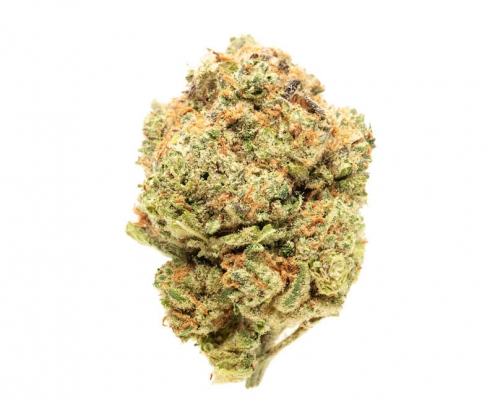 https://essencevegas.com/wp-content/uploads/2019/02/EightFold_Inferno-1.jpg
800
800
[email protected]
https://essencevegas.com/wp-content/uploads/2021/02/Essence-Cannabis-Dispensary-Logo.png
[email protected]2019-02-15 13:56:142021-05-18 09:45:228 Fold – Inferno OG
https://essencevegas.com/wp-content/uploads/2019/02/EightFold_Inferno-1.jpg
800
800
[email protected]
https://essencevegas.com/wp-content/uploads/2021/02/Essence-Cannabis-Dispensary-Logo.png
[email protected]2019-02-15 13:56:142021-05-18 09:45:228 Fold – Inferno OG https://essencevegas.com/wp-content/uploads/2019/04/EightFold_infernoOG_sauce.jpg
800
800
[email protected]
https://essencevegas.com/wp-content/uploads/2021/02/Essence-Cannabis-Dispensary-Logo.png
[email protected]2019-04-30 10:12:092020-04-30 12:44:368 Fold – Inferno OG Dab Sap
https://essencevegas.com/wp-content/uploads/2019/04/EightFold_infernoOG_sauce.jpg
800
800
[email protected]
https://essencevegas.com/wp-content/uploads/2021/02/Essence-Cannabis-Dispensary-Logo.png
[email protected]2019-04-30 10:12:092020-04-30 12:44:368 Fold – Inferno OG Dab Sap https://essencevegas.com/wp-content/uploads/2018/08/8-Fold-Lavender-Diesel-Disposable-Vape-Pen.jpg
800
800
[email protected]
https://essencevegas.com/wp-content/uploads/2021/02/Essence-Cannabis-Dispensary-Logo.png
[email protected]2018-08-17 13:59:452021-06-25 03:37:068 Fold – Lavender Diesel Disposable Vape Pen
https://essencevegas.com/wp-content/uploads/2018/08/8-Fold-Lavender-Diesel-Disposable-Vape-Pen.jpg
800
800
[email protected]
https://essencevegas.com/wp-content/uploads/2021/02/Essence-Cannabis-Dispensary-Logo.png
[email protected]2018-08-17 13:59:452021-06-25 03:37:068 Fold – Lavender Diesel Disposable Vape Pen https://essencevegas.com/wp-content/uploads/2018/08/NOR-Master-Kush-Disposable-Vape-Pen.jpg
800
800
[email protected]
https://essencevegas.com/wp-content/uploads/2021/02/Essence-Cannabis-Dispensary-Logo.png
[email protected]2018-08-28 09:54:082020-09-08 07:13:348 Fold – Master Kush Disposable Vape Pen
https://essencevegas.com/wp-content/uploads/2018/08/NOR-Master-Kush-Disposable-Vape-Pen.jpg
800
800
[email protected]
https://essencevegas.com/wp-content/uploads/2021/02/Essence-Cannabis-Dispensary-Logo.png
[email protected]2018-08-28 09:54:082020-09-08 07:13:348 Fold – Master Kush Disposable Vape Pen https://essencevegas.com/wp-content/uploads/2019/02/8Fold_Vape-Cartridge-Generic-1.jpg
800
800
[email protected]
https://essencevegas.com/wp-content/uploads/2021/02/Essence-Cannabis-Dispensary-Logo.png
[email protected]2019-02-19 16:58:222020-04-30 12:45:558 Fold – SFZ Cartridge
https://essencevegas.com/wp-content/uploads/2019/02/8Fold_Vape-Cartridge-Generic-1.jpg
800
800
[email protected]
https://essencevegas.com/wp-content/uploads/2021/02/Essence-Cannabis-Dispensary-Logo.png
[email protected]2019-02-19 16:58:222020-04-30 12:45:558 Fold – SFZ Cartridge https://essencevegas.com/wp-content/uploads/2019/02/EightFold_TruthSerum.jpg
800
800
[email protected]
https://essencevegas.com/wp-content/uploads/2021/02/Essence-Cannabis-Dispensary-Logo.png
[email protected]2019-02-15 14:10:212021-05-17 06:03:568 Fold – Truth Serum
https://essencevegas.com/wp-content/uploads/2019/02/EightFold_TruthSerum.jpg
800
800
[email protected]
https://essencevegas.com/wp-content/uploads/2021/02/Essence-Cannabis-Dispensary-Logo.png
[email protected]2019-02-15 14:10:212021-05-17 06:03:568 Fold – Truth Serum https://essencevegas.com/wp-content/uploads/2019/02/8Fold_Disposable-Pen-Generic-1-1.jpg
800
800
[email protected]
https://essencevegas.com/wp-content/uploads/2021/02/Essence-Cannabis-Dispensary-Logo.png
[email protected]2019-02-20 14:40:422020-04-30 12:46:378 Fold – Wicked SFZ Disposable
https://essencevegas.com/wp-content/uploads/2019/02/8Fold_Disposable-Pen-Generic-1-1.jpg
800
800
[email protected]
https://essencevegas.com/wp-content/uploads/2021/02/Essence-Cannabis-Dispensary-Logo.png
[email protected]2019-02-20 14:40:422020-04-30 12:46:378 Fold – Wicked SFZ Disposable https://essencevegas.com/wp-content/uploads/2019/02/Airopro-Hybrid.jpg
800
800
[email protected]
https://essencevegas.com/wp-content/uploads/2021/02/Essence-Cannabis-Dispensary-Logo.png
[email protected]2019-02-20 15:19:272020-04-30 12:56:40Airo Pro – Blue Dream Cartridge
https://essencevegas.com/wp-content/uploads/2019/02/Airopro-Hybrid.jpg
800
800
[email protected]
https://essencevegas.com/wp-content/uploads/2021/02/Essence-Cannabis-Dispensary-Logo.png
[email protected]2019-02-20 15:19:272020-04-30 12:56:40Airo Pro – Blue Dream Cartridge https://essencevegas.com/wp-content/uploads/2019/02/Airopro-Hybrid-1.jpg
800
800
[email protected]
https://essencevegas.com/wp-content/uploads/2021/02/Essence-Cannabis-Dispensary-Logo.png
[email protected]2019-02-20 15:46:042020-09-08 01:38:41Airo Pro – GSC Cartridge
https://essencevegas.com/wp-content/uploads/2019/02/Airopro-Hybrid-1.jpg
800
800
[email protected]
https://essencevegas.com/wp-content/uploads/2021/02/Essence-Cannabis-Dispensary-Logo.png
[email protected]2019-02-20 15:46:042020-09-08 01:38:41Airo Pro – GSC Cartridge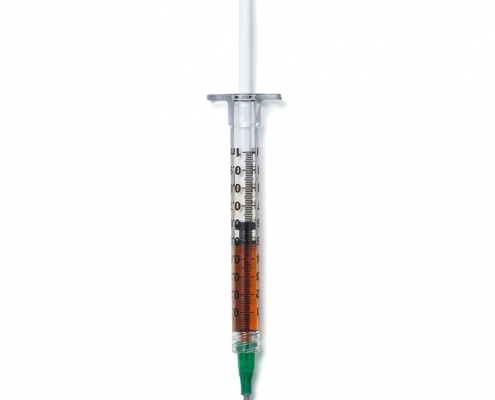 https://essencevegas.com/wp-content/uploads/2019/05/SSN_Syringe.jpg
800
800
[email protected]
https://essencevegas.com/wp-content/uploads/2021/02/Essence-Cannabis-Dispensary-Logo.png
[email protected]2019-05-01 14:47:502020-09-08 02:57:40Alternative Medicine Association – Skunkberry Crumble
https://essencevegas.com/wp-content/uploads/2019/05/SSN_Syringe.jpg
800
800
[email protected]
https://essencevegas.com/wp-content/uploads/2021/02/Essence-Cannabis-Dispensary-Logo.png
[email protected]2019-05-01 14:47:502020-09-08 02:57:40Alternative Medicine Association – Skunkberry Crumble https://essencevegas.com/wp-content/uploads/2018/09/Altus-5.1-CBDTHC-Capsules.jpg
800
800
[email protected]
https://essencevegas.com/wp-content/uploads/2021/02/Essence-Cannabis-Dispensary-Logo.png
[email protected]2018-09-27 12:14:402020-04-30 12:58:45Altus – 5:1 CBD/THC Capsules
https://essencevegas.com/wp-content/uploads/2018/09/Altus-5.1-CBDTHC-Capsules.jpg
800
800
[email protected]
https://essencevegas.com/wp-content/uploads/2021/02/Essence-Cannabis-Dispensary-Logo.png
[email protected]2018-09-27 12:14:402020-04-30 12:58:45Altus – 5:1 CBD/THC Capsules https://essencevegas.com/wp-content/uploads/2018/12/Altus-Blackberry-Cream-Pre-Roll.jpg
800
800
[email protected]
https://essencevegas.com/wp-content/uploads/2021/02/Essence-Cannabis-Dispensary-Logo.png
[email protected]2018-12-28 14:32:352020-09-08 07:06:03Altus – Blackberry Cream Pre-Roll
https://essencevegas.com/wp-content/uploads/2018/12/Altus-Blackberry-Cream-Pre-Roll.jpg
800
800
[email protected]
https://essencevegas.com/wp-content/uploads/2021/02/Essence-Cannabis-Dispensary-Logo.png
[email protected]2018-12-28 14:32:352020-09-08 07:06:03Altus – Blackberry Cream Pre-Roll https://essencevegas.com/wp-content/uploads/2018/09/Altus-CBD-Capsules.jpg
800
800
[email protected]
https://essencevegas.com/wp-content/uploads/2021/02/Essence-Cannabis-Dispensary-Logo.png
[email protected]2018-09-27 14:24:492020-04-30 12:59:47Altus – CBD Capsules
https://essencevegas.com/wp-content/uploads/2018/09/Altus-CBD-Capsules.jpg
800
800
[email protected]
https://essencevegas.com/wp-content/uploads/2021/02/Essence-Cannabis-Dispensary-Logo.png
[email protected]2018-09-27 14:24:492020-04-30 12:59:47Altus – CBD Capsules https://essencevegas.com/wp-content/uploads/2018/09/Altus-Citrus-Passionfruit-Sativa-Gummies.jpg
800
800
[email protected]
https://essencevegas.com/wp-content/uploads/2021/02/Essence-Cannabis-Dispensary-Logo.png
[email protected]2018-09-27 15:28:112020-04-30 13:00:25Altus – Citrus Passionfruit Sativa Gummies
https://essencevegas.com/wp-content/uploads/2018/09/Altus-Citrus-Passionfruit-Sativa-Gummies.jpg
800
800
[email protected]
https://essencevegas.com/wp-content/uploads/2021/02/Essence-Cannabis-Dispensary-Logo.png
[email protected]2018-09-27 15:28:112020-04-30 13:00:25Altus – Citrus Passionfruit Sativa Gummies https://essencevegas.com/wp-content/uploads/2018/12/Altus-Double-Stuffed-Pre-Roll.jpg
800
800
[email protected]
https://essencevegas.com/wp-content/uploads/2021/02/Essence-Cannabis-Dispensary-Logo.png
[email protected]2018-12-28 14:40:472020-09-08 03:04:01Altus – Double Stuffed Pre-Roll
https://essencevegas.com/wp-content/uploads/2018/12/Altus-Double-Stuffed-Pre-Roll.jpg
800
800
[email protected]
https://essencevegas.com/wp-content/uploads/2021/02/Essence-Cannabis-Dispensary-Logo.png
[email protected]2018-12-28 14:40:472020-09-08 03:04:01Altus – Double Stuffed Pre-Roll https://essencevegas.com/wp-content/uploads/2018/09/Altus-Ease-Capsules.jpg
800
800
[email protected]
https://essencevegas.com/wp-content/uploads/2021/02/Essence-Cannabis-Dispensary-Logo.png
[email protected]2018-09-27 16:04:282020-04-30 13:02:17Altus – Ease Capsules
https://essencevegas.com/wp-content/uploads/2018/09/Altus-Ease-Capsules.jpg
800
800
[email protected]
https://essencevegas.com/wp-content/uploads/2021/02/Essence-Cannabis-Dispensary-Logo.png
[email protected]2018-09-27 16:04:282020-04-30 13:02:17Altus – Ease Capsules https://essencevegas.com/wp-content/uploads/2018/09/Altus-Fresh-Mango-20.1-CBD-Gummies.jpg
800
800
[email protected]
https://essencevegas.com/wp-content/uploads/2021/02/Essence-Cannabis-Dispensary-Logo.png
[email protected]2018-09-28 09:52:132020-04-30 13:02:55Altus – Fresh Mango 20:1 CBD Gummies
https://essencevegas.com/wp-content/uploads/2018/09/Altus-Fresh-Mango-20.1-CBD-Gummies.jpg
800
800
[email protected]
https://essencevegas.com/wp-content/uploads/2021/02/Essence-Cannabis-Dispensary-Logo.png
[email protected]2018-09-28 09:52:132020-04-30 13:02:55Altus – Fresh Mango 20:1 CBD Gummies https://essencevegas.com/wp-content/uploads/2018/09/Altus-Juicy-Pear-Indica-Gummies.jpg
800
800
[email protected]
https://essencevegas.com/wp-content/uploads/2021/02/Essence-Cannabis-Dispensary-Logo.png
[email protected]2018-09-28 10:45:442020-04-30 13:16:36Altus – Juicy Pear Indica Gummies
https://essencevegas.com/wp-content/uploads/2018/09/Altus-Juicy-Pear-Indica-Gummies.jpg
800
800
[email protected]
https://essencevegas.com/wp-content/uploads/2021/02/Essence-Cannabis-Dispensary-Logo.png
[email protected]2018-09-28 10:45:442020-04-30 13:16:36Altus – Juicy Pear Indica Gummies https://essencevegas.com/wp-content/uploads/2018/09/Altus-Sativa-Capsules.jpg
800
800
[email protected]
https://essencevegas.com/wp-content/uploads/2021/02/Essence-Cannabis-Dispensary-Logo.png
[email protected]2018-09-28 11:21:452020-11-05 09:11:39Altus – Sativa Capsules
https://essencevegas.com/wp-content/uploads/2018/09/Altus-Sativa-Capsules.jpg
800
800
[email protected]
https://essencevegas.com/wp-content/uploads/2021/02/Essence-Cannabis-Dispensary-Logo.png
[email protected]2018-09-28 11:21:452020-11-05 09:11:39Altus – Sativa Capsules https://essencevegas.com/wp-content/uploads/2018/10/Altus-Spearmint-Mints.jpg
800
800
[email protected]
https://essencevegas.com/wp-content/uploads/2021/02/Essence-Cannabis-Dispensary-Logo.png
[email protected]2018-10-16 10:57:282020-04-30 13:18:37Altus – Spearmint Mints
https://essencevegas.com/wp-content/uploads/2018/10/Altus-Spearmint-Mints.jpg
800
800
[email protected]
https://essencevegas.com/wp-content/uploads/2021/02/Essence-Cannabis-Dispensary-Logo.png
[email protected]2018-10-16 10:57:282020-04-30 13:18:37Altus – Spearmint Mints https://essencevegas.com/wp-content/uploads/2018/08/Altus-Spearmint-Mints-1.jpg
800
800
[email protected]
https://essencevegas.com/wp-content/uploads/2021/02/Essence-Cannabis-Dispensary-Logo.png
[email protected]2018-08-27 11:18:382021-06-25 03:39:50AMA – Banana Cream Disposable Vape Pen
https://essencevegas.com/wp-content/uploads/2018/08/Altus-Spearmint-Mints-1.jpg
800
800
[email protected]
https://essencevegas.com/wp-content/uploads/2021/02/Essence-Cannabis-Dispensary-Logo.png
[email protected]2018-08-27 11:18:382021-06-25 03:39:50AMA – Banana Cream Disposable Vape Pen https://essencevegas.com/wp-content/uploads/2019/04/AMA_RSO.jpg
800
800
[email protected]
https://essencevegas.com/wp-content/uploads/2021/02/Essence-Cannabis-Dispensary-Logo.png
[email protected]2019-04-30 10:16:422020-04-30 13:19:46AMA – Full Spectrum RSO
https://essencevegas.com/wp-content/uploads/2019/04/AMA_RSO.jpg
800
800
[email protected]
https://essencevegas.com/wp-content/uploads/2021/02/Essence-Cannabis-Dispensary-Logo.png
[email protected]2019-04-30 10:16:422020-04-30 13:19:46AMA – Full Spectrum RSO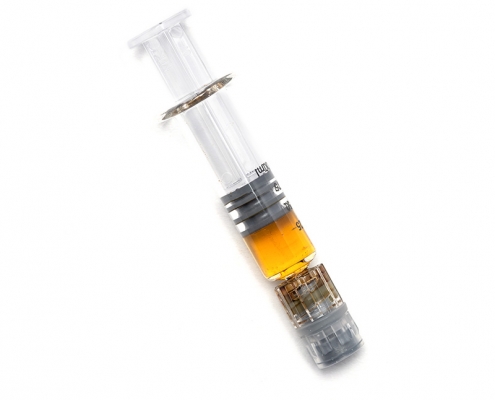 https://essencevegas.com/wp-content/uploads/2019/04/AMA_JungleJuice_Cartridge.jpg
800
800
[email protected]
https://essencevegas.com/wp-content/uploads/2021/02/Essence-Cannabis-Dispensary-Logo.png
[email protected]2019-04-30 11:26:042020-04-30 13:20:29AMA – Jungle Juice Syringe
https://essencevegas.com/wp-content/uploads/2019/04/AMA_JungleJuice_Cartridge.jpg
800
800
[email protected]
https://essencevegas.com/wp-content/uploads/2021/02/Essence-Cannabis-Dispensary-Logo.png
[email protected]2019-04-30 11:26:042020-04-30 13:20:29AMA – Jungle Juice Syringe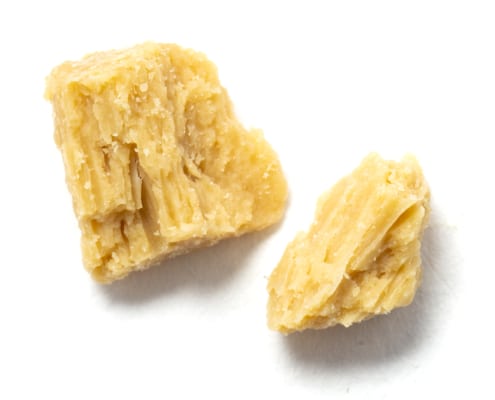 https://essencevegas.com/wp-content/uploads/2018/08/AMA_Lemon-Skunk.jpg
2048
2048
[email protected]
https://essencevegas.com/wp-content/uploads/2021/02/Essence-Cannabis-Dispensary-Logo.png
[email protected]2018-08-08 09:19:592021-05-27 05:54:33AMA – Lemon Skunk Crumble
https://essencevegas.com/wp-content/uploads/2018/08/AMA_Lemon-Skunk.jpg
2048
2048
[email protected]
https://essencevegas.com/wp-content/uploads/2021/02/Essence-Cannabis-Dispensary-Logo.png
[email protected]2018-08-08 09:19:592021-05-27 05:54:33AMA – Lemon Skunk Crumble https://essencevegas.com/wp-content/uploads/2018/08/AMA-Pina-Colada-Disposable-Vape-Pen.jpg
800
800
[email protected]
https://essencevegas.com/wp-content/uploads/2021/02/Essence-Cannabis-Dispensary-Logo.png
[email protected]2018-08-31 14:07:382021-06-25 03:42:20AMA – Pina Colada Disposable Vape Pen
https://essencevegas.com/wp-content/uploads/2018/08/AMA-Pina-Colada-Disposable-Vape-Pen.jpg
800
800
[email protected]
https://essencevegas.com/wp-content/uploads/2021/02/Essence-Cannabis-Dispensary-Logo.png
[email protected]2018-08-31 14:07:382021-06-25 03:42:20AMA – Pina Colada Disposable Vape Pen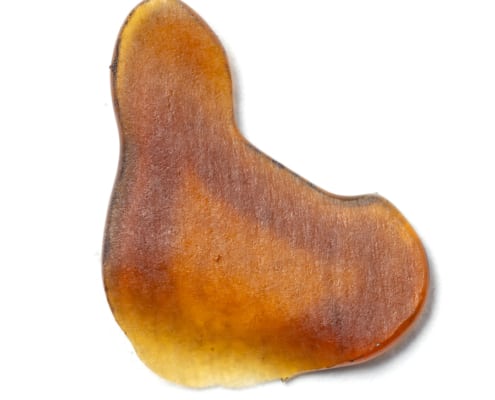 https://essencevegas.com/wp-content/uploads/2018/08/AMA_Purple-Monkey.jpg
900
900
[email protected]
https://essencevegas.com/wp-content/uploads/2021/02/Essence-Cannabis-Dispensary-Logo.png
[email protected]2018-08-09 13:42:452022-01-27 11:10:36AMA – Purple Monkey Balls Shatter
https://essencevegas.com/wp-content/uploads/2018/08/AMA_Purple-Monkey.jpg
900
900
[email protected]
https://essencevegas.com/wp-content/uploads/2021/02/Essence-Cannabis-Dispensary-Logo.png
[email protected]2018-08-09 13:42:452022-01-27 11:10:36AMA – Purple Monkey Balls Shatter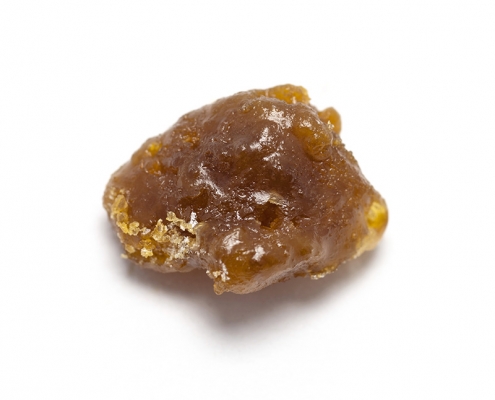 https://essencevegas.com/wp-content/uploads/2019/04/AMA_LemonHaze.jpg
800
800
[email protected]
https://essencevegas.com/wp-content/uploads/2021/02/Essence-Cannabis-Dispensary-Logo.png
[email protected]2019-04-30 11:31:392020-04-30 13:22:56AMA – Super Lemon Haze Sugar
https://essencevegas.com/wp-content/uploads/2019/04/AMA_LemonHaze.jpg
800
800
[email protected]
https://essencevegas.com/wp-content/uploads/2021/02/Essence-Cannabis-Dispensary-Logo.png
[email protected]2019-04-30 11:31:392020-04-30 13:22:56AMA – Super Lemon Haze Sugar https://essencevegas.com/wp-content/uploads/2019/02/AO_Yellow-BrandStrain-unknown.jpg
800
800
[email protected]
https://essencevegas.com/wp-content/uploads/2021/02/Essence-Cannabis-Dispensary-Logo.png
[email protected]2019-02-20 15:59:512020-09-08 00:53:59AO – Yellow Pen
https://essencevegas.com/wp-content/uploads/2019/02/AO_Yellow-BrandStrain-unknown.jpg
800
800
[email protected]
https://essencevegas.com/wp-content/uploads/2021/02/Essence-Cannabis-Dispensary-Logo.png
[email protected]2019-02-20 15:59:512020-09-08 00:53:59AO – Yellow Pen https://essencevegas.com/wp-content/uploads/2018/09/BaM-Blue-Raspberry-Gummy-Cubes.jpg
800
800
[email protected]
https://essencevegas.com/wp-content/uploads/2021/02/Essence-Cannabis-Dispensary-Logo.png
[email protected]2018-09-28 12:03:452020-09-08 16:11:54BaM – Blue Raspberry Gummy Cubes
https://essencevegas.com/wp-content/uploads/2018/09/BaM-Blue-Raspberry-Gummy-Cubes.jpg
800
800
[email protected]
https://essencevegas.com/wp-content/uploads/2021/02/Essence-Cannabis-Dispensary-Logo.png
[email protected]2018-09-28 12:03:452020-09-08 16:11:54BaM – Blue Raspberry Gummy Cubes https://essencevegas.com/wp-content/uploads/2018/09/Bam_Pretzels.jpg
900
900
[email protected]
https://essencevegas.com/wp-content/uploads/2021/02/Essence-Cannabis-Dispensary-Logo.png
[email protected]2018-09-28 12:57:552020-09-08 15:16:07BaM – Pretzel Bites
https://essencevegas.com/wp-content/uploads/2018/09/Bam_Pretzels.jpg
900
900
[email protected]
https://essencevegas.com/wp-content/uploads/2021/02/Essence-Cannabis-Dispensary-Logo.png
[email protected]2018-09-28 12:57:552020-09-08 15:16:07BaM – Pretzel Bites https://essencevegas.com/wp-content/uploads/2019/04/Basik_ChocolateBar-1.jpg
800
800
[email protected]
https://essencevegas.com/wp-content/uploads/2021/02/Essence-Cannabis-Dispensary-Logo.png
[email protected]2019-04-29 16:36:252021-06-04 05:33:26BASIK – Milk Chocolate Bar
https://essencevegas.com/wp-content/uploads/2019/04/Basik_ChocolateBar-1.jpg
800
800
[email protected]
https://essencevegas.com/wp-content/uploads/2021/02/Essence-Cannabis-Dispensary-Logo.png
[email protected]2019-04-29 16:36:252021-06-04 05:33:26BASIK – Milk Chocolate Bar https://essencevegas.com/wp-content/uploads/2019/05/Bask_CBDcream400mg.jpg
800
800
[email protected]
https://essencevegas.com/wp-content/uploads/2021/02/Essence-Cannabis-Dispensary-Logo.png
[email protected]2019-05-01 15:19:572020-09-08 03:02:32Bask – 400 mg CBD Transdermal Cream
https://essencevegas.com/wp-content/uploads/2019/05/Bask_CBDcream400mg.jpg
800
800
[email protected]
https://essencevegas.com/wp-content/uploads/2021/02/Essence-Cannabis-Dispensary-Logo.png
[email protected]2019-05-01 15:19:572020-09-08 03:02:32Bask – 400 mg CBD Transdermal Cream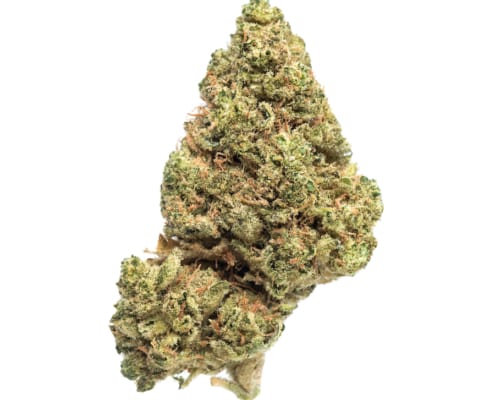 https://essencevegas.com/wp-content/uploads/2018/11/BG_Stardawg.jpg
900
900
[email protected]
https://essencevegas.com/wp-content/uploads/2021/02/Essence-Cannabis-Dispensary-Logo.png
[email protected]2018-11-21 12:09:092021-05-17 06:16:52BG – Stardawg
https://essencevegas.com/wp-content/uploads/2018/11/BG_Stardawg.jpg
900
900
[email protected]
https://essencevegas.com/wp-content/uploads/2021/02/Essence-Cannabis-Dispensary-Logo.png
[email protected]2018-11-21 12:09:092021-05-17 06:16:52BG – Stardawg https://essencevegas.com/wp-content/uploads/2018/12/Binske-Bene-Pre-Roll.jpg
800
800
[email protected]
https://essencevegas.com/wp-content/uploads/2021/02/Essence-Cannabis-Dispensary-Logo.png
[email protected]2018-12-28 14:49:332021-06-10 14:05:57Binske – Bene Pre-Roll
https://essencevegas.com/wp-content/uploads/2018/12/Binske-Bene-Pre-Roll.jpg
800
800
[email protected]
https://essencevegas.com/wp-content/uploads/2021/02/Essence-Cannabis-Dispensary-Logo.png
[email protected]2018-12-28 14:49:332021-06-10 14:05:57Binske – Bene Pre-Roll https://essencevegas.com/wp-content/uploads/2018/08/Bloom-Farms-Nighttime-Vape-Cartridge.jpg
800
800
[email protected]
https://essencevegas.com/wp-content/uploads/2021/02/Essence-Cannabis-Dispensary-Logo.png
[email protected]2018-08-31 14:42:302020-09-08 07:08:30Bloom Farms – Nighttime Vape Cartridge
https://essencevegas.com/wp-content/uploads/2018/08/Bloom-Farms-Nighttime-Vape-Cartridge.jpg
800
800
[email protected]
https://essencevegas.com/wp-content/uploads/2021/02/Essence-Cannabis-Dispensary-Logo.png
[email protected]2018-08-31 14:42:302020-09-08 07:08:30Bloom Farms – Nighttime Vape Cartridge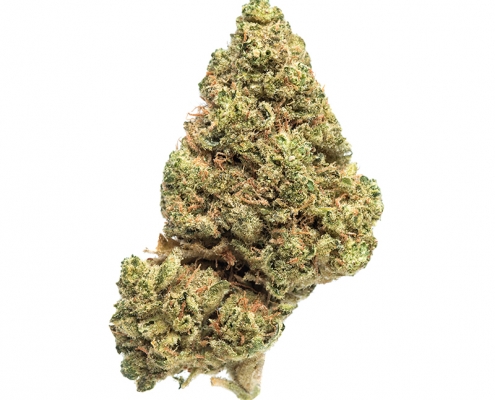 https://essencevegas.com/wp-content/uploads/2018/12/GB-Stardawg-Pre-Roll.jpg
800
800
[email protected]
https://essencevegas.com/wp-content/uploads/2021/02/Essence-Cannabis-Dispensary-Logo.png
[email protected]2018-12-28 15:09:502021-05-20 07:21:55Blossom Group – Stardawg Pre-Roll
https://essencevegas.com/wp-content/uploads/2018/12/GB-Stardawg-Pre-Roll.jpg
800
800
[email protected]
https://essencevegas.com/wp-content/uploads/2021/02/Essence-Cannabis-Dispensary-Logo.png
[email protected]2018-12-28 15:09:502021-05-20 07:21:55Blossom Group – Stardawg Pre-Roll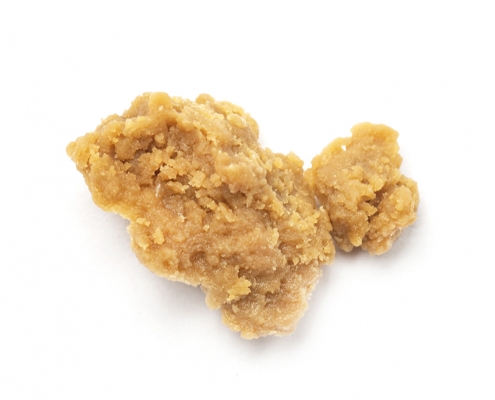 https://essencevegas.com/wp-content/uploads/2018/11/Body-and-Mind-Mandarin-Cookies-Rosin.jpg
800
800
[email protected]
https://essencevegas.com/wp-content/uploads/2021/02/Essence-Cannabis-Dispensary-Logo.png
[email protected]2018-11-20 16:30:592020-09-08 07:04:48Body and Mind – Mandarin Cookies Rosin
https://essencevegas.com/wp-content/uploads/2018/11/Body-and-Mind-Mandarin-Cookies-Rosin.jpg
800
800
[email protected]
https://essencevegas.com/wp-content/uploads/2021/02/Essence-Cannabis-Dispensary-Logo.png
[email protected]2018-11-20 16:30:592020-09-08 07:04:48Body and Mind – Mandarin Cookies Rosin https://essencevegas.com/wp-content/uploads/2018/11/Body-and-Mind-Sequoia-Strawberry-Rosin-1.jpg
800
800
[email protected]
https://essencevegas.com/wp-content/uploads/2021/02/Essence-Cannabis-Dispensary-Logo.png
[email protected]2018-11-20 17:05:572020-09-08 02:47:36Body and Mind – Sequoia Strawberry Rosin
https://essencevegas.com/wp-content/uploads/2018/11/Body-and-Mind-Sequoia-Strawberry-Rosin-1.jpg
800
800
[email protected]
https://essencevegas.com/wp-content/uploads/2021/02/Essence-Cannabis-Dispensary-Logo.png
[email protected]2018-11-20 17:05:572020-09-08 02:47:36Body and Mind – Sequoia Strawberry Rosin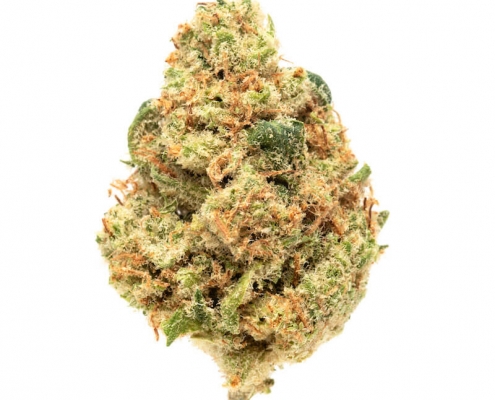 https://essencevegas.com/wp-content/uploads/2019/02/BohemianBros_401k.jpg
800
800
[email protected]
https://essencevegas.com/wp-content/uploads/2021/02/Essence-Cannabis-Dispensary-Logo.png
[email protected]2019-02-15 14:40:162021-05-17 06:30:34Bohemian Brothers – 401K
https://essencevegas.com/wp-content/uploads/2019/02/BohemianBros_401k.jpg
800
800
[email protected]
https://essencevegas.com/wp-content/uploads/2021/02/Essence-Cannabis-Dispensary-Logo.png
[email protected]2019-02-15 14:40:162021-05-17 06:30:34Bohemian Brothers – 401K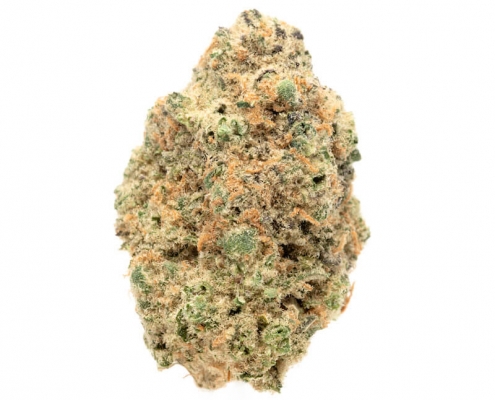 https://essencevegas.com/wp-content/uploads/2019/02/BohemianBros_Chunckberry.jpg
800
800
[email protected]
https://essencevegas.com/wp-content/uploads/2021/02/Essence-Cannabis-Dispensary-Logo.png
[email protected]2019-02-15 15:07:242021-05-18 07:18:59Bohemian Brothers – Grapefruit Mimosa
https://essencevegas.com/wp-content/uploads/2019/02/BohemianBros_Chunckberry.jpg
800
800
[email protected]
https://essencevegas.com/wp-content/uploads/2021/02/Essence-Cannabis-Dispensary-Logo.png
[email protected]2019-02-15 15:07:242021-05-18 07:18:59Bohemian Brothers – Grapefruit Mimosa https://essencevegas.com/wp-content/uploads/2019/02/BohemianBros_Chunckberry.jpg
800
800
[email protected]
https://essencevegas.com/wp-content/uploads/2021/02/Essence-Cannabis-Dispensary-Logo.png
[email protected]2019-02-15 16:06:162021-05-18 07:39:33Bohemian Brothers – Mimosa
https://essencevegas.com/wp-content/uploads/2019/02/BohemianBros_Chunckberry.jpg
800
800
[email protected]
https://essencevegas.com/wp-content/uploads/2021/02/Essence-Cannabis-Dispensary-Logo.png
[email protected]2019-02-15 16:06:162021-05-18 07:39:33Bohemian Brothers – Mimosa https://essencevegas.com/wp-content/uploads/2019/02/BohemianBros_Chunckberry.jpg
800
800
[email protected]
https://essencevegas.com/wp-content/uploads/2021/02/Essence-Cannabis-Dispensary-Logo.png
[email protected]2019-02-15 16:25:052021-05-18 09:56:13Bohemian Brothers – Miracle Whip
https://essencevegas.com/wp-content/uploads/2019/02/BohemianBros_Chunckberry.jpg
800
800
[email protected]
https://essencevegas.com/wp-content/uploads/2021/02/Essence-Cannabis-Dispensary-Logo.png
[email protected]2019-02-15 16:25:052021-05-18 09:56:13Bohemian Brothers – Miracle Whip https://essencevegas.com/wp-content/uploads/2019/02/BohemianBros_Chunckberry.jpg
800
800
[email protected]
https://essencevegas.com/wp-content/uploads/2021/02/Essence-Cannabis-Dispensary-Logo.png
[email protected]2019-02-15 16:44:052021-03-26 07:21:14Bohemian Brothers – Orange 43
https://essencevegas.com/wp-content/uploads/2019/02/BohemianBros_Chunckberry.jpg
800
800
[email protected]
https://essencevegas.com/wp-content/uploads/2021/02/Essence-Cannabis-Dispensary-Logo.png
[email protected]2019-02-15 16:44:052021-03-26 07:21:14Bohemian Brothers – Orange 43 https://essencevegas.com/wp-content/uploads/2019/02/BohemianBros_Chunckberry.jpg
800
800
[email protected]
https://essencevegas.com/wp-content/uploads/2021/02/Essence-Cannabis-Dispensary-Logo.png
[email protected]2019-02-15 16:57:442021-05-18 10:22:19Bohemian Brothers – Pink Starburst
https://essencevegas.com/wp-content/uploads/2019/02/BohemianBros_Chunckberry.jpg
800
800
[email protected]
https://essencevegas.com/wp-content/uploads/2021/02/Essence-Cannabis-Dispensary-Logo.png
[email protected]2019-02-15 16:57:442021-05-18 10:22:19Bohemian Brothers – Pink Starburst https://essencevegas.com/wp-content/uploads/2019/02/BohemianBros_Chunckberry.jpg
800
800
[email protected]
https://essencevegas.com/wp-content/uploads/2021/02/Essence-Cannabis-Dispensary-Logo.png
[email protected]2019-02-15 17:09:512021-05-18 10:39:36Bohemian Brothers – Star Pie
https://essencevegas.com/wp-content/uploads/2019/02/BohemianBros_Chunckberry.jpg
800
800
[email protected]
https://essencevegas.com/wp-content/uploads/2021/02/Essence-Cannabis-Dispensary-Logo.png
[email protected]2019-02-15 17:09:512021-05-18 10:39:36Bohemian Brothers – Star Pie https://essencevegas.com/wp-content/uploads/2019/02/BrassKnuckles_Gelato_1.jpg
800
800
[email protected]
https://essencevegas.com/wp-content/uploads/2021/02/Essence-Cannabis-Dispensary-Logo.png
[email protected]2019-02-21 11:54:242021-06-25 03:44:24Brass Knuckles – Gelato Disposable Vape
https://essencevegas.com/wp-content/uploads/2019/02/BrassKnuckles_Gelato_1.jpg
800
800
[email protected]
https://essencevegas.com/wp-content/uploads/2021/02/Essence-Cannabis-Dispensary-Logo.png
[email protected]2019-02-21 11:54:242021-06-25 03:44:24Brass Knuckles – Gelato Disposable Vape https://essencevegas.com/wp-content/uploads/2019/02/BrassKnuckles_NapalmOG_1.jpg
800
800
[email protected]
https://essencevegas.com/wp-content/uploads/2021/02/Essence-Cannabis-Dispensary-Logo.png
[email protected]2019-02-21 14:46:322020-09-08 02:13:01Brass Knuckles – Napalm OG Disposable Vape
https://essencevegas.com/wp-content/uploads/2019/02/BrassKnuckles_NapalmOG_1.jpg
800
800
[email protected]
https://essencevegas.com/wp-content/uploads/2021/02/Essence-Cannabis-Dispensary-Logo.png
[email protected]2019-02-21 14:46:322020-09-08 02:13:01Brass Knuckles – Napalm OG Disposable Vape https://essencevegas.com/wp-content/uploads/2018/10/Canna-Hemp-CBD-Euphoria-Elixir.jpg
800
800
[email protected]
https://essencevegas.com/wp-content/uploads/2021/02/Essence-Cannabis-Dispensary-Logo.png
[email protected]2018-10-01 11:44:422020-09-08 15:20:51Canna Hemp – CBD Euphoria Elixir
https://essencevegas.com/wp-content/uploads/2018/10/Canna-Hemp-CBD-Euphoria-Elixir.jpg
800
800
[email protected]
https://essencevegas.com/wp-content/uploads/2021/02/Essence-Cannabis-Dispensary-Logo.png
[email protected]2018-10-01 11:44:422020-09-08 15:20:51Canna Hemp – CBD Euphoria Elixir https://essencevegas.com/wp-content/uploads/2018/10/Canna-Hemp-CBD-Sleep-Elixir.jpg
800
800
[email protected]
https://essencevegas.com/wp-content/uploads/2021/02/Essence-Cannabis-Dispensary-Logo.png
[email protected]2018-10-04 09:20:562019-04-01 14:37:11Canna Hemp – CBD Sleep Elixir
https://essencevegas.com/wp-content/uploads/2018/10/Canna-Hemp-CBD-Sleep-Elixir.jpg
800
800
[email protected]
https://essencevegas.com/wp-content/uploads/2021/02/Essence-Cannabis-Dispensary-Logo.png
[email protected]2018-10-04 09:20:562019-04-01 14:37:11Canna Hemp – CBD Sleep Elixir https://essencevegas.com/wp-content/uploads/2019/04/Canna-Hemp-Diamond-OG-CBD-Dabs.jpg
800
800
[email protected]
https://essencevegas.com/wp-content/uploads/2021/02/Essence-Cannabis-Dispensary-Logo.png
[email protected]2019-04-30 11:34:032021-05-27 05:59:02Canna Hemp – Diamond OG Crystalline Dab
https://essencevegas.com/wp-content/uploads/2019/04/Canna-Hemp-Diamond-OG-CBD-Dabs.jpg
800
800
[email protected]
https://essencevegas.com/wp-content/uploads/2021/02/Essence-Cannabis-Dispensary-Logo.png
[email protected]2019-04-30 11:34:032021-05-27 05:59:02Canna Hemp – Diamond OG Crystalline Dab https://essencevegas.com/wp-content/uploads/2018/09/Cannabella-CBD-Apple-Drops.jpg
800
800
[email protected]
https://essencevegas.com/wp-content/uploads/2021/02/Essence-Cannabis-Dispensary-Logo.png
[email protected]2018-09-28 15:21:212020-09-08 03:37:42Cannabella – CBD Apple Drops
https://essencevegas.com/wp-content/uploads/2018/09/Cannabella-CBD-Apple-Drops.jpg
800
800
[email protected]
https://essencevegas.com/wp-content/uploads/2021/02/Essence-Cannabis-Dispensary-Logo.png
[email protected]2018-09-28 15:21:212020-09-08 03:37:42Cannabella – CBD Apple Drops https://essencevegas.com/wp-content/uploads/2018/09/Canabella_Lozenges-Lemon.jpg
4078
4077
[email protected]
https://essencevegas.com/wp-content/uploads/2021/02/Essence-Cannabis-Dispensary-Logo.png
[email protected]2018-09-28 17:02:582021-06-04 05:36:53Cannabella – CBD Lemon Drops
https://essencevegas.com/wp-content/uploads/2018/09/Canabella_Lozenges-Lemon.jpg
4078
4077
[email protected]
https://essencevegas.com/wp-content/uploads/2021/02/Essence-Cannabis-Dispensary-Logo.png
[email protected]2018-09-28 17:02:582021-06-04 05:36:53Cannabella – CBD Lemon Drops https://essencevegas.com/wp-content/uploads/2018/09/Cannabella_CBD-Dog-Treats-Small.jpg
900
900
[email protected]
https://essencevegas.com/wp-content/uploads/2021/02/Essence-Cannabis-Dispensary-Logo.png
[email protected]2018-09-28 16:02:322020-09-08 15:14:37Cannabella – CBD Small Dog Treats
https://essencevegas.com/wp-content/uploads/2018/09/Cannabella_CBD-Dog-Treats-Small.jpg
900
900
[email protected]
https://essencevegas.com/wp-content/uploads/2021/02/Essence-Cannabis-Dispensary-Logo.png
[email protected]2018-09-28 16:02:322020-09-08 15:14:37Cannabella – CBD Small Dog Treats https://essencevegas.com/wp-content/uploads/2018/09/Cannabella_Fruit-Snack-Pack.jpg
900
900
[email protected]
https://essencevegas.com/wp-content/uploads/2021/02/Essence-Cannabis-Dispensary-Logo.png
[email protected]2018-09-28 16:34:222020-09-08 14:00:26Cannabella – Fruit Snack Pack
https://essencevegas.com/wp-content/uploads/2018/09/Cannabella_Fruit-Snack-Pack.jpg
900
900
[email protected]
https://essencevegas.com/wp-content/uploads/2021/02/Essence-Cannabis-Dispensary-Logo.png
[email protected]2018-09-28 16:34:222020-09-08 14:00:26Cannabella – Fruit Snack Pack https://essencevegas.com/wp-content/uploads/2019/04/Cannabella_Hotcinnamon.jpg
800
800
[email protected]
https://essencevegas.com/wp-content/uploads/2021/02/Essence-Cannabis-Dispensary-Logo.png
[email protected]2019-04-29 16:53:122021-06-04 05:57:46Cannabella – Hot Cinnamon Gummiez
https://essencevegas.com/wp-content/uploads/2019/04/Cannabella_Hotcinnamon.jpg
800
800
[email protected]
https://essencevegas.com/wp-content/uploads/2021/02/Essence-Cannabis-Dispensary-Logo.png
[email protected]2019-04-29 16:53:122021-06-04 05:57:46Cannabella – Hot Cinnamon Gummiez https://essencevegas.com/wp-content/uploads/2018/12/Cannabella-Sweet-Sour-Watermelon-1.1-Gummies.jpg
800
800
[email protected]
https://essencevegas.com/wp-content/uploads/2021/02/Essence-Cannabis-Dispensary-Logo.png
[email protected]2018-12-26 14:52:332020-09-08 13:41:01Cannabella – Sweet & Sour Watermelon 1:1 Gummies
https://essencevegas.com/wp-content/uploads/2018/12/Cannabella-Sweet-Sour-Watermelon-1.1-Gummies.jpg
800
800
[email protected]
https://essencevegas.com/wp-content/uploads/2021/02/Essence-Cannabis-Dispensary-Logo.png
[email protected]2018-12-26 14:52:332020-09-08 13:41:01Cannabella – Sweet & Sour Watermelon 1:1 Gummies https://essencevegas.com/wp-content/uploads/2018/12/Cannabella-THC-Dried-Cantaloupe.jpg
800
800
[email protected]
https://essencevegas.com/wp-content/uploads/2021/02/Essence-Cannabis-Dispensary-Logo.png
[email protected]2018-12-26 14:41:262020-09-08 03:29:43Cannabella – THC Dried Cantaloupe
https://essencevegas.com/wp-content/uploads/2018/12/Cannabella-THC-Dried-Cantaloupe.jpg
800
800
[email protected]
https://essencevegas.com/wp-content/uploads/2021/02/Essence-Cannabis-Dispensary-Logo.png
[email protected]2018-12-26 14:41:262020-09-08 03:29:43Cannabella – THC Dried Cantaloupe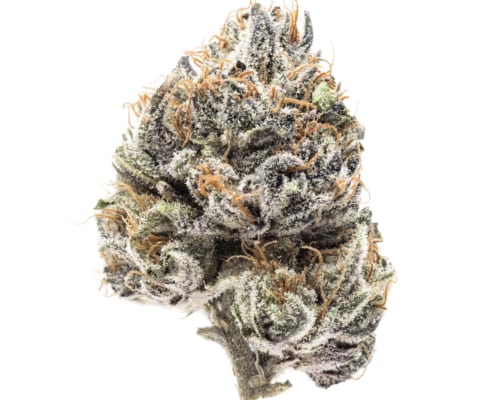 https://essencevegas.com/wp-content/uploads/2018/07/CB_Blueberry.jpg
2048
2048
[email protected]
https://essencevegas.com/wp-content/uploads/2021/02/Essence-Cannabis-Dispensary-Logo.png
[email protected]2018-07-24 09:11:322021-05-20 03:36:25Cannabiotix – Blueberry
https://essencevegas.com/wp-content/uploads/2018/07/CB_Blueberry.jpg
2048
2048
[email protected]
https://essencevegas.com/wp-content/uploads/2021/02/Essence-Cannabis-Dispensary-Logo.png
[email protected]2018-07-24 09:11:322021-05-20 03:36:25Cannabiotix – Blueberry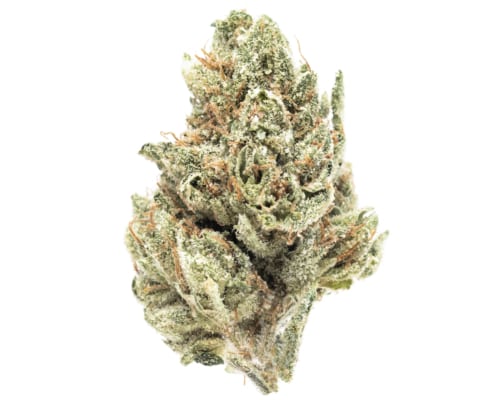 https://essencevegas.com/wp-content/uploads/2018/07/CB_EarthKush.jpg
1200
1200
[email protected]
https://essencevegas.com/wp-content/uploads/2021/02/Essence-Cannabis-Dispensary-Logo.png
[email protected]2018-07-24 09:32:522021-05-20 05:15:56Cannabiotix – Earth Kush
https://essencevegas.com/wp-content/uploads/2018/07/CB_EarthKush.jpg
1200
1200
[email protected]
https://essencevegas.com/wp-content/uploads/2021/02/Essence-Cannabis-Dispensary-Logo.png
[email protected]2018-07-24 09:32:522021-05-20 05:15:56Cannabiotix – Earth Kush https://essencevegas.com/wp-content/uploads/2019/02/Cannabiotix-Disposable-Pen.jpg
800
800
[email protected]
https://essencevegas.com/wp-content/uploads/2021/02/Essence-Cannabis-Dispensary-Logo.png
[email protected]2019-02-21 15:15:492021-06-25 03:46:24Cannabiotix – Earth Kush Disposable Vape
https://essencevegas.com/wp-content/uploads/2019/02/Cannabiotix-Disposable-Pen.jpg
800
800
[email protected]
https://essencevegas.com/wp-content/uploads/2021/02/Essence-Cannabis-Dispensary-Logo.png
[email protected]2019-02-21 15:15:492021-06-25 03:46:24Cannabiotix – Earth Kush Disposable Vape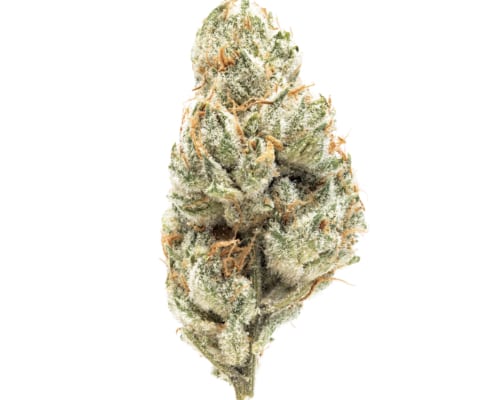 https://essencevegas.com/wp-content/uploads/2018/07/CB_OrangeCookies.jpg
1200
1200
[email protected]
https://essencevegas.com/wp-content/uploads/2021/02/Essence-Cannabis-Dispensary-Logo.png
[email protected]2018-07-24 10:07:462021-05-20 07:06:00Cannabiotix – Orange Cookies
https://essencevegas.com/wp-content/uploads/2018/07/CB_OrangeCookies.jpg
1200
1200
[email protected]
https://essencevegas.com/wp-content/uploads/2021/02/Essence-Cannabis-Dispensary-Logo.png
[email protected]2018-07-24 10:07:462021-05-20 07:06:00Cannabiotix – Orange Cookies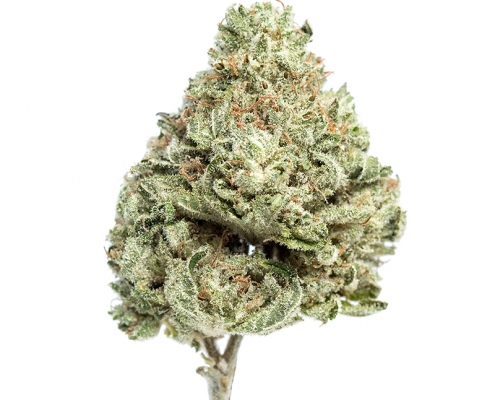 https://essencevegas.com/wp-content/uploads/2018/07/Cannabiotix-Sour-Grapefruit.jpg
800
800
[email protected]
https://essencevegas.com/wp-content/uploads/2021/02/Essence-Cannabis-Dispensary-Logo.png
[email protected]2018-07-24 10:20:292021-05-20 07:08:22Cannabiotix – Sour Grapefruit
https://essencevegas.com/wp-content/uploads/2018/07/Cannabiotix-Sour-Grapefruit.jpg
800
800
[email protected]
https://essencevegas.com/wp-content/uploads/2021/02/Essence-Cannabis-Dispensary-Logo.png
[email protected]2018-07-24 10:20:292021-05-20 07:08:22Cannabiotix – Sour Grapefruit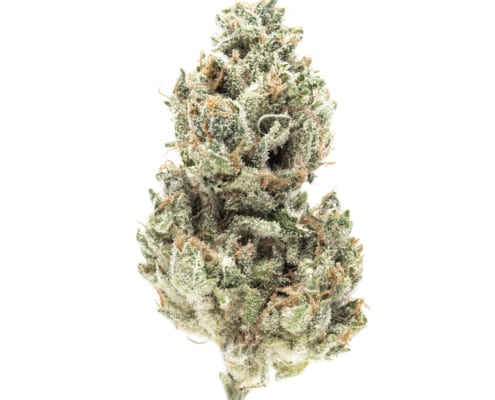 https://essencevegas.com/wp-content/uploads/2018/07/CB_StrawberryLemonade.jpg
1200
1200
[email protected]
https://essencevegas.com/wp-content/uploads/2021/02/Essence-Cannabis-Dispensary-Logo.png
[email protected]2018-07-24 10:28:332021-05-20 07:13:46Cannabiotix – Strawberry Lemonade
https://essencevegas.com/wp-content/uploads/2018/07/CB_StrawberryLemonade.jpg
1200
1200
[email protected]
https://essencevegas.com/wp-content/uploads/2021/02/Essence-Cannabis-Dispensary-Logo.png
[email protected]2018-07-24 10:28:332021-05-20 07:13:46Cannabiotix – Strawberry Lemonade https://essencevegas.com/wp-content/uploads/2019/02/Cannabiotix-Disposable-Pen-1.jpg
800
800
[email protected]
https://essencevegas.com/wp-content/uploads/2021/02/Essence-Cannabis-Dispensary-Logo.png
[email protected]2019-02-21 17:05:272021-06-25 03:49:45Cannabiotix – Wedding Cake Disposable Vape
https://essencevegas.com/wp-content/uploads/2019/02/Cannabiotix-Disposable-Pen-1.jpg
800
800
[email protected]
https://essencevegas.com/wp-content/uploads/2021/02/Essence-Cannabis-Dispensary-Logo.png
[email protected]2019-02-21 17:05:272021-06-25 03:49:45Cannabiotix – Wedding Cake Disposable Vape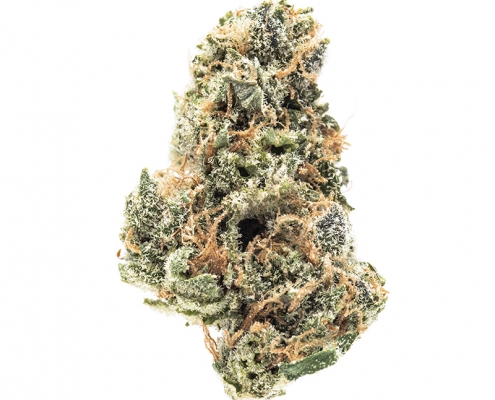 https://essencevegas.com/wp-content/uploads/2018/07/Cannabiotix-Mandarin-Mint-1.jpg
800
800
[email protected]
https://essencevegas.com/wp-content/uploads/2021/02/Essence-Cannabis-Dispensary-Logo.png
[email protected]2018-07-23 17:23:512021-05-20 03:38:33Cannabiotix – Mandarin Mint
https://essencevegas.com/wp-content/uploads/2018/07/Cannabiotix-Mandarin-Mint-1.jpg
800
800
[email protected]
https://essencevegas.com/wp-content/uploads/2021/02/Essence-Cannabis-Dispensary-Logo.png
[email protected]2018-07-23 17:23:512021-05-20 03:38:33Cannabiotix – Mandarin Mint https://essencevegas.com/wp-content/uploads/2018/06/knowledgebase-default.jpg
400
495
[email protected]
https://essencevegas.com/wp-content/uploads/2021/02/Essence-Cannabis-Dispensary-Logo.png
[email protected]2018-10-01 10:13:362021-06-04 07:02:56Cannadips – Mint CBD Pouches
https://essencevegas.com/wp-content/uploads/2018/06/knowledgebase-default.jpg
400
495
[email protected]
https://essencevegas.com/wp-content/uploads/2021/02/Essence-Cannabis-Dispensary-Logo.png
[email protected]2018-10-01 10:13:362021-06-04 07:02:56Cannadips – Mint CBD Pouches https://essencevegas.com/wp-content/uploads/2019/05/Cannahemp_BlueberryYum.jpg
800
800
[email protected]
https://essencevegas.com/wp-content/uploads/2021/02/Essence-Cannabis-Dispensary-Logo.png
[email protected]2019-05-01 16:13:112020-09-08 03:00:16CannaHemp – Blueberry Yum CBD Lip Balm
https://essencevegas.com/wp-content/uploads/2019/05/Cannahemp_BlueberryYum.jpg
800
800
[email protected]
https://essencevegas.com/wp-content/uploads/2021/02/Essence-Cannabis-Dispensary-Logo.png
[email protected]2019-05-01 16:13:112020-09-08 03:00:16CannaHemp – Blueberry Yum CBD Lip Balm https://essencevegas.com/wp-content/uploads/2019/05/Cannahemp_Cherried.jpg
800
800
[email protected]
https://essencevegas.com/wp-content/uploads/2021/02/Essence-Cannabis-Dispensary-Logo.png
[email protected]2019-05-01 16:33:362020-09-08 02:03:46CannaHemp – Cherried CBD Lip Balm
https://essencevegas.com/wp-content/uploads/2019/05/Cannahemp_Cherried.jpg
800
800
[email protected]
https://essencevegas.com/wp-content/uploads/2021/02/Essence-Cannabis-Dispensary-Logo.png
[email protected]2019-05-01 16:33:362020-09-08 02:03:46CannaHemp – Cherried CBD Lip Balm https://essencevegas.com/wp-content/uploads/2019/05/Cannahemp_LemonResin.jpg
800
800
[email protected]
https://essencevegas.com/wp-content/uploads/2021/02/Essence-Cannabis-Dispensary-Logo.png
[email protected]2019-05-01 16:46:392021-06-25 02:26:39CannaHemp – Lemon Resin CBD Lip Balm
https://essencevegas.com/wp-content/uploads/2019/05/Cannahemp_LemonResin.jpg
800
800
[email protected]
https://essencevegas.com/wp-content/uploads/2021/02/Essence-Cannabis-Dispensary-Logo.png
[email protected]2019-05-01 16:46:392021-06-25 02:26:39CannaHemp – Lemon Resin CBD Lip Balm https://essencevegas.com/wp-content/uploads/2019/05/CannaHemp_LightenedMint.jpg
800
800
[email protected]
https://essencevegas.com/wp-content/uploads/2021/02/Essence-Cannabis-Dispensary-Logo.png
[email protected]2019-05-02 10:33:072020-09-08 15:36:54CannaHemp – Lightened Mint CBD Lip Balm
https://essencevegas.com/wp-content/uploads/2019/05/CannaHemp_LightenedMint.jpg
800
800
[email protected]
https://essencevegas.com/wp-content/uploads/2021/02/Essence-Cannabis-Dispensary-Logo.png
[email protected]2019-05-02 10:33:072020-09-08 15:36:54CannaHemp – Lightened Mint CBD Lip Balm https://essencevegas.com/wp-content/uploads/2019/05/Cannahemp_RasberryGlazed.jpg
800
800
[email protected]
https://essencevegas.com/wp-content/uploads/2021/02/Essence-Cannabis-Dispensary-Logo.png
[email protected]2019-05-02 10:49:262020-09-08 14:24:25CannaHemp – Raspberry Glazed CBD Lip Balm
https://essencevegas.com/wp-content/uploads/2019/05/Cannahemp_RasberryGlazed.jpg
800
800
[email protected]
https://essencevegas.com/wp-content/uploads/2021/02/Essence-Cannabis-Dispensary-Logo.png
[email protected]2019-05-02 10:49:262020-09-08 14:24:25CannaHemp – Raspberry Glazed CBD Lip Balm https://essencevegas.com/wp-content/uploads/2018/10/Cannapunch_BlueRaspberrySour.jpg
900
900
[email protected]
https://essencevegas.com/wp-content/uploads/2021/02/Essence-Cannabis-Dispensary-Logo.png
[email protected]2018-10-05 09:27:572021-06-07 10:50:16CannaPunch – Blue Raspberry Sour
https://essencevegas.com/wp-content/uploads/2018/10/Cannapunch_BlueRaspberrySour.jpg
900
900
[email protected]
https://essencevegas.com/wp-content/uploads/2021/02/Essence-Cannabis-Dispensary-Logo.png
[email protected]2018-10-05 09:27:572021-06-07 10:50:16CannaPunch – Blue Raspberry Sour https://essencevegas.com/wp-content/uploads/2018/10/Cannapunch_Granddaddygrape-1.jpg
900
900
[email protected]
https://essencevegas.com/wp-content/uploads/2021/02/Essence-Cannabis-Dispensary-Logo.png
[email protected]2018-10-30 17:06:172020-09-08 16:13:57CannaPunch – Grand Daddy Grape
https://essencevegas.com/wp-content/uploads/2018/10/Cannapunch_Granddaddygrape-1.jpg
900
900
[email protected]
https://essencevegas.com/wp-content/uploads/2021/02/Essence-Cannabis-Dispensary-Logo.png
[email protected]2018-10-30 17:06:172020-09-08 16:13:57CannaPunch – Grand Daddy Grape https://essencevegas.com/wp-content/uploads/2018/10/CannaPunch-Lite-Grand-Daddy-Grape.jpg
800
800
[email protected]
https://essencevegas.com/wp-content/uploads/2021/02/Essence-Cannabis-Dispensary-Logo.png
[email protected]2018-10-05 10:37:212020-09-08 02:10:27CannaPunch – Lite Grand Daddy Grape
https://essencevegas.com/wp-content/uploads/2018/10/CannaPunch-Lite-Grand-Daddy-Grape.jpg
800
800
[email protected]
https://essencevegas.com/wp-content/uploads/2021/02/Essence-Cannabis-Dispensary-Logo.png
[email protected]2018-10-05 10:37:212020-09-08 02:10:27CannaPunch – Lite Grand Daddy Grape https://essencevegas.com/wp-content/uploads/2018/10/CannaPunch-Pineapple-Mango-Delight.jpg
800
800
[email protected]
https://essencevegas.com/wp-content/uploads/2021/02/Essence-Cannabis-Dispensary-Logo.png
[email protected]2018-10-31 09:36:522021-06-07 10:52:17CannaPunch – Pineapple Mango Delight
https://essencevegas.com/wp-content/uploads/2018/10/CannaPunch-Pineapple-Mango-Delight.jpg
800
800
[email protected]
https://essencevegas.com/wp-content/uploads/2021/02/Essence-Cannabis-Dispensary-Logo.png
[email protected]2018-10-31 09:36:522021-06-07 10:52:17CannaPunch – Pineapple Mango Delight https://essencevegas.com/wp-content/uploads/2018/10/Cannapunch_WatermelonNectar.jpg
900
900
[email protected]
https://essencevegas.com/wp-content/uploads/2021/02/Essence-Cannabis-Dispensary-Logo.png
[email protected]2018-10-05 16:13:422020-09-08 14:01:47CannaPunch – Watermelon Nectar
https://essencevegas.com/wp-content/uploads/2018/10/Cannapunch_WatermelonNectar.jpg
900
900
[email protected]
https://essencevegas.com/wp-content/uploads/2021/02/Essence-Cannabis-Dispensary-Logo.png
[email protected]2018-10-05 16:13:422020-09-08 14:01:47CannaPunch – Watermelon Nectar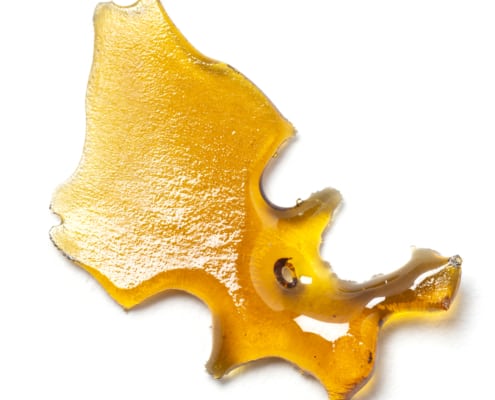 https://essencevegas.com/wp-content/uploads/2018/08/Cannavative_Black-Cherry-SodaSHatter.jpg
2048
2048
[email protected]
https://essencevegas.com/wp-content/uploads/2021/02/Essence-Cannabis-Dispensary-Logo.png
[email protected]2018-08-07 10:52:572020-09-08 14:11:01Cannavative – Black Cherry Soda
https://essencevegas.com/wp-content/uploads/2018/08/Cannavative_Black-Cherry-SodaSHatter.jpg
2048
2048
[email protected]
https://essencevegas.com/wp-content/uploads/2021/02/Essence-Cannabis-Dispensary-Logo.png
[email protected]2018-08-07 10:52:572020-09-08 14:11:01Cannavative – Black Cherry Soda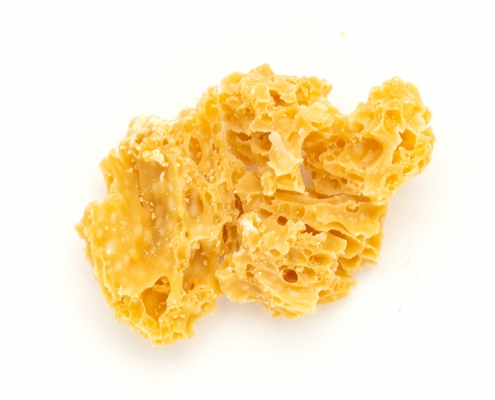 https://essencevegas.com/wp-content/uploads/2019/05/Cannavative-Honeycomb-Black-Cherry-Soda.jpg
800
800
[email protected]
https://essencevegas.com/wp-content/uploads/2021/02/Essence-Cannabis-Dispensary-Logo.png
[email protected]2019-05-02 11:04:242021-05-27 06:05:44Cannavative – Black Cherry Soda Honeycomb
https://essencevegas.com/wp-content/uploads/2019/05/Cannavative-Honeycomb-Black-Cherry-Soda.jpg
800
800
[email protected]
https://essencevegas.com/wp-content/uploads/2021/02/Essence-Cannabis-Dispensary-Logo.png
[email protected]2019-05-02 11:04:242021-05-27 06:05:44Cannavative – Black Cherry Soda Honeycomb https://essencevegas.com/wp-content/uploads/2018/12/TCVG-Black-Cherry-Soda-Motivator.jpg
800
800
[email protected]
https://essencevegas.com/wp-content/uploads/2021/02/Essence-Cannabis-Dispensary-Logo.png
[email protected]2018-12-19 16:34:232021-06-11 00:53:37Cannavative – Black Cherry Soda Motivator
https://essencevegas.com/wp-content/uploads/2018/12/TCVG-Black-Cherry-Soda-Motivator.jpg
800
800
[email protected]
https://essencevegas.com/wp-content/uploads/2021/02/Essence-Cannabis-Dispensary-Logo.png
[email protected]2018-12-19 16:34:232021-06-11 00:53:37Cannavative – Black Cherry Soda Motivator https://essencevegas.com/wp-content/uploads/2018/08/Cannavative-Bruce-Banner-Shatter.jpg
800
800
[email protected]
https://essencevegas.com/wp-content/uploads/2021/02/Essence-Cannabis-Dispensary-Logo.png
[email protected]2018-08-09 10:40:422021-05-27 06:07:25Cannavative – Bruce Banner Shatter
https://essencevegas.com/wp-content/uploads/2018/08/Cannavative-Bruce-Banner-Shatter.jpg
800
800
[email protected]
https://essencevegas.com/wp-content/uploads/2021/02/Essence-Cannabis-Dispensary-Logo.png
[email protected]2018-08-09 10:40:422021-05-27 06:07:25Cannavative – Bruce Banner Shatter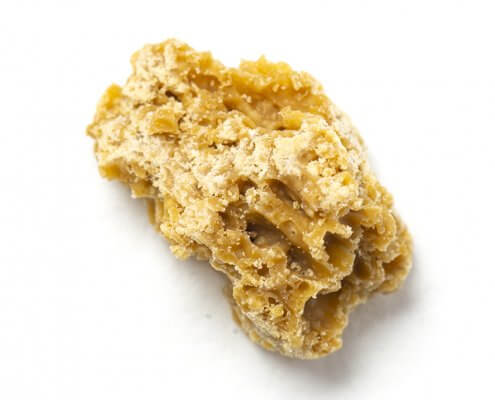 https://essencevegas.com/wp-content/uploads/2018/08/TCVG-Double-Dream-Honeycomb.jpg
800
800
[email protected]
https://essencevegas.com/wp-content/uploads/2021/02/Essence-Cannabis-Dispensary-Logo.png
[email protected]2018-08-09 12:27:022021-06-03 07:31:23Cannavative – Double Dream Honeycomb
https://essencevegas.com/wp-content/uploads/2018/08/TCVG-Double-Dream-Honeycomb.jpg
800
800
[email protected]
https://essencevegas.com/wp-content/uploads/2021/02/Essence-Cannabis-Dispensary-Logo.png
[email protected]2018-08-09 12:27:022021-06-03 07:31:23Cannavative – Double Dream Honeycomb https://essencevegas.com/wp-content/uploads/2018/08/Cannavative_Double-Dream-Shatter.jpg
2048
2048
[email protected]
https://essencevegas.com/wp-content/uploads/2021/02/Essence-Cannabis-Dispensary-Logo.png
[email protected]2018-08-07 12:25:332021-05-27 06:08:31Cannavative – Double Dream Shatter
https://essencevegas.com/wp-content/uploads/2018/08/Cannavative_Double-Dream-Shatter.jpg
2048
2048
[email protected]
https://essencevegas.com/wp-content/uploads/2021/02/Essence-Cannabis-Dispensary-Logo.png
[email protected]2018-08-07 12:25:332021-05-27 06:08:31Cannavative – Double Dream Shatter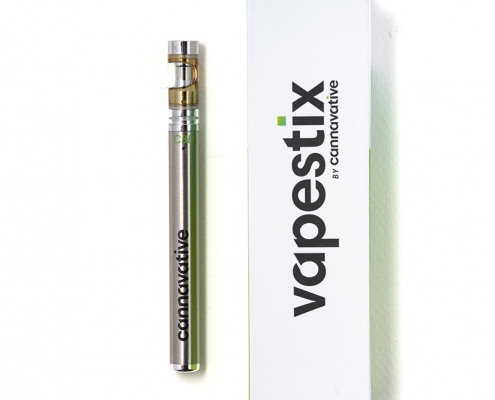 https://essencevegas.com/wp-content/uploads/2018/08/Cannavative-GTO-Vapestix.jpg
800
800
[email protected]
https://essencevegas.com/wp-content/uploads/2021/02/Essence-Cannabis-Dispensary-Logo.png
[email protected]2018-08-17 14:50:282021-06-25 03:52:27Cannavative – GTO Vapestix
https://essencevegas.com/wp-content/uploads/2018/08/Cannavative-GTO-Vapestix.jpg
800
800
[email protected]
https://essencevegas.com/wp-content/uploads/2021/02/Essence-Cannabis-Dispensary-Logo.png
[email protected]2018-08-17 14:50:282021-06-25 03:52:27Cannavative – GTO Vapestix https://essencevegas.com/wp-content/uploads/2018/12/TCVG-Indica-Gummiez.jpg
800
800
[email protected]
https://essencevegas.com/wp-content/uploads/2021/02/Essence-Cannabis-Dispensary-Logo.png
[email protected]2018-12-27 11:48:192019-04-01 14:51:43Cannavative – Indica Gummiez
https://essencevegas.com/wp-content/uploads/2018/12/TCVG-Indica-Gummiez.jpg
800
800
[email protected]
https://essencevegas.com/wp-content/uploads/2021/02/Essence-Cannabis-Dispensary-Logo.png
[email protected]2018-12-27 11:48:192019-04-01 14:51:43Cannavative – Indica Gummiez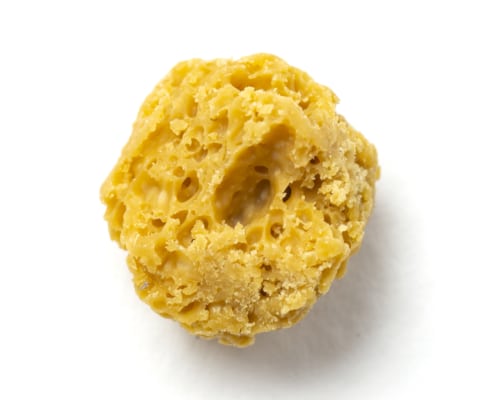 https://essencevegas.com/wp-content/uploads/2018/08/Cannavative_Jillybean-Honeycomb.jpg
2048
2048
[email protected]
https://essencevegas.com/wp-content/uploads/2021/02/Essence-Cannabis-Dispensary-Logo.png
[email protected]2018-08-08 14:06:282020-09-08 14:11:44Cannavative – Jilly Bean Honeycomb
https://essencevegas.com/wp-content/uploads/2018/08/Cannavative_Jillybean-Honeycomb.jpg
2048
2048
[email protected]
https://essencevegas.com/wp-content/uploads/2021/02/Essence-Cannabis-Dispensary-Logo.png
[email protected]2018-08-08 14:06:282020-09-08 14:11:44Cannavative – Jilly Bean Honeycomb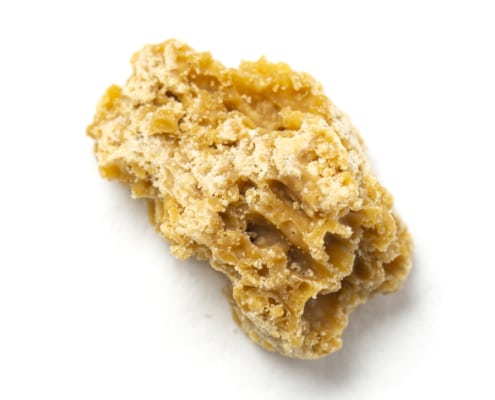 https://essencevegas.com/wp-content/uploads/2018/08/Cannavative_Double-Dream-Honeycomb.jpg
900
900
[email protected]
https://essencevegas.com/wp-content/uploads/2021/02/Essence-Cannabis-Dispensary-Logo.png
[email protected]2018-08-09 12:12:322021-05-27 06:13:18Cannavative – Jilly Pop Honeycomb
https://essencevegas.com/wp-content/uploads/2018/08/Cannavative_Double-Dream-Honeycomb.jpg
900
900
[email protected]
https://essencevegas.com/wp-content/uploads/2021/02/Essence-Cannabis-Dispensary-Logo.png
[email protected]2018-08-09 12:12:322021-05-27 06:13:18Cannavative – Jilly Pop Honeycomb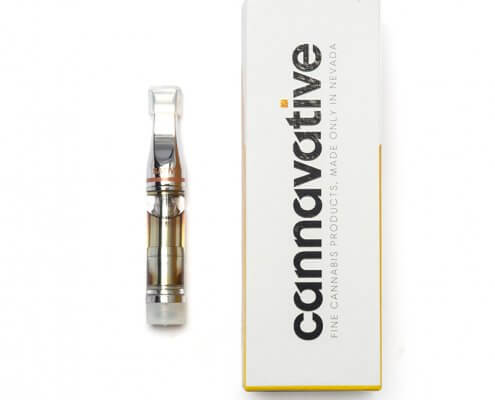 https://essencevegas.com/wp-content/uploads/2018/12/TCVG-Live-Clear-Cartridge.jpg
800
800
[email protected]
https://essencevegas.com/wp-content/uploads/2021/02/Essence-Cannabis-Dispensary-Logo.png
[email protected]2018-12-28 11:30:482020-09-08 02:15:43Cannavative – Live Clear Cartridge
https://essencevegas.com/wp-content/uploads/2018/12/TCVG-Live-Clear-Cartridge.jpg
800
800
[email protected]
https://essencevegas.com/wp-content/uploads/2021/02/Essence-Cannabis-Dispensary-Logo.png
[email protected]2018-12-28 11:30:482020-09-08 02:15:43Cannavative – Live Clear Cartridge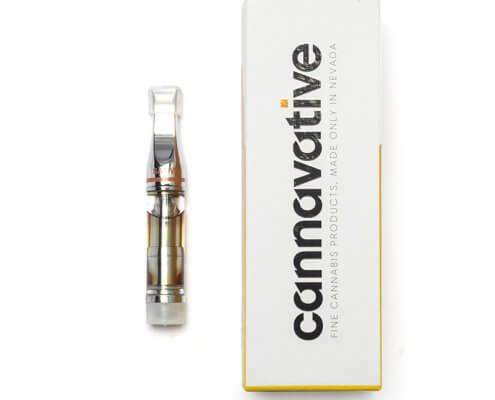 https://essencevegas.com/wp-content/uploads/2018/12/TCVG-Live-Clear-Cartridge-1.jpg
800
800
[email protected]
https://essencevegas.com/wp-content/uploads/2021/02/Essence-Cannabis-Dispensary-Logo.png
[email protected]2018-12-28 11:10:202021-06-25 06:23:57Cannavative – Live Clear Cartridge – Tangie Power
https://essencevegas.com/wp-content/uploads/2018/12/TCVG-Live-Clear-Cartridge-1.jpg
800
800
[email protected]
https://essencevegas.com/wp-content/uploads/2021/02/Essence-Cannabis-Dispensary-Logo.png
[email protected]2018-12-28 11:10:202021-06-25 06:23:57Cannavative – Live Clear Cartridge – Tangie Power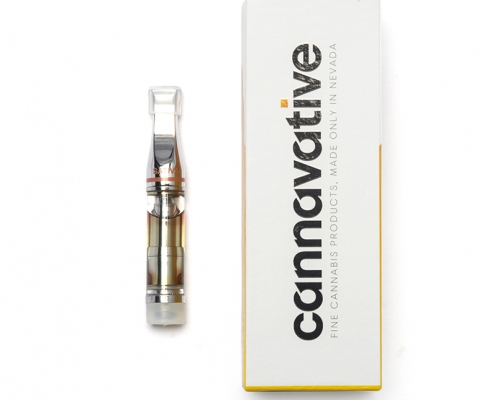 https://essencevegas.com/wp-content/uploads/2018/11/Cannavative-Live-Clear-Tangie-Cartridge.jpg
800
800
[email protected]
https://essencevegas.com/wp-content/uploads/2021/02/Essence-Cannabis-Dispensary-Logo.png
[email protected]2018-11-21 15:16:392020-09-08 14:53:46Cannavative – Live Clear Tangie Cartridge
https://essencevegas.com/wp-content/uploads/2018/11/Cannavative-Live-Clear-Tangie-Cartridge.jpg
800
800
[email protected]
https://essencevegas.com/wp-content/uploads/2021/02/Essence-Cannabis-Dispensary-Logo.png
[email protected]2018-11-21 15:16:392020-09-08 14:53:46Cannavative – Live Clear Tangie Cartridge https://essencevegas.com/wp-content/uploads/2018/08/TCVG-Mango-Kush-Honeycomb.jpg
800
800
[email protected]
https://essencevegas.com/wp-content/uploads/2021/02/Essence-Cannabis-Dispensary-Logo.png
[email protected]2018-08-09 13:35:082021-09-29 06:47:39Cannavative – Mango Kush Honeycomb
https://essencevegas.com/wp-content/uploads/2018/08/TCVG-Mango-Kush-Honeycomb.jpg
800
800
[email protected]
https://essencevegas.com/wp-content/uploads/2021/02/Essence-Cannabis-Dispensary-Logo.png
[email protected]2018-08-09 13:35:082021-09-29 06:47:39Cannavative – Mango Kush Honeycomb https://essencevegas.com/wp-content/uploads/2018/08/Cannavative_Melon-Drop-Honeycomb.jpg
2048
2048
[email protected]
https://essencevegas.com/wp-content/uploads/2021/02/Essence-Cannabis-Dispensary-Logo.png
[email protected]2018-08-07 11:11:482020-09-08 00:50:21Cannavative – Melon Drop Honeycomb
https://essencevegas.com/wp-content/uploads/2018/08/Cannavative_Melon-Drop-Honeycomb.jpg
2048
2048
[email protected]
https://essencevegas.com/wp-content/uploads/2021/02/Essence-Cannabis-Dispensary-Logo.png
[email protected]2018-08-07 11:11:482020-09-08 00:50:21Cannavative – Melon Drop Honeycomb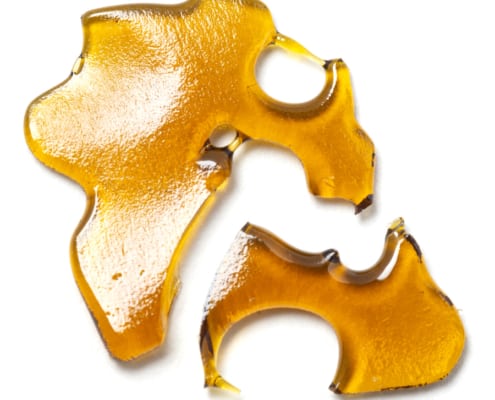 https://essencevegas.com/wp-content/uploads/2018/08/Cannavative_MTF-Shatter.jpg
900
900
[email protected]
https://essencevegas.com/wp-content/uploads/2021/02/Essence-Cannabis-Dispensary-Logo.png
[email protected]2018-08-08 14:40:352021-05-27 06:14:32Cannavative – MTF Shatter (aka Matanuska Thunder F*ck)
https://essencevegas.com/wp-content/uploads/2018/08/Cannavative_MTF-Shatter.jpg
900
900
[email protected]
https://essencevegas.com/wp-content/uploads/2021/02/Essence-Cannabis-Dispensary-Logo.png
[email protected]2018-08-08 14:40:352021-05-27 06:14:32Cannavative – MTF Shatter (aka Matanuska Thunder F*ck)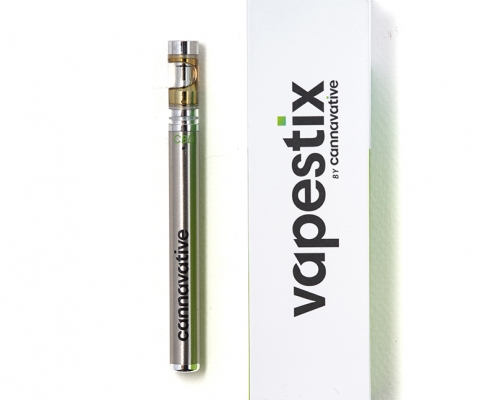 https://essencevegas.com/wp-content/uploads/2018/08/Cannavative-MTF-Vapestick-1.jpg
800
800
[email protected]
https://essencevegas.com/wp-content/uploads/2021/02/Essence-Cannabis-Dispensary-Logo.png
[email protected]2018-08-23 16:08:302020-09-08 16:01:21Cannavative – MTF Vapestick
https://essencevegas.com/wp-content/uploads/2018/08/Cannavative-MTF-Vapestick-1.jpg
800
800
[email protected]
https://essencevegas.com/wp-content/uploads/2021/02/Essence-Cannabis-Dispensary-Logo.png
[email protected]2018-08-23 16:08:302020-09-08 16:01:21Cannavative – MTF Vapestick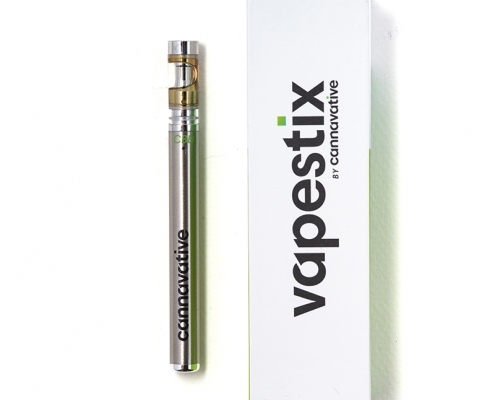 https://essencevegas.com/wp-content/uploads/2018/08/Cannavative-Shishkaberry-Disposable-Vape-Pen.jpg
800
800
[email protected]
https://essencevegas.com/wp-content/uploads/2021/02/Essence-Cannabis-Dispensary-Logo.png
[email protected]2018-08-28 11:02:532021-06-25 03:55:31Cannavative – Shishkaberry Disposable Vape Pen
https://essencevegas.com/wp-content/uploads/2018/08/Cannavative-Shishkaberry-Disposable-Vape-Pen.jpg
800
800
[email protected]
https://essencevegas.com/wp-content/uploads/2021/02/Essence-Cannabis-Dispensary-Logo.png
[email protected]2018-08-28 11:02:532021-06-25 03:55:31Cannavative – Shishkaberry Disposable Vape Pen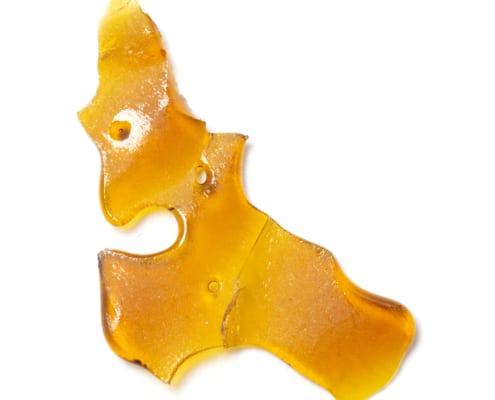 https://essencevegas.com/wp-content/uploads/2018/08/Cannavative_Shishkaberry-Shatter.jpg
2048
2048
[email protected]
https://essencevegas.com/wp-content/uploads/2021/02/Essence-Cannabis-Dispensary-Logo.png
[email protected]2018-08-07 12:10:542020-09-08 02:20:14Cannavative – Shishkaberry Shatter
https://essencevegas.com/wp-content/uploads/2018/08/Cannavative_Shishkaberry-Shatter.jpg
2048
2048
[email protected]
https://essencevegas.com/wp-content/uploads/2021/02/Essence-Cannabis-Dispensary-Logo.png
[email protected]2018-08-07 12:10:542020-09-08 02:20:14Cannavative – Shishkaberry Shatter https://essencevegas.com/wp-content/uploads/2018/08/Cannavative-Shortbread-Cookies-1.jpg
800
800
[email protected]
https://essencevegas.com/wp-content/uploads/2021/02/Essence-Cannabis-Dispensary-Logo.png
[email protected]2018-08-09 14:22:052021-05-27 06:22:35Cannavative – Shortbread Cookies
https://essencevegas.com/wp-content/uploads/2018/08/Cannavative-Shortbread-Cookies-1.jpg
800
800
[email protected]
https://essencevegas.com/wp-content/uploads/2021/02/Essence-Cannabis-Dispensary-Logo.png
[email protected]2018-08-09 14:22:052021-05-27 06:22:35Cannavative – Shortbread Cookies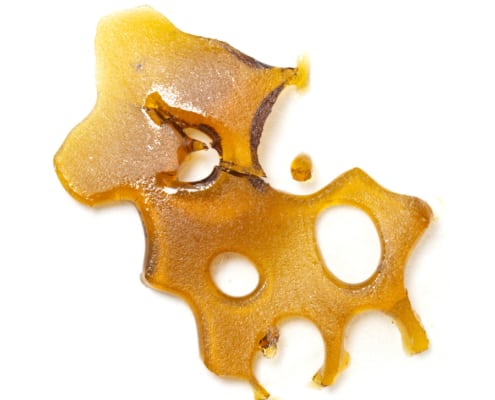 https://essencevegas.com/wp-content/uploads/2018/08/Cannavative_Shortbread-Cookies.jpg
900
900
[email protected]
https://essencevegas.com/wp-content/uploads/2021/02/Essence-Cannabis-Dispensary-Logo.png
[email protected]2018-08-08 14:49:552020-09-08 02:18:13Cannavative – Shortbread Cookies Shatter
https://essencevegas.com/wp-content/uploads/2018/08/Cannavative_Shortbread-Cookies.jpg
900
900
[email protected]
https://essencevegas.com/wp-content/uploads/2021/02/Essence-Cannabis-Dispensary-Logo.png
[email protected]2018-08-08 14:49:552020-09-08 02:18:13Cannavative – Shortbread Cookies Shatter https://essencevegas.com/wp-content/uploads/2018/12/TCVG-Tangie-Motivator.jpg
800
800
[email protected]
https://essencevegas.com/wp-content/uploads/2021/02/Essence-Cannabis-Dispensary-Logo.png
[email protected]2018-12-19 16:42:432021-06-11 00:55:31Cannavative – Tangie Motivator
https://essencevegas.com/wp-content/uploads/2018/12/TCVG-Tangie-Motivator.jpg
800
800
[email protected]
https://essencevegas.com/wp-content/uploads/2021/02/Essence-Cannabis-Dispensary-Logo.png
[email protected]2018-12-19 16:42:432021-06-11 00:55:31Cannavative – Tangie Motivator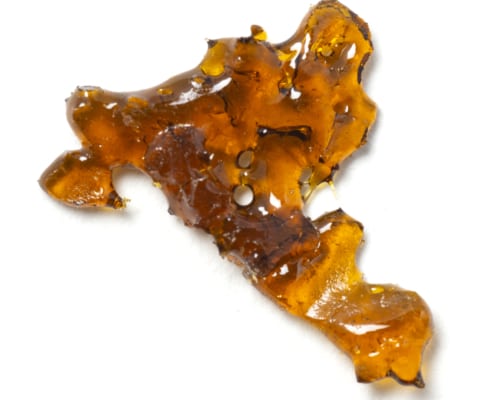 https://essencevegas.com/wp-content/uploads/2018/08/Cannavative_Vanilla-Kush-Shatter.jpg
2048
2048
[email protected]
https://essencevegas.com/wp-content/uploads/2021/02/Essence-Cannabis-Dispensary-Logo.png
[email protected]2018-08-08 09:05:232021-05-27 06:24:32Cannavative – Vanilla Kush Shatter
https://essencevegas.com/wp-content/uploads/2018/08/Cannavative_Vanilla-Kush-Shatter.jpg
2048
2048
[email protected]
https://essencevegas.com/wp-content/uploads/2021/02/Essence-Cannabis-Dispensary-Logo.png
[email protected]2018-08-08 09:05:232021-05-27 06:24:32Cannavative – Vanilla Kush Shatter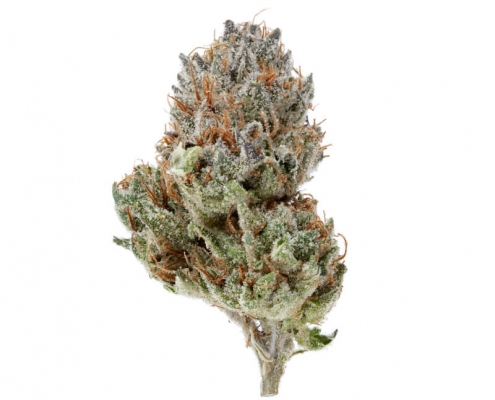 https://essencevegas.com/wp-content/uploads/2019/02/Cannabiotix_Kush-Moutains.jpg
800
800
[email protected]
https://essencevegas.com/wp-content/uploads/2021/02/Essence-Cannabis-Dispensary-Logo.png
[email protected]2019-02-15 17:26:292021-05-18 12:40:54CBX – Kush Mountains
https://essencevegas.com/wp-content/uploads/2019/02/Cannabiotix_Kush-Moutains.jpg
800
800
[email protected]
https://essencevegas.com/wp-content/uploads/2021/02/Essence-Cannabis-Dispensary-Logo.png
[email protected]2019-02-15 17:26:292021-05-18 12:40:54CBX – Kush Mountains https://essencevegas.com/wp-content/uploads/2018/08/Provisions-Banana-Kush-Disposable-Vape-Pen-1.jpg
800
800
[email protected]
https://essencevegas.com/wp-content/uploads/2021/02/Essence-Cannabis-Dispensary-Logo.png
[email protected]2018-08-31 12:06:522021-06-25 03:57:58City Trees – Banana Kush Disposable Vape Pen
https://essencevegas.com/wp-content/uploads/2018/08/Provisions-Banana-Kush-Disposable-Vape-Pen-1.jpg
800
800
[email protected]
https://essencevegas.com/wp-content/uploads/2021/02/Essence-Cannabis-Dispensary-Logo.png
[email protected]2018-08-31 12:06:522021-06-25 03:57:58City Trees – Banana Kush Disposable Vape Pen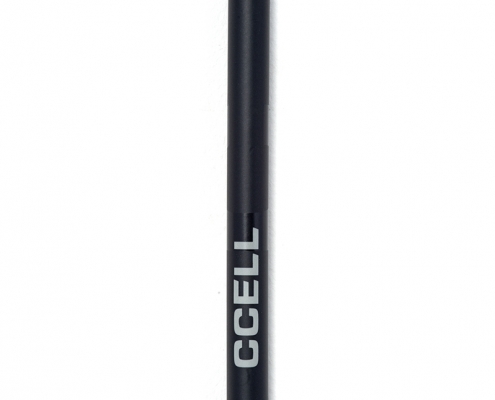 https://essencevegas.com/wp-content/uploads/2018/08/City-Trees-Clementine-Disposable-Vape-Pen.jpg
800
800
[email protected]
https://essencevegas.com/wp-content/uploads/2021/02/Essence-Cannabis-Dispensary-Logo.png
[email protected]2018-08-28 09:47:022021-06-25 04:00:42City Trees – Clementine Disposable Vape Pen
https://essencevegas.com/wp-content/uploads/2018/08/City-Trees-Clementine-Disposable-Vape-Pen.jpg
800
800
[email protected]
https://essencevegas.com/wp-content/uploads/2021/02/Essence-Cannabis-Dispensary-Logo.png
[email protected]2018-08-28 09:47:022021-06-25 04:00:42City Trees – Clementine Disposable Vape Pen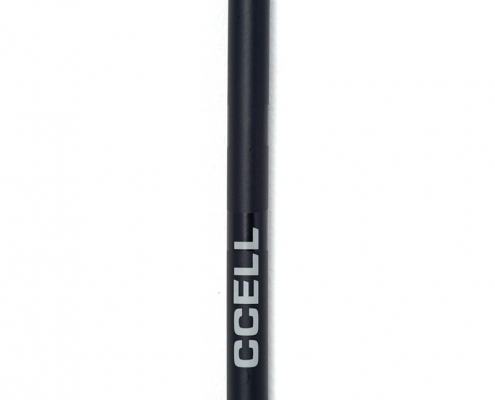 https://essencevegas.com/wp-content/uploads/2018/08/City-Trees-Pain-Disposable-Vape-Pen.jpg
800
800
[email protected]
https://essencevegas.com/wp-content/uploads/2021/02/Essence-Cannabis-Dispensary-Logo.png
[email protected]2018-08-31 12:16:492020-09-08 15:47:01City Trees – Pain Disposable Vape Pen
https://essencevegas.com/wp-content/uploads/2018/08/City-Trees-Pain-Disposable-Vape-Pen.jpg
800
800
[email protected]
https://essencevegas.com/wp-content/uploads/2021/02/Essence-Cannabis-Dispensary-Logo.png
[email protected]2018-08-31 12:16:492020-09-08 15:47:01City Trees – Pain Disposable Vape Pen https://essencevegas.com/wp-content/uploads/2018/08/CityTrees_Vape.jpg
900
900
[email protected]
https://essencevegas.com/wp-content/uploads/2021/02/Essence-Cannabis-Dispensary-Logo.png
[email protected]2018-08-24 16:23:052021-06-25 04:02:57City Trees – Relax Disposable Vape Pen
https://essencevegas.com/wp-content/uploads/2018/08/CityTrees_Vape.jpg
900
900
[email protected]
https://essencevegas.com/wp-content/uploads/2021/02/Essence-Cannabis-Dispensary-Logo.png
[email protected]2018-08-24 16:23:052021-06-25 04:02:57City Trees – Relax Disposable Vape Pen https://essencevegas.com/wp-content/uploads/2018/12/Cultivationlabs_JennyKush.jpg
800
800
[email protected]
https://essencevegas.com/wp-content/uploads/2021/02/Essence-Cannabis-Dispensary-Logo.png
[email protected]2018-12-28 14:57:012020-09-08 01:55:40Cultivation Labs – Jenny Kush Pre-Roll
https://essencevegas.com/wp-content/uploads/2018/12/Cultivationlabs_JennyKush.jpg
800
800
[email protected]
https://essencevegas.com/wp-content/uploads/2021/02/Essence-Cannabis-Dispensary-Logo.png
[email protected]2018-12-28 14:57:012020-09-08 01:55:40Cultivation Labs – Jenny Kush Pre-Roll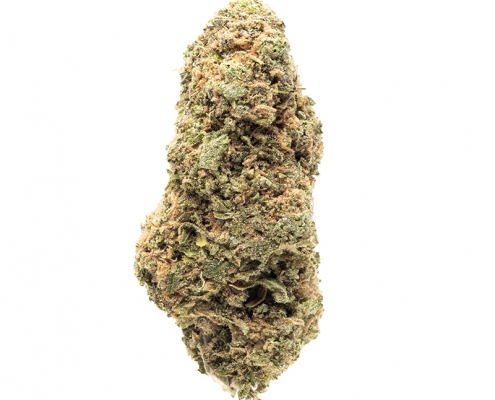 https://essencevegas.com/wp-content/uploads/2018/12/GB-Pineapple-Express.jpg
800
800
[email protected]
https://essencevegas.com/wp-content/uploads/2021/02/Essence-Cannabis-Dispensary-Logo.png
[email protected]2018-12-19 10:20:592021-05-20 07:16:39Cultivation Labs – Pineapple Express
https://essencevegas.com/wp-content/uploads/2018/12/GB-Pineapple-Express.jpg
800
800
[email protected]
https://essencevegas.com/wp-content/uploads/2021/02/Essence-Cannabis-Dispensary-Logo.png
[email protected]2018-12-19 10:20:592021-05-20 07:16:39Cultivation Labs – Pineapple Express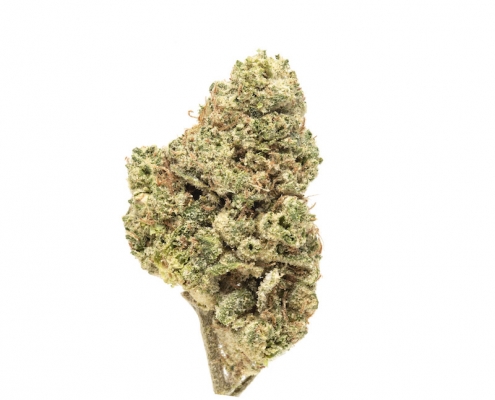 https://essencevegas.com/wp-content/uploads/2019/02/CultivationsLabs_SpaceCake.jpg
800
800
[email protected]
https://essencevegas.com/wp-content/uploads/2021/02/Essence-Cannabis-Dispensary-Logo.png
[email protected]2019-02-18 12:15:252021-05-18 12:49:05Cultivation Labs – Space Cake
https://essencevegas.com/wp-content/uploads/2019/02/CultivationsLabs_SpaceCake.jpg
800
800
[email protected]
https://essencevegas.com/wp-content/uploads/2021/02/Essence-Cannabis-Dispensary-Logo.png
[email protected]2019-02-18 12:15:252021-05-18 12:49:05Cultivation Labs – Space Cake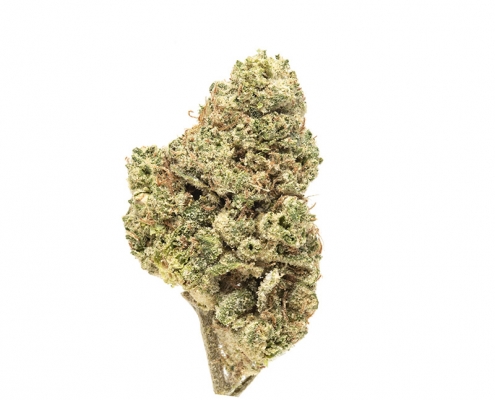 https://essencevegas.com/wp-content/uploads/2018/12/GB-Space-Cake.jpg
800
800
[email protected]
https://essencevegas.com/wp-content/uploads/2021/02/Essence-Cannabis-Dispensary-Logo.png
[email protected]2018-12-19 10:44:532021-05-20 07:19:16Cultivation Labs – Space Cake
https://essencevegas.com/wp-content/uploads/2018/12/GB-Space-Cake.jpg
800
800
[email protected]
https://essencevegas.com/wp-content/uploads/2021/02/Essence-Cannabis-Dispensary-Logo.png
[email protected]2018-12-19 10:44:532021-05-20 07:19:16Cultivation Labs – Space Cake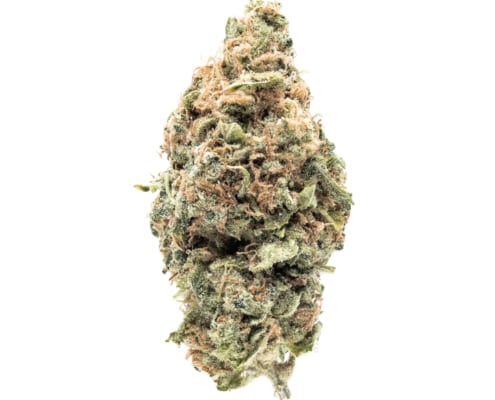 https://essencevegas.com/wp-content/uploads/2018/07/JennyKush.jpg
1200
1200
[email protected]
https://essencevegas.com/wp-content/uploads/2021/02/Essence-Cannabis-Dispensary-Logo.png
[email protected]2018-07-24 11:09:262021-05-20 05:23:36Cultivations Labs – Jenny Kush
https://essencevegas.com/wp-content/uploads/2018/07/JennyKush.jpg
1200
1200
[email protected]
https://essencevegas.com/wp-content/uploads/2021/02/Essence-Cannabis-Dispensary-Logo.png
[email protected]2018-07-24 11:09:262021-05-20 05:23:36Cultivations Labs – Jenny Kush https://essencevegas.com/wp-content/uploads/2018/10/Deep-Roots-Harvest-CBD-Cheeba-Chews.jpg
800
800
[email protected]
https://essencevegas.com/wp-content/uploads/2021/02/Essence-Cannabis-Dispensary-Logo.png
[email protected]2018-10-05 14:49:002021-06-07 10:54:10Deep Roots Harvest – CBD Cheeba Chews
https://essencevegas.com/wp-content/uploads/2018/10/Deep-Roots-Harvest-CBD-Cheeba-Chews.jpg
800
800
[email protected]
https://essencevegas.com/wp-content/uploads/2021/02/Essence-Cannabis-Dispensary-Logo.png
[email protected]2018-10-05 14:49:002021-06-07 10:54:10Deep Roots Harvest – CBD Cheeba Chews https://essencevegas.com/wp-content/uploads/2018/10/Deep-Roots-Harvest-Cheeba-Chews-Hybrids.jpg
800
800
[email protected]
https://essencevegas.com/wp-content/uploads/2021/02/Essence-Cannabis-Dispensary-Logo.png
[email protected]2018-10-12 16:46:262021-06-07 10:56:24Deep Roots Harvest – Cheeba Chews Hybrids
https://essencevegas.com/wp-content/uploads/2018/10/Deep-Roots-Harvest-Cheeba-Chews-Hybrids.jpg
800
800
[email protected]
https://essencevegas.com/wp-content/uploads/2021/02/Essence-Cannabis-Dispensary-Logo.png
[email protected]2018-10-12 16:46:262021-06-07 10:56:24Deep Roots Harvest – Cheeba Chews Hybrids https://essencevegas.com/wp-content/uploads/2018/10/Deep-Roots-Harvest-Cinnamon-Chillers.jpg
800
800
[email protected]
https://essencevegas.com/wp-content/uploads/2021/02/Essence-Cannabis-Dispensary-Logo.png
[email protected]2018-10-11 12:04:132021-06-07 10:57:41Deep Roots Harvest – Cinnamon Chillers
https://essencevegas.com/wp-content/uploads/2018/10/Deep-Roots-Harvest-Cinnamon-Chillers.jpg
800
800
[email protected]
https://essencevegas.com/wp-content/uploads/2021/02/Essence-Cannabis-Dispensary-Logo.png
[email protected]2018-10-11 12:04:132021-06-07 10:57:41Deep Roots Harvest – Cinnamon Chillers https://essencevegas.com/wp-content/uploads/2018/12/Deep-Roots-Harvest-Helix-Twist-Key-Lime-Gummies.jpg
800
800
[email protected]
https://essencevegas.com/wp-content/uploads/2021/02/Essence-Cannabis-Dispensary-Logo.png
[email protected]2018-12-26 15:46:292021-06-07 10:59:06Deep Roots Harvest – Helix Twist Key Lime Gummies
https://essencevegas.com/wp-content/uploads/2018/12/Deep-Roots-Harvest-Helix-Twist-Key-Lime-Gummies.jpg
800
800
[email protected]
https://essencevegas.com/wp-content/uploads/2021/02/Essence-Cannabis-Dispensary-Logo.png
[email protected]2018-12-26 15:46:292021-06-07 10:59:06Deep Roots Harvest – Helix Twist Key Lime Gummies https://essencevegas.com/wp-content/uploads/2018/06/knowledgebase-default.jpg
400
495
[email protected]
https://essencevegas.com/wp-content/uploads/2021/02/Essence-Cannabis-Dispensary-Logo.png
[email protected]2018-12-26 16:28:002020-09-08 00:51:19Deep Roots Harvest – Helix Twist Sour Cherry Gummies
https://essencevegas.com/wp-content/uploads/2018/06/knowledgebase-default.jpg
400
495
[email protected]
https://essencevegas.com/wp-content/uploads/2021/02/Essence-Cannabis-Dispensary-Logo.png
[email protected]2018-12-26 16:28:002020-09-08 00:51:19Deep Roots Harvest – Helix Twist Sour Cherry Gummies https://essencevegas.com/wp-content/uploads/2018/10/Deep-Roots-Harvest-Lemon-Chillers.jpg
800
800
[email protected]
https://essencevegas.com/wp-content/uploads/2021/02/Essence-Cannabis-Dispensary-Logo.png
[email protected]2018-10-11 13:55:082021-06-07 11:01:28Deep Roots Harvest – Lemon Chillers
https://essencevegas.com/wp-content/uploads/2018/10/Deep-Roots-Harvest-Lemon-Chillers.jpg
800
800
[email protected]
https://essencevegas.com/wp-content/uploads/2021/02/Essence-Cannabis-Dispensary-Logo.png
[email protected]2018-10-11 13:55:082021-06-07 11:01:28Deep Roots Harvest – Lemon Chillers https://essencevegas.com/wp-content/uploads/2018/10/Chillers_Watermelon.jpg
800
800
[email protected]
https://essencevegas.com/wp-content/uploads/2021/02/Essence-Cannabis-Dispensary-Logo.png
[email protected]2018-10-11 11:03:412021-06-08 02:39:46Deep Roots Harvest – Watermelon Chillers
https://essencevegas.com/wp-content/uploads/2018/10/Chillers_Watermelon.jpg
800
800
[email protected]
https://essencevegas.com/wp-content/uploads/2021/02/Essence-Cannabis-Dispensary-Logo.png
[email protected]2018-10-11 11:03:412021-06-08 02:39:46Deep Roots Harvest – Watermelon Chillers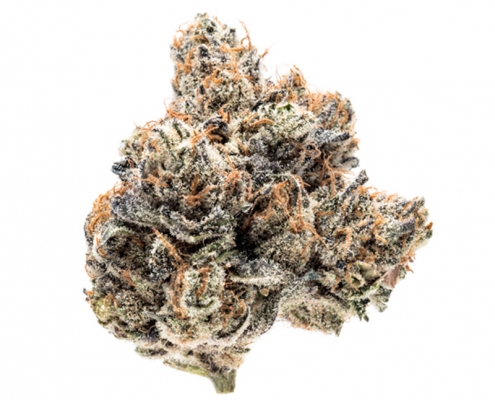 https://essencevegas.com/wp-content/uploads/2018/05/Desert-Grown-Farms-Black-Afghan.jpg
800
800
[email protected]
https://essencevegas.com/wp-content/uploads/2021/02/Essence-Cannabis-Dispensary-Logo.png
[email protected]2018-05-23 14:23:472021-03-26 08:18:07Desert Grown Farms – Black Afghan
https://essencevegas.com/wp-content/uploads/2018/05/Desert-Grown-Farms-Black-Afghan.jpg
800
800
[email protected]
https://essencevegas.com/wp-content/uploads/2021/02/Essence-Cannabis-Dispensary-Logo.png
[email protected]2018-05-23 14:23:472021-03-26 08:18:07Desert Grown Farms – Black Afghan https://essencevegas.com/wp-content/uploads/2021/02/Essence-Cannabis-Dispensary-Logo.png
0
0
[email protected]
https://essencevegas.com/wp-content/uploads/2021/02/Essence-Cannabis-Dispensary-Logo.png
[email protected]2021-03-26 04:01:402021-05-18 12:55:36Desert Grown Farms – Bruce Banner 2.0 #1
https://essencevegas.com/wp-content/uploads/2021/02/Essence-Cannabis-Dispensary-Logo.png
0
0
[email protected]
https://essencevegas.com/wp-content/uploads/2021/02/Essence-Cannabis-Dispensary-Logo.png
[email protected]2021-03-26 04:01:402021-05-18 12:55:36Desert Grown Farms – Bruce Banner 2.0 #1 https://essencevegas.com/wp-content/uploads/2018/06/knowledgebase-default.jpg
400
495
[email protected]
https://essencevegas.com/wp-content/uploads/2021/02/Essence-Cannabis-Dispensary-Logo.png
[email protected]2021-03-26 04:00:112021-05-20 13:05:44Desert Grown Farms – Bruce Banner 2.0 #3
https://essencevegas.com/wp-content/uploads/2018/06/knowledgebase-default.jpg
400
495
[email protected]
https://essencevegas.com/wp-content/uploads/2021/02/Essence-Cannabis-Dispensary-Logo.png
[email protected]2021-03-26 04:00:112021-05-20 13:05:44Desert Grown Farms – Bruce Banner 2.0 #3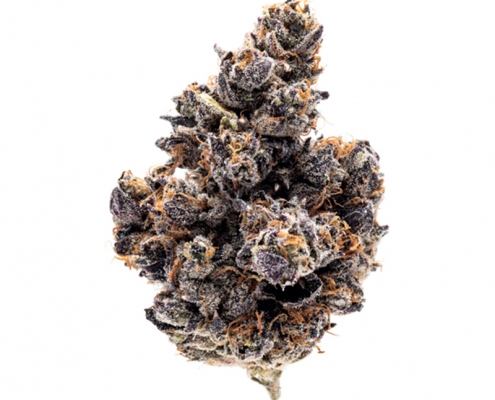 https://essencevegas.com/wp-content/uploads/2018/05/Desert-Grown-Farms-Cookie-Face.jpg
800
800
[email protected]
https://essencevegas.com/wp-content/uploads/2021/02/Essence-Cannabis-Dispensary-Logo.png
[email protected]2018-05-24 16:52:122021-03-26 08:18:00Desert Grown Farms – Cookie Face
https://essencevegas.com/wp-content/uploads/2018/05/Desert-Grown-Farms-Cookie-Face.jpg
800
800
[email protected]
https://essencevegas.com/wp-content/uploads/2021/02/Essence-Cannabis-Dispensary-Logo.png
[email protected]2018-05-24 16:52:122021-03-26 08:18:00Desert Grown Farms – Cookie Face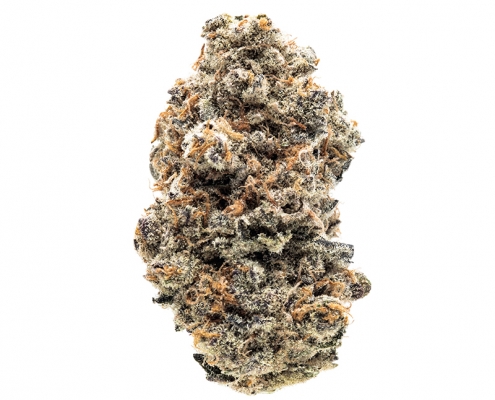 https://essencevegas.com/wp-content/uploads/2018/05/Desert-Grown-Farms-Desert-Grown-Cookies.jpg
800
800
[email protected]
https://essencevegas.com/wp-content/uploads/2021/02/Essence-Cannabis-Dispensary-Logo.png
[email protected]2018-05-24 17:01:552021-03-26 05:38:46Desert Grown Farms – Dayglow
https://essencevegas.com/wp-content/uploads/2018/05/Desert-Grown-Farms-Desert-Grown-Cookies.jpg
800
800
[email protected]
https://essencevegas.com/wp-content/uploads/2021/02/Essence-Cannabis-Dispensary-Logo.png
[email protected]2018-05-24 17:01:552021-03-26 05:38:46Desert Grown Farms – Dayglow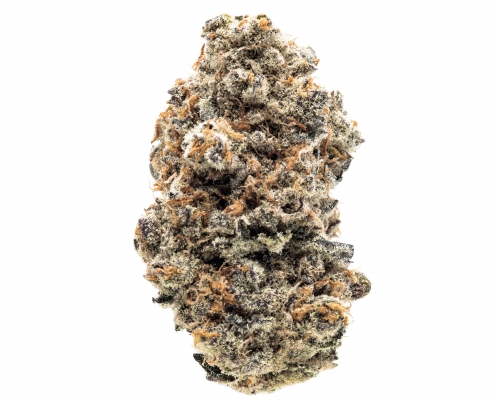 https://essencevegas.com/wp-content/uploads/2018/05/DGF_DesertgrownCookies.jpg
4203
4204
[email protected]
https://essencevegas.com/wp-content/uploads/2021/02/Essence-Cannabis-Dispensary-Logo.png
[email protected]2018-05-24 16:54:462021-03-26 08:16:25Desert Grown Farms – Desert Grown Cookies
https://essencevegas.com/wp-content/uploads/2018/05/DGF_DesertgrownCookies.jpg
4203
4204
[email protected]
https://essencevegas.com/wp-content/uploads/2021/02/Essence-Cannabis-Dispensary-Logo.png
[email protected]2018-05-24 16:54:462021-03-26 08:16:25Desert Grown Farms – Desert Grown Cookies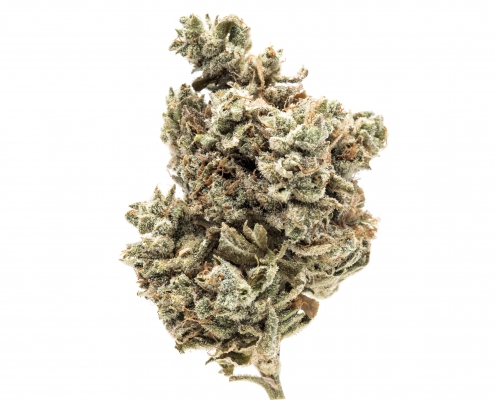 https://essencevegas.com/wp-content/uploads/2018/05/DGF_DesertGrownGlue4.jpg
4016
4017
[email protected]
https://essencevegas.com/wp-content/uploads/2021/02/Essence-Cannabis-Dispensary-Logo.png
[email protected]2018-05-24 16:38:322019-04-01 18:01:07Desert Grown Farms – Desert Grown Glue
https://essencevegas.com/wp-content/uploads/2018/05/DGF_DesertGrownGlue4.jpg
4016
4017
[email protected]
https://essencevegas.com/wp-content/uploads/2021/02/Essence-Cannabis-Dispensary-Logo.png
[email protected]2018-05-24 16:38:322019-04-01 18:01:07Desert Grown Farms – Desert Grown Glue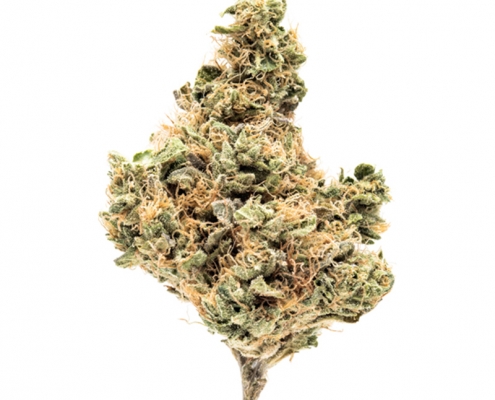 https://essencevegas.com/wp-content/uploads/2018/12/Desert-Grown-Farms-Desert-Sunrise.jpg
800
800
[email protected]
https://essencevegas.com/wp-content/uploads/2021/02/Essence-Cannabis-Dispensary-Logo.png
[email protected]2018-12-11 16:09:352021-03-26 04:47:43Desert Grown Farms – Desert Sunrise
https://essencevegas.com/wp-content/uploads/2018/12/Desert-Grown-Farms-Desert-Sunrise.jpg
800
800
[email protected]
https://essencevegas.com/wp-content/uploads/2021/02/Essence-Cannabis-Dispensary-Logo.png
[email protected]2018-12-11 16:09:352021-03-26 04:47:43Desert Grown Farms – Desert Sunrise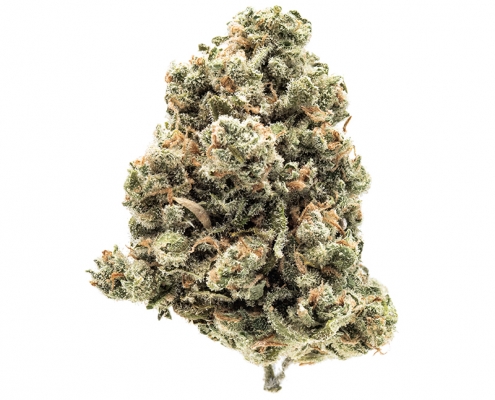 https://essencevegas.com/wp-content/uploads/2018/05/Desert-Grown-Farms-Jack-Herer-1.jpg
800
800
[email protected]
https://essencevegas.com/wp-content/uploads/2021/02/Essence-Cannabis-Dispensary-Logo.png
[email protected]2018-05-24 16:46:212021-03-26 05:39:07Desert Grown Farms – Jack Herer
https://essencevegas.com/wp-content/uploads/2018/05/Desert-Grown-Farms-Jack-Herer-1.jpg
800
800
[email protected]
https://essencevegas.com/wp-content/uploads/2021/02/Essence-Cannabis-Dispensary-Logo.png
[email protected]2018-05-24 16:46:212021-03-26 05:39:07Desert Grown Farms – Jack Herer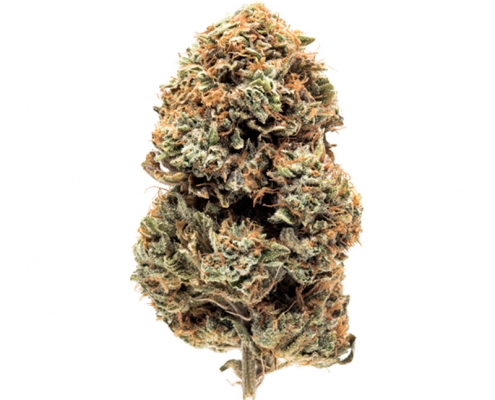 https://essencevegas.com/wp-content/uploads/2018/05/Desert-Grown-Farms-Kosher-Kush.jpg
800
800
[email protected]
https://essencevegas.com/wp-content/uploads/2021/02/Essence-Cannabis-Dispensary-Logo.png
[email protected]2018-05-24 16:33:042021-03-26 08:18:04Desert Grown Farms – Kosher Kush
https://essencevegas.com/wp-content/uploads/2018/05/Desert-Grown-Farms-Kosher-Kush.jpg
800
800
[email protected]
https://essencevegas.com/wp-content/uploads/2021/02/Essence-Cannabis-Dispensary-Logo.png
[email protected]2018-05-24 16:33:042021-03-26 08:18:04Desert Grown Farms – Kosher Kush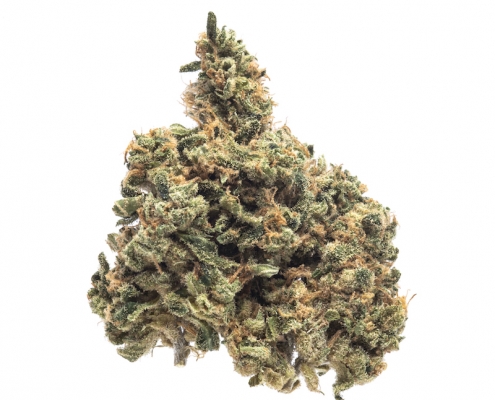 https://essencevegas.com/wp-content/uploads/2018/10/DGF_Mojito_1.jpg
800
800
[email protected]
https://essencevegas.com/wp-content/uploads/2021/02/Essence-Cannabis-Dispensary-Logo.png
[email protected]2018-10-31 10:01:292021-05-18 13:03:30Desert Grown Farms – Mojito #1
https://essencevegas.com/wp-content/uploads/2018/10/DGF_Mojito_1.jpg
800
800
[email protected]
https://essencevegas.com/wp-content/uploads/2021/02/Essence-Cannabis-Dispensary-Logo.png
[email protected]2018-10-31 10:01:292021-05-18 13:03:30Desert Grown Farms – Mojito #1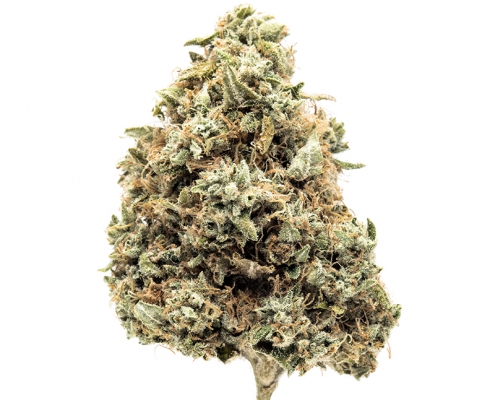 https://essencevegas.com/wp-content/uploads/2018/05/Desert-Grown-Farms-OG-Story-1.jpg
800
800
[email protected]
https://essencevegas.com/wp-content/uploads/2021/02/Essence-Cannabis-Dispensary-Logo.png
[email protected]2018-05-23 14:14:472021-03-26 08:19:35Desert Grown Farms – OG Story
https://essencevegas.com/wp-content/uploads/2018/05/Desert-Grown-Farms-OG-Story-1.jpg
800
800
[email protected]
https://essencevegas.com/wp-content/uploads/2021/02/Essence-Cannabis-Dispensary-Logo.png
[email protected]2018-05-23 14:14:472021-03-26 08:19:35Desert Grown Farms – OG Story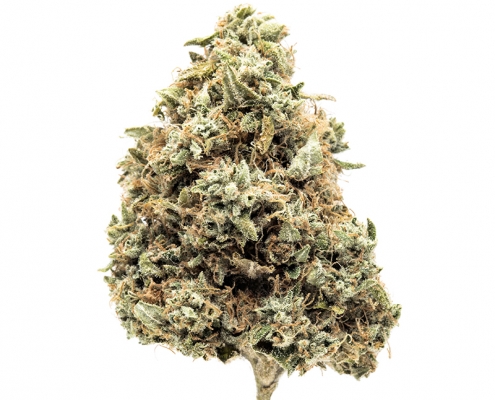 https://essencevegas.com/wp-content/uploads/2018/05/Desert-Grown-Farms-OG-Story.jpg
800
800
[email protected]
https://essencevegas.com/wp-content/uploads/2021/02/Essence-Cannabis-Dispensary-Logo.png
[email protected]2018-05-24 16:48:372019-04-01 15:17:43Desert Grown Farms – Sour Banana Sherbet
https://essencevegas.com/wp-content/uploads/2018/05/Desert-Grown-Farms-OG-Story.jpg
800
800
[email protected]
https://essencevegas.com/wp-content/uploads/2021/02/Essence-Cannabis-Dispensary-Logo.png
[email protected]2018-05-24 16:48:372019-04-01 15:17:43Desert Grown Farms – Sour Banana Sherbet https://essencevegas.com/wp-content/uploads/2021/02/Essence-Cannabis-Dispensary-Logo.png
0
0
[email protected]
https://essencevegas.com/wp-content/uploads/2021/02/Essence-Cannabis-Dispensary-Logo.png
[email protected]2021-03-26 06:52:392021-05-19 12:36:08Desert Grown Farms – Tha Melon #3
https://essencevegas.com/wp-content/uploads/2021/02/Essence-Cannabis-Dispensary-Logo.png
0
0
[email protected]
https://essencevegas.com/wp-content/uploads/2021/02/Essence-Cannabis-Dispensary-Logo.png
[email protected]2021-03-26 06:52:392021-05-19 12:36:08Desert Grown Farms – Tha Melon #3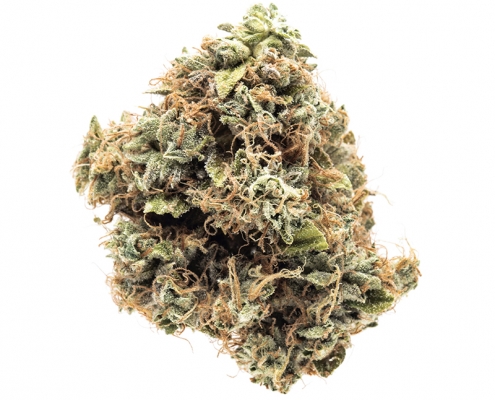 https://essencevegas.com/wp-content/uploads/2018/05/Desert-Grown-Farms-Venom-OG.jpg
800
800
[email protected]
https://essencevegas.com/wp-content/uploads/2021/02/Essence-Cannabis-Dispensary-Logo.png
[email protected]2018-05-23 10:02:012021-03-26 08:19:40Desert Grown Farms – Venom OG
https://essencevegas.com/wp-content/uploads/2018/05/Desert-Grown-Farms-Venom-OG.jpg
800
800
[email protected]
https://essencevegas.com/wp-content/uploads/2021/02/Essence-Cannabis-Dispensary-Logo.png
[email protected]2018-05-23 10:02:012021-03-26 08:19:40Desert Grown Farms – Venom OG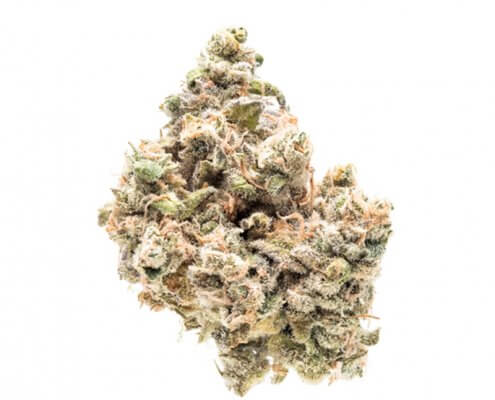 https://essencevegas.com/wp-content/uploads/2018/07/The-Facility_Grape-Stomper.jpg
800
800
[email protected]
https://essencevegas.com/wp-content/uploads/2021/02/Essence-Cannabis-Dispensary-Logo.png
[email protected]2018-07-26 10:45:252021-05-26 04:11:01Desert Grown Farms – Grape Stomper
https://essencevegas.com/wp-content/uploads/2018/07/The-Facility_Grape-Stomper.jpg
800
800
[email protected]
https://essencevegas.com/wp-content/uploads/2021/02/Essence-Cannabis-Dispensary-Logo.png
[email protected]2018-07-26 10:45:252021-05-26 04:11:01Desert Grown Farms – Grape Stomper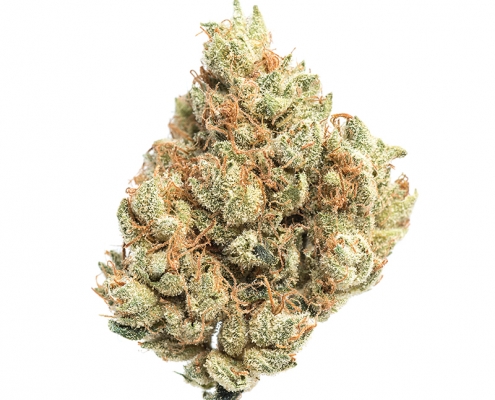 https://essencevegas.com/wp-content/uploads/2018/12/DGF-Green-Ranger.jpg
800
800
[email protected]
https://essencevegas.com/wp-content/uploads/2021/02/Essence-Cannabis-Dispensary-Logo.png
[email protected]2018-12-10 15:58:232020-09-08 03:40:41DGF – Joe Fix-It #5
https://essencevegas.com/wp-content/uploads/2018/12/DGF-Green-Ranger.jpg
800
800
[email protected]
https://essencevegas.com/wp-content/uploads/2021/02/Essence-Cannabis-Dispensary-Logo.png
[email protected]2018-12-10 15:58:232020-09-08 03:40:41DGF – Joe Fix-It #5 https://essencevegas.com/wp-content/uploads/2018/12/Desert-Grown-Farms-Venom-OG.jpg
800
800
[email protected]
https://essencevegas.com/wp-content/uploads/2021/02/Essence-Cannabis-Dispensary-Logo.png
[email protected]2018-12-10 15:17:492021-03-26 07:48:41DGF – Biker OG
https://essencevegas.com/wp-content/uploads/2018/12/Desert-Grown-Farms-Venom-OG.jpg
800
800
[email protected]
https://essencevegas.com/wp-content/uploads/2021/02/Essence-Cannabis-Dispensary-Logo.png
[email protected]2018-12-10 15:17:492021-03-26 07:48:41DGF – Biker OG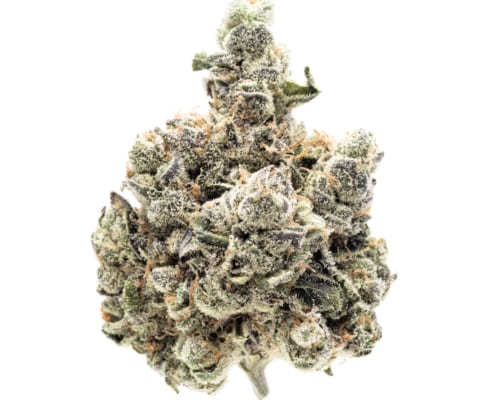 https://essencevegas.com/wp-content/uploads/2018/07/TF_BlueFrost.jpg
1200
1200
[email protected]
https://essencevegas.com/wp-content/uploads/2021/02/Essence-Cannabis-Dispensary-Logo.png
[email protected]2018-07-24 17:04:402020-09-08 16:06:30DGF – Blue Frost
https://essencevegas.com/wp-content/uploads/2018/07/TF_BlueFrost.jpg
1200
1200
[email protected]
https://essencevegas.com/wp-content/uploads/2021/02/Essence-Cannabis-Dispensary-Logo.png
[email protected]2018-07-24 17:04:402020-09-08 16:06:30DGF – Blue Frost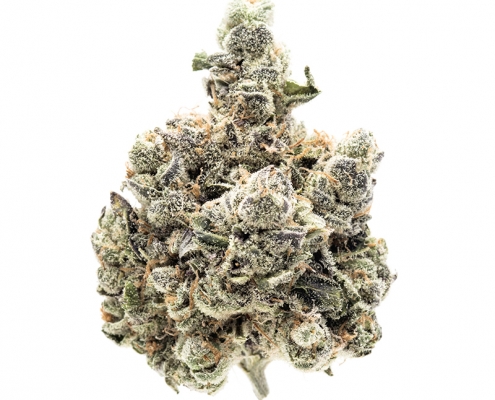 https://essencevegas.com/wp-content/uploads/2018/07/DGF-Blueberry.jpg
800
800
[email protected]
https://essencevegas.com/wp-content/uploads/2021/02/Essence-Cannabis-Dispensary-Logo.png
[email protected]2018-07-25 10:05:542021-05-26 02:00:40DGF – Blueberry
https://essencevegas.com/wp-content/uploads/2018/07/DGF-Blueberry.jpg
800
800
[email protected]
https://essencevegas.com/wp-content/uploads/2021/02/Essence-Cannabis-Dispensary-Logo.png
[email protected]2018-07-25 10:05:542021-05-26 02:00:40DGF – Blueberry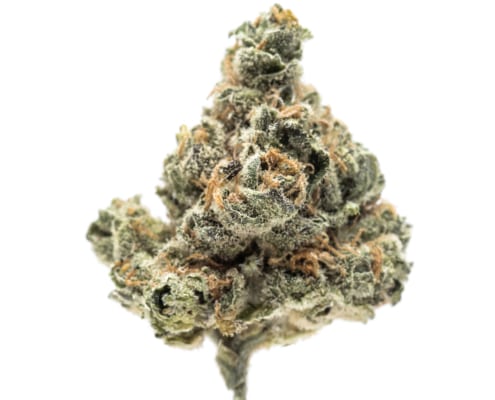 https://essencevegas.com/wp-content/uploads/2018/07/TF_Blueberrymuffin.jpg
1200
1200
[email protected]
https://essencevegas.com/wp-content/uploads/2021/02/Essence-Cannabis-Dispensary-Logo.png
[email protected]2018-07-24 17:17:462021-03-26 08:14:14DGF – Blueberry Muffin
https://essencevegas.com/wp-content/uploads/2018/07/TF_Blueberrymuffin.jpg
1200
1200
[email protected]
https://essencevegas.com/wp-content/uploads/2021/02/Essence-Cannabis-Dispensary-Logo.png
[email protected]2018-07-24 17:17:462021-03-26 08:14:14DGF – Blueberry Muffin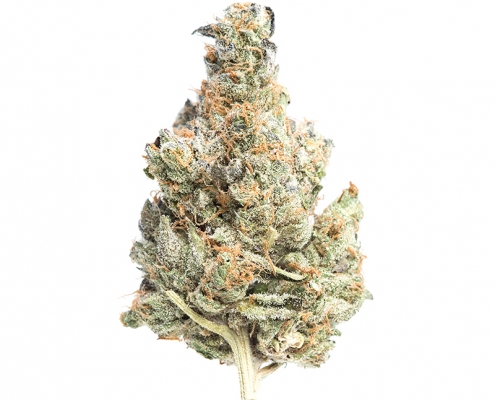 https://essencevegas.com/wp-content/uploads/2018/12/DGF-Camacho-Kush.jpg
800
800
[email protected]
https://essencevegas.com/wp-content/uploads/2021/02/Essence-Cannabis-Dispensary-Logo.png
[email protected]2018-12-10 15:29:352021-05-26 02:03:46DGF – Camacho Kush
https://essencevegas.com/wp-content/uploads/2018/12/DGF-Camacho-Kush.jpg
800
800
[email protected]
https://essencevegas.com/wp-content/uploads/2021/02/Essence-Cannabis-Dispensary-Logo.png
[email protected]2018-12-10 15:29:352021-05-26 02:03:46DGF – Camacho Kush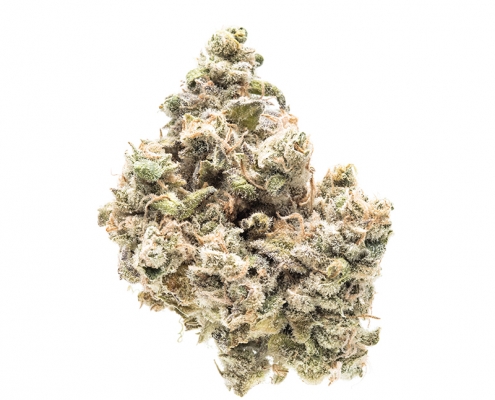 https://essencevegas.com/wp-content/uploads/2018/10/DGF-Grape-Stomper-OG.jpg
800
800
[email protected]
https://essencevegas.com/wp-content/uploads/2021/02/Essence-Cannabis-Dispensary-Logo.png
[email protected]2018-10-31 12:52:462021-03-26 05:25:45DGF – Grape Stomper OG
https://essencevegas.com/wp-content/uploads/2018/10/DGF-Grape-Stomper-OG.jpg
800
800
[email protected]
https://essencevegas.com/wp-content/uploads/2021/02/Essence-Cannabis-Dispensary-Logo.png
[email protected]2018-10-31 12:52:462021-03-26 05:25:45DGF – Grape Stomper OG https://essencevegas.com/wp-content/uploads/2018/12/DGF-Green-Ranger.jpg
800
800
[email protected]
https://essencevegas.com/wp-content/uploads/2021/02/Essence-Cannabis-Dispensary-Logo.png
[email protected]2018-12-10 15:43:222021-05-26 03:38:40DGF – Green Ranger
https://essencevegas.com/wp-content/uploads/2018/12/DGF-Green-Ranger.jpg
800
800
[email protected]
https://essencevegas.com/wp-content/uploads/2021/02/Essence-Cannabis-Dispensary-Logo.png
[email protected]2018-12-10 15:43:222021-05-26 03:38:40DGF – Green Ranger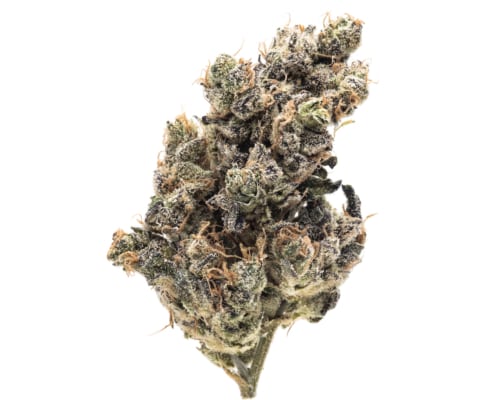 https://essencevegas.com/wp-content/uploads/2018/07/TF_HendoCream.jpg
1200
1200
[email protected]
https://essencevegas.com/wp-content/uploads/2021/02/Essence-Cannabis-Dispensary-Logo.png
[email protected]2018-07-26 11:04:562021-05-26 03:40:45DGF – Hendo Cream
https://essencevegas.com/wp-content/uploads/2018/07/TF_HendoCream.jpg
1200
1200
[email protected]
https://essencevegas.com/wp-content/uploads/2021/02/Essence-Cannabis-Dispensary-Logo.png
[email protected]2018-07-26 11:04:562021-05-26 03:40:45DGF – Hendo Cream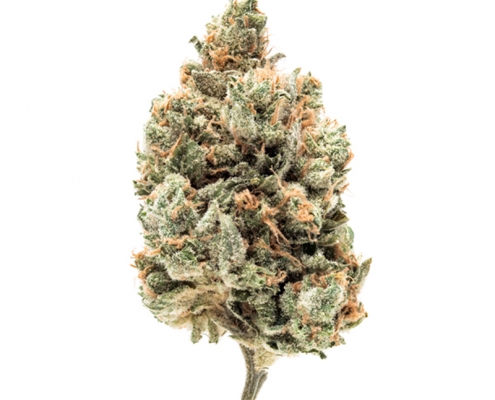 https://essencevegas.com/wp-content/uploads/2018/11/DGF-Lemon-Meringue-2.jpg
800
800
[email protected]
https://essencevegas.com/wp-content/uploads/2021/02/Essence-Cannabis-Dispensary-Logo.png
[email protected]2018-11-22 11:53:492021-03-26 05:03:37DGF – Lemon Meringue #2
https://essencevegas.com/wp-content/uploads/2018/11/DGF-Lemon-Meringue-2.jpg
800
800
[email protected]
https://essencevegas.com/wp-content/uploads/2021/02/Essence-Cannabis-Dispensary-Logo.png
[email protected]2018-11-22 11:53:492021-03-26 05:03:37DGF – Lemon Meringue #2 https://essencevegas.com/wp-content/uploads/2018/11/DGF-Lemon-Meringue-2.jpg
800
800
[email protected]
https://essencevegas.com/wp-content/uploads/2021/02/Essence-Cannabis-Dispensary-Logo.png
[email protected]2018-12-10 10:46:052021-03-26 05:00:35DGF – Lime Skunk #1
https://essencevegas.com/wp-content/uploads/2018/11/DGF-Lemon-Meringue-2.jpg
800
800
[email protected]
https://essencevegas.com/wp-content/uploads/2021/02/Essence-Cannabis-Dispensary-Logo.png
[email protected]2018-12-10 10:46:052021-03-26 05:00:35DGF – Lime Skunk #1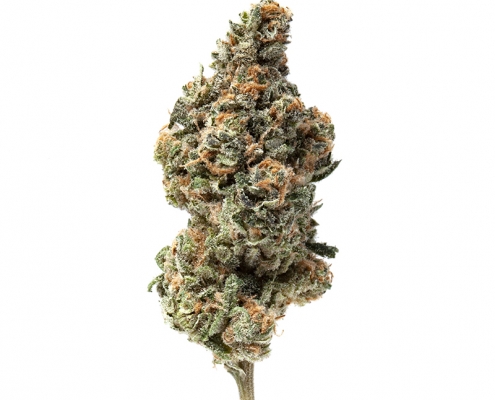 https://essencevegas.com/wp-content/uploads/2018/12/DGF-Mojito-4.jpg
800
800
[email protected]
https://essencevegas.com/wp-content/uploads/2021/02/Essence-Cannabis-Dispensary-Logo.png
[email protected]2018-12-10 11:35:212021-05-26 04:42:41DGF – Mojito #4
https://essencevegas.com/wp-content/uploads/2018/12/DGF-Mojito-4.jpg
800
800
[email protected]
https://essencevegas.com/wp-content/uploads/2021/02/Essence-Cannabis-Dispensary-Logo.png
[email protected]2018-12-10 11:35:212021-05-26 04:42:41DGF – Mojito #4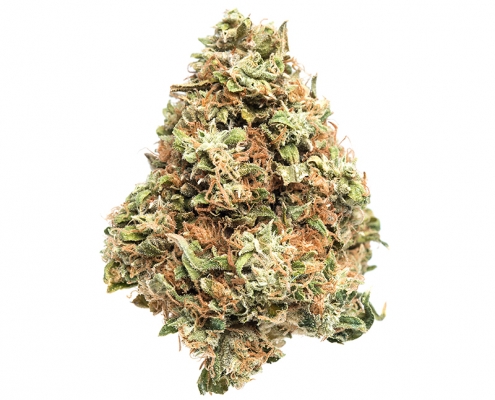 https://essencevegas.com/wp-content/uploads/2018/12/DGF-Namaste.jpg
800
800
[email protected]
https://essencevegas.com/wp-content/uploads/2021/02/Essence-Cannabis-Dispensary-Logo.png
[email protected]2018-12-10 11:55:252021-05-26 04:47:50DGF – Namaste
https://essencevegas.com/wp-content/uploads/2018/12/DGF-Namaste.jpg
800
800
[email protected]
https://essencevegas.com/wp-content/uploads/2021/02/Essence-Cannabis-Dispensary-Logo.png
[email protected]2018-12-10 11:55:252021-05-26 04:47:50DGF – Namaste https://essencevegas.com/wp-content/uploads/2018/12/DGF-OBTK-3.jpg
800
800
[email protected]
https://essencevegas.com/wp-content/uploads/2021/02/Essence-Cannabis-Dispensary-Logo.png
[email protected]2018-12-10 12:23:372021-05-26 06:03:08DGF – OBTK #3
https://essencevegas.com/wp-content/uploads/2018/12/DGF-OBTK-3.jpg
800
800
[email protected]
https://essencevegas.com/wp-content/uploads/2021/02/Essence-Cannabis-Dispensary-Logo.png
[email protected]2018-12-10 12:23:372021-05-26 06:03:08DGF – OBTK #3 https://essencevegas.com/wp-content/uploads/2018/12/DGF-OBTK-4.jpg
800
800
[email protected]
https://essencevegas.com/wp-content/uploads/2021/02/Essence-Cannabis-Dispensary-Logo.png
[email protected]2018-12-10 13:05:092021-06-25 08:43:50DGF – OBTK #4
https://essencevegas.com/wp-content/uploads/2018/12/DGF-OBTK-4.jpg
800
800
[email protected]
https://essencevegas.com/wp-content/uploads/2021/02/Essence-Cannabis-Dispensary-Logo.png
[email protected]2018-12-10 13:05:092021-06-25 08:43:50DGF – OBTK #4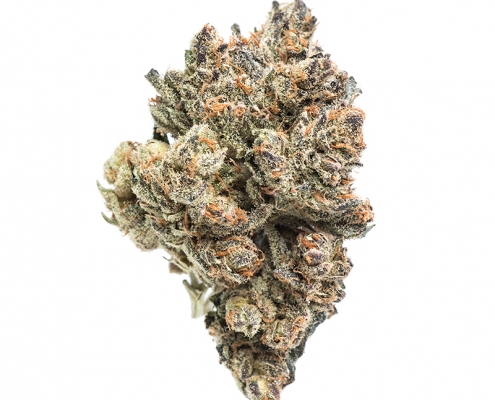 https://essencevegas.com/wp-content/uploads/2018/12/DGF-Puff-n-Stuff.jpg
800
800
[email protected]
https://essencevegas.com/wp-content/uploads/2021/02/Essence-Cannabis-Dispensary-Logo.png
[email protected]2018-12-10 13:15:392020-09-08 03:13:41DGF – Puff ‘n’ Stuff
https://essencevegas.com/wp-content/uploads/2018/12/DGF-Puff-n-Stuff.jpg
800
800
[email protected]
https://essencevegas.com/wp-content/uploads/2021/02/Essence-Cannabis-Dispensary-Logo.png
[email protected]2018-12-10 13:15:392020-09-08 03:13:41DGF – Puff ‘n’ Stuff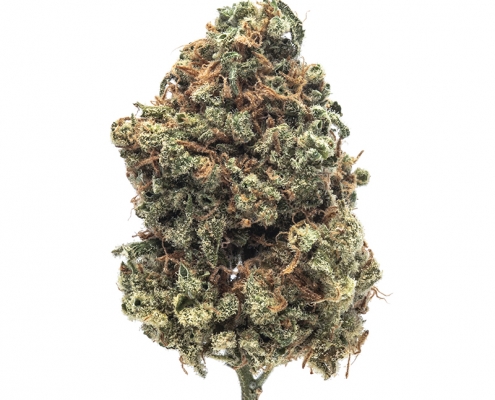 https://essencevegas.com/wp-content/uploads/2018/10/DGF-Silver-Mountain-2.jpg
800
800
[email protected]
https://essencevegas.com/wp-content/uploads/2021/02/Essence-Cannabis-Dispensary-Logo.png
[email protected]2018-10-31 13:09:562020-09-08 16:10:48DGF – Silver Mountain #2
https://essencevegas.com/wp-content/uploads/2018/10/DGF-Silver-Mountain-2.jpg
800
800
[email protected]
https://essencevegas.com/wp-content/uploads/2021/02/Essence-Cannabis-Dispensary-Logo.png
[email protected]2018-10-31 13:09:562020-09-08 16:10:48DGF – Silver Mountain #2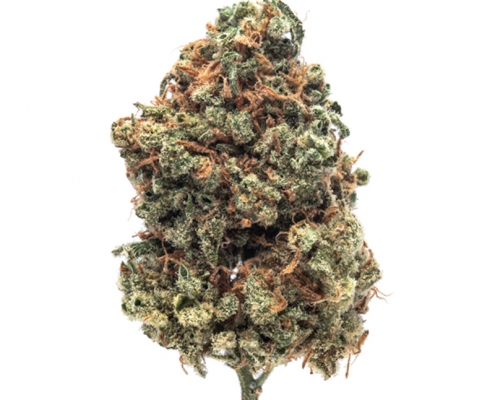 https://essencevegas.com/wp-content/uploads/2018/12/DGF-Silver-Mountain-4.jpg
800
800
[email protected]
https://essencevegas.com/wp-content/uploads/2021/02/Essence-Cannabis-Dispensary-Logo.png
[email protected]2018-12-10 13:26:142021-03-26 04:58:05DGF – Silver Mountain #4
https://essencevegas.com/wp-content/uploads/2018/12/DGF-Silver-Mountain-4.jpg
800
800
[email protected]
https://essencevegas.com/wp-content/uploads/2021/02/Essence-Cannabis-Dispensary-Logo.png
[email protected]2018-12-10 13:26:142021-03-26 04:58:05DGF – Silver Mountain #4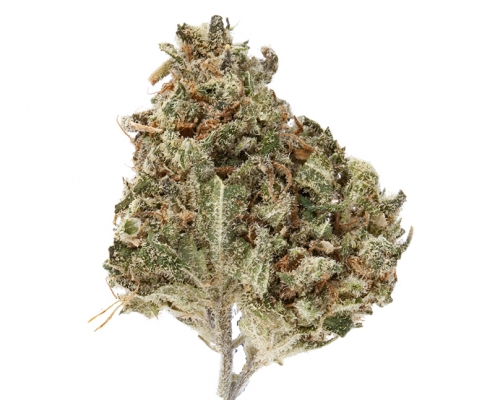 https://essencevegas.com/wp-content/uploads/2018/11/DGF-Silver-Mountain-6.jpg
800
800
[email protected]
https://essencevegas.com/wp-content/uploads/2021/02/Essence-Cannabis-Dispensary-Logo.png
[email protected]2018-11-22 12:21:302021-03-26 05:01:51DGF – Silver Mountain #6
https://essencevegas.com/wp-content/uploads/2018/11/DGF-Silver-Mountain-6.jpg
800
800
[email protected]
https://essencevegas.com/wp-content/uploads/2021/02/Essence-Cannabis-Dispensary-Logo.png
[email protected]2018-11-22 12:21:302021-03-26 05:01:51DGF – Silver Mountain #6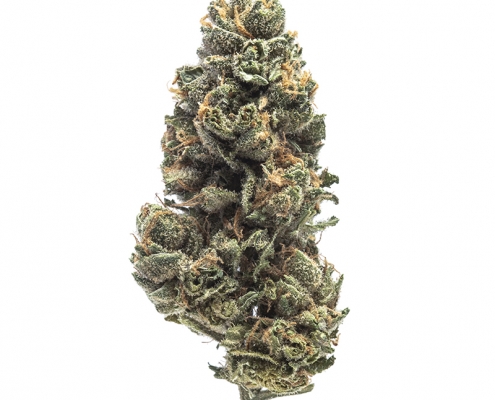 https://essencevegas.com/wp-content/uploads/2018/11/DGF-The-Homies-Choice-1.jpg
800
800
[email protected]
https://essencevegas.com/wp-content/uploads/2021/02/Essence-Cannabis-Dispensary-Logo.png
[email protected]2018-11-09 17:28:092021-05-26 00:46:03DGF – The Homie’s Choice
https://essencevegas.com/wp-content/uploads/2018/11/DGF-The-Homies-Choice-1.jpg
800
800
[email protected]
https://essencevegas.com/wp-content/uploads/2021/02/Essence-Cannabis-Dispensary-Logo.png
[email protected]2018-11-09 17:28:092021-05-26 00:46:03DGF – The Homie’s Choice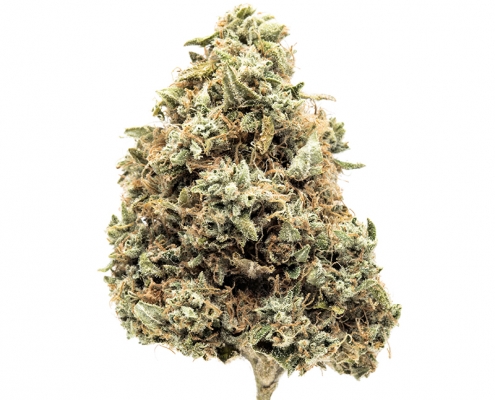 https://essencevegas.com/wp-content/uploads/2018/12/DGF-The-OG-Story.jpg
800
800
[email protected]
https://essencevegas.com/wp-content/uploads/2021/02/Essence-Cannabis-Dispensary-Logo.png
[email protected]2018-12-10 13:41:152021-05-26 06:14:36DGF – The OG Story
https://essencevegas.com/wp-content/uploads/2018/12/DGF-The-OG-Story.jpg
800
800
[email protected]
https://essencevegas.com/wp-content/uploads/2021/02/Essence-Cannabis-Dispensary-Logo.png
[email protected]2018-12-10 13:41:152021-05-26 06:14:36DGF – The OG Story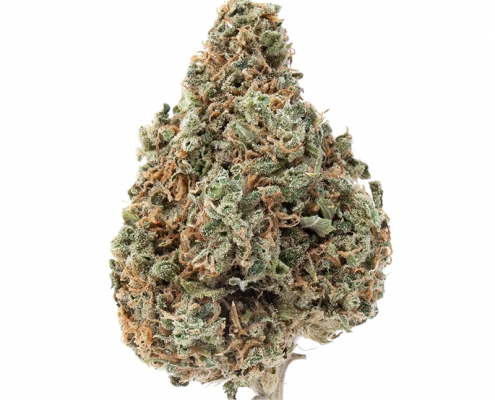 https://essencevegas.com/wp-content/uploads/2018/12/DGF-Zelda-1.jpg
800
800
[email protected]
https://essencevegas.com/wp-content/uploads/2021/02/Essence-Cannabis-Dispensary-Logo.png
[email protected]2018-12-10 13:57:352020-09-08 03:09:47DGF – Zelda #1
https://essencevegas.com/wp-content/uploads/2018/12/DGF-Zelda-1.jpg
800
800
[email protected]
https://essencevegas.com/wp-content/uploads/2021/02/Essence-Cannabis-Dispensary-Logo.png
[email protected]2018-12-10 13:57:352020-09-08 03:09:47DGF – Zelda #1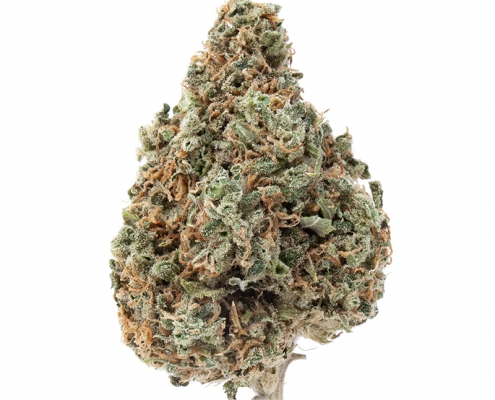 https://essencevegas.com/wp-content/uploads/2018/10/DGF-Zelda-9.jpg
800
800
[email protected]
https://essencevegas.com/wp-content/uploads/2021/02/Essence-Cannabis-Dispensary-Logo.png
[email protected]2018-10-31 13:29:592020-09-08 02:52:49DGF – Zelda #9
https://essencevegas.com/wp-content/uploads/2018/10/DGF-Zelda-9.jpg
800
800
[email protected]
https://essencevegas.com/wp-content/uploads/2021/02/Essence-Cannabis-Dispensary-Logo.png
[email protected]2018-10-31 13:29:592020-09-08 02:52:49DGF – Zelda #9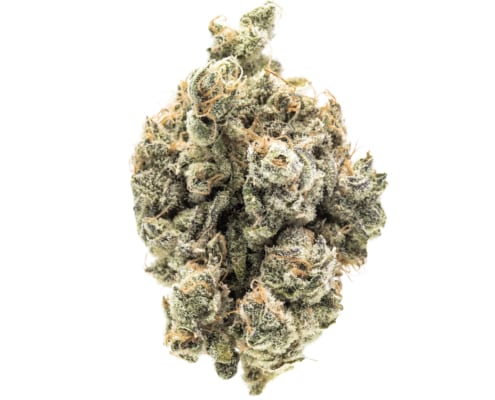 https://essencevegas.com/wp-content/uploads/2018/07/TF_Cuvee.jpg
1200
1200
[email protected]
https://essencevegas.com/wp-content/uploads/2021/02/Essence-Cannabis-Dispensary-Logo.png
[email protected]2018-07-25 17:05:282021-05-26 02:06:07DGF – Cuvee
https://essencevegas.com/wp-content/uploads/2018/07/TF_Cuvee.jpg
1200
1200
[email protected]
https://essencevegas.com/wp-content/uploads/2021/02/Essence-Cannabis-Dispensary-Logo.png
[email protected]2018-07-25 17:05:282021-05-26 02:06:07DGF – Cuvee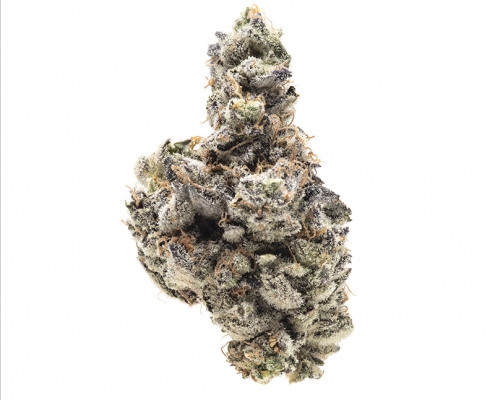 https://essencevegas.com/wp-content/uploads/2018/07/DGF-_-Dark-Wizard-1.jpg
800
800
[email protected]
https://essencevegas.com/wp-content/uploads/2021/02/Essence-Cannabis-Dispensary-Logo.png
[email protected]2018-07-25 17:22:262020-09-08 14:21:34DGF – Dark Wizard #1
https://essencevegas.com/wp-content/uploads/2018/07/DGF-_-Dark-Wizard-1.jpg
800
800
[email protected]
https://essencevegas.com/wp-content/uploads/2021/02/Essence-Cannabis-Dispensary-Logo.png
[email protected]2018-07-25 17:22:262020-09-08 14:21:34DGF – Dark Wizard #1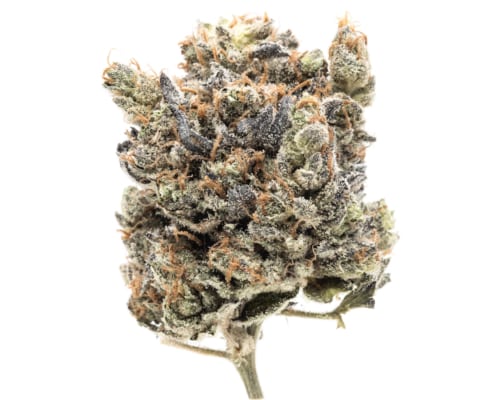 https://essencevegas.com/wp-content/uploads/2018/07/TF_Fluffhead.jpg
1200
1200
[email protected]
https://essencevegas.com/wp-content/uploads/2021/02/Essence-Cannabis-Dispensary-Logo.png
[email protected]2018-07-26 09:17:562021-05-26 03:21:24DGF – Fluffhead Kush
https://essencevegas.com/wp-content/uploads/2018/07/TF_Fluffhead.jpg
1200
1200
[email protected]
https://essencevegas.com/wp-content/uploads/2021/02/Essence-Cannabis-Dispensary-Logo.png
[email protected]2018-07-26 09:17:562021-05-26 03:21:24DGF – Fluffhead Kush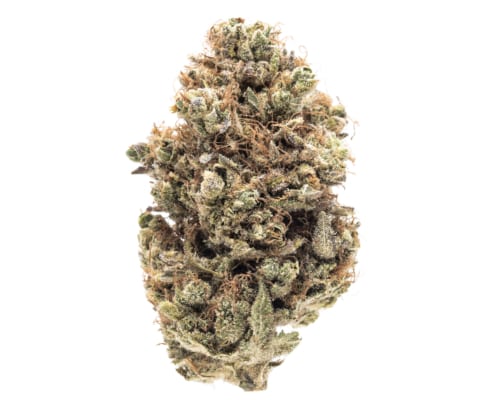 https://essencevegas.com/wp-content/uploads/2018/07/TF_FruitCake.jpg
1200
1200
[email protected]
https://essencevegas.com/wp-content/uploads/2021/02/Essence-Cannabis-Dispensary-Logo.png
[email protected]2018-07-26 09:33:092020-09-08 14:40:20DGF – Fruitcake
https://essencevegas.com/wp-content/uploads/2018/07/TF_FruitCake.jpg
1200
1200
[email protected]
https://essencevegas.com/wp-content/uploads/2021/02/Essence-Cannabis-Dispensary-Logo.png
[email protected]2018-07-26 09:33:092020-09-08 14:40:20DGF – Fruitcake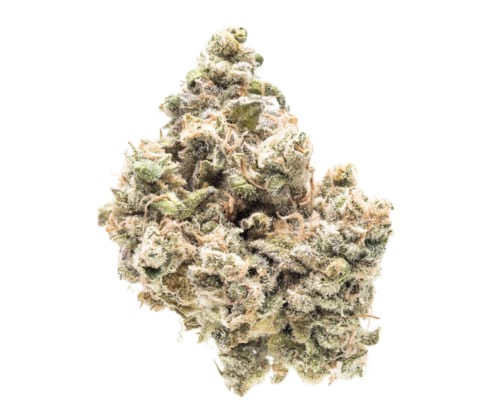 https://essencevegas.com/wp-content/uploads/2018/07/TF_GrapeStomperOG.jpg
1200
1200
[email protected]
https://essencevegas.com/wp-content/uploads/2021/02/Essence-Cannabis-Dispensary-Logo.png
[email protected]2018-07-26 10:08:352021-05-26 03:33:56DGF – Grape Stomper OG
https://essencevegas.com/wp-content/uploads/2018/07/TF_GrapeStomperOG.jpg
1200
1200
[email protected]
https://essencevegas.com/wp-content/uploads/2021/02/Essence-Cannabis-Dispensary-Logo.png
[email protected]2018-07-26 10:08:352021-05-26 03:33:56DGF – Grape Stomper OG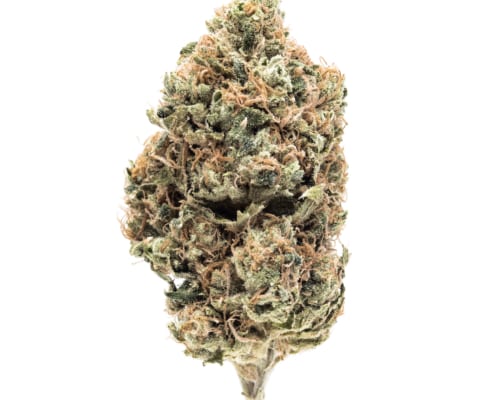 https://essencevegas.com/wp-content/uploads/2018/07/TF_KarmaOG.jpg
1200
1200
[email protected]
https://essencevegas.com/wp-content/uploads/2021/02/Essence-Cannabis-Dispensary-Logo.png
[email protected]2018-07-25 10:45:452021-05-26 04:13:54DGF – Karma OG
https://essencevegas.com/wp-content/uploads/2018/07/TF_KarmaOG.jpg
1200
1200
[email protected]
https://essencevegas.com/wp-content/uploads/2021/02/Essence-Cannabis-Dispensary-Logo.png
[email protected]2018-07-25 10:45:452021-05-26 04:13:54DGF – Karma OG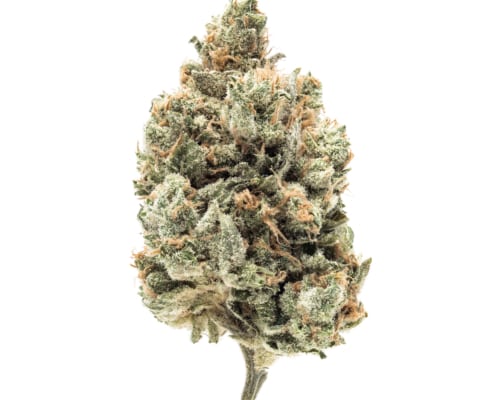 https://essencevegas.com/wp-content/uploads/2018/07/TF_LemonMeringue2.jpg
1200
1200
[email protected]
https://essencevegas.com/wp-content/uploads/2021/02/Essence-Cannabis-Dispensary-Logo.png
[email protected]2018-07-25 11:11:462021-05-26 04:17:35DGF – Lemon Meringue
https://essencevegas.com/wp-content/uploads/2018/07/TF_LemonMeringue2.jpg
1200
1200
[email protected]
https://essencevegas.com/wp-content/uploads/2021/02/Essence-Cannabis-Dispensary-Logo.png
[email protected]2018-07-25 11:11:462021-05-26 04:17:35DGF – Lemon Meringue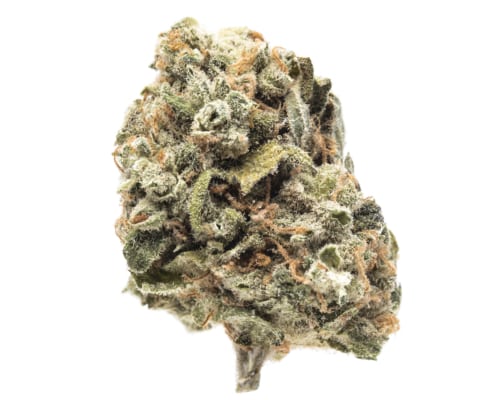 https://essencevegas.com/wp-content/uploads/2018/07/TF_LILBLUE.jpg
1200
1200
[email protected]
https://essencevegas.com/wp-content/uploads/2021/02/Essence-Cannabis-Dispensary-Logo.png
[email protected]2018-07-25 13:23:042021-05-26 04:38:14DGF – Lil’ Blue
https://essencevegas.com/wp-content/uploads/2018/07/TF_LILBLUE.jpg
1200
1200
[email protected]
https://essencevegas.com/wp-content/uploads/2021/02/Essence-Cannabis-Dispensary-Logo.png
[email protected]2018-07-25 13:23:042021-05-26 04:38:14DGF – Lil’ Blue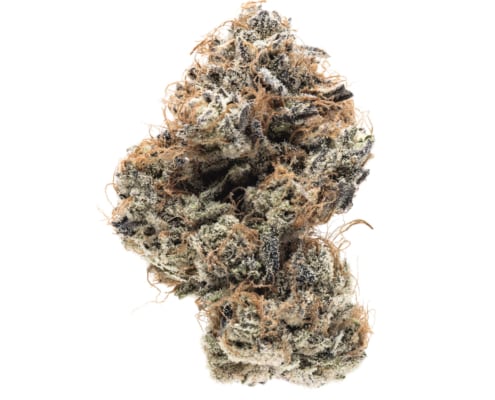 https://essencevegas.com/wp-content/uploads/2018/07/TF_NeonLIght.jpg
1200
1200
[email protected]
https://essencevegas.com/wp-content/uploads/2021/02/Essence-Cannabis-Dispensary-Logo.png
[email protected]2018-07-25 13:53:562021-05-26 05:54:47DGF – Neon Night
https://essencevegas.com/wp-content/uploads/2018/07/TF_NeonLIght.jpg
1200
1200
[email protected]
https://essencevegas.com/wp-content/uploads/2021/02/Essence-Cannabis-Dispensary-Logo.png
[email protected]2018-07-25 13:53:562021-05-26 05:54:47DGF – Neon Night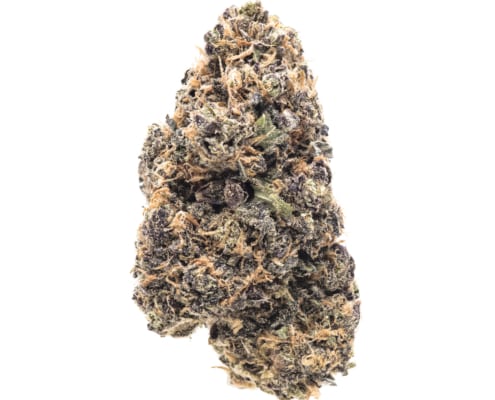 https://essencevegas.com/wp-content/uploads/2018/07/TF_PurpleCotton.jpg
1200
1200
[email protected]
https://essencevegas.com/wp-content/uploads/2021/02/Essence-Cannabis-Dispensary-Logo.png
[email protected]2018-07-25 14:42:232021-05-26 06:10:07DGF – Purple Cotton
https://essencevegas.com/wp-content/uploads/2018/07/TF_PurpleCotton.jpg
1200
1200
[email protected]
https://essencevegas.com/wp-content/uploads/2021/02/Essence-Cannabis-Dispensary-Logo.png
[email protected]2018-07-25 14:42:232021-05-26 06:10:07DGF – Purple Cotton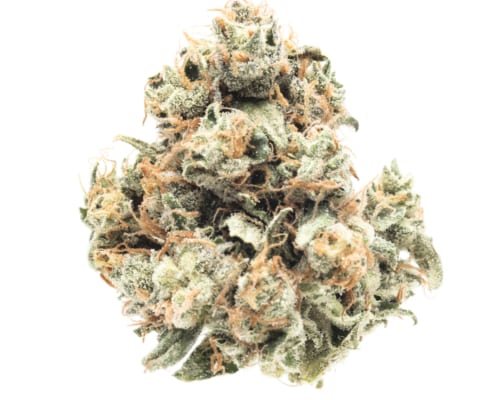 https://essencevegas.com/wp-content/uploads/2018/07/TF_TahoeAlien.jpg
1200
1200
[email protected]
https://essencevegas.com/wp-content/uploads/2021/02/Essence-Cannabis-Dispensary-Logo.png
[email protected]2018-07-25 15:19:512021-05-26 06:13:08DGF – Tahoe Alien
https://essencevegas.com/wp-content/uploads/2018/07/TF_TahoeAlien.jpg
1200
1200
[email protected]
https://essencevegas.com/wp-content/uploads/2021/02/Essence-Cannabis-Dispensary-Logo.png
[email protected]2018-07-25 15:19:512021-05-26 06:13:08DGF – Tahoe Alien https://essencevegas.com/wp-content/uploads/2018/07/TF_WhiteOG.jpg
1200
1200
[email protected]
https://essencevegas.com/wp-content/uploads/2021/02/Essence-Cannabis-Dispensary-Logo.png
[email protected]2018-07-25 15:51:382021-05-26 06:17:01DGF – White OG
https://essencevegas.com/wp-content/uploads/2018/07/TF_WhiteOG.jpg
1200
1200
[email protected]
https://essencevegas.com/wp-content/uploads/2021/02/Essence-Cannabis-Dispensary-Logo.png
[email protected]2018-07-25 15:51:382021-05-26 06:17:01DGF – White OG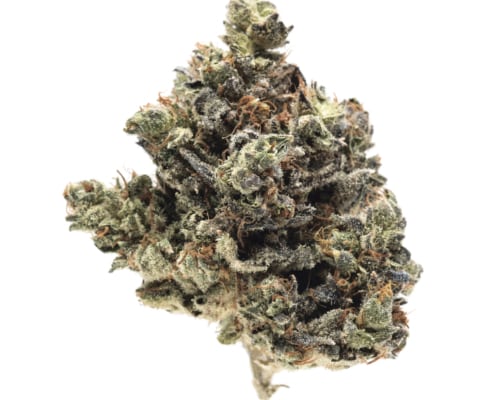 https://essencevegas.com/wp-content/uploads/2018/07/TF_XratedOG.jpg
1200
1200
[email protected]
https://essencevegas.com/wp-content/uploads/2021/02/Essence-Cannabis-Dispensary-Logo.png
[email protected]2018-07-25 16:14:192020-09-08 02:54:05DGF – X-Rated
https://essencevegas.com/wp-content/uploads/2018/07/TF_XratedOG.jpg
1200
1200
[email protected]
https://essencevegas.com/wp-content/uploads/2021/02/Essence-Cannabis-Dispensary-Logo.png
[email protected]2018-07-25 16:14:192020-09-08 02:54:05DGF – X-Rated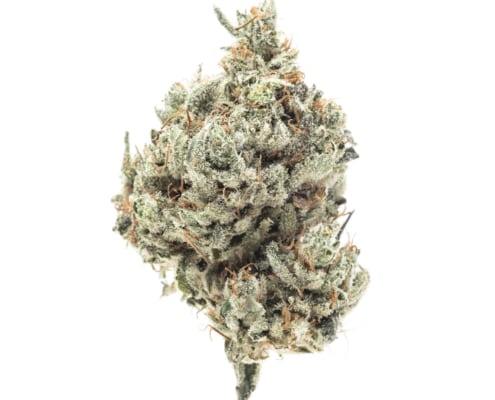 https://essencevegas.com/wp-content/uploads/2018/07/TF_XXXOG.jpg
1200
1200
[email protected]
https://essencevegas.com/wp-content/uploads/2021/02/Essence-Cannabis-Dispensary-Logo.png
[email protected]2018-07-25 16:27:022020-09-08 14:56:30DGF – XXX OG
https://essencevegas.com/wp-content/uploads/2018/07/TF_XXXOG.jpg
1200
1200
[email protected]
https://essencevegas.com/wp-content/uploads/2021/02/Essence-Cannabis-Dispensary-Logo.png
[email protected]2018-07-25 16:27:022020-09-08 14:56:30DGF – XXX OG https://essencevegas.com/wp-content/uploads/2018/10/Dixie-Straight-Up-Milk-Chocolate-Bar.jpg
800
800
[email protected]
https://essencevegas.com/wp-content/uploads/2021/02/Essence-Cannabis-Dispensary-Logo.png
[email protected]2018-10-05 17:21:172021-06-08 02:49:00Dixie – Straight Up Milk Chocolate Bar
https://essencevegas.com/wp-content/uploads/2018/10/Dixie-Straight-Up-Milk-Chocolate-Bar.jpg
800
800
[email protected]
https://essencevegas.com/wp-content/uploads/2021/02/Essence-Cannabis-Dispensary-Logo.png
[email protected]2018-10-05 17:21:172021-06-08 02:49:00Dixie – Straight Up Milk Chocolate Bar https://essencevegas.com/wp-content/uploads/2018/10/Dixie_Synergy-Milk-Chocolate.jpg
900
900
[email protected]
https://essencevegas.com/wp-content/uploads/2021/02/Essence-Cannabis-Dispensary-Logo.png
[email protected]2018-10-10 16:35:122019-04-01 15:38:50Dixie – Synergy Milk Chocolate Bar
https://essencevegas.com/wp-content/uploads/2018/10/Dixie_Synergy-Milk-Chocolate.jpg
900
900
[email protected]
https://essencevegas.com/wp-content/uploads/2021/02/Essence-Cannabis-Dispensary-Logo.png
[email protected]2018-10-10 16:35:122019-04-01 15:38:50Dixie – Synergy Milk Chocolate Bar https://essencevegas.com/wp-content/uploads/2018/10/Dutch-Girl-Lemon-Stroopwafel.jpg
800
800
[email protected]
https://essencevegas.com/wp-content/uploads/2021/02/Essence-Cannabis-Dispensary-Logo.png
[email protected]2018-10-11 16:35:582021-06-08 02:50:31Dutch Girl – Lemon Stroopwafel
https://essencevegas.com/wp-content/uploads/2018/10/Dutch-Girl-Lemon-Stroopwafel.jpg
800
800
[email protected]
https://essencevegas.com/wp-content/uploads/2021/02/Essence-Cannabis-Dispensary-Logo.png
[email protected]2018-10-11 16:35:582021-06-08 02:50:31Dutch Girl – Lemon Stroopwafel https://essencevegas.com/wp-content/uploads/2019/04/DaddyMacks_ChillPowder.jpg
800
800
[email protected]
https://essencevegas.com/wp-content/uploads/2021/02/Essence-Cannabis-Dispensary-Logo.png
[email protected]2019-04-30 08:58:102021-06-08 02:52:17EGO – Dry Chill Powder
https://essencevegas.com/wp-content/uploads/2019/04/DaddyMacks_ChillPowder.jpg
800
800
[email protected]
https://essencevegas.com/wp-content/uploads/2021/02/Essence-Cannabis-Dispensary-Logo.png
[email protected]2019-04-30 08:58:102021-06-08 02:52:17EGO – Dry Chill Powder https://essencevegas.com/wp-content/uploads/2019/04/EGO-Canna-Cubes-Mint.jpg
800
800
[email protected]
https://essencevegas.com/wp-content/uploads/2021/02/Essence-Cannabis-Dispensary-Logo.png
[email protected]2019-04-30 09:16:152021-06-25 06:36:26EGO – Mint Microdose Lozenges
https://essencevegas.com/wp-content/uploads/2019/04/EGO-Canna-Cubes-Mint.jpg
800
800
[email protected]
https://essencevegas.com/wp-content/uploads/2021/02/Essence-Cannabis-Dispensary-Logo.png
[email protected]2019-04-30 09:16:152021-06-25 06:36:26EGO – Mint Microdose Lozenges https://essencevegas.com/wp-content/uploads/2018/08/Einstein-Extracts_Vape-Cartridge.jpg
900
900
[email protected]
https://essencevegas.com/wp-content/uploads/2021/02/Essence-Cannabis-Dispensary-Logo.png
[email protected]2018-08-27 16:12:182021-06-25 04:05:00Einstein Extracts – Distillate Cartridge
https://essencevegas.com/wp-content/uploads/2018/08/Einstein-Extracts_Vape-Cartridge.jpg
900
900
[email protected]
https://essencevegas.com/wp-content/uploads/2021/02/Essence-Cannabis-Dispensary-Logo.png
[email protected]2018-08-27 16:12:182021-06-25 04:05:00Einstein Extracts – Distillate Cartridge https://essencevegas.com/wp-content/uploads/2018/10/Lone-Mountain-Berry-Cherry-Granola.jpg
800
800
[email protected]
https://essencevegas.com/wp-content/uploads/2021/02/Essence-Cannabis-Dispensary-Logo.png
[email protected]2018-10-15 09:11:422020-09-08 06:46:53Encore Company – Berry Cherry Granola
https://essencevegas.com/wp-content/uploads/2018/10/Lone-Mountain-Berry-Cherry-Granola.jpg
800
800
[email protected]
https://essencevegas.com/wp-content/uploads/2021/02/Essence-Cannabis-Dispensary-Logo.png
[email protected]2018-10-15 09:11:422020-09-08 06:46:53Encore Company – Berry Cherry Granola https://essencevegas.com/wp-content/uploads/2018/10/Lone-Mountain-Watermelon-Gummies.jpg
800
800
[email protected]
https://essencevegas.com/wp-content/uploads/2021/02/Essence-Cannabis-Dispensary-Logo.png
[email protected]2018-10-15 10:35:352020-09-08 14:03:45Encore Company – Watermelon Gummies
https://essencevegas.com/wp-content/uploads/2018/10/Lone-Mountain-Watermelon-Gummies.jpg
800
800
[email protected]
https://essencevegas.com/wp-content/uploads/2021/02/Essence-Cannabis-Dispensary-Logo.png
[email protected]2018-10-15 10:35:352020-09-08 14:03:45Encore Company – Watermelon Gummies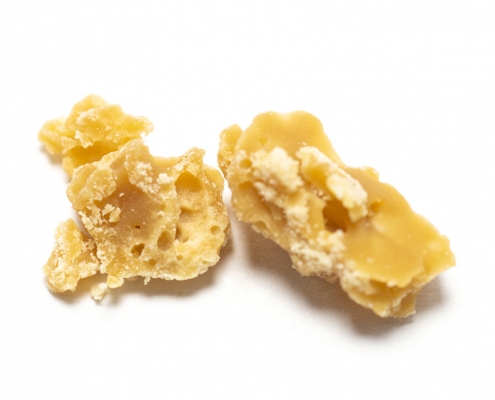 https://essencevegas.com/wp-content/uploads/2019/05/EVEN_InfernoOG_HoneyComb.jpg
800
800
[email protected]
https://essencevegas.com/wp-content/uploads/2021/02/Essence-Cannabis-Dispensary-Logo.png
[email protected]2019-05-02 11:15:352021-05-27 06:26:08Even – Big Chain Cobra Honeycomb
https://essencevegas.com/wp-content/uploads/2019/05/EVEN_InfernoOG_HoneyComb.jpg
800
800
[email protected]
https://essencevegas.com/wp-content/uploads/2021/02/Essence-Cannabis-Dispensary-Logo.png
[email protected]2019-05-02 11:15:352021-05-27 06:26:08Even – Big Chain Cobra Honeycomb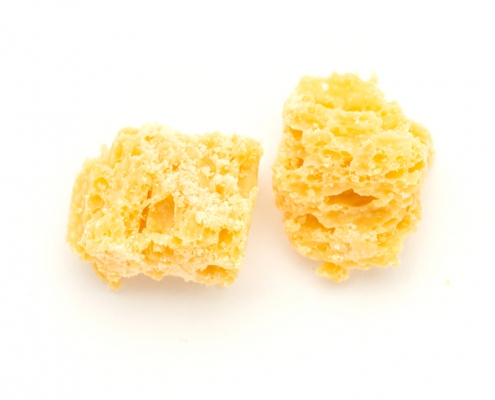 https://essencevegas.com/wp-content/uploads/2019/05/EVEN-Honeycomb-Cherry-Gorilla.jpg
800
800
[email protected]
https://essencevegas.com/wp-content/uploads/2021/02/Essence-Cannabis-Dispensary-Logo.png
[email protected]2019-05-02 11:22:242020-09-08 00:52:21Even – Cherry Gorilla Honeycomb
https://essencevegas.com/wp-content/uploads/2019/05/EVEN-Honeycomb-Cherry-Gorilla.jpg
800
800
[email protected]
https://essencevegas.com/wp-content/uploads/2021/02/Essence-Cannabis-Dispensary-Logo.png
[email protected]2019-05-02 11:22:242020-09-08 00:52:21Even – Cherry Gorilla Honeycomb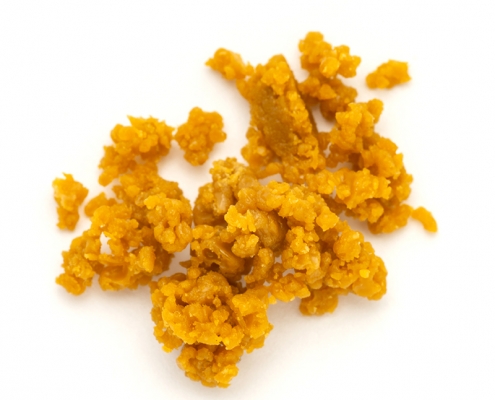 https://essencevegas.com/wp-content/uploads/2018/12/Even-Cannabis-Company-Cactus-OG-Honeycomb.jpg
800
800
[email protected]
https://essencevegas.com/wp-content/uploads/2021/02/Essence-Cannabis-Dispensary-Logo.png
[email protected]2018-12-27 13:43:232020-09-08 15:45:02Even Cannabis Company – Cactus OG Honeycomb
https://essencevegas.com/wp-content/uploads/2018/12/Even-Cannabis-Company-Cactus-OG-Honeycomb.jpg
800
800
[email protected]
https://essencevegas.com/wp-content/uploads/2021/02/Essence-Cannabis-Dispensary-Logo.png
[email protected]2018-12-27 13:43:232020-09-08 15:45:02Even Cannabis Company – Cactus OG Honeycomb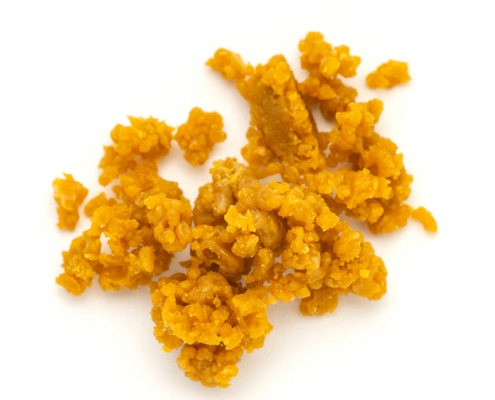 https://essencevegas.com/wp-content/uploads/2018/12/Even-Cannabis-Company-Cookie-Face-Honeycomb.jpg
800
800
[email protected]
https://essencevegas.com/wp-content/uploads/2021/02/Essence-Cannabis-Dispensary-Logo.png
[email protected]2018-12-27 13:59:112020-09-08 07:14:42Even Cannabis Company – Cookie Face Honeycomb
https://essencevegas.com/wp-content/uploads/2018/12/Even-Cannabis-Company-Cookie-Face-Honeycomb.jpg
800
800
[email protected]
https://essencevegas.com/wp-content/uploads/2021/02/Essence-Cannabis-Dispensary-Logo.png
[email protected]2018-12-27 13:59:112020-09-08 07:14:42Even Cannabis Company – Cookie Face Honeycomb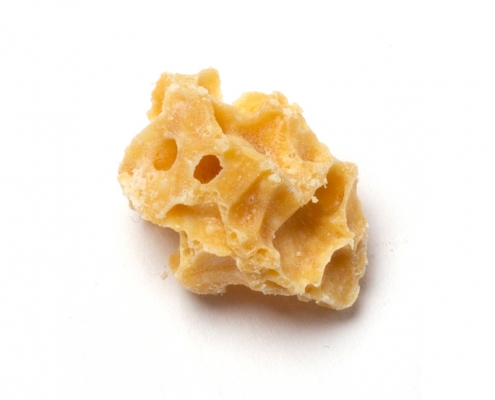 https://essencevegas.com/wp-content/uploads/2019/04/Even-Crumble-Desert-Grown-Glue.jpg
800
800
[email protected]
https://essencevegas.com/wp-content/uploads/2021/02/Essence-Cannabis-Dispensary-Logo.png
[email protected]2019-04-30 11:38:392021-05-27 06:31:28Even Cannabis Company – Desert Grown Glue Honeycomb
https://essencevegas.com/wp-content/uploads/2019/04/Even-Crumble-Desert-Grown-Glue.jpg
800
800
[email protected]
https://essencevegas.com/wp-content/uploads/2021/02/Essence-Cannabis-Dispensary-Logo.png
[email protected]2019-04-30 11:38:392021-05-27 06:31:28Even Cannabis Company – Desert Grown Glue Honeycomb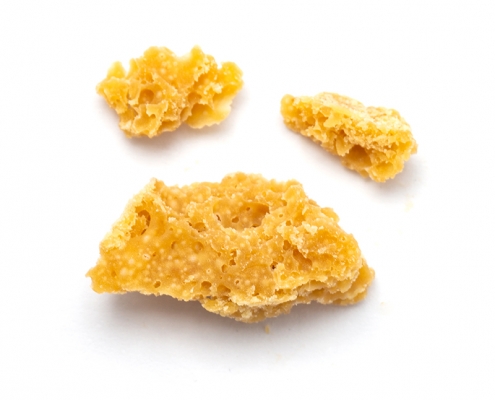 https://essencevegas.com/wp-content/uploads/2019/04/EVEN-Jack-Flash-Honeycomb.jpg
800
800
[email protected]
https://essencevegas.com/wp-content/uploads/2021/02/Essence-Cannabis-Dispensary-Logo.png
[email protected]2019-04-30 11:36:172019-04-30 11:36:17Even Cannabis Company – Jack Flash Honeycomb
https://essencevegas.com/wp-content/uploads/2019/04/EVEN-Jack-Flash-Honeycomb.jpg
800
800
[email protected]
https://essencevegas.com/wp-content/uploads/2021/02/Essence-Cannabis-Dispensary-Logo.png
[email protected]2019-04-30 11:36:172019-04-30 11:36:17Even Cannabis Company – Jack Flash Honeycomb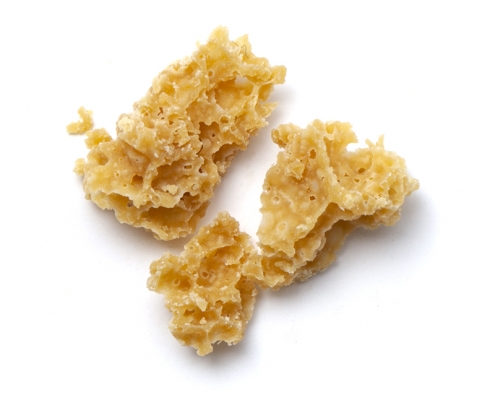 https://essencevegas.com/wp-content/uploads/2018/12/Even-Cannabis-Company-Joe-Fix-it-Honeycomb.jpg
800
800
[email protected]
https://essencevegas.com/wp-content/uploads/2021/02/Essence-Cannabis-Dispensary-Logo.png
[email protected]2018-12-27 14:39:212021-05-31 08:47:52Even Cannabis Company – Joe Fix-it Honeycomb
https://essencevegas.com/wp-content/uploads/2018/12/Even-Cannabis-Company-Joe-Fix-it-Honeycomb.jpg
800
800
[email protected]
https://essencevegas.com/wp-content/uploads/2021/02/Essence-Cannabis-Dispensary-Logo.png
[email protected]2018-12-27 14:39:212021-05-31 08:47:52Even Cannabis Company – Joe Fix-it Honeycomb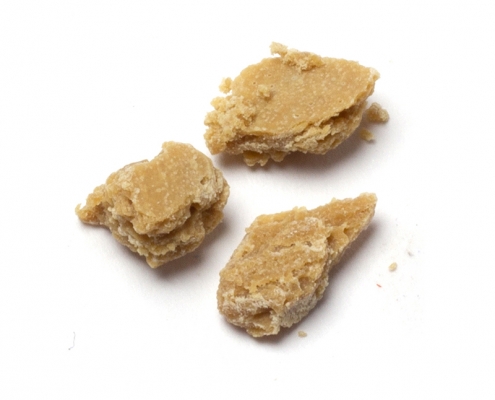 https://essencevegas.com/wp-content/uploads/2019/04/Even-Lemon-Merengue.jpg
800
800
[email protected]
https://essencevegas.com/wp-content/uploads/2021/02/Essence-Cannabis-Dispensary-Logo.png
[email protected]2019-04-30 11:41:342021-05-31 08:49:37Even Cannabis Company – Lemon Meringue Honeycomb
https://essencevegas.com/wp-content/uploads/2019/04/Even-Lemon-Merengue.jpg
800
800
[email protected]
https://essencevegas.com/wp-content/uploads/2021/02/Essence-Cannabis-Dispensary-Logo.png
[email protected]2019-04-30 11:41:342021-05-31 08:49:37Even Cannabis Company – Lemon Meringue Honeycomb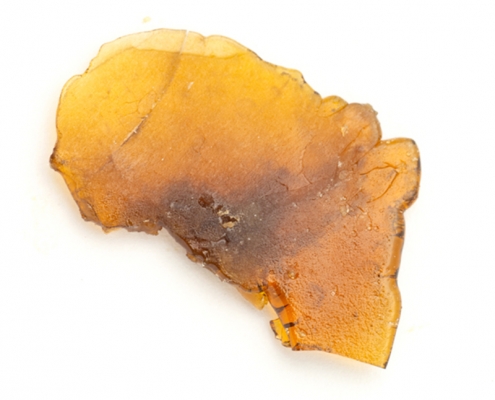 https://essencevegas.com/wp-content/uploads/2018/12/Even-Cannabis-Company-Lime-Skunk-Shatter.jpg
800
800
[email protected]
https://essencevegas.com/wp-content/uploads/2021/02/Essence-Cannabis-Dispensary-Logo.png
[email protected]2018-12-26 17:15:062021-05-31 08:50:34Even Cannabis Company – Lime Skunk Shatter
https://essencevegas.com/wp-content/uploads/2018/12/Even-Cannabis-Company-Lime-Skunk-Shatter.jpg
800
800
[email protected]
https://essencevegas.com/wp-content/uploads/2021/02/Essence-Cannabis-Dispensary-Logo.png
[email protected]2018-12-26 17:15:062021-05-31 08:50:34Even Cannabis Company – Lime Skunk Shatter https://essencevegas.com/wp-content/uploads/2018/12/Even-Cannabis-Company-OBTK-Honeycomb-1.jpg
800
800
[email protected]
https://essencevegas.com/wp-content/uploads/2021/02/Essence-Cannabis-Dispensary-Logo.png
[email protected]2018-12-27 16:05:302021-05-31 08:52:32Even Cannabis Company – OBTK Honeycomb
https://essencevegas.com/wp-content/uploads/2018/12/Even-Cannabis-Company-OBTK-Honeycomb-1.jpg
800
800
[email protected]
https://essencevegas.com/wp-content/uploads/2021/02/Essence-Cannabis-Dispensary-Logo.png
[email protected]2018-12-27 16:05:302021-05-31 08:52:32Even Cannabis Company – OBTK Honeycomb https://essencevegas.com/wp-content/uploads/2019/04/Polaris-Slab-Monster-Cookies.jpg
800
800
[email protected]
https://essencevegas.com/wp-content/uploads/2021/02/Essence-Cannabis-Dispensary-Logo.png
[email protected]2019-04-30 11:59:342021-05-31 08:55:04Even Cannabis Company – THC Bomb Honeycomb
https://essencevegas.com/wp-content/uploads/2019/04/Polaris-Slab-Monster-Cookies.jpg
800
800
[email protected]
https://essencevegas.com/wp-content/uploads/2021/02/Essence-Cannabis-Dispensary-Logo.png
[email protected]2019-04-30 11:59:342021-05-31 08:55:04Even Cannabis Company – THC Bomb Honeycomb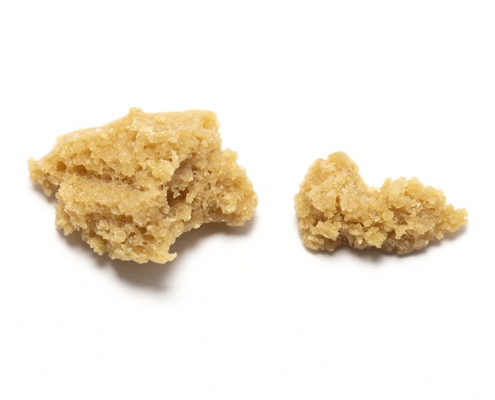 https://essencevegas.com/wp-content/uploads/2019/04/EVEN_Zelda_HoneyComb.jpg
800
800
[email protected]
https://essencevegas.com/wp-content/uploads/2021/02/Essence-Cannabis-Dispensary-Logo.png
[email protected]2019-04-30 11:55:222021-05-31 08:56:22Even Cannabis Company – Zelda Honeycomb
https://essencevegas.com/wp-content/uploads/2019/04/EVEN_Zelda_HoneyComb.jpg
800
800
[email protected]
https://essencevegas.com/wp-content/uploads/2021/02/Essence-Cannabis-Dispensary-Logo.png
[email protected]2019-04-30 11:55:222021-05-31 08:56:22Even Cannabis Company – Zelda Honeycomb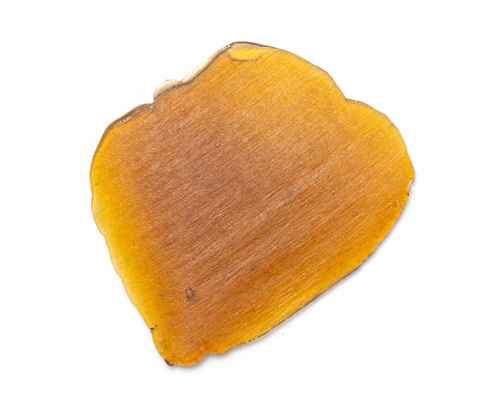 https://essencevegas.com/wp-content/uploads/2019/04/EVEN-Zelda-Shatter.jpg
800
800
[email protected]
https://essencevegas.com/wp-content/uploads/2021/02/Essence-Cannabis-Dispensary-Logo.png
[email protected]2019-04-30 11:57:412021-05-31 08:58:04Even Cannabis Company – Zelda Shatter
https://essencevegas.com/wp-content/uploads/2019/04/EVEN-Zelda-Shatter.jpg
800
800
[email protected]
https://essencevegas.com/wp-content/uploads/2021/02/Essence-Cannabis-Dispensary-Logo.png
[email protected]2019-04-30 11:57:412021-05-31 08:58:04Even Cannabis Company – Zelda Shatter https://essencevegas.com/wp-content/uploads/2018/12/Evergreen-Organic-CannaCubes-Cherry-Micro-Lozenges.jpg
800
800
[email protected]
https://essencevegas.com/wp-content/uploads/2021/02/Essence-Cannabis-Dispensary-Logo.png
[email protected]2018-12-26 16:45:462021-06-08 21:57:11Evergreen Organic – CannaCubes Cherry Micro Lozenges
https://essencevegas.com/wp-content/uploads/2018/12/Evergreen-Organic-CannaCubes-Cherry-Micro-Lozenges.jpg
800
800
[email protected]
https://essencevegas.com/wp-content/uploads/2021/02/Essence-Cannabis-Dispensary-Logo.png
[email protected]2018-12-26 16:45:462021-06-08 21:57:11Evergreen Organic – CannaCubes Cherry Micro Lozenges https://essencevegas.com/wp-content/uploads/2018/10/Evergreen-Organix-Chocolate-Chip-Cookie.jpg
800
800
[email protected]
https://essencevegas.com/wp-content/uploads/2021/02/Essence-Cannabis-Dispensary-Logo.png
[email protected]2018-10-11 17:14:292020-09-08 15:12:43Evergreen Organix – Chocolate Chip Cookie
https://essencevegas.com/wp-content/uploads/2018/10/Evergreen-Organix-Chocolate-Chip-Cookie.jpg
800
800
[email protected]
https://essencevegas.com/wp-content/uploads/2021/02/Essence-Cannabis-Dispensary-Logo.png
[email protected]2018-10-11 17:14:292020-09-08 15:12:43Evergreen Organix – Chocolate Chip Cookie https://essencevegas.com/wp-content/uploads/2018/10/Evergreen-Organix-Grape-CannaCubes.jpg
800
800
[email protected]
https://essencevegas.com/wp-content/uploads/2021/02/Essence-Cannabis-Dispensary-Logo.png
[email protected]2018-10-12 13:16:572021-06-08 21:59:22Evergreen Organix – Grape CannaCubes
https://essencevegas.com/wp-content/uploads/2018/10/Evergreen-Organix-Grape-CannaCubes.jpg
800
800
[email protected]
https://essencevegas.com/wp-content/uploads/2021/02/Essence-Cannabis-Dispensary-Logo.png
[email protected]2018-10-12 13:16:572021-06-08 21:59:22Evergreen Organix – Grape CannaCubes https://essencevegas.com/wp-content/uploads/2018/10/Evergreen-Organix-Honey-Mustard.jpg
800
800
[email protected]
https://essencevegas.com/wp-content/uploads/2021/02/Essence-Cannabis-Dispensary-Logo.png
[email protected]2018-10-12 11:32:282021-06-08 22:01:42Evergreen Organix – Honey Mustard
https://essencevegas.com/wp-content/uploads/2018/10/Evergreen-Organix-Honey-Mustard.jpg
800
800
[email protected]
https://essencevegas.com/wp-content/uploads/2021/02/Essence-Cannabis-Dispensary-Logo.png
[email protected]2018-10-12 11:32:282021-06-08 22:01:42Evergreen Organix – Honey Mustard https://essencevegas.com/wp-content/uploads/2018/10/Evergreen-Organix-Lavender-Vanilla-Massage-Oil.jpg
800
800
[email protected]
https://essencevegas.com/wp-content/uploads/2021/02/Essence-Cannabis-Dispensary-Logo.png
[email protected]2018-10-31 11:16:592021-06-08 22:11:03Evergreen Organix – Lavender Vanilla Massage Oil
https://essencevegas.com/wp-content/uploads/2018/10/Evergreen-Organix-Lavender-Vanilla-Massage-Oil.jpg
800
800
[email protected]
https://essencevegas.com/wp-content/uploads/2021/02/Essence-Cannabis-Dispensary-Logo.png
[email protected]2018-10-31 11:16:592021-06-08 22:11:03Evergreen Organix – Lavender Vanilla Massage Oil https://essencevegas.com/wp-content/uploads/2018/11/Evergreen-Organix-Magic-Bar-1.jpg
800
800
[email protected]
https://essencevegas.com/wp-content/uploads/2021/02/Essence-Cannabis-Dispensary-Logo.png
[email protected]2018-11-21 14:17:552019-04-01 15:43:58Evergreen Organix – Magic Bar
https://essencevegas.com/wp-content/uploads/2018/11/Evergreen-Organix-Magic-Bar-1.jpg
800
800
[email protected]
https://essencevegas.com/wp-content/uploads/2021/02/Essence-Cannabis-Dispensary-Logo.png
[email protected]2018-11-21 14:17:552019-04-01 15:43:58Evergreen Organix – Magic Bar https://essencevegas.com/wp-content/uploads/2019/04/OMG-GI-Support.jpg
800
800
[email protected]
https://essencevegas.com/wp-content/uploads/2021/02/Essence-Cannabis-Dispensary-Logo.png
[email protected]2019-04-30 09:22:212021-06-25 01:57:27Experience Premium Cannabis – GI Support Tincture
https://essencevegas.com/wp-content/uploads/2019/04/OMG-GI-Support.jpg
800
800
[email protected]
https://essencevegas.com/wp-content/uploads/2021/02/Essence-Cannabis-Dispensary-Logo.png
[email protected]2019-04-30 09:22:212021-06-25 01:57:27Experience Premium Cannabis – GI Support Tincture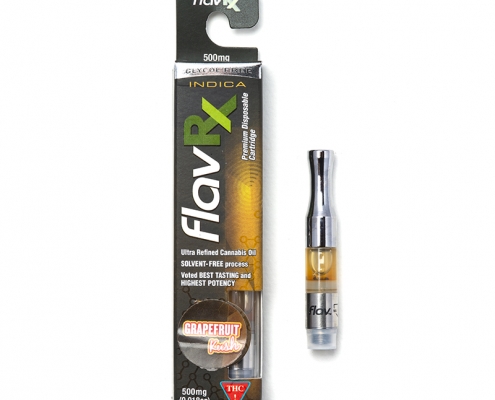 https://essencevegas.com/wp-content/uploads/2018/08/FlavRX-Grapefruit-Cartridge-1.jpg
800
800
[email protected]
https://essencevegas.com/wp-content/uploads/2021/02/Essence-Cannabis-Dispensary-Logo.png
[email protected]2018-08-31 11:22:422021-06-25 04:08:59FlavRX – Grapefruit Cartridge
https://essencevegas.com/wp-content/uploads/2018/08/FlavRX-Grapefruit-Cartridge-1.jpg
800
800
[email protected]
https://essencevegas.com/wp-content/uploads/2021/02/Essence-Cannabis-Dispensary-Logo.png
[email protected]2018-08-31 11:22:422021-06-25 04:08:59FlavRX – Grapefruit Cartridge https://essencevegas.com/wp-content/uploads/2018/08/FlavRX_Indica-Sky-Walker.jpg
900
900
[email protected]
https://essencevegas.com/wp-content/uploads/2021/02/Essence-Cannabis-Dispensary-Logo.png
[email protected]2018-08-28 09:39:522020-09-08 07:03:33FlavRX – Skywalker OG Cartridge
https://essencevegas.com/wp-content/uploads/2018/08/FlavRX_Indica-Sky-Walker.jpg
900
900
[email protected]
https://essencevegas.com/wp-content/uploads/2021/02/Essence-Cannabis-Dispensary-Logo.png
[email protected]2018-08-28 09:39:522020-09-08 07:03:33FlavRX – Skywalker OG Cartridge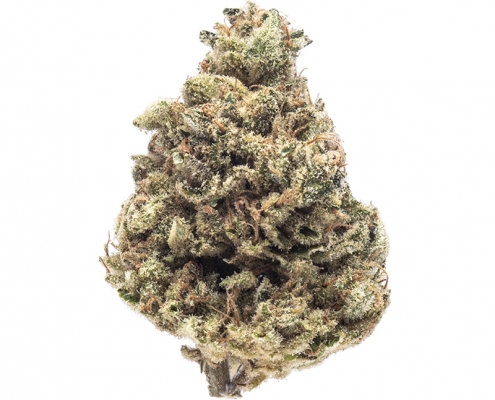 https://essencevegas.com/wp-content/uploads/2018/11/Fleur-Cherry-Chem.jpg
800
800
[email protected]
https://essencevegas.com/wp-content/uploads/2021/02/Essence-Cannabis-Dispensary-Logo.png
[email protected]2018-11-05 10:23:272021-05-19 12:41:00Fleur – Cherry Chem
https://essencevegas.com/wp-content/uploads/2018/11/Fleur-Cherry-Chem.jpg
800
800
[email protected]
https://essencevegas.com/wp-content/uploads/2021/02/Essence-Cannabis-Dispensary-Logo.png
[email protected]2018-11-05 10:23:272021-05-19 12:41:00Fleur – Cherry Chem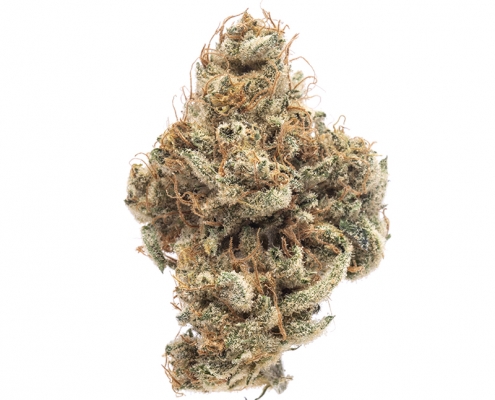 https://essencevegas.com/wp-content/uploads/2018/11/Fleur-Cookies-n-Cream.jpg
800
800
[email protected]
https://essencevegas.com/wp-content/uploads/2021/02/Essence-Cannabis-Dispensary-Logo.png
[email protected]2018-11-05 10:46:172019-04-01 15:49:06Fleur – Cookies ‘n’ Cream
https://essencevegas.com/wp-content/uploads/2018/11/Fleur-Cookies-n-Cream.jpg
800
800
[email protected]
https://essencevegas.com/wp-content/uploads/2021/02/Essence-Cannabis-Dispensary-Logo.png
[email protected]2018-11-05 10:46:172019-04-01 15:49:06Fleur – Cookies ‘n’ Cream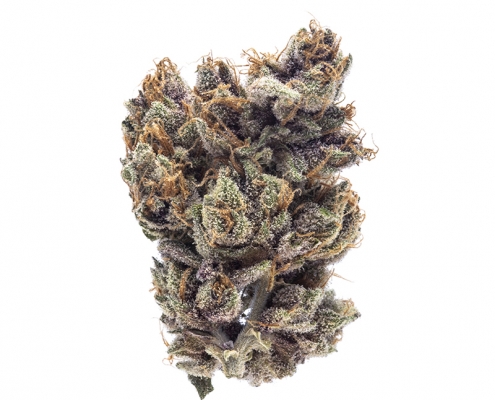 https://essencevegas.com/wp-content/uploads/2018/10/Fleur-Plum-Crazy.jpg
800
800
[email protected]
https://essencevegas.com/wp-content/uploads/2021/02/Essence-Cannabis-Dispensary-Logo.png
[email protected]2018-10-31 11:37:162021-05-19 13:06:14Fleur – Plum Crazy
https://essencevegas.com/wp-content/uploads/2018/10/Fleur-Plum-Crazy.jpg
800
800
[email protected]
https://essencevegas.com/wp-content/uploads/2021/02/Essence-Cannabis-Dispensary-Logo.png
[email protected]2018-10-31 11:37:162021-05-19 13:06:14Fleur – Plum Crazy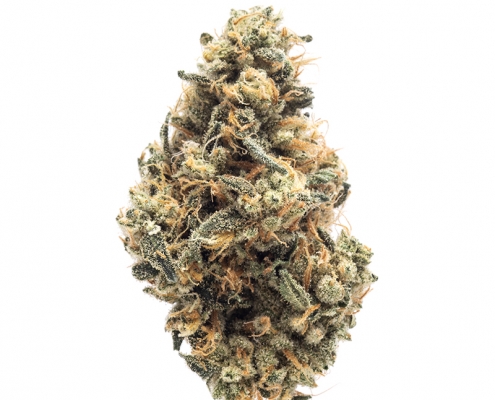 https://essencevegas.com/wp-content/uploads/2018/12/Fleur-Triple-Bodhi.jpg
800
800
[email protected]
https://essencevegas.com/wp-content/uploads/2021/02/Essence-Cannabis-Dispensary-Logo.png
[email protected]2018-12-21 11:13:382020-09-08 02:43:42Fleur – Triple Bodhi
https://essencevegas.com/wp-content/uploads/2018/12/Fleur-Triple-Bodhi.jpg
800
800
[email protected]
https://essencevegas.com/wp-content/uploads/2021/02/Essence-Cannabis-Dispensary-Logo.png
[email protected]2018-12-21 11:13:382020-09-08 02:43:42Fleur – Triple Bodhi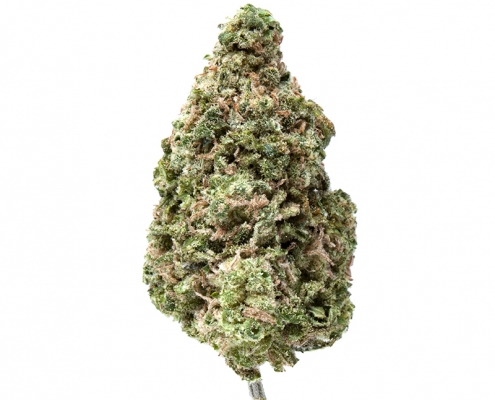 https://essencevegas.com/wp-content/uploads/2018/12/Cannabiotix-Giesel-1.jpg
800
800
[email protected]
https://essencevegas.com/wp-content/uploads/2021/02/Essence-Cannabis-Dispensary-Logo.png
[email protected]2018-12-21 11:48:182020-09-08 02:01:58Garden of Weeden – Giesel
https://essencevegas.com/wp-content/uploads/2018/12/Cannabiotix-Giesel-1.jpg
800
800
[email protected]
https://essencevegas.com/wp-content/uploads/2021/02/Essence-Cannabis-Dispensary-Logo.png
[email protected]2018-12-21 11:48:182020-09-08 02:01:58Garden of Weeden – Giesel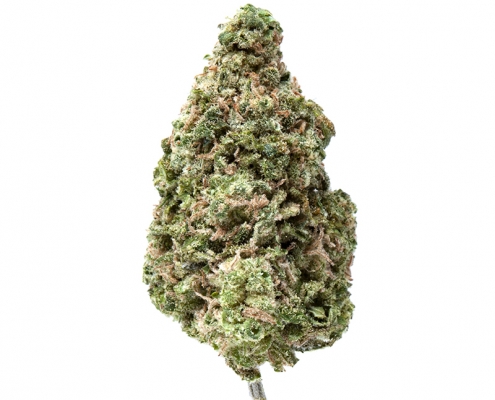 https://essencevegas.com/wp-content/uploads/2018/07/Cannabiotix-Giesel.jpg
800
800
[email protected]
https://essencevegas.com/wp-content/uploads/2021/02/Essence-Cannabis-Dispensary-Logo.png
[email protected]2018-07-24 11:20:362019-12-04 03:02:13Garden of Weeden – Giesel
https://essencevegas.com/wp-content/uploads/2018/07/Cannabiotix-Giesel.jpg
800
800
[email protected]
https://essencevegas.com/wp-content/uploads/2021/02/Essence-Cannabis-Dispensary-Logo.png
[email protected]2018-07-24 11:20:362019-12-04 03:02:13Garden of Weeden – Giesel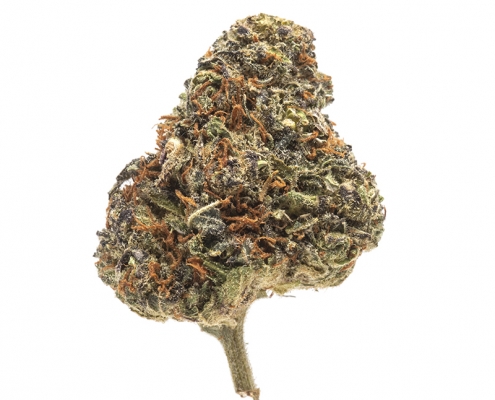 https://essencevegas.com/wp-content/uploads/2018/11/KIFF-Burkle-1.jpg
800
800
[email protected]
https://essencevegas.com/wp-content/uploads/2021/02/Essence-Cannabis-Dispensary-Logo.png
[email protected]2018-11-08 12:02:422020-09-08 03:38:28Garden of Weeden – Super Lemon Haze
https://essencevegas.com/wp-content/uploads/2018/11/KIFF-Burkle-1.jpg
800
800
[email protected]
https://essencevegas.com/wp-content/uploads/2021/02/Essence-Cannabis-Dispensary-Logo.png
[email protected]2018-11-08 12:02:422020-09-08 03:38:28Garden of Weeden – Super Lemon Haze https://essencevegas.com/wp-content/uploads/2018/12/GLP-Baby-Js-Vegas-Pre-Roll.jpg
800
800
[email protected]
https://essencevegas.com/wp-content/uploads/2021/02/Essence-Cannabis-Dispensary-Logo.png
[email protected]2018-12-28 15:15:012021-06-10 14:08:14GLP – Baby J’s Vegas Pre-Roll
https://essencevegas.com/wp-content/uploads/2018/12/GLP-Baby-Js-Vegas-Pre-Roll.jpg
800
800
[email protected]
https://essencevegas.com/wp-content/uploads/2021/02/Essence-Cannabis-Dispensary-Logo.png
[email protected]2018-12-28 15:15:012021-06-10 14:08:14GLP – Baby J’s Vegas Pre-Roll https://essencevegas.com/wp-content/uploads/2018/10/Grace-Notes-Peach-Taffy-Notes.jpg
800
800
[email protected]
https://essencevegas.com/wp-content/uploads/2021/02/Essence-Cannabis-Dispensary-Logo.png
[email protected]2018-10-15 11:03:142021-06-08 22:12:41Grace Notes – Peach Taffy Notes
https://essencevegas.com/wp-content/uploads/2018/10/Grace-Notes-Peach-Taffy-Notes.jpg
800
800
[email protected]
https://essencevegas.com/wp-content/uploads/2021/02/Essence-Cannabis-Dispensary-Logo.png
[email protected]2018-10-15 11:03:142021-06-08 22:12:41Grace Notes – Peach Taffy Notes https://essencevegas.com/wp-content/uploads/2018/10/Grace-Notes-Pineapple-Taffy-Notes.jpg
800
800
[email protected]
https://essencevegas.com/wp-content/uploads/2021/02/Essence-Cannabis-Dispensary-Logo.png
[email protected]2018-10-15 11:25:392020-09-08 14:28:52Grace Notes – Pineapple Taffy Notes
https://essencevegas.com/wp-content/uploads/2018/10/Grace-Notes-Pineapple-Taffy-Notes.jpg
800
800
[email protected]
https://essencevegas.com/wp-content/uploads/2021/02/Essence-Cannabis-Dispensary-Logo.png
[email protected]2018-10-15 11:25:392020-09-08 14:28:52Grace Notes – Pineapple Taffy Notes https://essencevegas.com/wp-content/uploads/2018/10/Grace-Notes-Watermelon-Taffy-Notes.jpg
800
800
[email protected]
https://essencevegas.com/wp-content/uploads/2021/02/Essence-Cannabis-Dispensary-Logo.png
[email protected]2018-10-15 11:55:072020-09-08 01:58:29Grace Notes – Watermelon Taffy Notes
https://essencevegas.com/wp-content/uploads/2018/10/Grace-Notes-Watermelon-Taffy-Notes.jpg
800
800
[email protected]
https://essencevegas.com/wp-content/uploads/2021/02/Essence-Cannabis-Dispensary-Logo.png
[email protected]2018-10-15 11:55:072020-09-08 01:58:29Grace Notes – Watermelon Taffy Notes https://essencevegas.com/wp-content/uploads/2018/12/Remedy-Platinum-GSC.jpg
800
800
[email protected]
https://essencevegas.com/wp-content/uploads/2021/02/Essence-Cannabis-Dispensary-Logo.png
[email protected]2018-12-18 09:33:582021-05-25 03:03:19Green Life Productions – Platinum GSC
https://essencevegas.com/wp-content/uploads/2018/12/Remedy-Platinum-GSC.jpg
800
800
[email protected]
https://essencevegas.com/wp-content/uploads/2021/02/Essence-Cannabis-Dispensary-Logo.png
[email protected]2018-12-18 09:33:582021-05-25 03:03:19Green Life Productions – Platinum GSC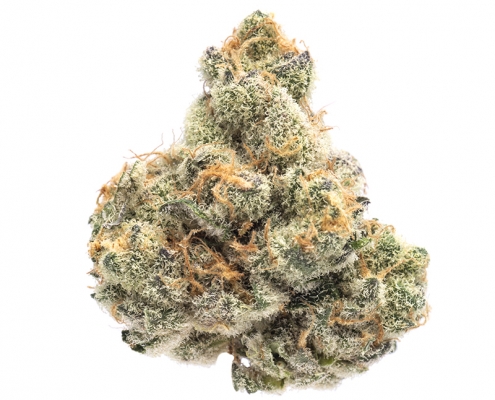 https://essencevegas.com/wp-content/uploads/2018/11/Green-Life-Productions-Grateful-Breath.jpg
800
800
[email protected]
https://essencevegas.com/wp-content/uploads/2021/02/Essence-Cannabis-Dispensary-Logo.png
[email protected]2018-11-21 14:52:302021-03-26 08:02:57Green Life Productions – Grateful Breath
https://essencevegas.com/wp-content/uploads/2018/11/Green-Life-Productions-Grateful-Breath.jpg
800
800
[email protected]
https://essencevegas.com/wp-content/uploads/2021/02/Essence-Cannabis-Dispensary-Logo.png
[email protected]2018-11-21 14:52:302021-03-26 08:02:57Green Life Productions – Grateful Breath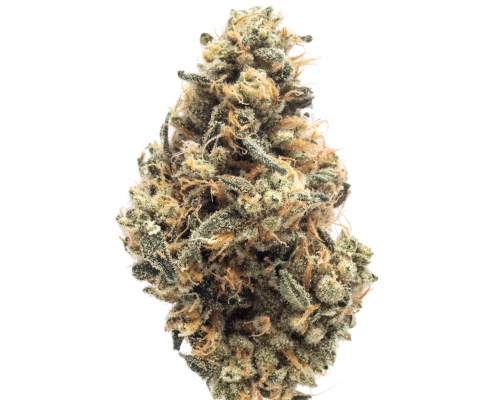 https://essencevegas.com/wp-content/uploads/2018/12/GLP_MISSX_1.jpg
4203
4204
[email protected]
https://essencevegas.com/wp-content/uploads/2021/02/Essence-Cannabis-Dispensary-Logo.png
[email protected]2018-12-21 12:53:322021-03-26 04:23:28Green Life Productions – Miss X
https://essencevegas.com/wp-content/uploads/2018/12/GLP_MISSX_1.jpg
4203
4204
[email protected]
https://essencevegas.com/wp-content/uploads/2021/02/Essence-Cannabis-Dispensary-Logo.png
[email protected]2018-12-21 12:53:322021-03-26 04:23:28Green Life Productions – Miss X https://essencevegas.com/wp-content/uploads/2018/11/GLP_VCM_preroll-1-1.jpg
3830
3831
[email protected]
https://essencevegas.com/wp-content/uploads/2021/02/Essence-Cannabis-Dispensary-Logo.png
[email protected]2018-11-08 08:48:312021-06-10 14:09:59Green Life Productions – VCM #2 Pre-Rolled
https://essencevegas.com/wp-content/uploads/2018/11/GLP_VCM_preroll-1-1.jpg
3830
3831
[email protected]
https://essencevegas.com/wp-content/uploads/2021/02/Essence-Cannabis-Dispensary-Logo.png
[email protected]2018-11-08 08:48:312021-06-10 14:09:59Green Life Productions – VCM #2 Pre-Rolled https://essencevegas.com/wp-content/uploads/2018/11/Green-Life-Productions-VCM-2-Pre-Rolled.jpg
800
800
[email protected]
https://essencevegas.com/wp-content/uploads/2021/02/Essence-Cannabis-Dispensary-Logo.png
[email protected]2018-11-05 16:17:422020-09-08 02:45:31Green Life Productions – VCM #3 Pre-Roll
https://essencevegas.com/wp-content/uploads/2018/11/Green-Life-Productions-VCM-2-Pre-Rolled.jpg
800
800
[email protected]
https://essencevegas.com/wp-content/uploads/2021/02/Essence-Cannabis-Dispensary-Logo.png
[email protected]2018-11-05 16:17:422020-09-08 02:45:31Green Life Productions – VCM #3 Pre-Roll https://essencevegas.com/wp-content/uploads/2019/02/W-Preroll-Sativa-1.jpg
800
800
[email protected]
https://essencevegas.com/wp-content/uploads/2021/02/Essence-Cannabis-Dispensary-Logo.png
[email protected]2019-02-19 11:07:532021-06-10 14:11:48Green Water Farms – Tangerine Kush
https://essencevegas.com/wp-content/uploads/2019/02/W-Preroll-Sativa-1.jpg
800
800
[email protected]
https://essencevegas.com/wp-content/uploads/2021/02/Essence-Cannabis-Dispensary-Logo.png
[email protected]2019-02-19 11:07:532021-06-10 14:11:48Green Water Farms – Tangerine Kush https://essencevegas.com/wp-content/uploads/2019/02/Green-Water-Farms-Preroll-2.jpg
800
800
[email protected]
https://essencevegas.com/wp-content/uploads/2021/02/Essence-Cannabis-Dispensary-Logo.png
[email protected]2019-02-19 09:02:262020-09-08 02:12:14Green Way Medical – Apple Cobbler Preroll
https://essencevegas.com/wp-content/uploads/2019/02/Green-Water-Farms-Preroll-2.jpg
800
800
[email protected]
https://essencevegas.com/wp-content/uploads/2021/02/Essence-Cannabis-Dispensary-Logo.png
[email protected]2019-02-19 09:02:262020-09-08 02:12:14Green Way Medical – Apple Cobbler Preroll https://essencevegas.com/wp-content/uploads/2019/02/Greenway-Medical-Preroll.jpg
800
800
[email protected]
https://essencevegas.com/wp-content/uploads/2021/02/Essence-Cannabis-Dispensary-Logo.png
[email protected]2019-02-19 10:06:532020-09-08 15:00:41Green Way Medical – Bleating Goat
https://essencevegas.com/wp-content/uploads/2019/02/Greenway-Medical-Preroll.jpg
800
800
[email protected]
https://essencevegas.com/wp-content/uploads/2021/02/Essence-Cannabis-Dispensary-Logo.png
[email protected]2019-02-19 10:06:532020-09-08 15:00:41Green Way Medical – Bleating Goat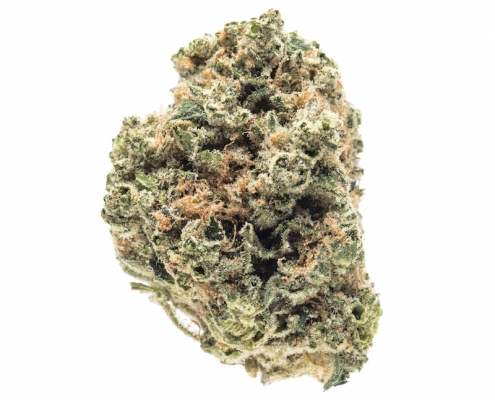 https://essencevegas.com/wp-content/uploads/2019/02/GreenLeaf_3Pac-1.jpg
800
800
[email protected]
https://essencevegas.com/wp-content/uploads/2021/02/Essence-Cannabis-Dispensary-Logo.png
[email protected]2019-02-18 12:30:562021-05-20 07:24:32Greenleaf – 3 Pac #4
https://essencevegas.com/wp-content/uploads/2019/02/GreenLeaf_3Pac-1.jpg
800
800
[email protected]
https://essencevegas.com/wp-content/uploads/2021/02/Essence-Cannabis-Dispensary-Logo.png
[email protected]2019-02-18 12:30:562021-05-20 07:24:32Greenleaf – 3 Pac #4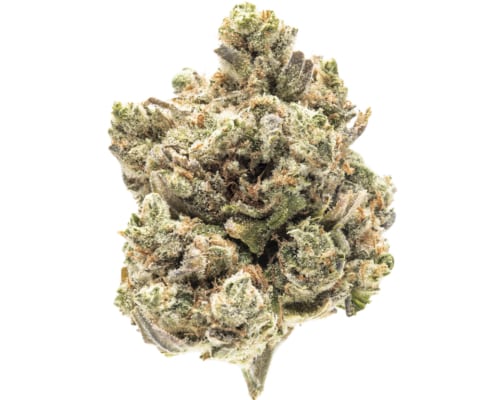 https://essencevegas.com/wp-content/uploads/2018/07/Greenleaf_BananaOG.jpg
1200
1200
[email protected]
https://essencevegas.com/wp-content/uploads/2021/02/Essence-Cannabis-Dispensary-Logo.png
[email protected]2018-07-24 14:01:572021-05-20 03:31:15Greenleaf – Banana OG
https://essencevegas.com/wp-content/uploads/2018/07/Greenleaf_BananaOG.jpg
1200
1200
[email protected]
https://essencevegas.com/wp-content/uploads/2021/02/Essence-Cannabis-Dispensary-Logo.png
[email protected]2018-07-24 14:01:572021-05-20 03:31:15Greenleaf – Banana OG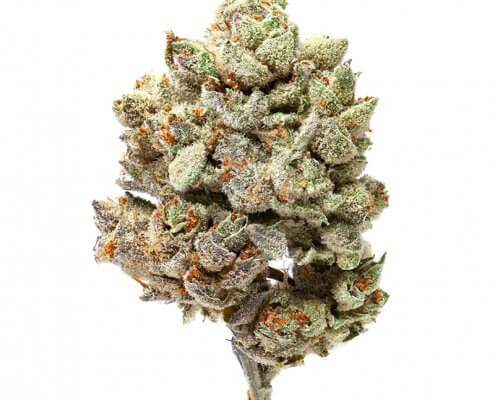 https://essencevegas.com/wp-content/uploads/2018/11/MOJ-Lemon-Skunk.jpg
800
800
[email protected]
https://essencevegas.com/wp-content/uploads/2021/02/Essence-Cannabis-Dispensary-Logo.png
[email protected]2018-11-09 16:07:522021-03-26 05:18:13Greenleaf – Lemon Skunk
https://essencevegas.com/wp-content/uploads/2018/11/MOJ-Lemon-Skunk.jpg
800
800
[email protected]
https://essencevegas.com/wp-content/uploads/2021/02/Essence-Cannabis-Dispensary-Logo.png
[email protected]2018-11-09 16:07:522021-03-26 05:18:13Greenleaf – Lemon Skunk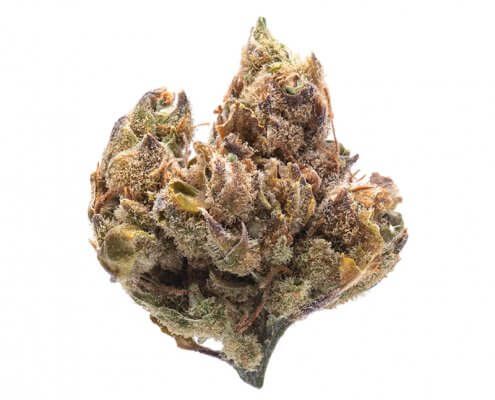 https://essencevegas.com/wp-content/uploads/2018/11/MOJ-Sour-Tsunami.jpg
800
800
[email protected]
https://essencevegas.com/wp-content/uploads/2021/02/Essence-Cannabis-Dispensary-Logo.png
[email protected]2018-11-22 11:10:352021-05-24 08:09:28Greenleaf – Sour Tsunami
https://essencevegas.com/wp-content/uploads/2018/11/MOJ-Sour-Tsunami.jpg
800
800
[email protected]
https://essencevegas.com/wp-content/uploads/2021/02/Essence-Cannabis-Dispensary-Logo.png
[email protected]2018-11-22 11:10:352021-05-24 08:09:28Greenleaf – Sour Tsunami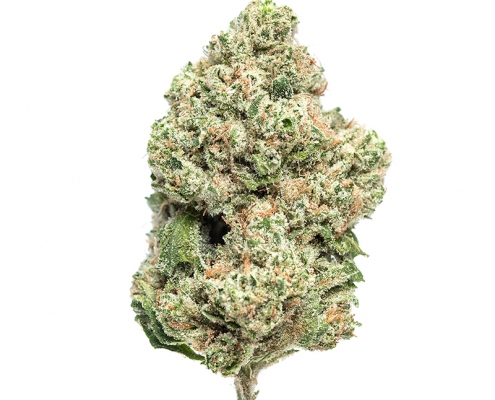 https://essencevegas.com/wp-content/uploads/2018/12/Greenway-Medical-Curious-George-7.jpg
800
800
[email protected]
https://essencevegas.com/wp-content/uploads/2021/02/Essence-Cannabis-Dispensary-Logo.png
[email protected]2018-12-10 14:11:132021-05-20 07:26:55Greenway Medical – Curious George #7
https://essencevegas.com/wp-content/uploads/2018/12/Greenway-Medical-Curious-George-7.jpg
800
800
[email protected]
https://essencevegas.com/wp-content/uploads/2021/02/Essence-Cannabis-Dispensary-Logo.png
[email protected]2018-12-10 14:11:132021-05-20 07:26:55Greenway Medical – Curious George #7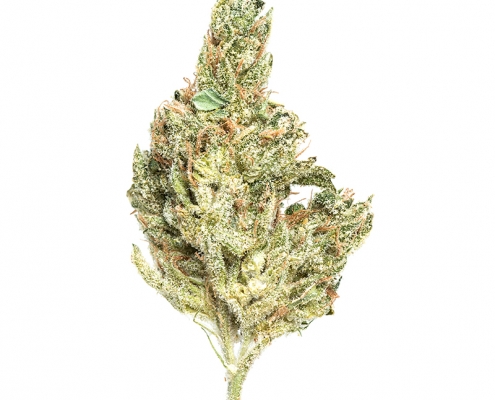 https://essencevegas.com/wp-content/uploads/2018/12/Greenway-Medical-Ghost-Train-Haze.jpg
800
800
[email protected]
https://essencevegas.com/wp-content/uploads/2021/02/Essence-Cannabis-Dispensary-Logo.png
[email protected]2018-12-10 14:54:212021-05-20 07:39:51Greenway Medical – Ghost Train Haze
https://essencevegas.com/wp-content/uploads/2018/12/Greenway-Medical-Ghost-Train-Haze.jpg
800
800
[email protected]
https://essencevegas.com/wp-content/uploads/2021/02/Essence-Cannabis-Dispensary-Logo.png
[email protected]2018-12-10 14:54:212021-05-20 07:39:51Greenway Medical – Ghost Train Haze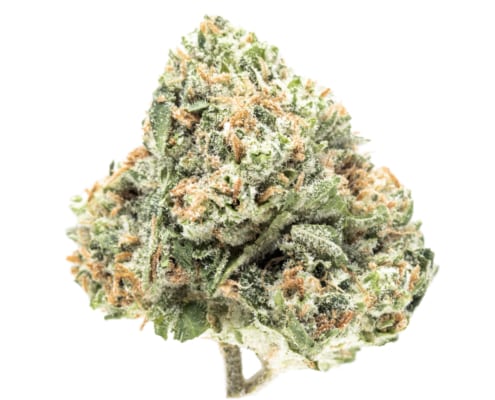 https://essencevegas.com/wp-content/uploads/2018/07/GreenwayMedical_GojiOG.jpg
1200
1200
[email protected]
https://essencevegas.com/wp-content/uploads/2021/02/Essence-Cannabis-Dispensary-Logo.png
[email protected]2018-07-24 11:35:182021-05-20 05:17:11Greenway Medical – Goji OG
https://essencevegas.com/wp-content/uploads/2018/07/GreenwayMedical_GojiOG.jpg
1200
1200
[email protected]
https://essencevegas.com/wp-content/uploads/2021/02/Essence-Cannabis-Dispensary-Logo.png
[email protected]2018-07-24 11:35:182021-05-20 05:17:11Greenway Medical – Goji OG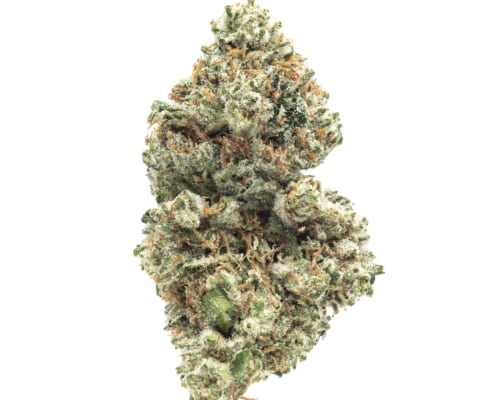 https://essencevegas.com/wp-content/uploads/2018/07/Greenway_Glue.jpg
1200
1200
[email protected]
https://essencevegas.com/wp-content/uploads/2021/02/Essence-Cannabis-Dispensary-Logo.png
[email protected]2018-07-24 12:11:392021-05-20 05:18:52Greenway Medical – Greenway Glue
https://essencevegas.com/wp-content/uploads/2018/07/Greenway_Glue.jpg
1200
1200
[email protected]
https://essencevegas.com/wp-content/uploads/2021/02/Essence-Cannabis-Dispensary-Logo.png
[email protected]2018-07-24 12:11:392021-05-20 05:18:52Greenway Medical – Greenway Glue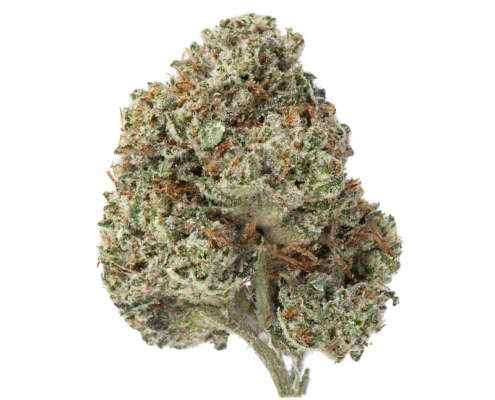 https://essencevegas.com/wp-content/uploads/2019/02/Green-Way_Hells-OG-1.jpg
800
800
[email protected]
https://essencevegas.com/wp-content/uploads/2021/02/Essence-Cannabis-Dispensary-Logo.png
[email protected]2019-02-18 13:40:232021-05-20 07:48:37Greenway Medical – Hell’s OG
https://essencevegas.com/wp-content/uploads/2019/02/Green-Way_Hells-OG-1.jpg
800
800
[email protected]
https://essencevegas.com/wp-content/uploads/2021/02/Essence-Cannabis-Dispensary-Logo.png
[email protected]2019-02-18 13:40:232021-05-20 07:48:37Greenway Medical – Hell’s OG https://essencevegas.com/wp-content/uploads/2018/07/Greenway_JamacianTenSpeed.jpg
1200
1200
[email protected]
https://essencevegas.com/wp-content/uploads/2021/02/Essence-Cannabis-Dispensary-Logo.png
[email protected]2018-07-24 12:21:032021-05-20 05:21:54Greenway Medical – Jamaican Tenspeed
https://essencevegas.com/wp-content/uploads/2018/07/Greenway_JamacianTenSpeed.jpg
1200
1200
[email protected]
https://essencevegas.com/wp-content/uploads/2021/02/Essence-Cannabis-Dispensary-Logo.png
[email protected]2018-07-24 12:21:032021-05-20 05:21:54Greenway Medical – Jamaican Tenspeed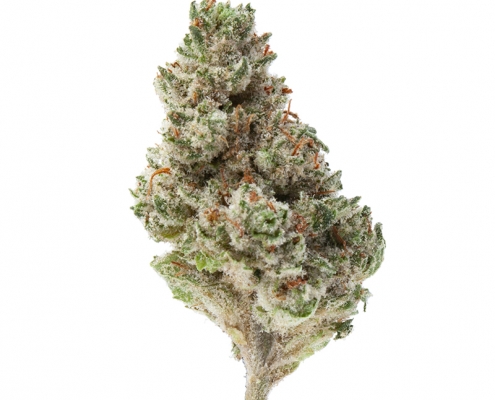 https://essencevegas.com/wp-content/uploads/2018/12/Greenway-Medical-Pootie-Tang.jpg
800
800
[email protected]
https://essencevegas.com/wp-content/uploads/2021/02/Essence-Cannabis-Dispensary-Logo.png
[email protected]2018-12-10 14:29:162021-05-20 07:51:17Greenway Medical – Pootie Tang
https://essencevegas.com/wp-content/uploads/2018/12/Greenway-Medical-Pootie-Tang.jpg
800
800
[email protected]
https://essencevegas.com/wp-content/uploads/2021/02/Essence-Cannabis-Dispensary-Logo.png
[email protected]2018-12-10 14:29:162021-05-20 07:51:17Greenway Medical – Pootie Tang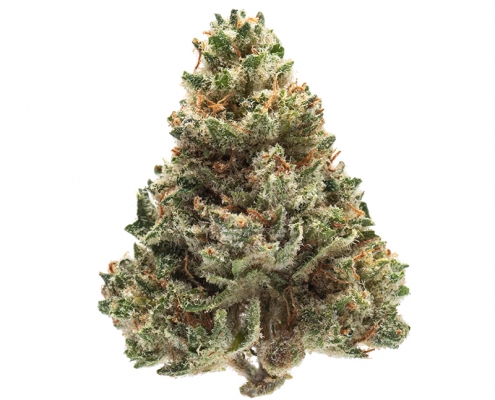 https://essencevegas.com/wp-content/uploads/2018/11/Green-Way-Marijuana-Red-Headed-Stranger-1.jpg
800
800
[email protected]
https://essencevegas.com/wp-content/uploads/2021/02/Essence-Cannabis-Dispensary-Logo.png
[email protected]2018-11-21 16:45:052021-05-20 07:23:27Greenway Medical – Red Headed Stranger
https://essencevegas.com/wp-content/uploads/2018/11/Green-Way-Marijuana-Red-Headed-Stranger-1.jpg
800
800
[email protected]
https://essencevegas.com/wp-content/uploads/2021/02/Essence-Cannabis-Dispensary-Logo.png
[email protected]2018-11-21 16:45:052021-05-20 07:23:27Greenway Medical – Red Headed Stranger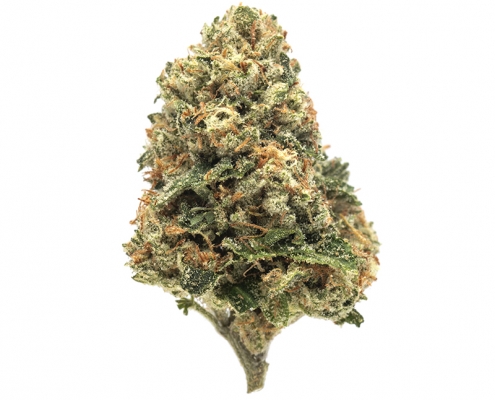 https://essencevegas.com/wp-content/uploads/2018/10/Greenway-Medical-Rose-OG-1.jpg
800
800
[email protected]
https://essencevegas.com/wp-content/uploads/2021/02/Essence-Cannabis-Dispensary-Logo.png
[email protected]2018-10-31 11:59:502019-04-01 16:11:30Greenway Medical – Rose OG
https://essencevegas.com/wp-content/uploads/2018/10/Greenway-Medical-Rose-OG-1.jpg
800
800
[email protected]
https://essencevegas.com/wp-content/uploads/2021/02/Essence-Cannabis-Dispensary-Logo.png
[email protected]2018-10-31 11:59:502019-04-01 16:11:30Greenway Medical – Rose OG https://essencevegas.com/wp-content/uploads/2018/12/Greenway-Medical-Rose-OG-1.jpg
800
800
[email protected]
https://essencevegas.com/wp-content/uploads/2021/02/Essence-Cannabis-Dispensary-Logo.png
[email protected]2018-12-10 14:37:562020-09-08 15:40:17Greenway Medical – Skunkberry
https://essencevegas.com/wp-content/uploads/2018/12/Greenway-Medical-Rose-OG-1.jpg
800
800
[email protected]
https://essencevegas.com/wp-content/uploads/2021/02/Essence-Cannabis-Dispensary-Logo.png
[email protected]2018-12-10 14:37:562020-09-08 15:40:17Greenway Medical – Skunkberry https://essencevegas.com/wp-content/uploads/2018/12/Greenway-Medical-UK-Cheese.jpg
800
800
[email protected]
https://essencevegas.com/wp-content/uploads/2021/02/Essence-Cannabis-Dispensary-Logo.png
[email protected]2018-12-10 14:45:302021-03-26 04:55:40Greenway Medical – UK Cheese
https://essencevegas.com/wp-content/uploads/2018/12/Greenway-Medical-UK-Cheese.jpg
800
800
[email protected]
https://essencevegas.com/wp-content/uploads/2021/02/Essence-Cannabis-Dispensary-Logo.png
[email protected]2018-12-10 14:45:302021-03-26 04:55:40Greenway Medical – UK Cheese https://essencevegas.com/wp-content/uploads/2018/12/GWM-Prodigium-Pre-Roll.jpg
800
800
[email protected]
https://essencevegas.com/wp-content/uploads/2021/02/Essence-Cannabis-Dispensary-Logo.png
[email protected]2018-12-28 15:26:352021-03-26 04:19:06GWM – Prodigium Pre-Roll
https://essencevegas.com/wp-content/uploads/2018/12/GWM-Prodigium-Pre-Roll.jpg
800
800
[email protected]
https://essencevegas.com/wp-content/uploads/2021/02/Essence-Cannabis-Dispensary-Logo.png
[email protected]2018-12-28 15:26:352021-03-26 04:19:06GWM – Prodigium Pre-Roll https://essencevegas.com/wp-content/uploads/2018/10/Highly-Edible_Assorted-Pucks.jpg
900
900
[email protected]
https://essencevegas.com/wp-content/uploads/2021/02/Essence-Cannabis-Dispensary-Logo.png
[email protected]2018-10-12 14:19:582021-06-08 22:15:11Highly Edible – Assorted Sativa Fruit Pucks
https://essencevegas.com/wp-content/uploads/2018/10/Highly-Edible_Assorted-Pucks.jpg
900
900
[email protected]
https://essencevegas.com/wp-content/uploads/2021/02/Essence-Cannabis-Dispensary-Logo.png
[email protected]2018-10-12 14:19:582021-06-08 22:15:11Highly Edible – Assorted Sativa Fruit Pucks https://essencevegas.com/wp-content/uploads/2018/10/Highly-Edible-Golden-Strawberry-Sativa-Fruit-Pucks.jpg
800
800
[email protected]
https://essencevegas.com/wp-content/uploads/2021/02/Essence-Cannabis-Dispensary-Logo.png
[email protected]2018-10-12 15:45:472020-09-08 02:56:21Highly Edible – Golden Strawberry Sativa Fruit Pucks
https://essencevegas.com/wp-content/uploads/2018/10/Highly-Edible-Golden-Strawberry-Sativa-Fruit-Pucks.jpg
800
800
[email protected]
https://essencevegas.com/wp-content/uploads/2021/02/Essence-Cannabis-Dispensary-Logo.png
[email protected]2018-10-12 15:45:472020-09-08 02:56:21Highly Edible – Golden Strawberry Sativa Fruit Pucks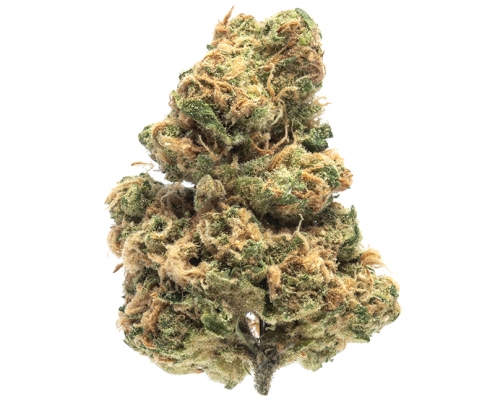 https://essencevegas.com/wp-content/uploads/2018/11/Home-Grown-Vegas-Lemon-AK.jpg
800
800
[email protected]
https://essencevegas.com/wp-content/uploads/2021/02/Essence-Cannabis-Dispensary-Logo.png
[email protected]2018-11-08 09:46:212021-05-20 07:55:38Home Grown Vegas – Lemon AK
https://essencevegas.com/wp-content/uploads/2018/11/Home-Grown-Vegas-Lemon-AK.jpg
800
800
[email protected]
https://essencevegas.com/wp-content/uploads/2021/02/Essence-Cannabis-Dispensary-Logo.png
[email protected]2018-11-08 09:46:212021-05-20 07:55:38Home Grown Vegas – Lemon AK https://essencevegas.com/wp-content/uploads/2018/10/Hope_Lemonade.jpg
4838
4838
[email protected]
https://essencevegas.com/wp-content/uploads/2021/02/Essence-Cannabis-Dispensary-Logo.png
[email protected]2018-10-12 16:30:322020-09-08 01:19:04HOPE – Lemonade
https://essencevegas.com/wp-content/uploads/2018/10/Hope_Lemonade.jpg
4838
4838
[email protected]
https://essencevegas.com/wp-content/uploads/2021/02/Essence-Cannabis-Dispensary-Logo.png
[email protected]2018-10-12 16:30:322020-09-08 01:19:04HOPE – Lemonade https://essencevegas.com/wp-content/uploads/2019/04/Hope_CalmOralspray.jpg
800
800
[email protected]
https://essencevegas.com/wp-content/uploads/2021/02/Essence-Cannabis-Dispensary-Logo.png
[email protected]2019-04-30 09:26:122021-06-08 22:18:41HOPE – Relief Spray
https://essencevegas.com/wp-content/uploads/2019/04/Hope_CalmOralspray.jpg
800
800
[email protected]
https://essencevegas.com/wp-content/uploads/2021/02/Essence-Cannabis-Dispensary-Logo.png
[email protected]2019-04-30 09:26:122021-06-08 22:18:41HOPE – Relief Spray https://essencevegas.com/wp-content/uploads/2018/08/HSH_American-Dream.jpg
900
900
[email protected]
https://essencevegas.com/wp-content/uploads/2021/02/Essence-Cannabis-Dispensary-Logo.png
[email protected]2018-08-09 12:20:252020-09-08 16:00:16HSH – American Dream
https://essencevegas.com/wp-content/uploads/2018/08/HSH_American-Dream.jpg
900
900
[email protected]
https://essencevegas.com/wp-content/uploads/2021/02/Essence-Cannabis-Dispensary-Logo.png
[email protected]2018-08-09 12:20:252020-09-08 16:00:16HSH – American Dream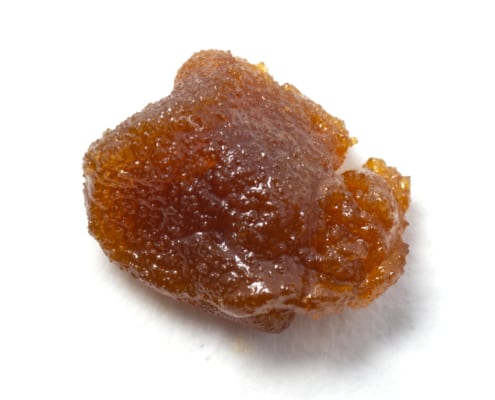 https://essencevegas.com/wp-content/uploads/2018/08/HSH_Cinderella.jpg
900
900
[email protected]
https://essencevegas.com/wp-content/uploads/2021/02/Essence-Cannabis-Dispensary-Logo.png
[email protected]2018-08-08 12:02:202021-05-31 09:01:08HSH – Cinderella 99
https://essencevegas.com/wp-content/uploads/2018/08/HSH_Cinderella.jpg
900
900
[email protected]
https://essencevegas.com/wp-content/uploads/2021/02/Essence-Cannabis-Dispensary-Logo.png
[email protected]2018-08-08 12:02:202021-05-31 09:01:08HSH – Cinderella 99 https://essencevegas.com/wp-content/uploads/2018/08/HSH_Mountain-Kush.jpg
800
800
[email protected]
https://essencevegas.com/wp-content/uploads/2021/02/Essence-Cannabis-Dispensary-Logo.png
[email protected]2018-08-08 11:21:332021-05-31 09:02:21HSH – Mountain Kush
https://essencevegas.com/wp-content/uploads/2018/08/HSH_Mountain-Kush.jpg
800
800
[email protected]
https://essencevegas.com/wp-content/uploads/2021/02/Essence-Cannabis-Dispensary-Logo.png
[email protected]2018-08-08 11:21:332021-05-31 09:02:21HSH – Mountain Kush https://essencevegas.com/wp-content/uploads/2018/08/HSS_Vape-Cartridge-Pinene.jpg
900
900
[email protected]
https://essencevegas.com/wp-content/uploads/2021/02/Essence-Cannabis-Dispensary-Logo.png
[email protected]2018-08-24 17:17:542020-09-08 03:36:53HSH – Pinene Cartridge
https://essencevegas.com/wp-content/uploads/2018/08/HSS_Vape-Cartridge-Pinene.jpg
900
900
[email protected]
https://essencevegas.com/wp-content/uploads/2021/02/Essence-Cannabis-Dispensary-Logo.png
[email protected]2018-08-24 17:17:542020-09-08 03:36:53HSH – Pinene Cartridge https://essencevegas.com/wp-content/uploads/2018/08/HSH-Pinene-Syringe.jpg
800
800
[email protected]
https://essencevegas.com/wp-content/uploads/2021/02/Essence-Cannabis-Dispensary-Logo.png
[email protected]2018-08-09 11:46:272020-09-08 14:09:38HSH – Pinene Syringe
https://essencevegas.com/wp-content/uploads/2018/08/HSH-Pinene-Syringe.jpg
800
800
[email protected]
https://essencevegas.com/wp-content/uploads/2021/02/Essence-Cannabis-Dispensary-Logo.png
[email protected]2018-08-09 11:46:272020-09-08 14:09:38HSH – Pinene Syringe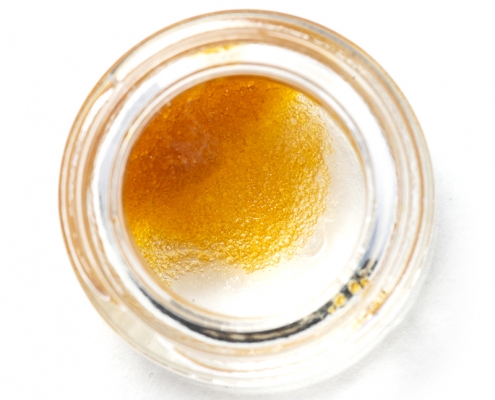 https://essencevegas.com/wp-content/uploads/2018/08/Cannavative-Super-Lemon-Haze.jpg
800
800
[email protected]
https://essencevegas.com/wp-content/uploads/2021/02/Essence-Cannabis-Dispensary-Logo.png
[email protected]2018-08-09 12:01:012020-09-08 13:53:36HSH – Super Lemon Haze
https://essencevegas.com/wp-content/uploads/2018/08/Cannavative-Super-Lemon-Haze.jpg
800
800
[email protected]
https://essencevegas.com/wp-content/uploads/2021/02/Essence-Cannabis-Dispensary-Logo.png
[email protected]2018-08-09 12:01:012020-09-08 13:53:36HSH – Super Lemon Haze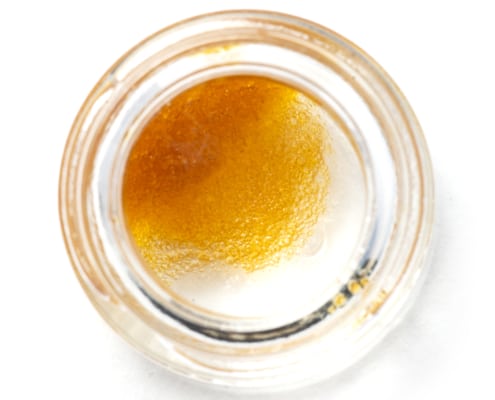 https://essencevegas.com/wp-content/uploads/2018/08/HSH_Super-Lemon-Haze-Live-Resin.jpg
2048
2048
[email protected]
https://essencevegas.com/wp-content/uploads/2021/02/Essence-Cannabis-Dispensary-Logo.png
[email protected]2018-08-06 12:15:362021-05-31 09:03:46HSH – Super Lemon Haze Live Resin
https://essencevegas.com/wp-content/uploads/2018/08/HSH_Super-Lemon-Haze-Live-Resin.jpg
2048
2048
[email protected]
https://essencevegas.com/wp-content/uploads/2021/02/Essence-Cannabis-Dispensary-Logo.png
[email protected]2018-08-06 12:15:362021-05-31 09:03:46HSH – Super Lemon Haze Live Resin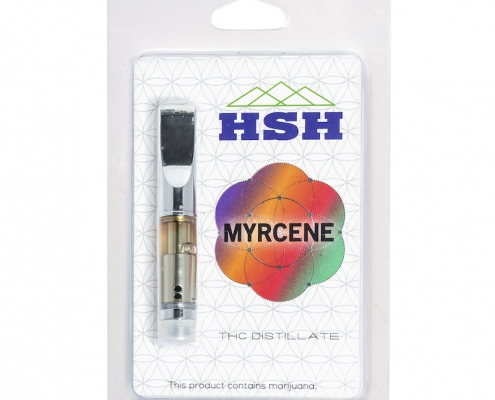 https://essencevegas.com/wp-content/uploads/2019/02/HSH_-Myrcene-Vapor-Cartridge.jpg
800
800
[email protected]
https://essencevegas.com/wp-content/uploads/2021/02/Essence-Cannabis-Dispensary-Logo.png
[email protected]2019-02-22 08:29:532021-06-25 04:23:35HSH- Myrcene Vape Cartridge
https://essencevegas.com/wp-content/uploads/2019/02/HSH_-Myrcene-Vapor-Cartridge.jpg
800
800
[email protected]
https://essencevegas.com/wp-content/uploads/2021/02/Essence-Cannabis-Dispensary-Logo.png
[email protected]2019-02-22 08:29:532021-06-25 04:23:35HSH- Myrcene Vape Cartridge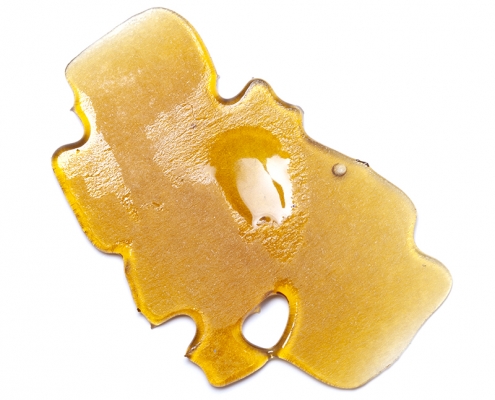 https://essencevegas.com/wp-content/uploads/2018/08/HYVE-Clown-Shoes-OG.jpg
800
800
[email protected]
https://essencevegas.com/wp-content/uploads/2021/02/Essence-Cannabis-Dispensary-Logo.png
[email protected]2018-08-08 11:38:112021-05-31 09:04:45HYVE – Clown Shoes OG
https://essencevegas.com/wp-content/uploads/2018/08/HYVE-Clown-Shoes-OG.jpg
800
800
[email protected]
https://essencevegas.com/wp-content/uploads/2021/02/Essence-Cannabis-Dispensary-Logo.png
[email protected]2018-08-08 11:38:112021-05-31 09:04:45HYVE – Clown Shoes OG https://essencevegas.com/wp-content/uploads/2018/08/HYVE-Cookies-Dream-Shatter.jpg
800
800
[email protected]
https://essencevegas.com/wp-content/uploads/2021/02/Essence-Cannabis-Dispensary-Logo.png
[email protected]2018-08-07 14:53:562020-09-08 02:06:18HYVE – Cookies & Dream Shatter
https://essencevegas.com/wp-content/uploads/2018/08/HYVE-Cookies-Dream-Shatter.jpg
800
800
[email protected]
https://essencevegas.com/wp-content/uploads/2021/02/Essence-Cannabis-Dispensary-Logo.png
[email protected]2018-08-07 14:53:562020-09-08 02:06:18HYVE – Cookies & Dream Shatter https://essencevegas.com/wp-content/uploads/2018/08/HYVE_Mai-Tai.jpg
2158
2158
[email protected]
https://essencevegas.com/wp-content/uploads/2021/02/Essence-Cannabis-Dispensary-Logo.png
[email protected]2018-08-07 13:38:242021-06-01 05:50:46HYVE – Mai Tai Live Resin Batter
https://essencevegas.com/wp-content/uploads/2018/08/HYVE_Mai-Tai.jpg
2158
2158
[email protected]
https://essencevegas.com/wp-content/uploads/2021/02/Essence-Cannabis-Dispensary-Logo.png
[email protected]2018-08-07 13:38:242021-06-01 05:50:46HYVE – Mai Tai Live Resin Batter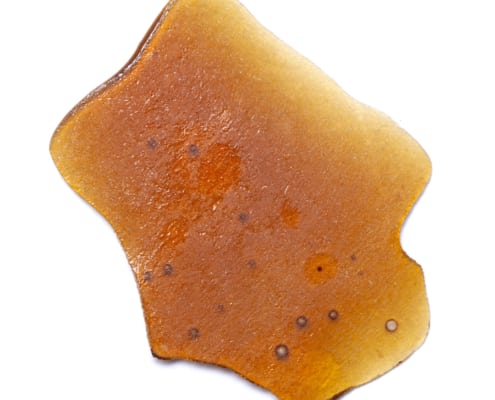 https://essencevegas.com/wp-content/uploads/2018/08/HYVE_Superman.jpg
900
900
[email protected]
https://essencevegas.com/wp-content/uploads/2021/02/Essence-Cannabis-Dispensary-Logo.png
[email protected]2018-08-08 12:23:122020-09-08 02:16:38HYVE – Superman OG Shatter
https://essencevegas.com/wp-content/uploads/2018/08/HYVE_Superman.jpg
900
900
[email protected]
https://essencevegas.com/wp-content/uploads/2021/02/Essence-Cannabis-Dispensary-Logo.png
[email protected]2018-08-08 12:23:122020-09-08 02:16:38HYVE – Superman OG Shatter https://essencevegas.com/wp-content/uploads/2018/08/Jazz-Cabbage_Jazz-is-Creation-1.jpg
800
800
[email protected]
https://essencevegas.com/wp-content/uploads/2021/02/Essence-Cannabis-Dispensary-Logo.png
[email protected]2018-08-23 16:56:002020-09-08 15:19:37Jazz Cabbage – Honey Bananas Pocket Rig
https://essencevegas.com/wp-content/uploads/2018/08/Jazz-Cabbage_Jazz-is-Creation-1.jpg
800
800
[email protected]
https://essencevegas.com/wp-content/uploads/2021/02/Essence-Cannabis-Dispensary-Logo.png
[email protected]2018-08-23 16:56:002020-09-08 15:19:37Jazz Cabbage – Honey Bananas Pocket Rig https://essencevegas.com/wp-content/uploads/2019/02/The-Juice_Clementine.jpg
800
800
[email protected]
https://essencevegas.com/wp-content/uploads/2021/02/Essence-Cannabis-Dispensary-Logo.png
[email protected]2019-02-22 08:36:182021-06-25 04:42:32Juice Co. – Clementine Cartridge
https://essencevegas.com/wp-content/uploads/2019/02/The-Juice_Clementine.jpg
800
800
[email protected]
https://essencevegas.com/wp-content/uploads/2021/02/Essence-Cannabis-Dispensary-Logo.png
[email protected]2019-02-22 08:36:182021-06-25 04:42:32Juice Co. – Clementine Cartridge https://essencevegas.com/wp-content/uploads/2019/02/The-Juice_Goji.jpg
800
800
[email protected]
https://essencevegas.com/wp-content/uploads/2021/02/Essence-Cannabis-Dispensary-Logo.png
[email protected]2019-02-22 08:42:452021-06-25 04:44:34Juice Co. – Goji Cartridge
https://essencevegas.com/wp-content/uploads/2019/02/The-Juice_Goji.jpg
800
800
[email protected]
https://essencevegas.com/wp-content/uploads/2021/02/Essence-Cannabis-Dispensary-Logo.png
[email protected]2019-02-22 08:42:452021-06-25 04:44:34Juice Co. – Goji Cartridge https://essencevegas.com/wp-content/uploads/2019/02/The-Juice_Girl-Scout-Cookies.jpg
800
800
[email protected]
https://essencevegas.com/wp-content/uploads/2021/02/Essence-Cannabis-Dispensary-Logo.png
[email protected]2019-02-22 08:55:282020-09-08 15:11:21Juice Co. – GSC Cartridge
https://essencevegas.com/wp-content/uploads/2019/02/The-Juice_Girl-Scout-Cookies.jpg
800
800
[email protected]
https://essencevegas.com/wp-content/uploads/2021/02/Essence-Cannabis-Dispensary-Logo.png
[email protected]2019-02-22 08:55:282020-09-08 15:11:21Juice Co. – GSC Cartridge https://essencevegas.com/wp-content/uploads/2019/02/The-Juice_Zkittles_1.jpg
800
800
[email protected]
https://essencevegas.com/wp-content/uploads/2021/02/Essence-Cannabis-Dispensary-Logo.png
[email protected]2019-02-22 09:01:092020-09-08 15:55:01Juice Co. – Zkittlez Cartridge
https://essencevegas.com/wp-content/uploads/2019/02/The-Juice_Zkittles_1.jpg
800
800
[email protected]
https://essencevegas.com/wp-content/uploads/2021/02/Essence-Cannabis-Dispensary-Logo.png
[email protected]2019-02-22 09:01:092020-09-08 15:55:01Juice Co. – Zkittlez Cartridge https://essencevegas.com/wp-content/uploads/2019/02/The-Juice_Grandaddy-Purple.jpg
800
800
[email protected]
https://essencevegas.com/wp-content/uploads/2021/02/Essence-Cannabis-Dispensary-Logo.png
[email protected]2019-02-22 08:49:302020-09-08 01:37:46Juice Co.- Granddaddy Purple Cartridge
https://essencevegas.com/wp-content/uploads/2019/02/The-Juice_Grandaddy-Purple.jpg
800
800
[email protected]
https://essencevegas.com/wp-content/uploads/2021/02/Essence-Cannabis-Dispensary-Logo.png
[email protected]2019-02-22 08:49:302020-09-08 01:37:46Juice Co.- Granddaddy Purple Cartridge https://essencevegas.com/wp-content/uploads/2018/08/Kiff-Blackjack-Cartridge.jpg
800
800
[email protected]
https://essencevegas.com/wp-content/uploads/2021/02/Essence-Cannabis-Dispensary-Logo.png
[email protected]2018-08-31 10:26:052021-06-25 04:46:34Kiff – Blackjack Cartridge
https://essencevegas.com/wp-content/uploads/2018/08/Kiff-Blackjack-Cartridge.jpg
800
800
[email protected]
https://essencevegas.com/wp-content/uploads/2021/02/Essence-Cannabis-Dispensary-Logo.png
[email protected]2018-08-31 10:26:052021-06-25 04:46:34Kiff – Blackjack Cartridge https://essencevegas.com/wp-content/uploads/2018/11/KIFF-Burkle-1.jpg
800
800
[email protected]
https://essencevegas.com/wp-content/uploads/2021/02/Essence-Cannabis-Dispensary-Logo.png
[email protected]2018-11-08 11:33:282021-03-26 08:06:05KIFF – Burkle
https://essencevegas.com/wp-content/uploads/2018/11/KIFF-Burkle-1.jpg
800
800
[email protected]
https://essencevegas.com/wp-content/uploads/2021/02/Essence-Cannabis-Dispensary-Logo.png
[email protected]2018-11-08 11:33:282021-03-26 08:06:05KIFF – Burkle https://essencevegas.com/wp-content/uploads/2018/12/HGV_preroll-1.jpg
5118
5119
[email protected]
https://essencevegas.com/wp-content/uploads/2021/02/Essence-Cannabis-Dispensary-Logo.png
[email protected]2018-12-28 15:20:072020-09-08 03:11:29Kiff – Burkle Pre-Roll
https://essencevegas.com/wp-content/uploads/2018/12/HGV_preroll-1.jpg
5118
5119
[email protected]
https://essencevegas.com/wp-content/uploads/2021/02/Essence-Cannabis-Dispensary-Logo.png
[email protected]2018-12-28 15:20:072020-09-08 03:11:29Kiff – Burkle Pre-Roll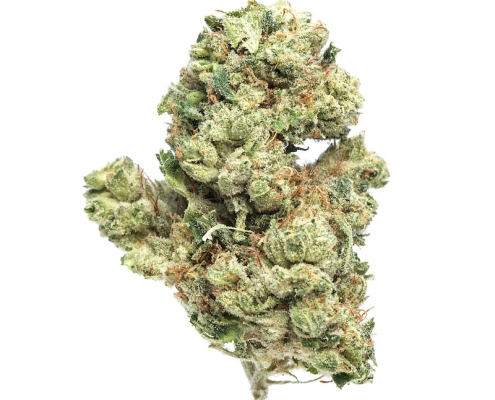 https://essencevegas.com/wp-content/uploads/2019/02/Kiff_Wifi.jpg
800
800
[email protected]
https://essencevegas.com/wp-content/uploads/2021/02/Essence-Cannabis-Dispensary-Logo.png
[email protected]2019-02-18 14:40:062020-09-08 03:55:48KIFF – Flo
https://essencevegas.com/wp-content/uploads/2019/02/Kiff_Wifi.jpg
800
800
[email protected]
https://essencevegas.com/wp-content/uploads/2021/02/Essence-Cannabis-Dispensary-Logo.png
[email protected]2019-02-18 14:40:062020-09-08 03:55:48KIFF – Flo https://essencevegas.com/wp-content/uploads/2019/02/Kiff_Wifi.jpg
800
800
[email protected]
https://essencevegas.com/wp-content/uploads/2021/02/Essence-Cannabis-Dispensary-Logo.png
[email protected]2019-02-18 15:11:502020-09-08 07:02:30KIFF – Juicy Fruit
https://essencevegas.com/wp-content/uploads/2019/02/Kiff_Wifi.jpg
800
800
[email protected]
https://essencevegas.com/wp-content/uploads/2021/02/Essence-Cannabis-Dispensary-Logo.png
[email protected]2019-02-18 15:11:502020-09-08 07:02:30KIFF – Juicy Fruit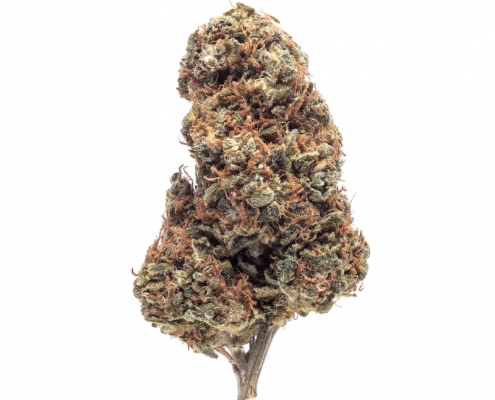 https://essencevegas.com/wp-content/uploads/2019/02/Kiff_SourTangie_1.jpg
800
800
[email protected]
https://essencevegas.com/wp-content/uploads/2021/02/Essence-Cannabis-Dispensary-Logo.png
[email protected]2019-02-18 15:41:552021-05-20 07:59:21KIFF – Sour Tangie
https://essencevegas.com/wp-content/uploads/2019/02/Kiff_SourTangie_1.jpg
800
800
[email protected]
https://essencevegas.com/wp-content/uploads/2021/02/Essence-Cannabis-Dispensary-Logo.png
[email protected]2019-02-18 15:41:552021-05-20 07:59:21KIFF – Sour Tangie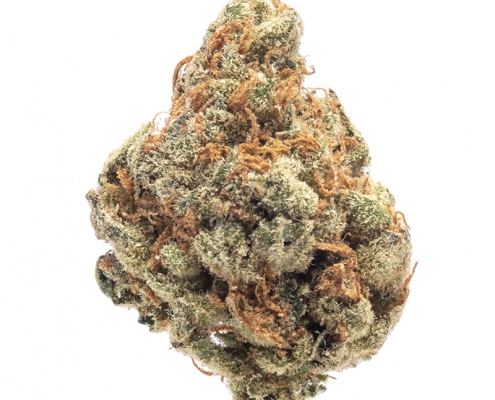 https://essencevegas.com/wp-content/uploads/2018/12/Garden-of-Weeden-Super-Lemon-Haze.jpg
800
800
[email protected]
https://essencevegas.com/wp-content/uploads/2021/02/Essence-Cannabis-Dispensary-Logo.png
[email protected]2018-12-21 12:33:462021-03-26 04:24:19Kiff – Super Lemon Haze
https://essencevegas.com/wp-content/uploads/2018/12/Garden-of-Weeden-Super-Lemon-Haze.jpg
800
800
[email protected]
https://essencevegas.com/wp-content/uploads/2021/02/Essence-Cannabis-Dispensary-Logo.png
[email protected]2018-12-21 12:33:462021-03-26 04:24:19Kiff – Super Lemon Haze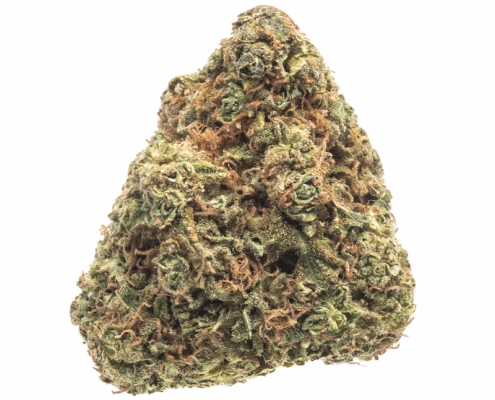 https://essencevegas.com/wp-content/uploads/2019/02/Kiff_WhiteWidow_1.jpg
800
800
[email protected]
https://essencevegas.com/wp-content/uploads/2021/02/Essence-Cannabis-Dispensary-Logo.png
[email protected]2019-02-18 16:25:052021-05-20 08:00:38KIFF – White Widow
https://essencevegas.com/wp-content/uploads/2019/02/Kiff_WhiteWidow_1.jpg
800
800
[email protected]
https://essencevegas.com/wp-content/uploads/2021/02/Essence-Cannabis-Dispensary-Logo.png
[email protected]2019-02-18 16:25:052021-05-20 08:00:38KIFF – White Widow https://essencevegas.com/wp-content/uploads/2018/08/Kynd-Alien-Dawg-Disposable-Vape-Pen.jpg
800
800
[email protected]
https://essencevegas.com/wp-content/uploads/2021/02/Essence-Cannabis-Dispensary-Logo.png
[email protected]2018-08-31 11:01:302021-06-25 04:48:05Kynd – Alien Dawg Disposable Vape Pen
https://essencevegas.com/wp-content/uploads/2018/08/Kynd-Alien-Dawg-Disposable-Vape-Pen.jpg
800
800
[email protected]
https://essencevegas.com/wp-content/uploads/2021/02/Essence-Cannabis-Dispensary-Logo.png
[email protected]2018-08-31 11:01:302021-06-25 04:48:05Kynd – Alien Dawg Disposable Vape Pen https://essencevegas.com/wp-content/uploads/2018/08/Kynd-Alien-Dawg-Disposable-Vape-Pen.jpg
800
800
[email protected]
https://essencevegas.com/wp-content/uploads/2021/02/Essence-Cannabis-Dispensary-Logo.png
[email protected]2018-08-31 13:59:492021-06-25 04:54:07KYND – Chemdawg Disposable Vape Pen
https://essencevegas.com/wp-content/uploads/2018/08/Kynd-Alien-Dawg-Disposable-Vape-Pen.jpg
800
800
[email protected]
https://essencevegas.com/wp-content/uploads/2021/02/Essence-Cannabis-Dispensary-Logo.png
[email protected]2018-08-31 13:59:492021-06-25 04:54:07KYND – Chemdawg Disposable Vape Pen https://essencevegas.com/wp-content/uploads/2018/08/Kynd-Alien-Dawg-Disposable-Vape-Pen.jpg
800
800
[email protected]
https://essencevegas.com/wp-content/uploads/2021/02/Essence-Cannabis-Dispensary-Logo.png
[email protected]2018-08-31 13:50:502021-06-25 04:56:08KYND – Dark Plasma Disposable Vape Pen
https://essencevegas.com/wp-content/uploads/2018/08/Kynd-Alien-Dawg-Disposable-Vape-Pen.jpg
800
800
[email protected]
https://essencevegas.com/wp-content/uploads/2021/02/Essence-Cannabis-Dispensary-Logo.png
[email protected]2018-08-31 13:50:502021-06-25 04:56:08KYND – Dark Plasma Disposable Vape Pen https://essencevegas.com/wp-content/uploads/2018/08/Kynd-Alien-Dawg-Disposable-Vape-Pen.jpg
800
800
[email protected]
https://essencevegas.com/wp-content/uploads/2021/02/Essence-Cannabis-Dispensary-Logo.png
[email protected]2018-08-28 10:03:592020-09-08 01:54:46Kynd – LA OG Disposable Vape Pen
https://essencevegas.com/wp-content/uploads/2018/08/Kynd-Alien-Dawg-Disposable-Vape-Pen.jpg
800
800
[email protected]
https://essencevegas.com/wp-content/uploads/2021/02/Essence-Cannabis-Dispensary-Logo.png
[email protected]2018-08-28 10:03:592020-09-08 01:54:46Kynd – LA OG Disposable Vape Pen https://essencevegas.com/wp-content/uploads/2018/08/Kynd-Alien-Dawg-Disposable-Vape-Pen.jpg
800
800
[email protected]
https://essencevegas.com/wp-content/uploads/2021/02/Essence-Cannabis-Dispensary-Logo.png
[email protected]2018-08-31 11:59:502021-06-25 04:57:35KYND – Sour Diesel Disposable Vape Pen
https://essencevegas.com/wp-content/uploads/2018/08/Kynd-Alien-Dawg-Disposable-Vape-Pen.jpg
800
800
[email protected]
https://essencevegas.com/wp-content/uploads/2021/02/Essence-Cannabis-Dispensary-Logo.png
[email protected]2018-08-31 11:59:502021-06-25 04:57:35KYND – Sour Diesel Disposable Vape Pen https://essencevegas.com/wp-content/uploads/2018/08/KYND-Super-Lemon-Haze-Disposable-Vape-Pen.jpg
800
800
[email protected]
https://essencevegas.com/wp-content/uploads/2021/02/Essence-Cannabis-Dispensary-Logo.png
[email protected]2018-08-31 11:52:242021-06-25 05:09:35KYND – Super Lemon Haze Disposable Vape Pen
https://essencevegas.com/wp-content/uploads/2018/08/KYND-Super-Lemon-Haze-Disposable-Vape-Pen.jpg
800
800
[email protected]
https://essencevegas.com/wp-content/uploads/2021/02/Essence-Cannabis-Dispensary-Logo.png
[email protected]2018-08-31 11:52:242021-06-25 05:09:35KYND – Super Lemon Haze Disposable Vape Pen https://essencevegas.com/wp-content/uploads/2018/10/Kynd-THC-Tincture.jpg
800
800
[email protected]
https://essencevegas.com/wp-content/uploads/2021/02/Essence-Cannabis-Dispensary-Logo.png
[email protected]2018-10-12 17:17:312021-06-25 01:59:25Kynd – THC Tincture
https://essencevegas.com/wp-content/uploads/2018/10/Kynd-THC-Tincture.jpg
800
800
[email protected]
https://essencevegas.com/wp-content/uploads/2021/02/Essence-Cannabis-Dispensary-Logo.png
[email protected]2018-10-12 17:17:312021-06-25 01:59:25Kynd – THC Tincture https://essencevegas.com/wp-content/uploads/2018/08/Kynd-Alien-Dawg-Disposable-Vape-Pen.jpg
800
800
[email protected]
https://essencevegas.com/wp-content/uploads/2021/02/Essence-Cannabis-Dispensary-Logo.png
[email protected]2018-08-24 12:18:342020-09-08 06:45:40Kynd Cannabis Company – CBD Shark Disposable Vape Pen
https://essencevegas.com/wp-content/uploads/2018/08/Kynd-Alien-Dawg-Disposable-Vape-Pen.jpg
800
800
[email protected]
https://essencevegas.com/wp-content/uploads/2021/02/Essence-Cannabis-Dispensary-Logo.png
[email protected]2018-08-24 12:18:342020-09-08 06:45:40Kynd Cannabis Company – CBD Shark Disposable Vape Pen https://essencevegas.com/wp-content/uploads/2018/08/Kynd-Alien-Dawg-Disposable-Vape-Pen.jpg
800
800
[email protected]
https://essencevegas.com/wp-content/uploads/2021/02/Essence-Cannabis-Dispensary-Logo.png
[email protected]2018-08-27 16:51:132021-06-25 04:49:39Kynd Cannabis Company – Cheese Disposable Vape Pen
https://essencevegas.com/wp-content/uploads/2018/08/Kynd-Alien-Dawg-Disposable-Vape-Pen.jpg
800
800
[email protected]
https://essencevegas.com/wp-content/uploads/2021/02/Essence-Cannabis-Dispensary-Logo.png
[email protected]2018-08-27 16:51:132021-06-25 04:49:39Kynd Cannabis Company – Cheese Disposable Vape Pen https://essencevegas.com/wp-content/uploads/2018/08/Kynd-Alien-Dawg-Disposable-Vape-Pen.jpg
800
800
[email protected]
https://essencevegas.com/wp-content/uploads/2021/02/Essence-Cannabis-Dispensary-Logo.png
[email protected]2018-08-28 09:31:302021-06-25 04:50:57Kynd Cannabis Company – Ghost OG Disposable Vape Pen
https://essencevegas.com/wp-content/uploads/2018/08/Kynd-Alien-Dawg-Disposable-Vape-Pen.jpg
800
800
[email protected]
https://essencevegas.com/wp-content/uploads/2021/02/Essence-Cannabis-Dispensary-Logo.png
[email protected]2018-08-28 09:31:302021-06-25 04:50:57Kynd Cannabis Company – Ghost OG Disposable Vape Pen https://essencevegas.com/wp-content/uploads/2018/08/Kynd-Alien-Dawg-Disposable-Vape-Pen.jpg
800
800
[email protected]
https://essencevegas.com/wp-content/uploads/2021/02/Essence-Cannabis-Dispensary-Logo.png
[email protected]2018-08-24 14:53:262020-09-08 16:08:56Kynd Cannabis Company – Skunk One Disposable Vape Pen
https://essencevegas.com/wp-content/uploads/2018/08/Kynd-Alien-Dawg-Disposable-Vape-Pen.jpg
800
800
[email protected]
https://essencevegas.com/wp-content/uploads/2021/02/Essence-Cannabis-Dispensary-Logo.png
[email protected]2018-08-24 14:53:262020-09-08 16:08:56Kynd Cannabis Company – Skunk One Disposable Vape Pen https://essencevegas.com/wp-content/uploads/2019/04/REin_Energy.jpg
800
800
[email protected]
https://essencevegas.com/wp-content/uploads/2021/02/Essence-Cannabis-Dispensary-Logo.png
[email protected]2019-04-30 09:31:302021-06-09 10:37:39Libra Wellness – Rein Energy Shot
https://essencevegas.com/wp-content/uploads/2019/04/REin_Energy.jpg
800
800
[email protected]
https://essencevegas.com/wp-content/uploads/2021/02/Essence-Cannabis-Dispensary-Logo.png
[email protected]2019-04-30 09:31:302021-06-09 10:37:39Libra Wellness – Rein Energy Shot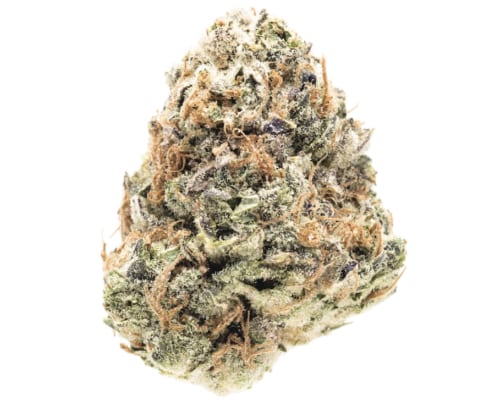 https://essencevegas.com/wp-content/uploads/2018/07/Verano_ChocolateOG.jpg
900
900
[email protected]
https://essencevegas.com/wp-content/uploads/2021/02/Essence-Cannabis-Dispensary-Logo.png
[email protected]2018-07-24 13:20:592021-05-20 03:43:43Lone Mountain/Verano – Chocolate OG
https://essencevegas.com/wp-content/uploads/2018/07/Verano_ChocolateOG.jpg
900
900
[email protected]
https://essencevegas.com/wp-content/uploads/2021/02/Essence-Cannabis-Dispensary-Logo.png
[email protected]2018-07-24 13:20:592021-05-20 03:43:43Lone Mountain/Verano – Chocolate OG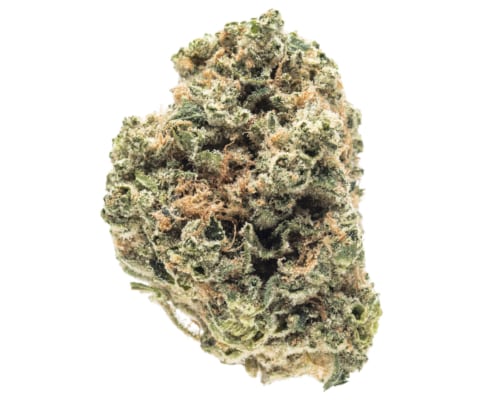 https://essencevegas.com/wp-content/uploads/2018/07/GreenLeaf_3Pac.jpg
1200
1200
[email protected]
https://essencevegas.com/wp-content/uploads/2021/02/Essence-Cannabis-Dispensary-Logo.png
[email protected]2018-07-24 13:47:172021-05-19 14:26:21Lucid – 3Pac
https://essencevegas.com/wp-content/uploads/2018/07/GreenLeaf_3Pac.jpg
1200
1200
[email protected]
https://essencevegas.com/wp-content/uploads/2021/02/Essence-Cannabis-Dispensary-Logo.png
[email protected]2018-07-24 13:47:172021-05-19 14:26:21Lucid – 3Pac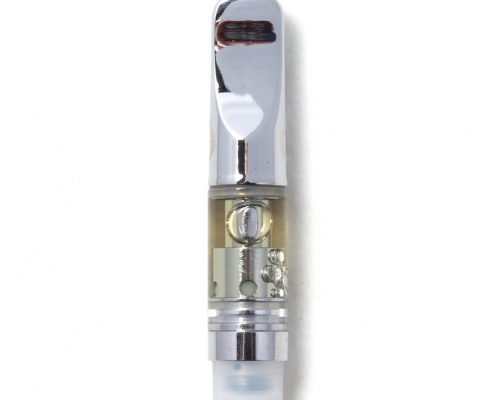 https://essencevegas.com/wp-content/uploads/2019/03/Lucid-Oils_Vape-Cartridge-Generic.jpg
800
800
[email protected]
https://essencevegas.com/wp-content/uploads/2021/02/Essence-Cannabis-Dispensary-Logo.png
[email protected]2019-03-01 16:06:092020-09-08 15:27:54Lucid – 9 Pound Hammer Cartridge
https://essencevegas.com/wp-content/uploads/2019/03/Lucid-Oils_Vape-Cartridge-Generic.jpg
800
800
[email protected]
https://essencevegas.com/wp-content/uploads/2021/02/Essence-Cannabis-Dispensary-Logo.png
[email protected]2019-03-01 16:06:092020-09-08 15:27:54Lucid – 9 Pound Hammer Cartridge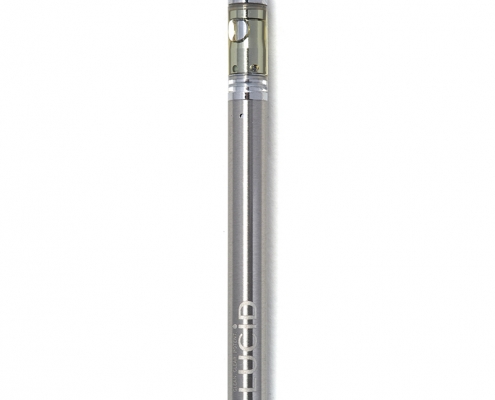 https://essencevegas.com/wp-content/uploads/2018/08/Lucid-9-Pound-Hammer-Disposable-Vape-Pen-1.jpg
800
800
[email protected]
https://essencevegas.com/wp-content/uploads/2021/02/Essence-Cannabis-Dispensary-Logo.png
[email protected]2018-08-31 09:56:592020-09-08 16:05:32Lucid – 9 Pound Hammer Disposable Vape Pen
https://essencevegas.com/wp-content/uploads/2018/08/Lucid-9-Pound-Hammer-Disposable-Vape-Pen-1.jpg
800
800
[email protected]
https://essencevegas.com/wp-content/uploads/2021/02/Essence-Cannabis-Dispensary-Logo.png
[email protected]2018-08-31 09:56:592020-09-08 16:05:32Lucid – 9 Pound Hammer Disposable Vape Pen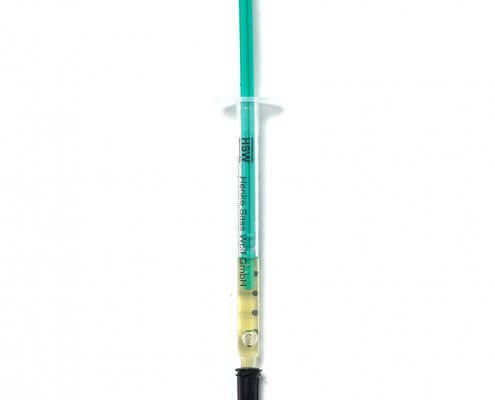 https://essencevegas.com/wp-content/uploads/2018/08/Lucid-9-Pound-Hammer-Syringe-1.jpg
800
800
[email protected]
https://essencevegas.com/wp-content/uploads/2021/02/Essence-Cannabis-Dispensary-Logo.png
[email protected]2018-08-09 10:55:582020-09-08 03:08:59Lucid – 9 Pound Hammer Syringe
https://essencevegas.com/wp-content/uploads/2018/08/Lucid-9-Pound-Hammer-Syringe-1.jpg
800
800
[email protected]
https://essencevegas.com/wp-content/uploads/2021/02/Essence-Cannabis-Dispensary-Logo.png
[email protected]2018-08-09 10:55:582020-09-08 03:08:59Lucid – 9 Pound Hammer Syringe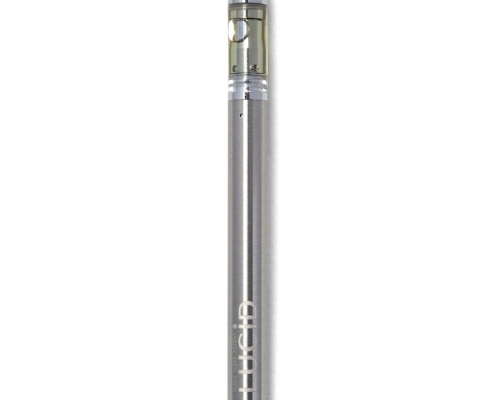 https://essencevegas.com/wp-content/uploads/2019/03/Lucid-Oils_Disposable-Pen-Generic-1.jpg
800
800
[email protected]
https://essencevegas.com/wp-content/uploads/2021/02/Essence-Cannabis-Dispensary-Logo.png
[email protected]2019-03-01 16:32:282021-06-25 05:20:30Lucid – ACDC Disposable Vape
https://essencevegas.com/wp-content/uploads/2019/03/Lucid-Oils_Disposable-Pen-Generic-1.jpg
800
800
[email protected]
https://essencevegas.com/wp-content/uploads/2021/02/Essence-Cannabis-Dispensary-Logo.png
[email protected]2019-03-01 16:32:282021-06-25 05:20:30Lucid – ACDC Disposable Vape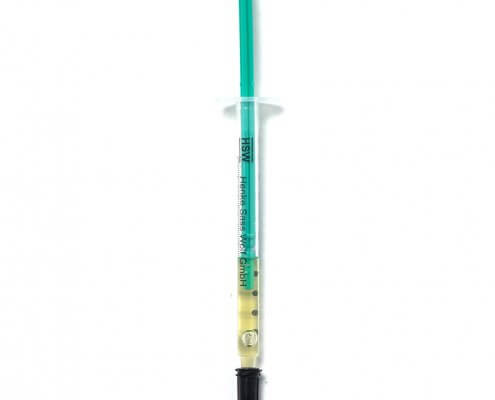 https://essencevegas.com/wp-content/uploads/2018/08/Lucid-ATF-Dab-Syringe-aka-Alaskan-Thunder-Fuck-1.jpg
800
800
[email protected]
https://essencevegas.com/wp-content/uploads/2021/02/Essence-Cannabis-Dispensary-Logo.png
[email protected]2018-08-09 11:18:192020-09-08 15:09:06Lucid – ATF Dab Syringe (aka Alaskan Thunder F*ck)
https://essencevegas.com/wp-content/uploads/2018/08/Lucid-ATF-Dab-Syringe-aka-Alaskan-Thunder-Fuck-1.jpg
800
800
[email protected]
https://essencevegas.com/wp-content/uploads/2021/02/Essence-Cannabis-Dispensary-Logo.png
[email protected]2018-08-09 11:18:192020-09-08 15:09:06Lucid – ATF Dab Syringe (aka Alaskan Thunder F*ck) https://essencevegas.com/wp-content/uploads/2018/08/Lucid-ATF-Disposable-Vape-Pen-1.jpg
800
800
[email protected]
https://essencevegas.com/wp-content/uploads/2021/02/Essence-Cannabis-Dispensary-Logo.png
[email protected]2018-08-27 10:24:032021-06-25 05:11:00Lucid – ATF Disposable Vape Pen
https://essencevegas.com/wp-content/uploads/2018/08/Lucid-ATF-Disposable-Vape-Pen-1.jpg
800
800
[email protected]
https://essencevegas.com/wp-content/uploads/2021/02/Essence-Cannabis-Dispensary-Logo.png
[email protected]2018-08-27 10:24:032021-06-25 05:11:00Lucid – ATF Disposable Vape Pen https://essencevegas.com/wp-content/uploads/2018/08/Lucid-Blackberry-Kush-Disposable-Vape-Pen-2.jpg
800
800
[email protected]
https://essencevegas.com/wp-content/uploads/2021/02/Essence-Cannabis-Dispensary-Logo.png
[email protected]2018-08-27 10:52:292020-09-08 02:00:38Lucid – Blackberry Kush Disposable Vape Pen
https://essencevegas.com/wp-content/uploads/2018/08/Lucid-Blackberry-Kush-Disposable-Vape-Pen-2.jpg
800
800
[email protected]
https://essencevegas.com/wp-content/uploads/2021/02/Essence-Cannabis-Dispensary-Logo.png
[email protected]2018-08-27 10:52:292020-09-08 02:00:38Lucid – Blackberry Kush Disposable Vape Pen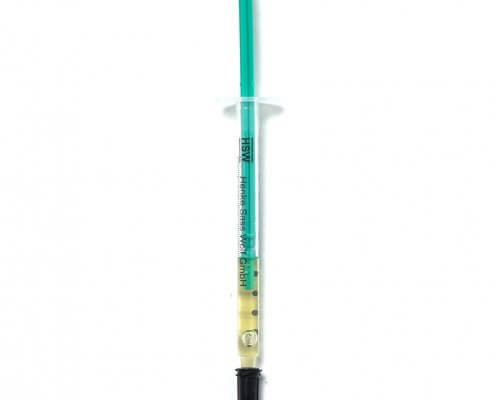 https://essencevegas.com/wp-content/uploads/2018/08/Lucid-Chernobyl.jpg
800
800
[email protected]
https://essencevegas.com/wp-content/uploads/2021/02/Essence-Cannabis-Dispensary-Logo.png
[email protected]2018-08-06 17:24:132021-06-01 05:56:02Lucid – Chernobyl
https://essencevegas.com/wp-content/uploads/2018/08/Lucid-Chernobyl.jpg
800
800
[email protected]
https://essencevegas.com/wp-content/uploads/2021/02/Essence-Cannabis-Dispensary-Logo.png
[email protected]2018-08-06 17:24:132021-06-01 05:56:02Lucid – Chernobyl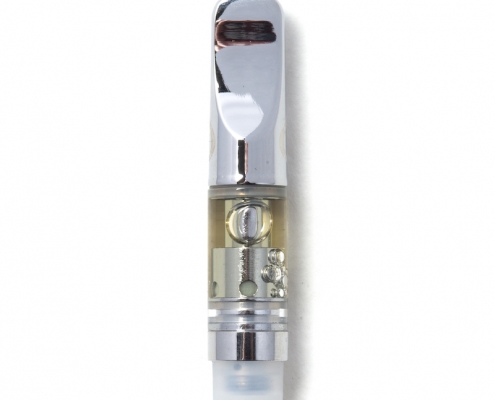 https://essencevegas.com/wp-content/uploads/2019/03/Lucid-Oils_Vape-Cartridge-Generic-1.jpg
800
800
[email protected]
https://essencevegas.com/wp-content/uploads/2021/02/Essence-Cannabis-Dispensary-Logo.png
[email protected]2019-03-04 08:15:302021-06-25 05:22:21Lucid – Harle Tsu Cartridge
https://essencevegas.com/wp-content/uploads/2019/03/Lucid-Oils_Vape-Cartridge-Generic-1.jpg
800
800
[email protected]
https://essencevegas.com/wp-content/uploads/2021/02/Essence-Cannabis-Dispensary-Logo.png
[email protected]2019-03-04 08:15:302021-06-25 05:22:21Lucid – Harle Tsu Cartridge https://essencevegas.com/wp-content/uploads/2018/08/Lucid-Super-Lemon-Haze-Disposable-Vape-Pen.jpg
800
800
[email protected]
https://essencevegas.com/wp-content/uploads/2021/02/Essence-Cannabis-Dispensary-Logo.png
[email protected]2018-08-31 10:55:022021-06-25 05:12:34Lucid – Super Lemon Haze Disposable Vape Pen
https://essencevegas.com/wp-content/uploads/2018/08/Lucid-Super-Lemon-Haze-Disposable-Vape-Pen.jpg
800
800
[email protected]
https://essencevegas.com/wp-content/uploads/2021/02/Essence-Cannabis-Dispensary-Logo.png
[email protected]2018-08-31 10:55:022021-06-25 05:12:34Lucid – Super Lemon Haze Disposable Vape Pen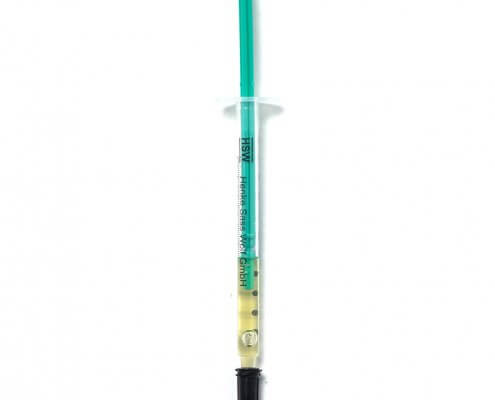 https://essencevegas.com/wp-content/uploads/2018/08/Lucid-Oils-Blackberry-Kush-Syringe.jpg
800
800
[email protected]
https://essencevegas.com/wp-content/uploads/2021/02/Essence-Cannabis-Dispensary-Logo.png
[email protected]2018-08-06 12:27:332020-09-08 14:31:13Lucid Oils – Blackberry Kush Syringe
https://essencevegas.com/wp-content/uploads/2018/08/Lucid-Oils-Blackberry-Kush-Syringe.jpg
800
800
[email protected]
https://essencevegas.com/wp-content/uploads/2021/02/Essence-Cannabis-Dispensary-Logo.png
[email protected]2018-08-06 12:27:332020-09-08 14:31:13Lucid Oils – Blackberry Kush Syringe https://essencevegas.com/wp-content/uploads/2018/10/Altus-Fruit-Punch-Mints.jpg
800
800
[email protected]
https://essencevegas.com/wp-content/uploads/2021/02/Essence-Cannabis-Dispensary-Logo.png
[email protected]2018-10-16 09:08:032021-06-04 05:31:15Lucky Edibles – Fruit Punch Mints
https://essencevegas.com/wp-content/uploads/2018/10/Altus-Fruit-Punch-Mints.jpg
800
800
[email protected]
https://essencevegas.com/wp-content/uploads/2021/02/Essence-Cannabis-Dispensary-Logo.png
[email protected]2018-10-16 09:08:032021-06-04 05:31:15Lucky Edibles – Fruit Punch Mints https://essencevegas.com/wp-content/uploads/2018/10/Altus-Key-Lime-Mints.jpg
800
800
[email protected]
https://essencevegas.com/wp-content/uploads/2021/02/Essence-Cannabis-Dispensary-Logo.png
[email protected]2018-10-15 16:33:092020-09-08 15:13:42Lucky Edibles – Key Lime Mints
https://essencevegas.com/wp-content/uploads/2018/10/Altus-Key-Lime-Mints.jpg
800
800
[email protected]
https://essencevegas.com/wp-content/uploads/2021/02/Essence-Cannabis-Dispensary-Logo.png
[email protected]2018-10-15 16:33:092020-09-08 15:13:42Lucky Edibles – Key Lime Mints https://essencevegas.com/wp-content/uploads/2018/10/Altus-Peppermint-Mints.jpg
800
800
[email protected]
https://essencevegas.com/wp-content/uploads/2021/02/Essence-Cannabis-Dispensary-Logo.png
[email protected]2018-10-16 10:09:152020-09-08 00:41:44Lucky Edibles – Peppermint Mints
https://essencevegas.com/wp-content/uploads/2018/10/Altus-Peppermint-Mints.jpg
800
800
[email protected]
https://essencevegas.com/wp-content/uploads/2021/02/Essence-Cannabis-Dispensary-Logo.png
[email protected]2018-10-16 10:09:152020-09-08 00:41:44Lucky Edibles – Peppermint Mints https://essencevegas.com/wp-content/uploads/2018/06/knowledgebase-default.jpg
400
495
[email protected]
https://essencevegas.com/wp-content/uploads/2021/02/Essence-Cannabis-Dispensary-Logo.png
[email protected]2018-12-21 13:09:342021-05-20 07:29:26Luff – Critical Cure
https://essencevegas.com/wp-content/uploads/2018/06/knowledgebase-default.jpg
400
495
[email protected]
https://essencevegas.com/wp-content/uploads/2021/02/Essence-Cannabis-Dispensary-Logo.png
[email protected]2018-12-21 13:09:342021-05-20 07:29:26Luff – Critical Cure https://essencevegas.com/wp-content/uploads/2019/04/Mindys_Strawberry_hardsweets.jpg
800
800
[email protected]
https://essencevegas.com/wp-content/uploads/2021/02/Essence-Cannabis-Dispensary-Logo.png
[email protected]2019-04-30 09:33:162021-06-09 10:40:57Mindy’s Kitchen – Strawberry Sparkling Wine Hard Sweets
https://essencevegas.com/wp-content/uploads/2019/04/Mindys_Strawberry_hardsweets.jpg
800
800
[email protected]
https://essencevegas.com/wp-content/uploads/2021/02/Essence-Cannabis-Dispensary-Logo.png
[email protected]2019-04-30 09:33:162021-06-09 10:40:57Mindy’s Kitchen – Strawberry Sparkling Wine Hard Sweets https://essencevegas.com/wp-content/uploads/2019/04/Mindys_VanillabourbonButterscotch_hardsweets.jpg
800
800
[email protected]
https://essencevegas.com/wp-content/uploads/2021/02/Essence-Cannabis-Dispensary-Logo.png
[email protected]2019-04-30 09:38:122021-06-09 10:47:57Mindy’s Kitchen – Vanilla Bourbon Butterscotch Hard Sweets
https://essencevegas.com/wp-content/uploads/2019/04/Mindys_VanillabourbonButterscotch_hardsweets.jpg
800
800
[email protected]
https://essencevegas.com/wp-content/uploads/2021/02/Essence-Cannabis-Dispensary-Logo.png
[email protected]2019-04-30 09:38:122021-06-09 10:47:57Mindy’s Kitchen – Vanilla Bourbon Butterscotch Hard Sweets https://essencevegas.com/wp-content/uploads/2019/02/MMG_AlienCookies_preroll.jpg
800
800
[email protected]
https://essencevegas.com/wp-content/uploads/2021/02/Essence-Cannabis-Dispensary-Logo.png
[email protected]2019-02-19 10:16:262021-06-11 00:39:40MMG – 24K Party Roll
https://essencevegas.com/wp-content/uploads/2019/02/MMG_AlienCookies_preroll.jpg
800
800
[email protected]
https://essencevegas.com/wp-content/uploads/2021/02/Essence-Cannabis-Dispensary-Logo.png
[email protected]2019-02-19 10:16:262021-06-11 00:39:40MMG – 24K Party Roll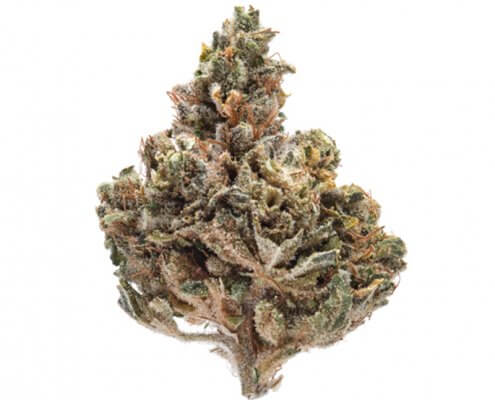 https://essencevegas.com/wp-content/uploads/2018/12/MMG-Alien-Cookies.jpg
800
800
[email protected]
https://essencevegas.com/wp-content/uploads/2021/02/Essence-Cannabis-Dispensary-Logo.png
[email protected]2018-12-19 11:16:232020-09-08 03:54:09MMG – Alien Cookies
https://essencevegas.com/wp-content/uploads/2018/12/MMG-Alien-Cookies.jpg
800
800
[email protected]
https://essencevegas.com/wp-content/uploads/2021/02/Essence-Cannabis-Dispensary-Logo.png
[email protected]2018-12-19 11:16:232020-09-08 03:54:09MMG – Alien Cookies https://essencevegas.com/wp-content/uploads/2018/12/MMG-Alien-Cookies-Pre-Roll.jpg
800
800
[email protected]
https://essencevegas.com/wp-content/uploads/2021/02/Essence-Cannabis-Dispensary-Logo.png
[email protected]2018-12-28 12:18:332020-09-08 14:37:10MMG – Alien Cookies Pre-Roll
https://essencevegas.com/wp-content/uploads/2018/12/MMG-Alien-Cookies-Pre-Roll.jpg
800
800
[email protected]
https://essencevegas.com/wp-content/uploads/2021/02/Essence-Cannabis-Dispensary-Logo.png
[email protected]2018-12-28 12:18:332020-09-08 14:37:10MMG – Alien Cookies Pre-Roll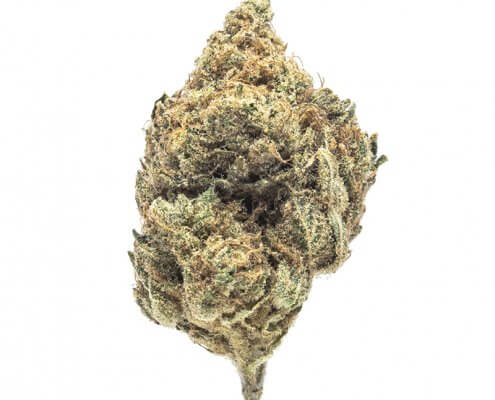 https://essencevegas.com/wp-content/uploads/2018/11/MMG-Chemdawg.jpg
800
800
[email protected]
https://essencevegas.com/wp-content/uploads/2021/02/Essence-Cannabis-Dispensary-Logo.png
[email protected]2018-11-08 12:33:332019-04-01 15:31:49MMG – Chemdawg
https://essencevegas.com/wp-content/uploads/2018/11/MMG-Chemdawg.jpg
800
800
[email protected]
https://essencevegas.com/wp-content/uploads/2021/02/Essence-Cannabis-Dispensary-Logo.png
[email protected]2018-11-08 12:33:332019-04-01 15:31:49MMG – Chemdawg https://essencevegas.com/wp-content/uploads/2018/12/MMG-Chemdawg_4-Pre-Roll.jpg
800
800
[email protected]
https://essencevegas.com/wp-content/uploads/2021/02/Essence-Cannabis-Dispensary-Logo.png
[email protected]2018-12-28 12:53:282021-06-11 00:41:02MMG – Chemdawg #4 Pre-Roll
https://essencevegas.com/wp-content/uploads/2018/12/MMG-Chemdawg_4-Pre-Roll.jpg
800
800
[email protected]
https://essencevegas.com/wp-content/uploads/2021/02/Essence-Cannabis-Dispensary-Logo.png
[email protected]2018-12-28 12:53:282021-06-11 00:41:02MMG – Chemdawg #4 Pre-Roll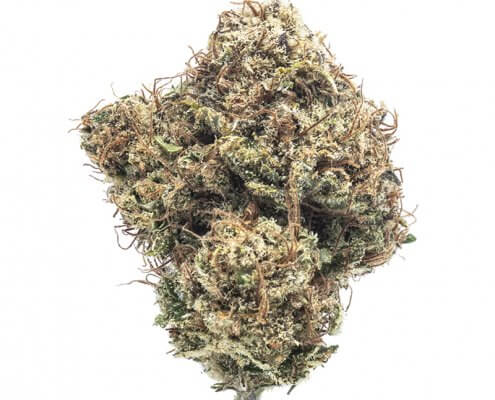 https://essencevegas.com/wp-content/uploads/2018/12/MMG-Dutch-Treat.jpg
800
800
[email protected]
https://essencevegas.com/wp-content/uploads/2021/02/Essence-Cannabis-Dispensary-Logo.png
[email protected]2018-12-19 11:28:032021-03-26 04:28:16MMG – Dutch Treat
https://essencevegas.com/wp-content/uploads/2018/12/MMG-Dutch-Treat.jpg
800
800
[email protected]
https://essencevegas.com/wp-content/uploads/2021/02/Essence-Cannabis-Dispensary-Logo.png
[email protected]2018-12-19 11:28:032021-03-26 04:28:16MMG – Dutch Treat https://essencevegas.com/wp-content/uploads/2018/10/MMG-Dutch-Treat-King-Pre-Roll.jpg
800
800
[email protected]
https://essencevegas.com/wp-content/uploads/2021/02/Essence-Cannabis-Dispensary-Logo.png
[email protected]2018-10-31 12:36:292021-06-11 00:42:45MMG – Dutch Treat King Pre-Roll
https://essencevegas.com/wp-content/uploads/2018/10/MMG-Dutch-Treat-King-Pre-Roll.jpg
800
800
[email protected]
https://essencevegas.com/wp-content/uploads/2021/02/Essence-Cannabis-Dispensary-Logo.png
[email protected]2018-10-31 12:36:292021-06-11 00:42:45MMG – Dutch Treat King Pre-Roll https://essencevegas.com/wp-content/uploads/2018/12/MMG-Dutch-Treat-Pre-Roll.jpg
800
800
[email protected]
https://essencevegas.com/wp-content/uploads/2021/02/Essence-Cannabis-Dispensary-Logo.png
[email protected]2018-12-28 13:12:072021-06-11 00:44:58MMG – Dutch Treat Pre-Roll
https://essencevegas.com/wp-content/uploads/2018/12/MMG-Dutch-Treat-Pre-Roll.jpg
800
800
[email protected]
https://essencevegas.com/wp-content/uploads/2021/02/Essence-Cannabis-Dispensary-Logo.png
[email protected]2018-12-28 13:12:072021-06-11 00:44:58MMG – Dutch Treat Pre-Roll https://essencevegas.com/wp-content/uploads/2018/12/MMG-Killer-Ghost-OG.jpg
800
800
[email protected]
https://essencevegas.com/wp-content/uploads/2021/02/Essence-Cannabis-Dispensary-Logo.png
[email protected]2018-12-19 11:36:272021-03-26 07:44:56MMG – Killer Ghost OG
https://essencevegas.com/wp-content/uploads/2018/12/MMG-Killer-Ghost-OG.jpg
800
800
[email protected]
https://essencevegas.com/wp-content/uploads/2021/02/Essence-Cannabis-Dispensary-Logo.png
[email protected]2018-12-19 11:36:272021-03-26 07:44:56MMG – Killer Ghost OG https://essencevegas.com/wp-content/uploads/2018/12/MMG-Killer-Ghost-OG-Pre-Roll.jpg
800
800
[email protected]
https://essencevegas.com/wp-content/uploads/2021/02/Essence-Cannabis-Dispensary-Logo.png
[email protected]2018-12-28 13:30:152020-09-08 01:52:51MMG – Killer Ghost OG Pre-Roll
https://essencevegas.com/wp-content/uploads/2018/12/MMG-Killer-Ghost-OG-Pre-Roll.jpg
800
800
[email protected]
https://essencevegas.com/wp-content/uploads/2021/02/Essence-Cannabis-Dispensary-Logo.png
[email protected]2018-12-28 13:30:152020-09-08 01:52:51MMG – Killer Ghost OG Pre-Roll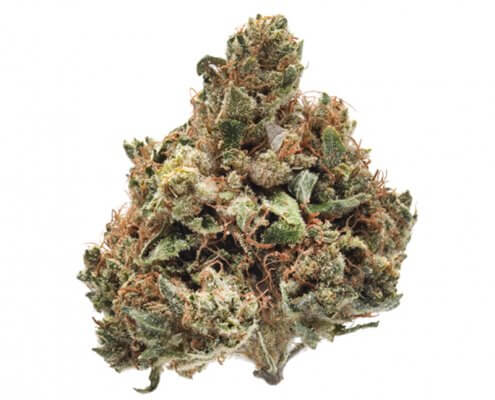 https://essencevegas.com/wp-content/uploads/2018/10/MMG-Killer-Tahoe-OG.jpg
800
800
[email protected]
https://essencevegas.com/wp-content/uploads/2021/02/Essence-Cannabis-Dispensary-Logo.png
[email protected]2018-10-31 12:20:542021-06-25 07:47:26MMG – Killer Tahoe OG
https://essencevegas.com/wp-content/uploads/2018/10/MMG-Killer-Tahoe-OG.jpg
800
800
[email protected]
https://essencevegas.com/wp-content/uploads/2021/02/Essence-Cannabis-Dispensary-Logo.png
[email protected]2018-10-31 12:20:542021-06-25 07:47:26MMG – Killer Tahoe OG https://essencevegas.com/wp-content/uploads/2018/12/MMG-Killer-Tahoe-OG-Pre-Roll.jpg
800
800
[email protected]
https://essencevegas.com/wp-content/uploads/2021/02/Essence-Cannabis-Dispensary-Logo.png
[email protected]2018-12-28 13:44:492021-06-11 00:45:57MMG – Killer Tahoe OG Pre-Roll
https://essencevegas.com/wp-content/uploads/2018/12/MMG-Killer-Tahoe-OG-Pre-Roll.jpg
800
800
[email protected]
https://essencevegas.com/wp-content/uploads/2021/02/Essence-Cannabis-Dispensary-Logo.png
[email protected]2018-12-28 13:44:492021-06-11 00:45:57MMG – Killer Tahoe OG Pre-Roll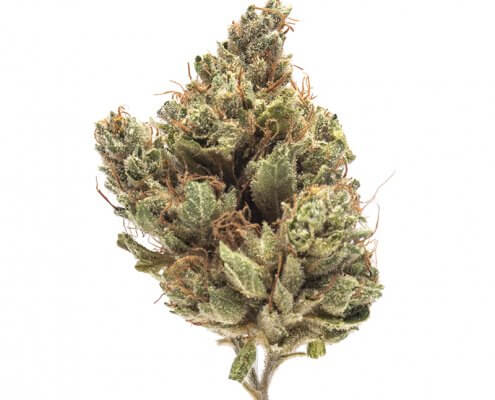 https://essencevegas.com/wp-content/uploads/2018/11/MMG-Platinum-OG.jpg
800
800
[email protected]
https://essencevegas.com/wp-content/uploads/2021/02/Essence-Cannabis-Dispensary-Logo.png
[email protected]2018-11-21 15:07:092021-03-26 08:03:21MMG – Platinum OG
https://essencevegas.com/wp-content/uploads/2018/11/MMG-Platinum-OG.jpg
800
800
[email protected]
https://essencevegas.com/wp-content/uploads/2021/02/Essence-Cannabis-Dispensary-Logo.png
[email protected]2018-11-21 15:07:092021-03-26 08:03:21MMG – Platinum OG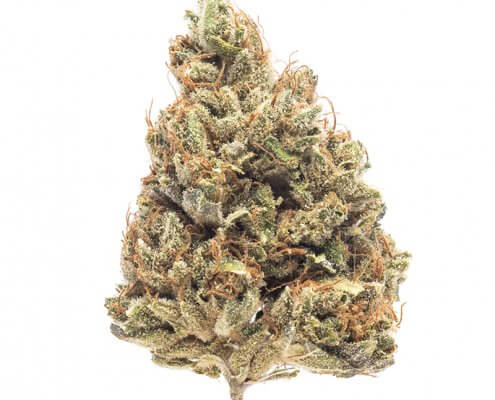 https://essencevegas.com/wp-content/uploads/2018/11/MMG-Westside-OG.jpg
800
800
[email protected]
https://essencevegas.com/wp-content/uploads/2021/02/Essence-Cannabis-Dispensary-Logo.png
[email protected]2018-11-09 10:21:122021-05-24 08:06:54MMG – Westside OG
https://essencevegas.com/wp-content/uploads/2018/11/MMG-Westside-OG.jpg
800
800
[email protected]
https://essencevegas.com/wp-content/uploads/2021/02/Essence-Cannabis-Dispensary-Logo.png
[email protected]2018-11-09 10:21:122021-05-24 08:06:54MMG – Westside OG https://essencevegas.com/wp-content/uploads/2018/12/MMG-Westside-OG-Pre-Roll.jpg
800
800
[email protected]
https://essencevegas.com/wp-content/uploads/2021/02/Essence-Cannabis-Dispensary-Logo.png
[email protected]2018-12-28 13:52:232019-04-01 15:11:10MMG – Westside OG Pre-Roll
https://essencevegas.com/wp-content/uploads/2018/12/MMG-Westside-OG-Pre-Roll.jpg
800
800
[email protected]
https://essencevegas.com/wp-content/uploads/2021/02/Essence-Cannabis-Dispensary-Logo.png
[email protected]2018-12-28 13:52:232019-04-01 15:11:10MMG – Westside OG Pre-Roll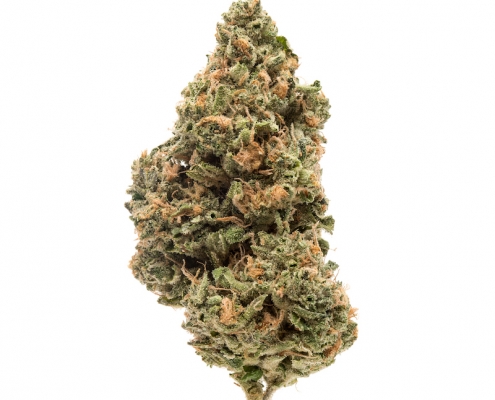 https://essencevegas.com/wp-content/uploads/2019/02/Mojave_1991OG.jpg
800
800
[email protected]
https://essencevegas.com/wp-content/uploads/2021/02/Essence-Cannabis-Dispensary-Logo.png
[email protected]2019-02-18 16:33:442021-05-24 08:14:35Mojave – 1991 OG
https://essencevegas.com/wp-content/uploads/2019/02/Mojave_1991OG.jpg
800
800
[email protected]
https://essencevegas.com/wp-content/uploads/2021/02/Essence-Cannabis-Dispensary-Logo.png
[email protected]2019-02-18 16:33:442021-05-24 08:14:35Mojave – 1991 OG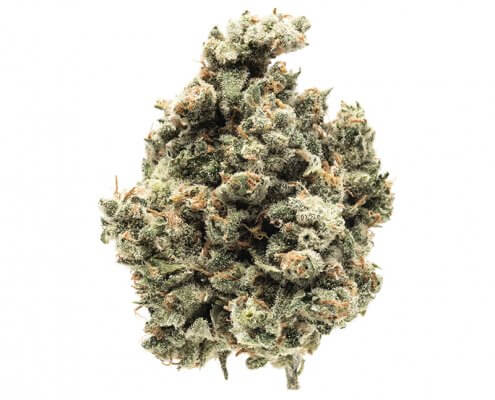 https://essencevegas.com/wp-content/uploads/2018/12/Mother-Herb-Acapulco-Gold.jpg
800
800
[email protected]
https://essencevegas.com/wp-content/uploads/2021/02/Essence-Cannabis-Dispensary-Logo.png
[email protected]2018-12-21 13:16:152021-05-25 01:55:57Mother Herb – Acapulco Gold
https://essencevegas.com/wp-content/uploads/2018/12/Mother-Herb-Acapulco-Gold.jpg
800
800
[email protected]
https://essencevegas.com/wp-content/uploads/2021/02/Essence-Cannabis-Dispensary-Logo.png
[email protected]2018-12-21 13:16:152021-05-25 01:55:57Mother Herb – Acapulco Gold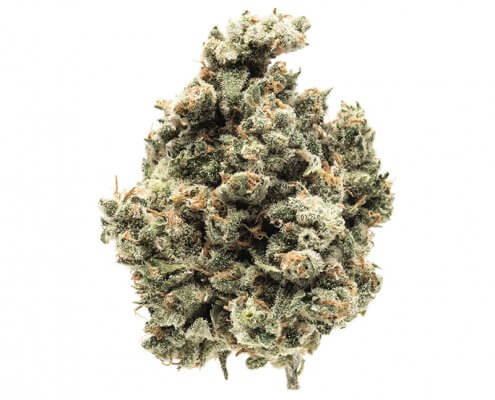 https://essencevegas.com/wp-content/uploads/2018/12/Mother-Herb-Limelight-OG.jpg
800
800
[email protected]
https://essencevegas.com/wp-content/uploads/2021/02/Essence-Cannabis-Dispensary-Logo.png
[email protected]2018-12-21 14:06:052021-05-25 01:57:19Mother Herb – Limelight OG
https://essencevegas.com/wp-content/uploads/2018/12/Mother-Herb-Limelight-OG.jpg
800
800
[email protected]
https://essencevegas.com/wp-content/uploads/2021/02/Essence-Cannabis-Dispensary-Logo.png
[email protected]2018-12-21 14:06:052021-05-25 01:57:19Mother Herb – Limelight OG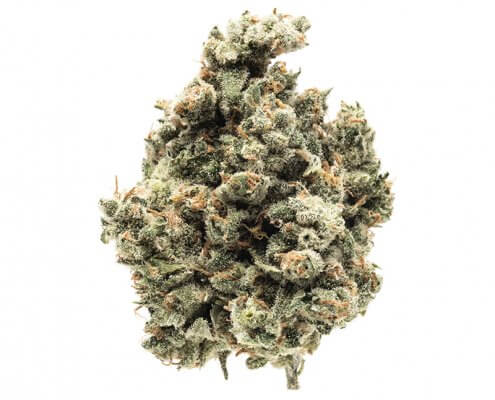 https://essencevegas.com/wp-content/uploads/2018/12/Mother-Herb-Yoda-OG.jpg
800
800
[email protected]
https://essencevegas.com/wp-content/uploads/2021/02/Essence-Cannabis-Dispensary-Logo.png
[email protected]2018-12-21 15:29:342021-06-25 07:52:00Mother Herb – Yoda OG
https://essencevegas.com/wp-content/uploads/2018/12/Mother-Herb-Yoda-OG.jpg
800
800
[email protected]
https://essencevegas.com/wp-content/uploads/2021/02/Essence-Cannabis-Dispensary-Logo.png
[email protected]2018-12-21 15:29:342021-06-25 07:52:00Mother Herb – Yoda OG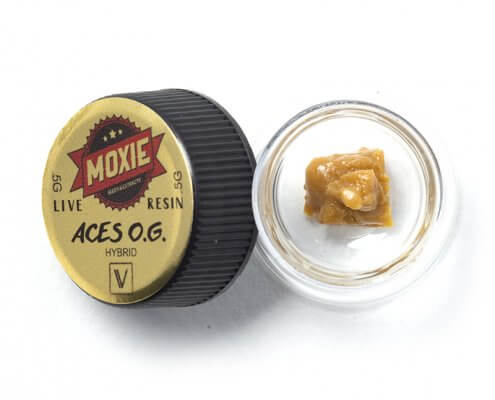 https://essencevegas.com/wp-content/uploads/2018/08/Moxie-Aces-OG-Live-Resin-Badder.jpg
800
800
[email protected]
https://essencevegas.com/wp-content/uploads/2021/02/Essence-Cannabis-Dispensary-Logo.png
[email protected]2018-08-08 09:53:132020-09-08 16:18:21Moxie – Aces OG Live Resin Badder
https://essencevegas.com/wp-content/uploads/2018/08/Moxie-Aces-OG-Live-Resin-Badder.jpg
800
800
[email protected]
https://essencevegas.com/wp-content/uploads/2021/02/Essence-Cannabis-Dispensary-Logo.png
[email protected]2018-08-08 09:53:132020-09-08 16:18:21Moxie – Aces OG Live Resin Badder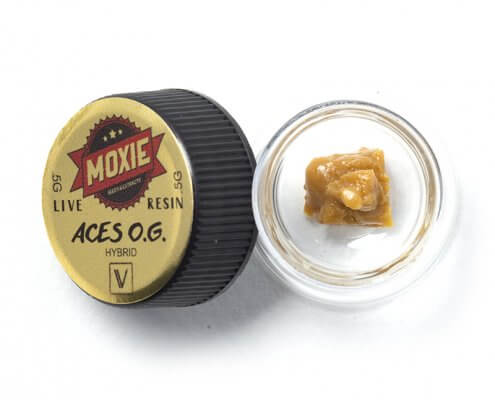 https://essencevegas.com/wp-content/uploads/2018/08/Moxie-Blood-Orange-Cartridge.jpg
800
800
[email protected]
https://essencevegas.com/wp-content/uploads/2021/02/Essence-Cannabis-Dispensary-Logo.png
[email protected]2018-08-27 11:48:142021-06-25 05:23:55Moxie – Blood Orange Cartridge
https://essencevegas.com/wp-content/uploads/2018/08/Moxie-Blood-Orange-Cartridge.jpg
800
800
[email protected]
https://essencevegas.com/wp-content/uploads/2021/02/Essence-Cannabis-Dispensary-Logo.png
[email protected]2018-08-27 11:48:142021-06-25 05:23:55Moxie – Blood Orange Cartridge https://essencevegas.com/wp-content/uploads/2018/08/Moxie_Fire-OG.jpg
2048
2048
[email protected]
https://essencevegas.com/wp-content/uploads/2021/02/Essence-Cannabis-Dispensary-Logo.png
[email protected]2018-08-07 14:24:582021-06-01 05:58:56Moxie – Fire OG Live Resin Sauce
https://essencevegas.com/wp-content/uploads/2018/08/Moxie_Fire-OG.jpg
2048
2048
[email protected]
https://essencevegas.com/wp-content/uploads/2021/02/Essence-Cannabis-Dispensary-Logo.png
[email protected]2018-08-07 14:24:582021-06-01 05:58:56Moxie – Fire OG Live Resin Sauce https://essencevegas.com/wp-content/uploads/2018/08/Moxie_Vape-Cartridge-Pear.jpg
900
900
[email protected]
https://essencevegas.com/wp-content/uploads/2021/02/Essence-Cannabis-Dispensary-Logo.png
[email protected]2018-08-31 13:35:102021-06-25 05:25:29Moxie – Pear Cartridge
https://essencevegas.com/wp-content/uploads/2018/08/Moxie_Vape-Cartridge-Pear.jpg
900
900
[email protected]
https://essencevegas.com/wp-content/uploads/2021/02/Essence-Cannabis-Dispensary-Logo.png
[email protected]2018-08-31 13:35:102021-06-25 05:25:29Moxie – Pear Cartridge https://essencevegas.com/wp-content/uploads/2018/08/Moxie-Pineapple-Express-Cartridge.jpg
800
800
[email protected]
https://essencevegas.com/wp-content/uploads/2021/02/Essence-Cannabis-Dispensary-Logo.png
[email protected]2018-08-31 11:11:102021-06-25 05:26:47Moxie – Pineapple Express Cartridge
https://essencevegas.com/wp-content/uploads/2018/08/Moxie-Pineapple-Express-Cartridge.jpg
800
800
[email protected]
https://essencevegas.com/wp-content/uploads/2021/02/Essence-Cannabis-Dispensary-Logo.png
[email protected]2018-08-31 11:11:102021-06-25 05:26:47Moxie – Pineapple Express Cartridge https://essencevegas.com/wp-content/uploads/2018/08/Moxie-Snake-Eyes-OG-Live-Resin-Badder.jpg
800
800
[email protected]
https://essencevegas.com/wp-content/uploads/2021/02/Essence-Cannabis-Dispensary-Logo.png
[email protected]2018-08-08 15:59:352020-09-08 13:56:42Moxie – Snake Eyes OG Live Resin Badder
https://essencevegas.com/wp-content/uploads/2018/08/Moxie-Snake-Eyes-OG-Live-Resin-Badder.jpg
800
800
[email protected]
https://essencevegas.com/wp-content/uploads/2021/02/Essence-Cannabis-Dispensary-Logo.png
[email protected]2018-08-08 15:59:352020-09-08 13:56:42Moxie – Snake Eyes OG Live Resin Badder https://essencevegas.com/wp-content/uploads/2018/08/Moxie_Snakes.jpg
2048
2048
[email protected]
https://essencevegas.com/wp-content/uploads/2021/02/Essence-Cannabis-Dispensary-Logo.png
[email protected]2018-08-03 13:04:422020-09-08 07:01:27Moxie – Snake Venom Live Resin
https://essencevegas.com/wp-content/uploads/2018/08/Moxie_Snakes.jpg
2048
2048
[email protected]
https://essencevegas.com/wp-content/uploads/2021/02/Essence-Cannabis-Dispensary-Logo.png
[email protected]2018-08-03 13:04:422020-09-08 07:01:27Moxie – Snake Venom Live Resin https://essencevegas.com/wp-content/uploads/2018/08/Moxie-Sour-Banana-Cartridge.jpg
800
800
[email protected]
https://essencevegas.com/wp-content/uploads/2021/02/Essence-Cannabis-Dispensary-Logo.png
[email protected]2018-08-31 14:28:062021-06-25 05:28:15Moxie – Strawberry Banana Cartridge
https://essencevegas.com/wp-content/uploads/2018/08/Moxie-Sour-Banana-Cartridge.jpg
800
800
[email protected]
https://essencevegas.com/wp-content/uploads/2021/02/Essence-Cannabis-Dispensary-Logo.png
[email protected]2018-08-31 14:28:062021-06-25 05:28:15Moxie – Strawberry Banana Cartridge https://essencevegas.com/wp-content/uploads/2018/08/Moxie-Virtue-OG-Badder.jpg
800
800
[email protected]
https://essencevegas.com/wp-content/uploads/2021/02/Essence-Cannabis-Dispensary-Logo.png
[email protected]2018-08-07 13:28:242019-04-01 15:02:47Moxie – Virtue OG Badder
https://essencevegas.com/wp-content/uploads/2018/08/Moxie-Virtue-OG-Badder.jpg
800
800
[email protected]
https://essencevegas.com/wp-content/uploads/2021/02/Essence-Cannabis-Dispensary-Logo.png
[email protected]2018-08-07 13:28:242019-04-01 15:02:47Moxie – Virtue OG Badder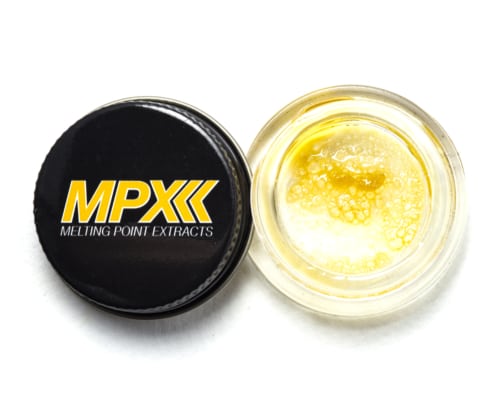 https://essencevegas.com/wp-content/uploads/2018/08/MPX_Jedi-OG-Zombie-Resin.jpg
2048
2048
[email protected]
https://essencevegas.com/wp-content/uploads/2021/02/Essence-Cannabis-Dispensary-Logo.png
[email protected]2018-08-02 17:10:072019-12-04 00:54:23MPX – Venkman Jedi OG Zombie Resin
https://essencevegas.com/wp-content/uploads/2018/08/MPX_Jedi-OG-Zombie-Resin.jpg
2048
2048
[email protected]
https://essencevegas.com/wp-content/uploads/2021/02/Essence-Cannabis-Dispensary-Logo.png
[email protected]2018-08-02 17:10:072019-12-04 00:54:23MPX – Venkman Jedi OG Zombie Resin https://essencevegas.com/wp-content/uploads/2018/07/Natures-Chemistry-Blue-Dream.jpg
800
800
[email protected]
https://essencevegas.com/wp-content/uploads/2021/02/Essence-Cannabis-Dispensary-Logo.png
[email protected]2018-07-24 14:12:352021-05-20 03:34:08Nature’s Chemistry – Blue Dream
https://essencevegas.com/wp-content/uploads/2018/07/Natures-Chemistry-Blue-Dream.jpg
800
800
[email protected]
https://essencevegas.com/wp-content/uploads/2021/02/Essence-Cannabis-Dispensary-Logo.png
[email protected]2018-07-24 14:12:352021-05-20 03:34:08Nature’s Chemistry – Blue Dream https://essencevegas.com/wp-content/uploads/2018/07/Natures-Chemistry-Cookies-and-Cream.jpg
800
800
[email protected]
https://essencevegas.com/wp-content/uploads/2021/02/Essence-Cannabis-Dispensary-Logo.png
[email protected]2018-07-24 14:24:142021-05-20 03:47:24Nature’s Chemistry – Cookies and Cream
https://essencevegas.com/wp-content/uploads/2018/07/Natures-Chemistry-Cookies-and-Cream.jpg
800
800
[email protected]
https://essencevegas.com/wp-content/uploads/2021/02/Essence-Cannabis-Dispensary-Logo.png
[email protected]2018-07-24 14:24:142021-05-20 03:47:24Nature’s Chemistry – Cookies and Cream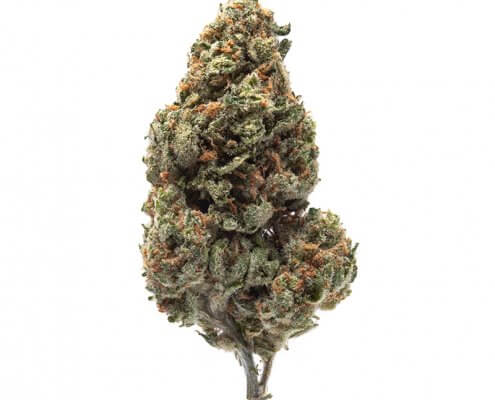 https://essencevegas.com/wp-content/uploads/2018/11/NC-Green-Crack.jpg
800
800
[email protected]
https://essencevegas.com/wp-content/uploads/2021/02/Essence-Cannabis-Dispensary-Logo.png
[email protected]2018-11-22 10:47:502021-03-26 05:08:19Nature’s Chemistry – Green Crack
https://essencevegas.com/wp-content/uploads/2018/11/NC-Green-Crack.jpg
800
800
[email protected]
https://essencevegas.com/wp-content/uploads/2021/02/Essence-Cannabis-Dispensary-Logo.png
[email protected]2018-11-22 10:47:502021-03-26 05:08:19Nature’s Chemistry – Green Crack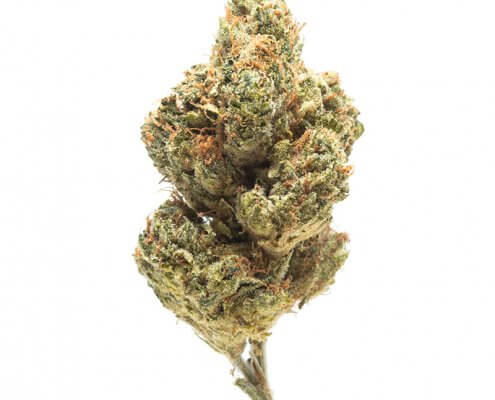 https://essencevegas.com/wp-content/uploads/2018/11/NC-Hells-OG.jpg
800
800
[email protected]
https://essencevegas.com/wp-content/uploads/2021/02/Essence-Cannabis-Dispensary-Logo.png
[email protected]2018-11-22 11:35:312021-03-26 08:03:06Nature’s Chemistry – Hell’s OG
https://essencevegas.com/wp-content/uploads/2018/11/NC-Hells-OG.jpg
800
800
[email protected]
https://essencevegas.com/wp-content/uploads/2021/02/Essence-Cannabis-Dispensary-Logo.png
[email protected]2018-11-22 11:35:312021-03-26 08:03:06Nature’s Chemistry – Hell’s OG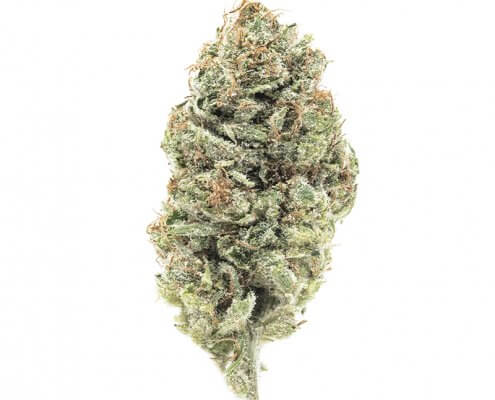 https://essencevegas.com/wp-content/uploads/2018/07/Natures-Chemistry-Prodigium.jpg
800
800
[email protected]
https://essencevegas.com/wp-content/uploads/2021/02/Essence-Cannabis-Dispensary-Logo.png
[email protected]2018-07-24 14:43:272020-09-08 02:13:45Nature’s Chemistry – Prodigium
https://essencevegas.com/wp-content/uploads/2018/07/Natures-Chemistry-Prodigium.jpg
800
800
[email protected]
https://essencevegas.com/wp-content/uploads/2021/02/Essence-Cannabis-Dispensary-Logo.png
[email protected]2018-07-24 14:43:272020-09-08 02:13:45Nature’s Chemistry – Prodigium https://essencevegas.com/wp-content/uploads/2018/07/Natures-Chemistry-Tangie.jpg
800
800
[email protected]
https://essencevegas.com/wp-content/uploads/2021/02/Essence-Cannabis-Dispensary-Logo.png
[email protected]2018-07-24 15:14:002020-09-08 15:46:03Nature’s Chemistry – Tangie
https://essencevegas.com/wp-content/uploads/2018/07/Natures-Chemistry-Tangie.jpg
800
800
[email protected]
https://essencevegas.com/wp-content/uploads/2021/02/Essence-Cannabis-Dispensary-Logo.png
[email protected]2018-07-24 15:14:002020-09-08 15:46:03Nature’s Chemistry – Tangie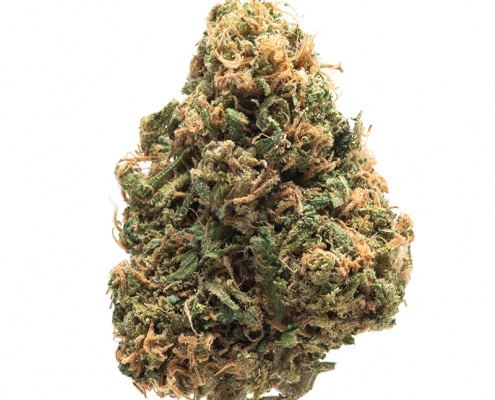 https://essencevegas.com/wp-content/uploads/2018/11/Home-Grown-Vegas-Green-Crack.jpg
800
800
[email protected]
https://essencevegas.com/wp-content/uploads/2021/02/Essence-Cannabis-Dispensary-Logo.png
[email protected]2018-11-09 16:39:552021-05-25 02:01:33NC – Green Crack
https://essencevegas.com/wp-content/uploads/2018/11/Home-Grown-Vegas-Green-Crack.jpg
800
800
[email protected]
https://essencevegas.com/wp-content/uploads/2021/02/Essence-Cannabis-Dispensary-Logo.png
[email protected]2018-11-09 16:39:552021-05-25 02:01:33NC – Green Crack https://essencevegas.com/wp-content/uploads/2018/08/NLV-Cinex-Shatter.jpg
800
800
[email protected]
https://essencevegas.com/wp-content/uploads/2021/02/Essence-Cannabis-Dispensary-Logo.png
[email protected]2018-08-09 13:19:342020-09-08 15:09:55NLV – Cinex Shatter
https://essencevegas.com/wp-content/uploads/2018/08/NLV-Cinex-Shatter.jpg
800
800
[email protected]
https://essencevegas.com/wp-content/uploads/2021/02/Essence-Cannabis-Dispensary-Logo.png
[email protected]2018-08-09 13:19:342020-09-08 15:09:55NLV – Cinex Shatter https://essencevegas.com/wp-content/uploads/2018/08/NLV-Weed-Bros-OG-Shatter.jpg
800
800
[email protected]
https://essencevegas.com/wp-content/uploads/2021/02/Essence-Cannabis-Dispensary-Logo.png
[email protected]2018-08-09 13:51:542021-06-01 06:06:20NLV – Weed Bros OG Shatter
https://essencevegas.com/wp-content/uploads/2018/08/NLV-Weed-Bros-OG-Shatter.jpg
800
800
[email protected]
https://essencevegas.com/wp-content/uploads/2021/02/Essence-Cannabis-Dispensary-Logo.png
[email protected]2018-08-09 13:51:542021-06-01 06:06:20NLV – Weed Bros OG Shatter https://essencevegas.com/wp-content/uploads/2018/08/NLVO-Cali-Boss-Hogg-Shatter.jpg
800
800
[email protected]
https://essencevegas.com/wp-content/uploads/2021/02/Essence-Cannabis-Dispensary-Logo.png
[email protected]2018-08-07 13:56:262021-06-01 06:07:53NLVO – Cali Boss Hogg Shatter
https://essencevegas.com/wp-content/uploads/2018/08/NLVO-Cali-Boss-Hogg-Shatter.jpg
800
800
[email protected]
https://essencevegas.com/wp-content/uploads/2021/02/Essence-Cannabis-Dispensary-Logo.png
[email protected]2018-08-07 13:56:262021-06-01 06:07:53NLVO – Cali Boss Hogg Shatter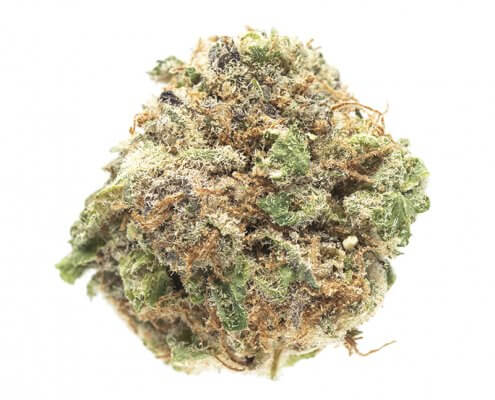 https://essencevegas.com/wp-content/uploads/2018/11/NLVO-Cinex.jpg
800
800
[email protected]
https://essencevegas.com/wp-content/uploads/2021/02/Essence-Cannabis-Dispensary-Logo.png
[email protected]2018-11-09 17:11:312021-05-25 02:03:09NLVO – Cinex
https://essencevegas.com/wp-content/uploads/2018/11/NLVO-Cinex.jpg
800
800
[email protected]
https://essencevegas.com/wp-content/uploads/2021/02/Essence-Cannabis-Dispensary-Logo.png
[email protected]2018-11-09 17:11:312021-05-25 02:03:09NLVO – Cinex https://essencevegas.com/wp-content/uploads/2018/08/NLVO-Pink-2.0-Disposable-Vape-Pen.jpg
800
800
[email protected]
https://essencevegas.com/wp-content/uploads/2021/02/Essence-Cannabis-Dispensary-Logo.png
[email protected]2018-08-23 16:32:092020-09-08 16:15:19NLVO – Pink 2.0 Disposable Vape Pen
https://essencevegas.com/wp-content/uploads/2018/08/NLVO-Pink-2.0-Disposable-Vape-Pen.jpg
800
800
[email protected]
https://essencevegas.com/wp-content/uploads/2021/02/Essence-Cannabis-Dispensary-Logo.png
[email protected]2018-08-23 16:32:092020-09-08 16:15:19NLVO – Pink 2.0 Disposable Vape Pen https://essencevegas.com/wp-content/uploads/2018/08/NLVO-Watermelon-Mint-Disposable-Vape-Pen.jpg
800
800
[email protected]
https://essencevegas.com/wp-content/uploads/2021/02/Essence-Cannabis-Dispensary-Logo.png
[email protected]2018-08-17 14:37:502021-06-25 05:29:45NLVO – Watermelon Mint Disposable Vape Pen
https://essencevegas.com/wp-content/uploads/2018/08/NLVO-Watermelon-Mint-Disposable-Vape-Pen.jpg
800
800
[email protected]
https://essencevegas.com/wp-content/uploads/2021/02/Essence-Cannabis-Dispensary-Logo.png
[email protected]2018-08-17 14:37:502021-06-25 05:29:45NLVO – Watermelon Mint Disposable Vape Pen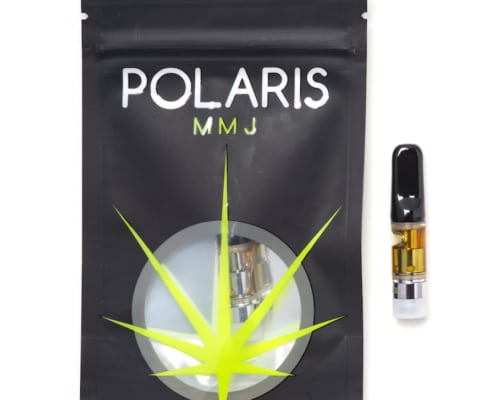 https://essencevegas.com/wp-content/uploads/2018/08/Polaris_Vape-Cartridge-Generic.jpg
900
900
[email protected]
https://essencevegas.com/wp-content/uploads/2021/02/Essence-Cannabis-Dispensary-Logo.png
[email protected]2018-08-23 14:59:252020-09-08 15:18:18Polaris – Blue Maui Vape Cartridge
https://essencevegas.com/wp-content/uploads/2018/08/Polaris_Vape-Cartridge-Generic.jpg
900
900
[email protected]
https://essencevegas.com/wp-content/uploads/2021/02/Essence-Cannabis-Dispensary-Logo.png
[email protected]2018-08-23 14:59:252020-09-08 15:18:18Polaris – Blue Maui Vape Cartridge https://essencevegas.com/wp-content/uploads/2019/04/Polaris-Slab-Monster-Cookies-1.jpg
800
800
[email protected]
https://essencevegas.com/wp-content/uploads/2021/02/Essence-Cannabis-Dispensary-Logo.png
[email protected]2019-04-30 12:01:272021-06-01 06:08:48Polaris – Monster Cookies Slab
https://essencevegas.com/wp-content/uploads/2019/04/Polaris-Slab-Monster-Cookies-1.jpg
800
800
[email protected]
https://essencevegas.com/wp-content/uploads/2021/02/Essence-Cannabis-Dispensary-Logo.png
[email protected]2019-04-30 12:01:272021-06-01 06:08:48Polaris – Monster Cookies Slab https://essencevegas.com/wp-content/uploads/2019/04/Polaris_OGChem.jpg
800
800
[email protected]
https://essencevegas.com/wp-content/uploads/2021/02/Essence-Cannabis-Dispensary-Logo.png
[email protected]2019-04-30 12:03:082021-06-01 06:09:47Polaris – OG Chem Live Resin Badder
https://essencevegas.com/wp-content/uploads/2019/04/Polaris_OGChem.jpg
800
800
[email protected]
https://essencevegas.com/wp-content/uploads/2021/02/Essence-Cannabis-Dispensary-Logo.png
[email protected]2019-04-30 12:03:082021-06-01 06:09:47Polaris – OG Chem Live Resin Badder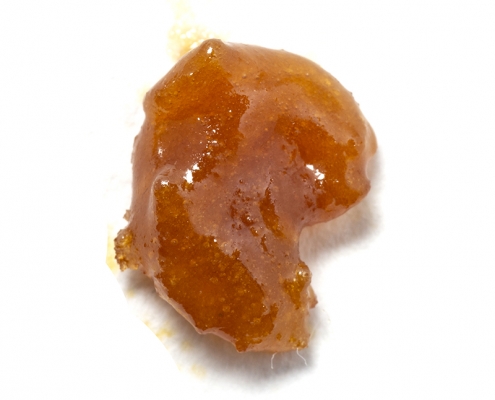 https://essencevegas.com/wp-content/uploads/2019/04/HSH_White-Widow.jpg
800
800
[email protected]
https://essencevegas.com/wp-content/uploads/2021/02/Essence-Cannabis-Dispensary-Logo.png
[email protected]2019-04-30 12:06:202021-06-01 06:10:59Polaris – OG Chem Slab
https://essencevegas.com/wp-content/uploads/2019/04/HSH_White-Widow.jpg
800
800
[email protected]
https://essencevegas.com/wp-content/uploads/2021/02/Essence-Cannabis-Dispensary-Logo.png
[email protected]2019-04-30 12:06:202021-06-01 06:10:59Polaris – OG Chem Slab https://essencevegas.com/wp-content/uploads/2019/04/Korova_SaltedCarmelblonde.jpg
800
800
[email protected]
https://essencevegas.com/wp-content/uploads/2021/02/Essence-Cannabis-Dispensary-Logo.png
[email protected]2019-04-30 09:28:332021-06-09 10:50:13Polaris MMJ – Korova 1:1 Salted Caramel Blondie
https://essencevegas.com/wp-content/uploads/2019/04/Korova_SaltedCarmelblonde.jpg
800
800
[email protected]
https://essencevegas.com/wp-content/uploads/2021/02/Essence-Cannabis-Dispensary-Logo.png
[email protected]2019-04-30 09:28:332021-06-09 10:50:13Polaris MMJ – Korova 1:1 Salted Caramel Blondie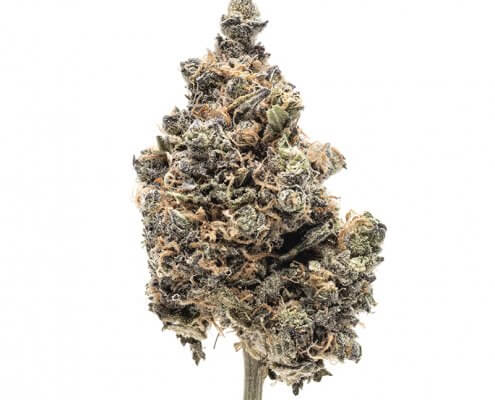 https://essencevegas.com/wp-content/uploads/2018/12/Prime-Chocolate-Mint-OG.jpg
800
800
[email protected]
https://essencevegas.com/wp-content/uploads/2021/02/Essence-Cannabis-Dispensary-Logo.png
[email protected]2018-12-19 14:11:022021-05-25 02:06:08Prime – Chocolate Mint OG
https://essencevegas.com/wp-content/uploads/2018/12/Prime-Chocolate-Mint-OG.jpg
800
800
[email protected]
https://essencevegas.com/wp-content/uploads/2021/02/Essence-Cannabis-Dispensary-Logo.png
[email protected]2018-12-19 14:11:022021-05-25 02:06:08Prime – Chocolate Mint OG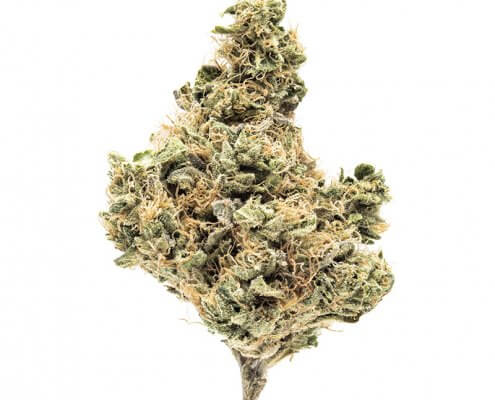 https://essencevegas.com/wp-content/uploads/2018/12/Prime-Cold-Creek-Kush.jpg
800
800
[email protected]
https://essencevegas.com/wp-content/uploads/2021/02/Essence-Cannabis-Dispensary-Logo.png
[email protected]2018-12-19 14:31:332021-03-26 07:35:07Prime – Cold Creek Kush
https://essencevegas.com/wp-content/uploads/2018/12/Prime-Cold-Creek-Kush.jpg
800
800
[email protected]
https://essencevegas.com/wp-content/uploads/2021/02/Essence-Cannabis-Dispensary-Logo.png
[email protected]2018-12-19 14:31:332021-03-26 07:35:07Prime – Cold Creek Kush https://essencevegas.com/wp-content/uploads/2018/12/Prime-Double-Cheese.jpg
800
800
[email protected]
https://essencevegas.com/wp-content/uploads/2021/02/Essence-Cannabis-Dispensary-Logo.png
[email protected]2018-12-19 14:45:392021-05-25 02:10:00Prime – Double Cheese
https://essencevegas.com/wp-content/uploads/2018/12/Prime-Double-Cheese.jpg
800
800
[email protected]
https://essencevegas.com/wp-content/uploads/2021/02/Essence-Cannabis-Dispensary-Logo.png
[email protected]2018-12-19 14:45:392021-05-25 02:10:00Prime – Double Cheese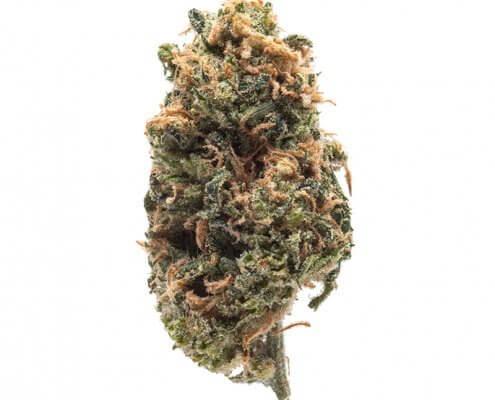 https://essencevegas.com/wp-content/uploads/2018/12/Prime-Green-Crack.jpg
800
800
[email protected]
https://essencevegas.com/wp-content/uploads/2021/02/Essence-Cannabis-Dispensary-Logo.png
[email protected]2018-12-19 14:52:072021-05-25 02:15:52Prime – Green Crack
https://essencevegas.com/wp-content/uploads/2018/12/Prime-Green-Crack.jpg
800
800
[email protected]
https://essencevegas.com/wp-content/uploads/2021/02/Essence-Cannabis-Dispensary-Logo.png
[email protected]2018-12-19 14:52:072021-05-25 02:15:52Prime – Green Crack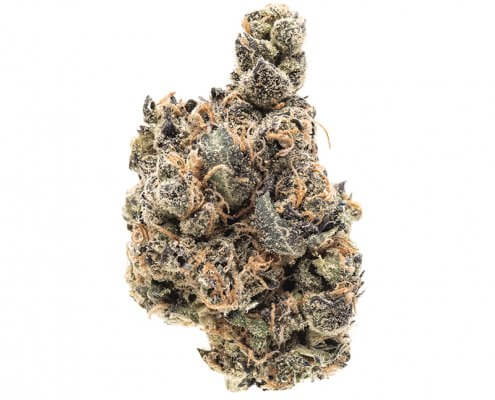 https://essencevegas.com/wp-content/uploads/2018/12/Prime-Moby-Dick-1.jpg
800
800
[email protected]
https://essencevegas.com/wp-content/uploads/2021/02/Essence-Cannabis-Dispensary-Logo.png
[email protected]2018-12-19 15:04:382021-05-25 02:18:08Prime – Moby Dick
https://essencevegas.com/wp-content/uploads/2018/12/Prime-Moby-Dick-1.jpg
800
800
[email protected]
https://essencevegas.com/wp-content/uploads/2021/02/Essence-Cannabis-Dispensary-Logo.png
[email protected]2018-12-19 15:04:382021-05-25 02:18:08Prime – Moby Dick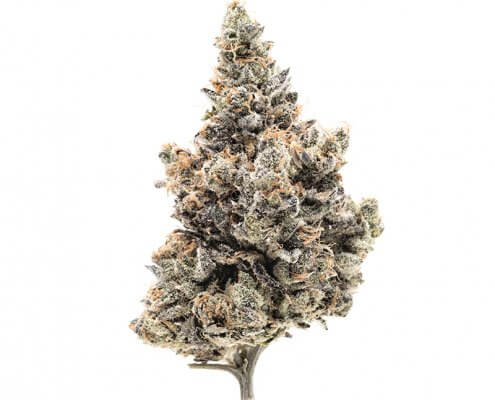 https://essencevegas.com/wp-content/uploads/2018/12/Prime-Secret-Weapon.jpg
800
800
[email protected]
https://essencevegas.com/wp-content/uploads/2021/02/Essence-Cannabis-Dispensary-Logo.png
[email protected]2018-12-19 15:51:442021-05-25 02:23:11Prime – Secret Weapon
https://essencevegas.com/wp-content/uploads/2018/12/Prime-Secret-Weapon.jpg
800
800
[email protected]
https://essencevegas.com/wp-content/uploads/2021/02/Essence-Cannabis-Dispensary-Logo.png
[email protected]2018-12-19 15:51:442021-05-25 02:23:11Prime – Secret Weapon https://essencevegas.com/wp-content/uploads/2018/08/Provisions-Banana-Kush-Disposable-Vape-Pen-1.jpg
800
800
[email protected]
https://essencevegas.com/wp-content/uploads/2021/02/Essence-Cannabis-Dispensary-Logo.png
[email protected]2018-08-31 12:29:002021-06-25 05:31:59Provisions – Banana Kush Disposable Vape Pen
https://essencevegas.com/wp-content/uploads/2018/08/Provisions-Banana-Kush-Disposable-Vape-Pen-1.jpg
800
800
[email protected]
https://essencevegas.com/wp-content/uploads/2021/02/Essence-Cannabis-Dispensary-Logo.png
[email protected]2018-08-31 12:29:002021-06-25 05:31:59Provisions – Banana Kush Disposable Vape Pen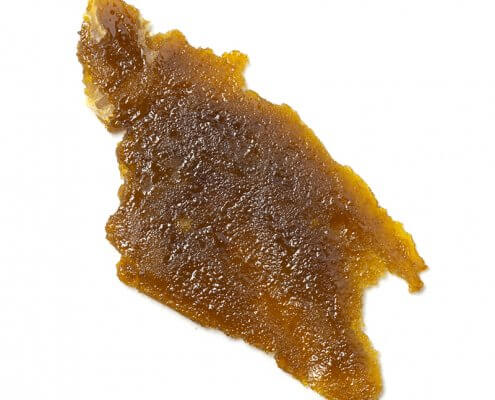 https://essencevegas.com/wp-content/uploads/2018/08/Pure-Tonic-Banana-Cream-Shatter.jpg
800
800
[email protected]
https://essencevegas.com/wp-content/uploads/2021/02/Essence-Cannabis-Dispensary-Logo.png
[email protected]2018-08-07 09:55:562021-06-01 06:13:52Pure Tonic – Banana Cream Shatter
https://essencevegas.com/wp-content/uploads/2018/08/Pure-Tonic-Banana-Cream-Shatter.jpg
800
800
[email protected]
https://essencevegas.com/wp-content/uploads/2021/02/Essence-Cannabis-Dispensary-Logo.png
[email protected]2018-08-07 09:55:562021-06-01 06:13:52Pure Tonic – Banana Cream Shatter https://essencevegas.com/wp-content/uploads/2018/08/Pure-Tonic-Desert-Grown-Glue-Shatter.jpg
800
800
[email protected]
https://essencevegas.com/wp-content/uploads/2021/02/Essence-Cannabis-Dispensary-Logo.png
[email protected]2018-08-08 16:12:582021-06-02 07:39:51Pure Tonic – Desert Grown Glue Shatter
https://essencevegas.com/wp-content/uploads/2018/08/Pure-Tonic-Desert-Grown-Glue-Shatter.jpg
800
800
[email protected]
https://essencevegas.com/wp-content/uploads/2021/02/Essence-Cannabis-Dispensary-Logo.png
[email protected]2018-08-08 16:12:582021-06-02 07:39:51Pure Tonic – Desert Grown Glue Shatter https://essencevegas.com/wp-content/uploads/2019/04/HSH_White-Widow.jpg
800
800
[email protected]
https://essencevegas.com/wp-content/uploads/2021/02/Essence-Cannabis-Dispensary-Logo.png
[email protected]2019-04-30 12:04:442021-06-03 06:58:34Pure Tonic – White Widow Shatter
https://essencevegas.com/wp-content/uploads/2019/04/HSH_White-Widow.jpg
800
800
[email protected]
https://essencevegas.com/wp-content/uploads/2021/02/Essence-Cannabis-Dispensary-Logo.png
[email protected]2019-04-30 12:04:442021-06-03 06:58:34Pure Tonic – White Widow Shatter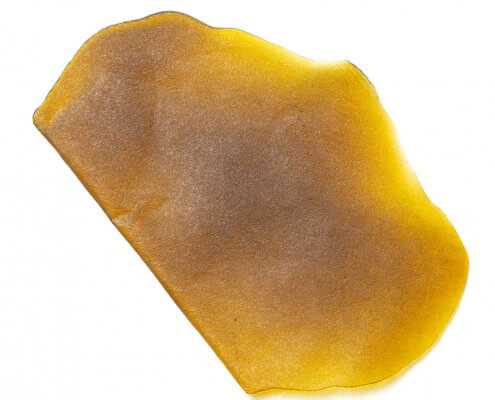 https://essencevegas.com/wp-content/uploads/2018/08/Pure-Tonic-Concentrate-Jack-Herer-Shatter.jpg
800
800
[email protected]
https://essencevegas.com/wp-content/uploads/2021/02/Essence-Cannabis-Dispensary-Logo.png
[email protected]2018-08-09 13:58:172021-06-01 06:16:51Pure Tonic Concentrate – Jack Herer Shatter
https://essencevegas.com/wp-content/uploads/2018/08/Pure-Tonic-Concentrate-Jack-Herer-Shatter.jpg
800
800
[email protected]
https://essencevegas.com/wp-content/uploads/2021/02/Essence-Cannabis-Dispensary-Logo.png
[email protected]2018-08-09 13:58:172021-06-01 06:16:51Pure Tonic Concentrate – Jack Herer Shatter https://essencevegas.com/wp-content/uploads/2018/08/Pure-Tonic-Concentrate-Kosher-Kush-Shatter.jpg
800
800
[email protected]
https://essencevegas.com/wp-content/uploads/2021/02/Essence-Cannabis-Dispensary-Logo.png
[email protected]2018-08-09 14:09:492021-06-02 07:37:45Pure Tonic Concentrate – Kosher Kush Shatter
https://essencevegas.com/wp-content/uploads/2018/08/Pure-Tonic-Concentrate-Kosher-Kush-Shatter.jpg
800
800
[email protected]
https://essencevegas.com/wp-content/uploads/2021/02/Essence-Cannabis-Dispensary-Logo.png
[email protected]2018-08-09 14:09:492021-06-02 07:37:45Pure Tonic Concentrate – Kosher Kush Shatter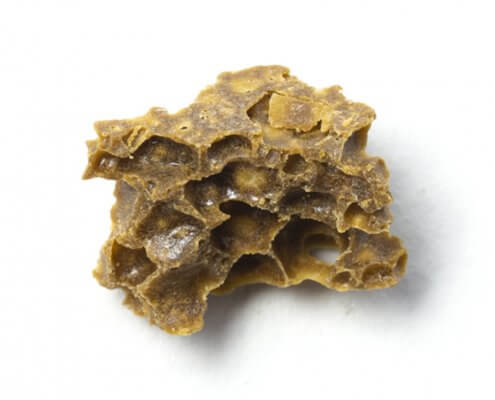 https://essencevegas.com/wp-content/uploads/2018/08/Pure-Tonics-Grape-Inferno-Wax.jpg
800
800
[email protected]
https://essencevegas.com/wp-content/uploads/2021/02/Essence-Cannabis-Dispensary-Logo.png
[email protected]2018-08-06 11:44:392021-06-03 06:59:31Pure Tonics – Grape Inferno Wax
https://essencevegas.com/wp-content/uploads/2018/08/Pure-Tonics-Grape-Inferno-Wax.jpg
800
800
[email protected]
https://essencevegas.com/wp-content/uploads/2021/02/Essence-Cannabis-Dispensary-Logo.png
[email protected]2018-08-06 11:44:392021-06-03 06:59:31Pure Tonics – Grape Inferno Wax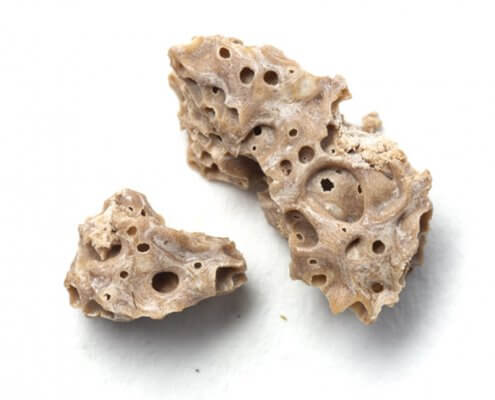 https://essencevegas.com/wp-content/uploads/2018/08/Pure-Tonics-Moscato-4-Wax.jpg
800
800
[email protected]
https://essencevegas.com/wp-content/uploads/2021/02/Essence-Cannabis-Dispensary-Logo.png
[email protected]2018-08-06 10:57:162020-09-08 03:33:55Pure Tonics – Moscato #4 Wax
https://essencevegas.com/wp-content/uploads/2018/08/Pure-Tonics-Moscato-4-Wax.jpg
800
800
[email protected]
https://essencevegas.com/wp-content/uploads/2021/02/Essence-Cannabis-Dispensary-Logo.png
[email protected]2018-08-06 10:57:162020-09-08 03:33:55Pure Tonics – Moscato #4 Wax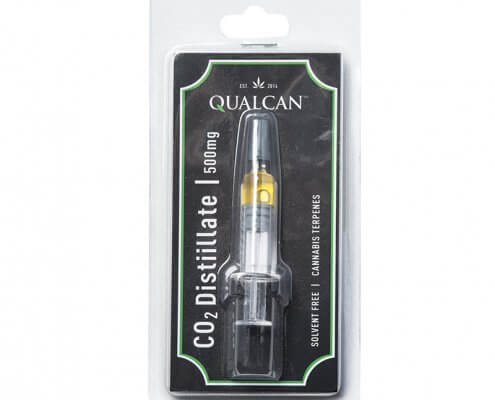 https://essencevegas.com/wp-content/uploads/2018/08/Qualcan-Blue-Dream-Syringe.jpg
800
800
[email protected]
https://essencevegas.com/wp-content/uploads/2021/02/Essence-Cannabis-Dispensary-Logo.png
[email protected]2018-08-08 12:07:112021-06-03 07:01:16Qualcan – Blue Dream Syringe
https://essencevegas.com/wp-content/uploads/2018/08/Qualcan-Blue-Dream-Syringe.jpg
800
800
[email protected]
https://essencevegas.com/wp-content/uploads/2021/02/Essence-Cannabis-Dispensary-Logo.png
[email protected]2018-08-08 12:07:112021-06-03 07:01:16Qualcan – Blue Dream Syringe https://essencevegas.com/wp-content/uploads/2018/12/Redwood-Gelato-Pre-Roll.jpg
800
800
[email protected]
https://essencevegas.com/wp-content/uploads/2021/02/Essence-Cannabis-Dispensary-Logo.png
[email protected]2018-12-28 14:02:202021-06-11 00:47:09Redwood – Gelato Pre-Roll
https://essencevegas.com/wp-content/uploads/2018/12/Redwood-Gelato-Pre-Roll.jpg
800
800
[email protected]
https://essencevegas.com/wp-content/uploads/2021/02/Essence-Cannabis-Dispensary-Logo.png
[email protected]2018-12-28 14:02:202021-06-11 00:47:09Redwood – Gelato Pre-Roll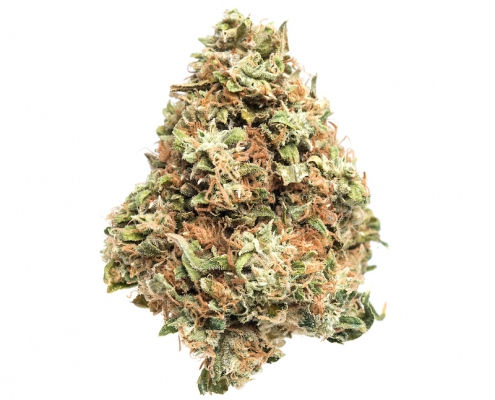 https://essencevegas.com/wp-content/uploads/2019/02/The-Facility_Namaste.jpg
800
800
[email protected]
https://essencevegas.com/wp-content/uploads/2021/02/Essence-Cannabis-Dispensary-Logo.png
[email protected]2019-02-18 16:41:562020-09-08 07:16:23Reina – GG #4
https://essencevegas.com/wp-content/uploads/2019/02/The-Facility_Namaste.jpg
800
800
[email protected]
https://essencevegas.com/wp-content/uploads/2021/02/Essence-Cannabis-Dispensary-Logo.png
[email protected]2019-02-18 16:41:562020-09-08 07:16:23Reina – GG #4 https://essencevegas.com/wp-content/uploads/2019/02/The-Facility_Namaste.jpg
800
800
[email protected]
https://essencevegas.com/wp-content/uploads/2021/02/Essence-Cannabis-Dispensary-Logo.png
[email protected]2019-02-18 16:48:002021-05-25 02:31:15Reina – Private Reserve OG
https://essencevegas.com/wp-content/uploads/2019/02/The-Facility_Namaste.jpg
800
800
[email protected]
https://essencevegas.com/wp-content/uploads/2021/02/Essence-Cannabis-Dispensary-Logo.png
[email protected]2019-02-18 16:48:002021-05-25 02:31:15Reina – Private Reserve OG https://essencevegas.com/wp-content/uploads/2019/02/The-Facility_Namaste.jpg
800
800
[email protected]
https://essencevegas.com/wp-content/uploads/2021/02/Essence-Cannabis-Dispensary-Logo.png
[email protected]2019-02-18 17:00:312021-03-26 07:09:38Reina – Purple Glue
https://essencevegas.com/wp-content/uploads/2019/02/The-Facility_Namaste.jpg
800
800
[email protected]
https://essencevegas.com/wp-content/uploads/2021/02/Essence-Cannabis-Dispensary-Logo.png
[email protected]2019-02-18 17:00:312021-03-26 07:09:38Reina – Purple Glue https://essencevegas.com/wp-content/uploads/2018/12/Remedy-Island-Sweet-Skunk.jpg
800
800
[email protected]
https://essencevegas.com/wp-content/uploads/2021/02/Essence-Cannabis-Dispensary-Logo.png
[email protected]2018-12-17 16:13:352021-03-26 04:45:53Remedy – Island Sweet Skunk
https://essencevegas.com/wp-content/uploads/2018/12/Remedy-Island-Sweet-Skunk.jpg
800
800
[email protected]
https://essencevegas.com/wp-content/uploads/2021/02/Essence-Cannabis-Dispensary-Logo.png
[email protected]2018-12-17 16:13:352021-03-26 04:45:53Remedy – Island Sweet Skunk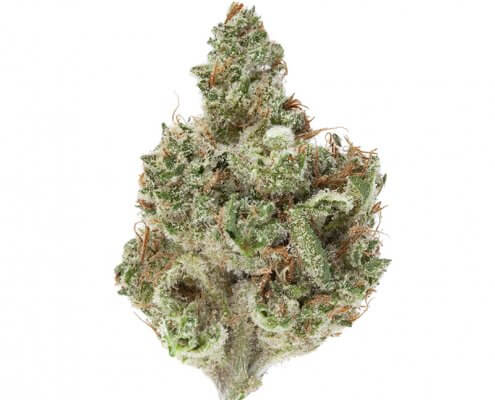 https://essencevegas.com/wp-content/uploads/2018/12/Remedy-Outer-Space.jpg
800
800
[email protected]
https://essencevegas.com/wp-content/uploads/2021/02/Essence-Cannabis-Dispensary-Logo.png
[email protected]2018-12-18 09:01:232021-05-25 02:51:37Remedy – Outer Space
https://essencevegas.com/wp-content/uploads/2018/12/Remedy-Outer-Space.jpg
800
800
[email protected]
https://essencevegas.com/wp-content/uploads/2021/02/Essence-Cannabis-Dispensary-Logo.png
[email protected]2018-12-18 09:01:232021-05-25 02:51:37Remedy – Outer Space https://essencevegas.com/wp-content/uploads/2018/10/Remedy-21-Extra-Strength-Capsules.jpg
800
800
[email protected]
https://essencevegas.com/wp-content/uploads/2021/02/Essence-Cannabis-Dispensary-Logo.png
[email protected]2018-10-15 12:22:492020-09-08 15:43:58Remedy – 2:1 Extra Strength Capsules
https://essencevegas.com/wp-content/uploads/2018/10/Remedy-21-Extra-Strength-Capsules.jpg
800
800
[email protected]
https://essencevegas.com/wp-content/uploads/2021/02/Essence-Cannabis-Dispensary-Logo.png
[email protected]2018-10-15 12:22:492020-09-08 15:43:58Remedy – 2:1 Extra Strength Capsules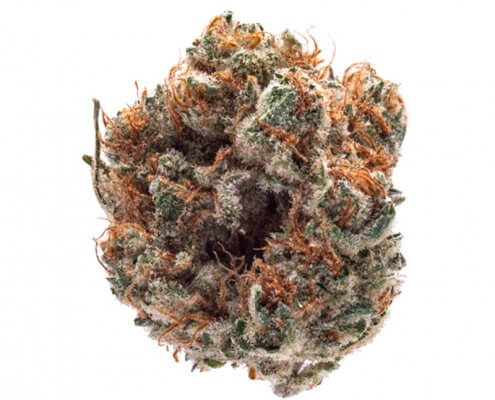 https://essencevegas.com/wp-content/uploads/2018/12/Remedy-Bio-Diesel.jpg
800
800
[email protected]
https://essencevegas.com/wp-content/uploads/2021/02/Essence-Cannabis-Dispensary-Logo.png
[email protected]2018-12-11 16:26:072021-05-25 02:33:49Remedy – Bio-Diesel
https://essencevegas.com/wp-content/uploads/2018/12/Remedy-Bio-Diesel.jpg
800
800
[email protected]
https://essencevegas.com/wp-content/uploads/2021/02/Essence-Cannabis-Dispensary-Logo.png
[email protected]2018-12-11 16:26:072021-05-25 02:33:49Remedy – Bio-Diesel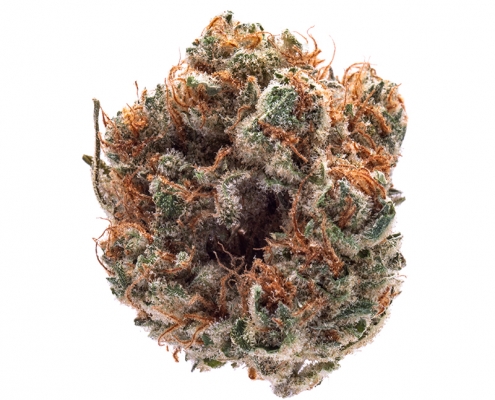 https://essencevegas.com/wp-content/uploads/2018/12/Desert-Grown-Farms-Bio-Jesus.jpg
800
800
[email protected]
https://essencevegas.com/wp-content/uploads/2021/02/Essence-Cannabis-Dispensary-Logo.png
[email protected]2018-12-11 15:19:092021-05-18 12:51:21Remedy – Bio-Jesus
https://essencevegas.com/wp-content/uploads/2018/12/Desert-Grown-Farms-Bio-Jesus.jpg
800
800
[email protected]
https://essencevegas.com/wp-content/uploads/2021/02/Essence-Cannabis-Dispensary-Logo.png
[email protected]2018-12-11 15:19:092021-05-18 12:51:21Remedy – Bio-Jesus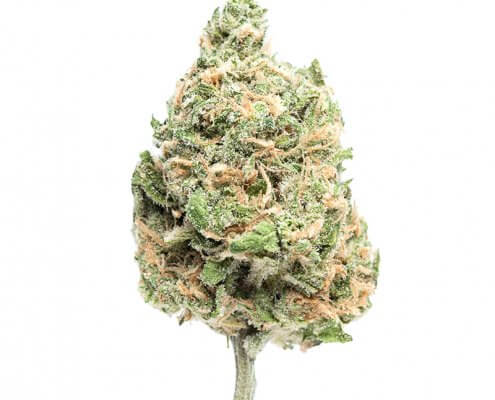 https://essencevegas.com/wp-content/uploads/2018/12/Remedy-Blue-Dream.jpg
800
800
[email protected]
https://essencevegas.com/wp-content/uploads/2021/02/Essence-Cannabis-Dispensary-Logo.png
[email protected]2018-12-14 15:58:572021-03-26 04:47:14Remedy – Blue Dream
https://essencevegas.com/wp-content/uploads/2018/12/Remedy-Blue-Dream.jpg
800
800
[email protected]
https://essencevegas.com/wp-content/uploads/2021/02/Essence-Cannabis-Dispensary-Logo.png
[email protected]2018-12-14 15:58:572021-03-26 04:47:14Remedy – Blue Dream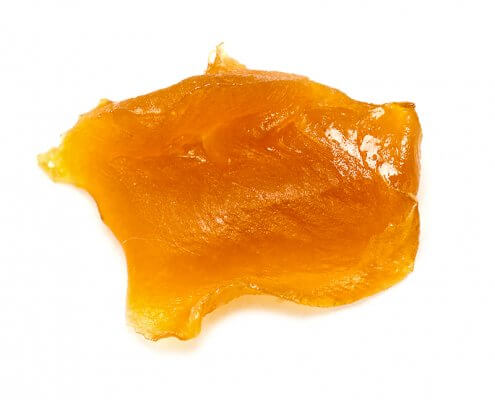 https://essencevegas.com/wp-content/uploads/2018/08/Remedy-Clemon-Head-Kush-Live-Resin-Sauce.jpg
800
800
[email protected]
https://essencevegas.com/wp-content/uploads/2021/02/Essence-Cannabis-Dispensary-Logo.png
[email protected]2018-08-08 11:54:532021-06-03 07:04:11Remedy – Clemon Head Kush Live Resin Sauce
https://essencevegas.com/wp-content/uploads/2018/08/Remedy-Clemon-Head-Kush-Live-Resin-Sauce.jpg
800
800
[email protected]
https://essencevegas.com/wp-content/uploads/2021/02/Essence-Cannabis-Dispensary-Logo.png
[email protected]2018-08-08 11:54:532021-06-03 07:04:11Remedy – Clemon Head Kush Live Resin Sauce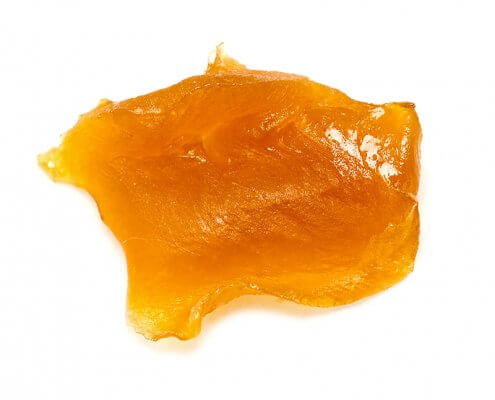 https://essencevegas.com/wp-content/uploads/2018/08/TerpX-Clemon-Head-Kush-Sauce.jpg
800
800
[email protected]
https://essencevegas.com/wp-content/uploads/2021/02/Essence-Cannabis-Dispensary-Logo.png
[email protected]2018-08-07 15:30:182021-06-03 07:38:01Remedy – Clemon Head Kush Sauce
https://essencevegas.com/wp-content/uploads/2018/08/TerpX-Clemon-Head-Kush-Sauce.jpg
800
800
[email protected]
https://essencevegas.com/wp-content/uploads/2021/02/Essence-Cannabis-Dispensary-Logo.png
[email protected]2018-08-07 15:30:182021-06-03 07:38:01Remedy – Clemon Head Kush Sauce https://essencevegas.com/wp-content/uploads/2018/08/Remedy-Dead-Space-Live-Resin-Sugar.jpg
800
800
[email protected]
https://essencevegas.com/wp-content/uploads/2021/02/Essence-Cannabis-Dispensary-Logo.png
[email protected]2018-08-08 16:28:332021-06-03 07:06:12Remedy – Dead Space Live Resin Sugar
https://essencevegas.com/wp-content/uploads/2018/08/Remedy-Dead-Space-Live-Resin-Sugar.jpg
800
800
[email protected]
https://essencevegas.com/wp-content/uploads/2021/02/Essence-Cannabis-Dispensary-Logo.png
[email protected]2018-08-08 16:28:332021-06-03 07:06:12Remedy – Dead Space Live Resin Sugar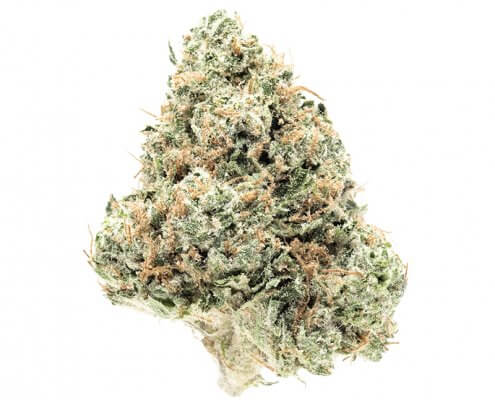 https://essencevegas.com/wp-content/uploads/2018/07/Remedy-Deadhead-OG.jpg
800
800
[email protected]
https://essencevegas.com/wp-content/uploads/2021/02/Essence-Cannabis-Dispensary-Logo.png
[email protected]2018-07-24 16:09:242021-05-20 05:13:04Remedy – Deadhead OG
https://essencevegas.com/wp-content/uploads/2018/07/Remedy-Deadhead-OG.jpg
800
800
[email protected]
https://essencevegas.com/wp-content/uploads/2021/02/Essence-Cannabis-Dispensary-Logo.png
[email protected]2018-07-24 16:09:242021-05-20 05:13:04Remedy – Deadhead OG https://essencevegas.com/wp-content/uploads/2018/07/Remedy-Dirks-OG.jpg
800
800
[email protected]
https://essencevegas.com/wp-content/uploads/2021/02/Essence-Cannabis-Dispensary-Logo.png
[email protected]2018-07-24 16:24:322021-03-26 08:14:18Remedy – Dirk’s OG
https://essencevegas.com/wp-content/uploads/2018/07/Remedy-Dirks-OG.jpg
800
800
[email protected]
https://essencevegas.com/wp-content/uploads/2021/02/Essence-Cannabis-Dispensary-Logo.png
[email protected]2018-07-24 16:24:322021-03-26 08:14:18Remedy – Dirk’s OG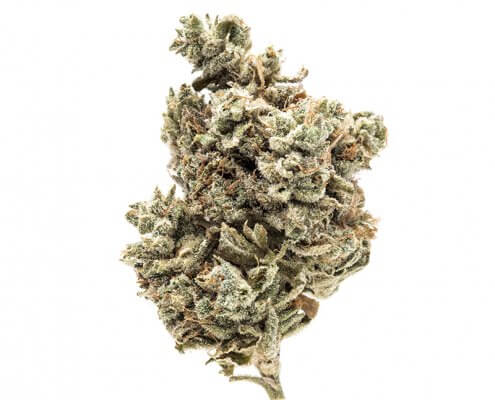 https://essencevegas.com/wp-content/uploads/2018/12/Remedy-Gorilla-Glue-4.jpg
800
800
[email protected]
https://essencevegas.com/wp-content/uploads/2021/02/Essence-Cannabis-Dispensary-Logo.png
[email protected]2018-12-17 09:14:492021-05-25 02:45:14Remedy – GG #4
https://essencevegas.com/wp-content/uploads/2018/12/Remedy-Gorilla-Glue-4.jpg
800
800
[email protected]
https://essencevegas.com/wp-content/uploads/2021/02/Essence-Cannabis-Dispensary-Logo.png
[email protected]2018-12-17 09:14:492021-05-25 02:45:14Remedy – GG #4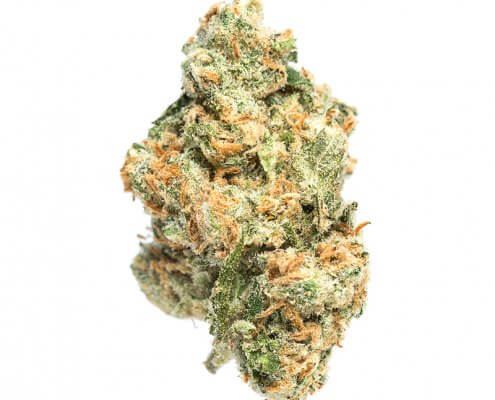 https://essencevegas.com/wp-content/uploads/2018/07/Remedy-Jilly-Bean.jpg
800
800
[email protected]
https://essencevegas.com/wp-content/uploads/2021/02/Essence-Cannabis-Dispensary-Logo.png
[email protected]2018-07-24 16:47:482021-05-20 05:30:20Remedy – Jilly Bean
https://essencevegas.com/wp-content/uploads/2018/07/Remedy-Jilly-Bean.jpg
800
800
[email protected]
https://essencevegas.com/wp-content/uploads/2021/02/Essence-Cannabis-Dispensary-Logo.png
[email protected]2018-07-24 16:47:482021-05-20 05:30:20Remedy – Jilly Bean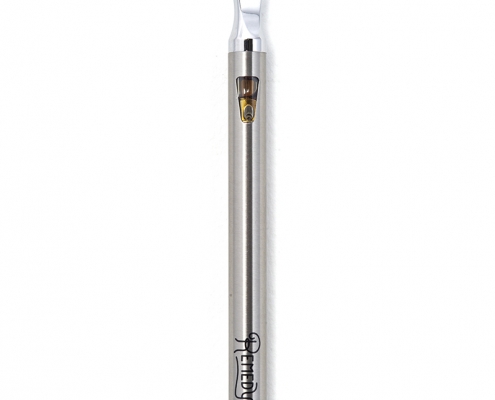 https://essencevegas.com/wp-content/uploads/2018/08/Remedy-Mixed-Berry-Disposable-Vape-Pen.jpg
800
800
[email protected]
https://essencevegas.com/wp-content/uploads/2021/02/Essence-Cannabis-Dispensary-Logo.png
[email protected]2018-08-31 13:42:002020-09-08 16:25:48Remedy – Mixed Berry Disposable Vape Pen
https://essencevegas.com/wp-content/uploads/2018/08/Remedy-Mixed-Berry-Disposable-Vape-Pen.jpg
800
800
[email protected]
https://essencevegas.com/wp-content/uploads/2021/02/Essence-Cannabis-Dispensary-Logo.png
[email protected]2018-08-31 13:42:002020-09-08 16:25:48Remedy – Mixed Berry Disposable Vape Pen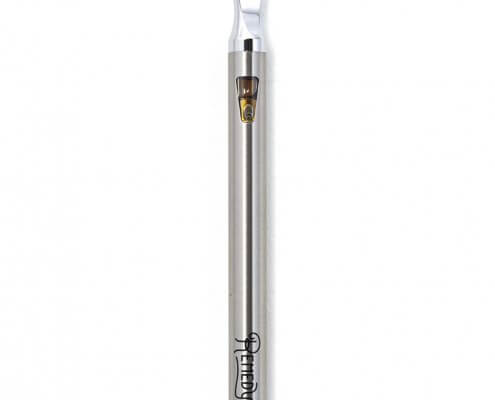 https://essencevegas.com/wp-content/uploads/2018/08/Remedy-Tangerine-Disposable-Vape-Pen.jpg
800
800
[email protected]
https://essencevegas.com/wp-content/uploads/2021/02/Essence-Cannabis-Dispensary-Logo.png
[email protected]2018-08-31 11:31:262021-06-25 05:33:27Remedy – Tangerine Disposable Vape Pen
https://essencevegas.com/wp-content/uploads/2018/08/Remedy-Tangerine-Disposable-Vape-Pen.jpg
800
800
[email protected]
https://essencevegas.com/wp-content/uploads/2021/02/Essence-Cannabis-Dispensary-Logo.png
[email protected]2018-08-31 11:31:262021-06-25 05:33:27Remedy – Tangerine Disposable Vape Pen https://essencevegas.com/wp-content/uploads/2019/05/Rove_Ape_disposable.jpg
800
800
[email protected]
https://essencevegas.com/wp-content/uploads/2021/02/Essence-Cannabis-Dispensary-Logo.png
[email protected]2019-05-02 11:47:022020-09-08 16:04:19Rove – Ape Disposable Vape Pen
https://essencevegas.com/wp-content/uploads/2019/05/Rove_Ape_disposable.jpg
800
800
[email protected]
https://essencevegas.com/wp-content/uploads/2021/02/Essence-Cannabis-Dispensary-Logo.png
[email protected]2019-05-02 11:47:022020-09-08 16:04:19Rove – Ape Disposable Vape Pen https://essencevegas.com/wp-content/uploads/2019/03/Rove_CiderHybrid.jpg
800
800
[email protected]
https://essencevegas.com/wp-content/uploads/2021/02/Essence-Cannabis-Dispensary-Logo.png
[email protected]2019-03-04 08:46:182020-09-08 15:41:33ROVE – Cider Cartridge
https://essencevegas.com/wp-content/uploads/2019/03/Rove_CiderHybrid.jpg
800
800
[email protected]
https://essencevegas.com/wp-content/uploads/2021/02/Essence-Cannabis-Dispensary-Logo.png
[email protected]2019-03-04 08:46:182020-09-08 15:41:33ROVE – Cider Cartridge https://essencevegas.com/wp-content/uploads/2019/04/Rove_Cookies_Cartridge.jpg
800
800
[email protected]
https://essencevegas.com/wp-content/uploads/2021/02/Essence-Cannabis-Dispensary-Logo.png
[email protected]2019-04-30 12:11:022021-06-03 07:07:45Rove – Cookies Cartridge
https://essencevegas.com/wp-content/uploads/2019/04/Rove_Cookies_Cartridge.jpg
800
800
[email protected]
https://essencevegas.com/wp-content/uploads/2021/02/Essence-Cannabis-Dispensary-Logo.png
[email protected]2019-04-30 12:11:022021-06-03 07:07:45Rove – Cookies Cartridge https://essencevegas.com/wp-content/uploads/2018/08/Rove-OG-Cartridge.jpg
800
800
[email protected]
https://essencevegas.com/wp-content/uploads/2021/02/Essence-Cannabis-Dispensary-Logo.png
[email protected]2018-08-31 14:18:122021-06-25 05:36:36Rove – OG Cartridge
https://essencevegas.com/wp-content/uploads/2018/08/Rove-OG-Cartridge.jpg
800
800
[email protected]
https://essencevegas.com/wp-content/uploads/2021/02/Essence-Cannabis-Dispensary-Logo.png
[email protected]2018-08-31 14:18:122021-06-25 05:36:36Rove – OG Cartridge https://essencevegas.com/wp-content/uploads/2018/12/Rove-OG-Cartridge.jpg
800
800
[email protected]
https://essencevegas.com/wp-content/uploads/2021/02/Essence-Cannabis-Dispensary-Logo.png
[email protected]2018-12-27 16:34:252021-06-25 05:35:19Rove – OG Cartridge
https://essencevegas.com/wp-content/uploads/2018/12/Rove-OG-Cartridge.jpg
800
800
[email protected]
https://essencevegas.com/wp-content/uploads/2021/02/Essence-Cannabis-Dispensary-Logo.png
[email protected]2018-12-27 16:34:252021-06-25 05:35:19Rove – OG Cartridge https://essencevegas.com/wp-content/uploads/2018/08/Rove-Skywalker-Cartridge.jpg
800
800
[email protected]
https://essencevegas.com/wp-content/uploads/2021/02/Essence-Cannabis-Dispensary-Logo.png
[email protected]2018-08-27 13:39:582020-09-14 02:01:16Rove – Skywalker Cartridge
https://essencevegas.com/wp-content/uploads/2018/08/Rove-Skywalker-Cartridge.jpg
800
800
[email protected]
https://essencevegas.com/wp-content/uploads/2021/02/Essence-Cannabis-Dispensary-Logo.png
[email protected]2018-08-27 13:39:582020-09-14 02:01:16Rove – Skywalker Cartridge https://essencevegas.com/wp-content/uploads/2019/03/Rove_Indica_disposable-1.jpg
800
800
[email protected]
https://essencevegas.com/wp-content/uploads/2021/02/Essence-Cannabis-Dispensary-Logo.png
[email protected]2019-03-04 08:54:442021-06-25 05:37:31Rove – Waui Disposable Pen
https://essencevegas.com/wp-content/uploads/2019/03/Rove_Indica_disposable-1.jpg
800
800
[email protected]
https://essencevegas.com/wp-content/uploads/2021/02/Essence-Cannabis-Dispensary-Logo.png
[email protected]2019-03-04 08:54:442021-06-25 05:37:31Rove – Waui Disposable Pen https://essencevegas.com/wp-content/uploads/2018/10/Scarlet-Oil-Works-Pineapple-DIMES-Gummies.jpg
800
800
[email protected]
https://essencevegas.com/wp-content/uploads/2021/02/Essence-Cannabis-Dispensary-Logo.png
[email protected]2018-10-15 12:33:572021-06-09 10:51:39Scarlet Oil Works – Pineapple DIMES Gummies
https://essencevegas.com/wp-content/uploads/2018/10/Scarlet-Oil-Works-Pineapple-DIMES-Gummies.jpg
800
800
[email protected]
https://essencevegas.com/wp-content/uploads/2021/02/Essence-Cannabis-Dispensary-Logo.png
[email protected]2018-10-15 12:33:572021-06-09 10:51:39Scarlet Oil Works – Pineapple DIMES Gummies https://essencevegas.com/wp-content/uploads/2018/08/Scarlet-Oilworks-Blueberry-Muffins-Syringe.jpg
800
800
[email protected]
https://essencevegas.com/wp-content/uploads/2021/02/Essence-Cannabis-Dispensary-Logo.png
[email protected]2018-08-06 10:36:102020-09-08 14:17:59Scarlet Oilworks – Blueberry Muffins Syringe
https://essencevegas.com/wp-content/uploads/2018/08/Scarlet-Oilworks-Blueberry-Muffins-Syringe.jpg
800
800
[email protected]
https://essencevegas.com/wp-content/uploads/2021/02/Essence-Cannabis-Dispensary-Logo.png
[email protected]2018-08-06 10:36:102020-09-08 14:17:59Scarlet Oilworks – Blueberry Muffins Syringe https://essencevegas.com/wp-content/uploads/2018/08/Scarlet-Oilworks-Fruit-Punch-Sauce.jpg
800
800
[email protected]
https://essencevegas.com/wp-content/uploads/2021/02/Essence-Cannabis-Dispensary-Logo.png
[email protected]2018-08-03 12:35:522021-06-03 07:11:34Scarlet Oilworks – Fruit Punch Sauce
https://essencevegas.com/wp-content/uploads/2018/08/Scarlet-Oilworks-Fruit-Punch-Sauce.jpg
800
800
[email protected]
https://essencevegas.com/wp-content/uploads/2021/02/Essence-Cannabis-Dispensary-Logo.png
[email protected]2018-08-03 12:35:522021-06-03 07:11:34Scarlet Oilworks – Fruit Punch Sauce https://essencevegas.com/wp-content/uploads/2018/08/Scarlet-Oilworks-Fruit-Punch-Syringe.jpg
800
800
[email protected]
https://essencevegas.com/wp-content/uploads/2021/02/Essence-Cannabis-Dispensary-Logo.png
[email protected]2018-08-08 15:13:502020-09-08 14:29:47Scarlet Oilworks – Fruit Punch Syringe
https://essencevegas.com/wp-content/uploads/2018/08/Scarlet-Oilworks-Fruit-Punch-Syringe.jpg
800
800
[email protected]
https://essencevegas.com/wp-content/uploads/2021/02/Essence-Cannabis-Dispensary-Logo.png
[email protected]2018-08-08 15:13:502020-09-08 14:29:47Scarlet Oilworks – Fruit Punch Syringe https://essencevegas.com/wp-content/uploads/2018/08/Scarlet-Oilworks-Green-Apple-Syringe.jpg
800
800
[email protected]
https://essencevegas.com/wp-content/uploads/2021/02/Essence-Cannabis-Dispensary-Logo.png
[email protected]2018-08-07 16:57:012020-09-08 15:42:39Scarlet Oilworks – Green Apple Syringe
https://essencevegas.com/wp-content/uploads/2018/08/Scarlet-Oilworks-Green-Apple-Syringe.jpg
800
800
[email protected]
https://essencevegas.com/wp-content/uploads/2021/02/Essence-Cannabis-Dispensary-Logo.png
[email protected]2018-08-07 16:57:012020-09-08 15:42:39Scarlet Oilworks – Green Apple Syringe https://essencevegas.com/wp-content/uploads/2018/10/Scarlet-Oilworks_Dimes-Orange.jpg
900
900
[email protected]
https://essencevegas.com/wp-content/uploads/2021/02/Essence-Cannabis-Dispensary-Logo.png
[email protected]2018-10-05 16:52:222021-06-09 10:53:33Scarlet Oilworks – Orange DIMES Gummies
https://essencevegas.com/wp-content/uploads/2018/10/Scarlet-Oilworks_Dimes-Orange.jpg
900
900
[email protected]
https://essencevegas.com/wp-content/uploads/2021/02/Essence-Cannabis-Dispensary-Logo.png
[email protected]2018-10-05 16:52:222021-06-09 10:53:33Scarlet Oilworks – Orange DIMES Gummies https://essencevegas.com/wp-content/uploads/2018/08/Scarlet-Oilworks-Strawberry-Banana-Sauce.jpg
800
800
[email protected]
https://essencevegas.com/wp-content/uploads/2021/02/Essence-Cannabis-Dispensary-Logo.png
[email protected]2018-08-03 15:17:352021-06-03 07:13:21Scarlet Oilworks – Strawberry Banana Sauce
https://essencevegas.com/wp-content/uploads/2018/08/Scarlet-Oilworks-Strawberry-Banana-Sauce.jpg
800
800
[email protected]
https://essencevegas.com/wp-content/uploads/2021/02/Essence-Cannabis-Dispensary-Logo.png
[email protected]2018-08-03 15:17:352021-06-03 07:13:21Scarlet Oilworks – Strawberry Banana Sauce https://essencevegas.com/wp-content/uploads/2018/08/Scarlet-Oilworks-Strawberry-Banana-Syringe.jpg
800
800
[email protected]
https://essencevegas.com/wp-content/uploads/2021/02/Essence-Cannabis-Dispensary-Logo.png
[email protected]2018-08-08 09:33:382020-09-08 06:33:10Scarlet Oilworks – Strawberry Banana Syringe
https://essencevegas.com/wp-content/uploads/2018/08/Scarlet-Oilworks-Strawberry-Banana-Syringe.jpg
800
800
[email protected]
https://essencevegas.com/wp-content/uploads/2021/02/Essence-Cannabis-Dispensary-Logo.png
[email protected]2018-08-08 09:33:382020-09-08 06:33:10Scarlet Oilworks – Strawberry Banana Syringe https://essencevegas.com/wp-content/uploads/2019/03/Select-Elite-Weekender-Generic.jpg
800
800
[email protected]
https://essencevegas.com/wp-content/uploads/2021/02/Essence-Cannabis-Dispensary-Logo.png
[email protected]2019-03-04 09:00:572020-10-21 07:53:34Select – Afghani Disposable Pen
https://essencevegas.com/wp-content/uploads/2019/03/Select-Elite-Weekender-Generic.jpg
800
800
[email protected]
https://essencevegas.com/wp-content/uploads/2021/02/Essence-Cannabis-Dispensary-Logo.png
[email protected]2019-03-04 09:00:572020-10-21 07:53:34Select – Afghani Disposable Pen https://essencevegas.com/wp-content/uploads/2019/03/Select-Elite-Weekender-Generic-1.jpg
800
800
[email protected]
https://essencevegas.com/wp-content/uploads/2021/02/Essence-Cannabis-Dispensary-Logo.png
[email protected]2019-03-04 09:08:352021-06-25 05:40:16Select – AK-47 Disposable Pen
https://essencevegas.com/wp-content/uploads/2019/03/Select-Elite-Weekender-Generic-1.jpg
800
800
[email protected]
https://essencevegas.com/wp-content/uploads/2021/02/Essence-Cannabis-Dispensary-Logo.png
[email protected]2019-03-04 09:08:352021-06-25 05:40:16Select – AK-47 Disposable Pen https://essencevegas.com/wp-content/uploads/2019/03/Select-Elite-Weekender-Generic-2.jpg
800
800
[email protected]
https://essencevegas.com/wp-content/uploads/2021/02/Essence-Cannabis-Dispensary-Logo.png
[email protected]2019-03-04 10:14:062021-06-25 05:41:25Select – Durban Poison Disposable Pen
https://essencevegas.com/wp-content/uploads/2019/03/Select-Elite-Weekender-Generic-2.jpg
800
800
[email protected]
https://essencevegas.com/wp-content/uploads/2021/02/Essence-Cannabis-Dispensary-Logo.png
[email protected]2019-03-04 10:14:062021-06-25 05:41:25Select – Durban Poison Disposable Pen https://essencevegas.com/wp-content/uploads/2019/03/Select-Elite-Weekender-Generic-3.jpg
800
800
[email protected]
https://essencevegas.com/wp-content/uploads/2021/02/Essence-Cannabis-Dispensary-Logo.png
[email protected]2019-03-04 10:21:122021-06-25 05:50:45Select – OG Cheese Disposable Pen
https://essencevegas.com/wp-content/uploads/2019/03/Select-Elite-Weekender-Generic-3.jpg
800
800
[email protected]
https://essencevegas.com/wp-content/uploads/2021/02/Essence-Cannabis-Dispensary-Logo.png
[email protected]2019-03-04 10:21:122021-06-25 05:50:45Select – OG Cheese Disposable Pen https://essencevegas.com/wp-content/uploads/2019/03/Select-Elite-Weekender-Generic-4.jpg
800
800
[email protected]
https://essencevegas.com/wp-content/uploads/2021/02/Essence-Cannabis-Dispensary-Logo.png
[email protected]2019-03-04 10:28:282021-06-25 05:57:14Select – OGiesel Disposable Pen
https://essencevegas.com/wp-content/uploads/2019/03/Select-Elite-Weekender-Generic-4.jpg
800
800
[email protected]
https://essencevegas.com/wp-content/uploads/2021/02/Essence-Cannabis-Dispensary-Logo.png
[email protected]2019-03-04 10:28:282021-06-25 05:57:14Select – OGiesel Disposable Pen https://essencevegas.com/wp-content/uploads/2019/03/Select-Elite-Weekender-Generic-5.jpg
800
800
[email protected]
https://essencevegas.com/wp-content/uploads/2021/02/Essence-Cannabis-Dispensary-Logo.png
[email protected]2019-03-04 10:36:102021-06-25 05:59:39Select – Royal Chem Disposable Pen
https://essencevegas.com/wp-content/uploads/2019/03/Select-Elite-Weekender-Generic-5.jpg
800
800
[email protected]
https://essencevegas.com/wp-content/uploads/2021/02/Essence-Cannabis-Dispensary-Logo.png
[email protected]2019-03-04 10:36:102021-06-25 05:59:39Select – Royal Chem Disposable Pen https://essencevegas.com/wp-content/uploads/2019/03/Select-Elite-Weekender-Generic-6.jpg
800
800
[email protected]
https://essencevegas.com/wp-content/uploads/2021/02/Essence-Cannabis-Dispensary-Logo.png
[email protected]2019-03-04 10:43:522021-06-25 06:00:46Select – Royal Orange Cartridge
https://essencevegas.com/wp-content/uploads/2019/03/Select-Elite-Weekender-Generic-6.jpg
800
800
[email protected]
https://essencevegas.com/wp-content/uploads/2021/02/Essence-Cannabis-Dispensary-Logo.png
[email protected]2019-03-04 10:43:522021-06-25 06:00:46Select – Royal Orange Cartridge https://essencevegas.com/wp-content/uploads/2019/03/SelectCBD-Focus-Dispsable-Pen.jpg
800
800
[email protected]
https://essencevegas.com/wp-content/uploads/2021/02/Essence-Cannabis-Dispensary-Logo.png
[email protected]2019-03-06 16:33:382021-06-25 06:02:03Select – Spearmint CBD Disposable Pen
https://essencevegas.com/wp-content/uploads/2019/03/SelectCBD-Focus-Dispsable-Pen.jpg
800
800
[email protected]
https://essencevegas.com/wp-content/uploads/2021/02/Essence-Cannabis-Dispensary-Logo.png
[email protected]2019-03-06 16:33:382021-06-25 06:02:03Select – Spearmint CBD Disposable Pen https://essencevegas.com/wp-content/uploads/2018/10/Select-Lemon-Ginger-CBD-Drops.jpg
800
800
[email protected]
https://essencevegas.com/wp-content/uploads/2021/02/Essence-Cannabis-Dispensary-Logo.png
[email protected]2018-10-15 13:49:322019-04-01 13:56:42Select CBD – Lemon Ginger CBD Drops
https://essencevegas.com/wp-content/uploads/2018/10/Select-Lemon-Ginger-CBD-Drops.jpg
800
800
[email protected]
https://essencevegas.com/wp-content/uploads/2021/02/Essence-Cannabis-Dispensary-Logo.png
[email protected]2018-10-15 13:49:322019-04-01 13:56:42Select CBD – Lemon Ginger CBD Drops https://essencevegas.com/wp-content/uploads/2018/10/Select-Peppermint-CBD-Drops.jpg
800
800
[email protected]
https://essencevegas.com/wp-content/uploads/2021/02/Essence-Cannabis-Dispensary-Logo.png
[email protected]2018-10-15 14:23:182019-04-01 13:56:31Select CBD – Peppermint CBD Drops
https://essencevegas.com/wp-content/uploads/2018/10/Select-Peppermint-CBD-Drops.jpg
800
800
[email protected]
https://essencevegas.com/wp-content/uploads/2021/02/Essence-Cannabis-Dispensary-Logo.png
[email protected]2018-10-15 14:23:182019-04-01 13:56:31Select CBD – Peppermint CBD Drops https://essencevegas.com/wp-content/uploads/2019/04/SelectCBD_Unflavored-Drops-1.jpg
800
800
[email protected]
https://essencevegas.com/wp-content/uploads/2021/02/Essence-Cannabis-Dispensary-Logo.png
[email protected]2019-04-29 17:15:172021-06-25 02:02:48Select CBD – Unflavored CBD Tincture
https://essencevegas.com/wp-content/uploads/2019/04/SelectCBD_Unflavored-Drops-1.jpg
800
800
[email protected]
https://essencevegas.com/wp-content/uploads/2021/02/Essence-Cannabis-Dispensary-Logo.png
[email protected]2019-04-29 17:15:172021-06-25 02:02:48Select CBD – Unflavored CBD Tincture https://essencevegas.com/wp-content/uploads/2018/08/Select-Elite-Critical-CBD-Vape-Cartridge.jpg
800
800
[email protected]
https://essencevegas.com/wp-content/uploads/2021/02/Essence-Cannabis-Dispensary-Logo.png
[email protected]2018-08-22 12:01:042021-06-25 05:43:41Select Elite – Critical CBD Vape Cartridge
https://essencevegas.com/wp-content/uploads/2018/08/Select-Elite-Critical-CBD-Vape-Cartridge.jpg
800
800
[email protected]
https://essencevegas.com/wp-content/uploads/2021/02/Essence-Cannabis-Dispensary-Logo.png
[email protected]2018-08-22 12:01:042021-06-25 05:43:41Select Elite – Critical CBD Vape Cartridge https://essencevegas.com/wp-content/uploads/2018/08/Select-Elite-Do-Si-Dos-Cartridge.jpg
800
800
[email protected]
https://essencevegas.com/wp-content/uploads/2021/02/Essence-Cannabis-Dispensary-Logo.png
[email protected]2018-08-28 10:29:072021-06-25 05:44:47Select Elite – Do-Si-Dos Cartridge
https://essencevegas.com/wp-content/uploads/2018/08/Select-Elite-Do-Si-Dos-Cartridge.jpg
800
800
[email protected]
https://essencevegas.com/wp-content/uploads/2021/02/Essence-Cannabis-Dispensary-Logo.png
[email protected]2018-08-28 10:29:072021-06-25 05:44:47Select Elite – Do-Si-Dos Cartridge https://essencevegas.com/wp-content/uploads/2018/08/Select-Elite-Durban-Poison-Cartridge.jpg
800
800
[email protected]
https://essencevegas.com/wp-content/uploads/2021/02/Essence-Cannabis-Dispensary-Logo.png
[email protected]2018-08-31 11:45:042020-09-08 00:32:56Select Elite – Durban Poison Cartridge
https://essencevegas.com/wp-content/uploads/2018/08/Select-Elite-Durban-Poison-Cartridge.jpg
800
800
[email protected]
https://essencevegas.com/wp-content/uploads/2021/02/Essence-Cannabis-Dispensary-Logo.png
[email protected]2018-08-31 11:45:042020-09-08 00:32:56Select Elite – Durban Poison Cartridge https://essencevegas.com/wp-content/uploads/2018/08/Select-Elite-Jack-Herer-Cartridge.jpg
800
800
[email protected]
https://essencevegas.com/wp-content/uploads/2021/02/Essence-Cannabis-Dispensary-Logo.png
[email protected]2018-08-28 10:05:082021-06-25 05:46:11Select Elite – Jack Herer Cartridge
https://essencevegas.com/wp-content/uploads/2018/08/Select-Elite-Jack-Herer-Cartridge.jpg
800
800
[email protected]
https://essencevegas.com/wp-content/uploads/2021/02/Essence-Cannabis-Dispensary-Logo.png
[email protected]2018-08-28 10:05:082021-06-25 05:46:11Select Elite – Jack Herer Cartridge https://essencevegas.com/wp-content/uploads/2018/08/Select-Elite-True-OG-Cartridge.jpg
800
800
[email protected]
https://essencevegas.com/wp-content/uploads/2021/02/Essence-Cannabis-Dispensary-Logo.png
[email protected]2018-08-27 16:22:502021-06-25 05:47:17Select Elite – True OG Cartridge
https://essencevegas.com/wp-content/uploads/2018/08/Select-Elite-True-OG-Cartridge.jpg
800
800
[email protected]
https://essencevegas.com/wp-content/uploads/2021/02/Essence-Cannabis-Dispensary-Logo.png
[email protected]2018-08-27 16:22:502021-06-25 05:47:17Select Elite – True OG Cartridge https://essencevegas.com/wp-content/uploads/2018/08/Select-Elite-Zkittlez-Cartridge.jpg
800
800
[email protected]
https://essencevegas.com/wp-content/uploads/2021/02/Essence-Cannabis-Dispensary-Logo.png
[email protected]2018-08-27 14:51:332021-06-25 05:48:23Select Elite – Zkittlez Cartridge
https://essencevegas.com/wp-content/uploads/2018/08/Select-Elite-Zkittlez-Cartridge.jpg
800
800
[email protected]
https://essencevegas.com/wp-content/uploads/2021/02/Essence-Cannabis-Dispensary-Logo.png
[email protected]2018-08-27 14:51:332021-06-25 05:48:23Select Elite – Zkittlez Cartridge https://essencevegas.com/wp-content/uploads/2019/02/The-Facility_Namaste.jpg
800
800
[email protected]
https://essencevegas.com/wp-content/uploads/2021/02/Essence-Cannabis-Dispensary-Logo.png
[email protected]2019-02-18 17:08:542021-05-25 03:15:22SF – Lamb’s Bread
https://essencevegas.com/wp-content/uploads/2019/02/The-Facility_Namaste.jpg
800
800
[email protected]
https://essencevegas.com/wp-content/uploads/2021/02/Essence-Cannabis-Dispensary-Logo.png
[email protected]2019-02-18 17:08:542021-05-25 03:15:22SF – Lamb’s Bread https://essencevegas.com/wp-content/uploads/2018/06/knowledgebase-default.jpg
400
495
[email protected]
https://essencevegas.com/wp-content/uploads/2021/02/Essence-Cannabis-Dispensary-Logo.png
[email protected]2018-12-19 11:45:032021-05-25 03:19:40Shango – A-Dub
https://essencevegas.com/wp-content/uploads/2018/06/knowledgebase-default.jpg
400
495
[email protected]
https://essencevegas.com/wp-content/uploads/2021/02/Essence-Cannabis-Dispensary-Logo.png
[email protected]2018-12-19 11:45:032021-05-25 03:19:40Shango – A-Dub https://essencevegas.com/wp-content/uploads/2018/06/knowledgebase-default.jpg
400
495
[email protected]
https://essencevegas.com/wp-content/uploads/2021/02/Essence-Cannabis-Dispensary-Logo.png
[email protected]2018-12-19 11:57:052021-05-25 03:29:57Shango – Cheesecake
https://essencevegas.com/wp-content/uploads/2018/06/knowledgebase-default.jpg
400
495
[email protected]
https://essencevegas.com/wp-content/uploads/2021/02/Essence-Cannabis-Dispensary-Logo.png
[email protected]2018-12-19 11:57:052021-05-25 03:29:57Shango – Cheesecake https://essencevegas.com/wp-content/uploads/2018/06/knowledgebase-default.jpg
400
495
[email protected]
https://essencevegas.com/wp-content/uploads/2021/02/Essence-Cannabis-Dispensary-Logo.png
[email protected]2018-12-19 12:04:002021-05-25 03:31:12Shango – Grease Monkey
https://essencevegas.com/wp-content/uploads/2018/06/knowledgebase-default.jpg
400
495
[email protected]
https://essencevegas.com/wp-content/uploads/2021/02/Essence-Cannabis-Dispensary-Logo.png
[email protected]2018-12-19 12:04:002021-05-25 03:31:12Shango – Grease Monkey https://essencevegas.com/wp-content/uploads/2018/06/knowledgebase-default.jpg
400
495
[email protected]
https://essencevegas.com/wp-content/uploads/2021/02/Essence-Cannabis-Dispensary-Logo.png
[email protected]2018-12-19 12:13:472021-05-25 03:32:34Shango – GSC
https://essencevegas.com/wp-content/uploads/2018/06/knowledgebase-default.jpg
400
495
[email protected]
https://essencevegas.com/wp-content/uploads/2021/02/Essence-Cannabis-Dispensary-Logo.png
[email protected]2018-12-19 12:13:472021-05-25 03:32:34Shango – GSC https://essencevegas.com/wp-content/uploads/2018/12/Shango-XJ-13.jpg
800
800
[email protected]
https://essencevegas.com/wp-content/uploads/2021/02/Essence-Cannabis-Dispensary-Logo.png
[email protected]2018-12-19 12:19:582021-03-26 07:40:55Shango – XJ-13
https://essencevegas.com/wp-content/uploads/2018/12/Shango-XJ-13.jpg
800
800
[email protected]
https://essencevegas.com/wp-content/uploads/2021/02/Essence-Cannabis-Dispensary-Logo.png
[email protected]2018-12-19 12:19:582021-03-26 07:40:55Shango – XJ-13 https://essencevegas.com/wp-content/uploads/2019/04/SST_Suppository.jpg
3934
3934
[email protected]
https://essencevegas.com/wp-content/uploads/2021/02/Essence-Cannabis-Dispensary-Logo.png
[email protected]2019-04-30 10:09:152021-06-03 07:21:14Silver State Trading (SST) – Suppository
https://essencevegas.com/wp-content/uploads/2019/04/SST_Suppository.jpg
3934
3934
[email protected]
https://essencevegas.com/wp-content/uploads/2021/02/Essence-Cannabis-Dispensary-Logo.png
[email protected]2019-04-30 10:09:152021-06-03 07:21:14Silver State Trading (SST) – Suppository https://essencevegas.com/wp-content/uploads/2018/08/Silver-State-Trading-Acapulco-Gold-Cartridge.jpg
800
800
[email protected]
https://essencevegas.com/wp-content/uploads/2021/02/Essence-Cannabis-Dispensary-Logo.png
[email protected]2018-08-28 10:36:382021-06-25 06:03:08Silver State Trading – Acapulco Gold Cartridge
https://essencevegas.com/wp-content/uploads/2018/08/Silver-State-Trading-Acapulco-Gold-Cartridge.jpg
800
800
[email protected]
https://essencevegas.com/wp-content/uploads/2021/02/Essence-Cannabis-Dispensary-Logo.png
[email protected]2018-08-28 10:36:382021-06-25 06:03:08Silver State Trading – Acapulco Gold Cartridge https://essencevegas.com/wp-content/uploads/2018/08/Silver-State-Trading-Big-Smooth-Disposable-Vape-Pen.jpg
800
800
[email protected]
https://essencevegas.com/wp-content/uploads/2021/02/Essence-Cannabis-Dispensary-Logo.png
[email protected]2018-08-24 10:45:532021-06-25 06:04:17Silver State Trading – Big Smooth Disposable Vape Pen
https://essencevegas.com/wp-content/uploads/2018/08/Silver-State-Trading-Big-Smooth-Disposable-Vape-Pen.jpg
800
800
[email protected]
https://essencevegas.com/wp-content/uploads/2021/02/Essence-Cannabis-Dispensary-Logo.png
[email protected]2018-08-24 10:45:532021-06-25 06:04:17Silver State Trading – Big Smooth Disposable Vape Pen https://essencevegas.com/wp-content/uploads/2018/08/Silver-State-Trading-Blotter-Cartridge.jpg
800
800
[email protected]
https://essencevegas.com/wp-content/uploads/2021/02/Essence-Cannabis-Dispensary-Logo.png
[email protected]2018-08-27 15:32:322021-06-25 06:07:21Silver State Trading – Blotter Cartridge
https://essencevegas.com/wp-content/uploads/2018/08/Silver-State-Trading-Blotter-Cartridge.jpg
800
800
[email protected]
https://essencevegas.com/wp-content/uploads/2021/02/Essence-Cannabis-Dispensary-Logo.png
[email protected]2018-08-27 15:32:322021-06-25 06:07:21Silver State Trading – Blotter Cartridge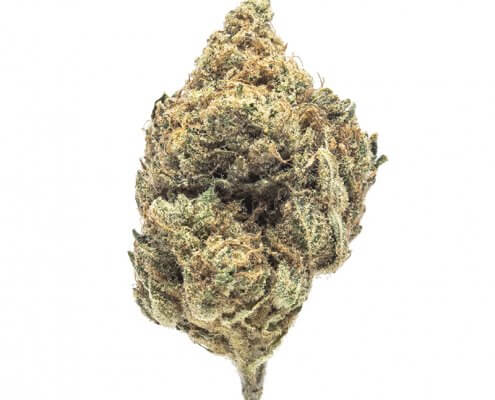 https://essencevegas.com/wp-content/uploads/2018/08/Silver-State-Trading-Chemdawg-91.jpg
800
800
[email protected]
https://essencevegas.com/wp-content/uploads/2021/02/Essence-Cannabis-Dispensary-Logo.png
[email protected]2018-08-07 15:09:232020-09-08 02:19:16Silver State Trading – Chemdawg 91
https://essencevegas.com/wp-content/uploads/2018/08/Silver-State-Trading-Chemdawg-91.jpg
800
800
[email protected]
https://essencevegas.com/wp-content/uploads/2021/02/Essence-Cannabis-Dispensary-Logo.png
[email protected]2018-08-07 15:09:232020-09-08 02:19:16Silver State Trading – Chemdawg 91 https://essencevegas.com/wp-content/uploads/2018/06/knowledgebase-default.jpg
400
495
[email protected]
https://essencevegas.com/wp-content/uploads/2021/02/Essence-Cannabis-Dispensary-Logo.png
[email protected]2018-12-19 16:10:272021-05-25 02:36:06Silver State Trading – Golden Strawberry
https://essencevegas.com/wp-content/uploads/2018/06/knowledgebase-default.jpg
400
495
[email protected]
https://essencevegas.com/wp-content/uploads/2021/02/Essence-Cannabis-Dispensary-Logo.png
[email protected]2018-12-19 16:10:272021-05-25 02:36:06Silver State Trading – Golden Strawberry https://essencevegas.com/wp-content/uploads/2018/08/Silver-State-Trading-Golden-Strawberry-Cartridge.jpg
800
800
[email protected]
https://essencevegas.com/wp-content/uploads/2021/02/Essence-Cannabis-Dispensary-Logo.png
[email protected]2018-08-27 14:21:022020-09-08 03:39:15Silver State Trading – Golden Strawberry Cartridge
https://essencevegas.com/wp-content/uploads/2018/08/Silver-State-Trading-Golden-Strawberry-Cartridge.jpg
800
800
[email protected]
https://essencevegas.com/wp-content/uploads/2021/02/Essence-Cannabis-Dispensary-Logo.png
[email protected]2018-08-27 14:21:022020-09-08 03:39:15Silver State Trading – Golden Strawberry Cartridge https://essencevegas.com/wp-content/uploads/2018/08/Silver-State-Trading-Gorilla-Glue-number-4-Cartridge.jpg
800
800
[email protected]
https://essencevegas.com/wp-content/uploads/2021/02/Essence-Cannabis-Dispensary-Logo.png
[email protected]2018-08-27 16:01:162020-09-08 02:44:36Silver State Trading – Gorilla Glue #4 Cartridge
https://essencevegas.com/wp-content/uploads/2018/08/Silver-State-Trading-Gorilla-Glue-number-4-Cartridge.jpg
800
800
[email protected]
https://essencevegas.com/wp-content/uploads/2021/02/Essence-Cannabis-Dispensary-Logo.png
[email protected]2018-08-27 16:01:162020-09-08 02:44:36Silver State Trading – Gorilla Glue #4 Cartridge https://essencevegas.com/wp-content/uploads/2018/08/Silver-State-Trading-Gorilla-Glue-numver-4-Disposable-Vape-Pen.jpg
800
800
[email protected]
https://essencevegas.com/wp-content/uploads/2021/02/Essence-Cannabis-Dispensary-Logo.png
[email protected]2018-08-17 12:33:542021-06-25 06:08:41Silver State Trading – Gorilla Glue #4 Disposable Vape Pen
https://essencevegas.com/wp-content/uploads/2018/08/Silver-State-Trading-Gorilla-Glue-numver-4-Disposable-Vape-Pen.jpg
800
800
[email protected]
https://essencevegas.com/wp-content/uploads/2021/02/Essence-Cannabis-Dispensary-Logo.png
[email protected]2018-08-17 12:33:542021-06-25 06:08:41Silver State Trading – Gorilla Glue #4 Disposable Vape Pen https://essencevegas.com/wp-content/uploads/2018/06/knowledgebase-default.jpg
400
495
[email protected]
https://essencevegas.com/wp-content/uploads/2021/02/Essence-Cannabis-Dispensary-Logo.png
[email protected]2018-08-02 17:29:532021-06-03 07:14:41Silver State Trading – Honey Bananas
https://essencevegas.com/wp-content/uploads/2018/06/knowledgebase-default.jpg
400
495
[email protected]
https://essencevegas.com/wp-content/uploads/2021/02/Essence-Cannabis-Dispensary-Logo.png
[email protected]2018-08-02 17:29:532021-06-03 07:14:41Silver State Trading – Honey Bananas https://essencevegas.com/wp-content/uploads/2018/10/Dixie-Indica-Trokie.jpg
800
800
[email protected]
https://essencevegas.com/wp-content/uploads/2021/02/Essence-Cannabis-Dispensary-Logo.png
[email protected]2018-10-10 17:22:292020-09-08 03:55:00Silver State Trading – Indica Trokie
https://essencevegas.com/wp-content/uploads/2018/10/Dixie-Indica-Trokie.jpg
800
800
[email protected]
https://essencevegas.com/wp-content/uploads/2021/02/Essence-Cannabis-Dispensary-Logo.png
[email protected]2018-10-10 17:22:292020-09-08 03:55:00Silver State Trading – Indica Trokie https://essencevegas.com/wp-content/uploads/2018/06/knowledgebase-default.jpg
400
495
[email protected]
https://essencevegas.com/wp-content/uploads/2021/02/Essence-Cannabis-Dispensary-Logo.png
[email protected]2018-12-19 16:23:062021-03-26 07:25:40Silver State Trading – LA Affie
https://essencevegas.com/wp-content/uploads/2018/06/knowledgebase-default.jpg
400
495
[email protected]
https://essencevegas.com/wp-content/uploads/2021/02/Essence-Cannabis-Dispensary-Logo.png
[email protected]2018-12-19 16:23:062021-03-26 07:25:40Silver State Trading – LA Affie https://essencevegas.com/wp-content/uploads/2018/08/Silver-State-Trading-Mint-Chocolate-Chip-Disposable-Vape-Pen.jpg
800
800
[email protected]
https://essencevegas.com/wp-content/uploads/2021/02/Essence-Cannabis-Dispensary-Logo.png
[email protected]2018-08-17 14:10:332020-09-08 14:48:54Silver State Trading – Mint Chocolate Chip Disposable Vape Pen
https://essencevegas.com/wp-content/uploads/2018/08/Silver-State-Trading-Mint-Chocolate-Chip-Disposable-Vape-Pen.jpg
800
800
[email protected]
https://essencevegas.com/wp-content/uploads/2021/02/Essence-Cannabis-Dispensary-Logo.png
[email protected]2018-08-17 14:10:332020-09-08 14:48:54Silver State Trading – Mint Chocolate Chip Disposable Vape Pen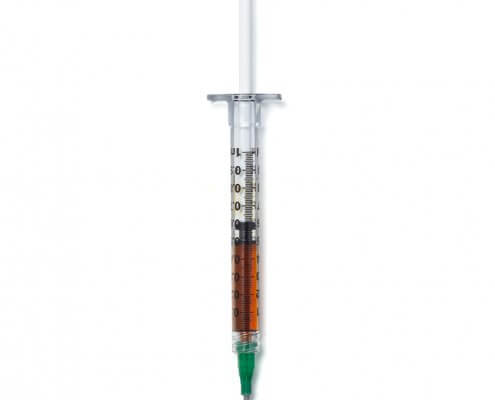 https://essencevegas.com/wp-content/uploads/2018/08/Silver-State-Trading-Mint-Chocolate-Chip-Oil.jpg
800
800
[email protected]
https://essencevegas.com/wp-content/uploads/2021/02/Essence-Cannabis-Dispensary-Logo.png
[email protected]2018-08-07 15:20:342021-06-03 07:17:54Silver State Trading – Mint Chocolate Chip Oil
https://essencevegas.com/wp-content/uploads/2018/08/Silver-State-Trading-Mint-Chocolate-Chip-Oil.jpg
800
800
[email protected]
https://essencevegas.com/wp-content/uploads/2021/02/Essence-Cannabis-Dispensary-Logo.png
[email protected]2018-08-07 15:20:342021-06-03 07:17:54Silver State Trading – Mint Chocolate Chip Oil https://essencevegas.com/wp-content/uploads/2018/08/Silver-State-Trading-Sativa-Disposable-Vape-Pen.jpg
800
800
[email protected]
https://essencevegas.com/wp-content/uploads/2021/02/Essence-Cannabis-Dispensary-Logo.png
[email protected]2018-08-31 10:46:272021-06-25 06:10:02Silver State Trading – Sativa Disposable Vape Pen
https://essencevegas.com/wp-content/uploads/2018/08/Silver-State-Trading-Sativa-Disposable-Vape-Pen.jpg
800
800
[email protected]
https://essencevegas.com/wp-content/uploads/2021/02/Essence-Cannabis-Dispensary-Logo.png
[email protected]2018-08-31 10:46:272021-06-25 06:10:02Silver State Trading – Sativa Disposable Vape Pen https://essencevegas.com/wp-content/uploads/2018/10/Silver-State-Trading-Strainz-Balance-Tincture.jpg
800
800
[email protected]
https://essencevegas.com/wp-content/uploads/2021/02/Essence-Cannabis-Dispensary-Logo.png
[email protected]2018-10-15 14:55:152020-09-08 02:42:36Silver State Trading – Strainz Balance Tincture
https://essencevegas.com/wp-content/uploads/2018/10/Silver-State-Trading-Strainz-Balance-Tincture.jpg
800
800
[email protected]
https://essencevegas.com/wp-content/uploads/2021/02/Essence-Cannabis-Dispensary-Logo.png
[email protected]2018-10-15 14:55:152020-09-08 02:42:36Silver State Trading – Strainz Balance Tincture https://essencevegas.com/wp-content/uploads/2018/10/Silver-State-Trading-Strainz-Elevate-Tincture.jpg
800
800
[email protected]
https://essencevegas.com/wp-content/uploads/2021/02/Essence-Cannabis-Dispensary-Logo.png
[email protected]2018-10-15 15:32:472020-09-08 06:41:12Silver State Trading – Strainz Elevate Tincture
https://essencevegas.com/wp-content/uploads/2018/10/Silver-State-Trading-Strainz-Elevate-Tincture.jpg
800
800
[email protected]
https://essencevegas.com/wp-content/uploads/2021/02/Essence-Cannabis-Dispensary-Logo.png
[email protected]2018-10-15 15:32:472020-09-08 06:41:12Silver State Trading – Strainz Elevate Tincture https://essencevegas.com/wp-content/uploads/2019/04/SSN_Syringe.jpg
800
800
[email protected]
https://essencevegas.com/wp-content/uploads/2021/02/Essence-Cannabis-Dispensary-Logo.png
[email protected]2019-04-30 12:12:292021-06-03 07:30:24Silver State Trading – True Purple Berry Applicator
https://essencevegas.com/wp-content/uploads/2019/04/SSN_Syringe.jpg
800
800
[email protected]
https://essencevegas.com/wp-content/uploads/2021/02/Essence-Cannabis-Dispensary-Logo.png
[email protected]2019-04-30 12:12:292021-06-03 07:30:24Silver State Trading – True Purple Berry Applicator https://essencevegas.com/wp-content/uploads/2019/04/OMG_DarkChocSugarFree.jpg
800
800
[email protected]
https://essencevegas.com/wp-content/uploads/2021/02/Essence-Cannabis-Dispensary-Logo.png
[email protected]2019-04-30 09:40:382021-06-09 10:55:25Sin City Sweets – OMG Sugar Free Dark Chocolate Bar
https://essencevegas.com/wp-content/uploads/2019/04/OMG_DarkChocSugarFree.jpg
800
800
[email protected]
https://essencevegas.com/wp-content/uploads/2021/02/Essence-Cannabis-Dispensary-Logo.png
[email protected]2019-04-30 09:40:382021-06-09 10:55:25Sin City Sweets – OMG Sugar Free Dark Chocolate Bar https://essencevegas.com/wp-content/uploads/2019/04/OMG_VeganDarkChoc.jpg
800
800
[email protected]
https://essencevegas.com/wp-content/uploads/2021/02/Essence-Cannabis-Dispensary-Logo.png
[email protected]2019-04-30 09:48:232020-09-16 04:56:30Sin City Sweets – OMG Vegan Dark Chocolate Bar
https://essencevegas.com/wp-content/uploads/2019/04/OMG_VeganDarkChoc.jpg
800
800
[email protected]
https://essencevegas.com/wp-content/uploads/2021/02/Essence-Cannabis-Dispensary-Logo.png
[email protected]2019-04-30 09:48:232020-09-16 04:56:30Sin City Sweets – OMG Vegan Dark Chocolate Bar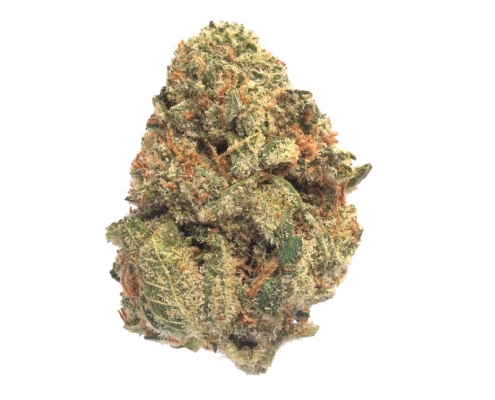 https://essencevegas.com/wp-content/uploads/2019/02/Serene-Sequoia-Sherbert.jpg
800
800
[email protected]
https://essencevegas.com/wp-content/uploads/2021/02/Essence-Cannabis-Dispensary-Logo.png
[email protected]2019-02-18 17:19:222021-05-26 00:43:02SRENE – Sequoia Sherbet
https://essencevegas.com/wp-content/uploads/2019/02/Serene-Sequoia-Sherbert.jpg
800
800
[email protected]
https://essencevegas.com/wp-content/uploads/2021/02/Essence-Cannabis-Dispensary-Logo.png
[email protected]2019-02-18 17:19:222021-05-26 00:43:02SRENE – Sequoia Sherbet https://essencevegas.com/wp-content/uploads/2019/02/Serene-XJ13.jpg
800
800
[email protected]
https://essencevegas.com/wp-content/uploads/2021/02/Essence-Cannabis-Dispensary-Logo.png
[email protected]2019-02-19 10:23:062021-05-26 00:44:16SRENE – XJ-13
https://essencevegas.com/wp-content/uploads/2019/02/Serene-XJ13.jpg
800
800
[email protected]
https://essencevegas.com/wp-content/uploads/2021/02/Essence-Cannabis-Dispensary-Logo.png
[email protected]2019-02-19 10:23:062021-05-26 00:44:16SRENE – XJ-13 https://essencevegas.com/wp-content/uploads/2019/03/SST_Vape-Cartridge-Hybrid.jpg
800
800
[email protected]
https://essencevegas.com/wp-content/uploads/2021/02/Essence-Cannabis-Dispensary-Logo.png
[email protected]2019-03-04 10:54:432020-09-08 02:17:26SST – Mint Chocolate Chip Cartridge
https://essencevegas.com/wp-content/uploads/2019/03/SST_Vape-Cartridge-Hybrid.jpg
800
800
[email protected]
https://essencevegas.com/wp-content/uploads/2021/02/Essence-Cannabis-Dispensary-Logo.png
[email protected]2019-03-04 10:54:432020-09-08 02:17:26SST – Mint Chocolate Chip Cartridge https://essencevegas.com/wp-content/uploads/2018/12/SST-Mint-Chocolate-Chip-Pre-Roll.jpg
800
800
[email protected]
https://essencevegas.com/wp-content/uploads/2021/02/Essence-Cannabis-Dispensary-Logo.png
[email protected]2018-12-28 14:07:232021-06-11 00:48:33SST – Mint Chocolate Chip Pre-Roll
https://essencevegas.com/wp-content/uploads/2018/12/SST-Mint-Chocolate-Chip-Pre-Roll.jpg
800
800
[email protected]
https://essencevegas.com/wp-content/uploads/2021/02/Essence-Cannabis-Dispensary-Logo.png
[email protected]2018-12-28 14:07:232021-06-11 00:48:33SST – Mint Chocolate Chip Pre-Roll https://essencevegas.com/wp-content/uploads/2019/03/SST_Vape-Cartridge-Indica_1.jpg
800
800
[email protected]
https://essencevegas.com/wp-content/uploads/2021/02/Essence-Cannabis-Dispensary-Logo.png
[email protected]2019-03-04 11:01:572021-06-25 06:11:23SST – Old Family Purple Cartridge
https://essencevegas.com/wp-content/uploads/2019/03/SST_Vape-Cartridge-Indica_1.jpg
800
800
[email protected]
https://essencevegas.com/wp-content/uploads/2021/02/Essence-Cannabis-Dispensary-Logo.png
[email protected]2019-03-04 11:01:572021-06-25 06:11:23SST – Old Family Purple Cartridge https://essencevegas.com/wp-content/uploads/2019/03/SST_Vape-Cartridge-Hybrid-1.jpg
800
800
[email protected]
https://essencevegas.com/wp-content/uploads/2021/02/Essence-Cannabis-Dispensary-Logo.png
[email protected]2019-03-04 11:12:112021-06-25 06:12:40SST – Silver Bullet 3X Crazy Oil Cartridge
https://essencevegas.com/wp-content/uploads/2019/03/SST_Vape-Cartridge-Hybrid-1.jpg
800
800
[email protected]
https://essencevegas.com/wp-content/uploads/2021/02/Essence-Cannabis-Dispensary-Logo.png
[email protected]2019-03-04 11:12:112021-06-25 06:12:40SST – Silver Bullet 3X Crazy Oil Cartridge https://essencevegas.com/wp-content/uploads/2019/03/Bullet-Silver_Vape-Cartridge.jpg
800
800
[email protected]
https://essencevegas.com/wp-content/uploads/2021/02/Essence-Cannabis-Dispensary-Logo.png
[email protected]2019-03-04 11:21:042021-06-25 06:13:58SST – Silver Bullet Blue Dream Disposable Pen
https://essencevegas.com/wp-content/uploads/2019/03/Bullet-Silver_Vape-Cartridge.jpg
800
800
[email protected]
https://essencevegas.com/wp-content/uploads/2021/02/Essence-Cannabis-Dispensary-Logo.png
[email protected]2019-03-04 11:21:042021-06-25 06:13:58SST – Silver Bullet Blue Dream Disposable Pen https://essencevegas.com/wp-content/uploads/2019/03/Bullet-Silver-Vape-Cartridge.jpg
800
800
[email protected]
https://essencevegas.com/wp-content/uploads/2021/02/Essence-Cannabis-Dispensary-Logo.png
[email protected]2019-03-04 11:34:022021-06-25 06:16:07SST – Silver Bullet Citrus Sap Oil Cartridge
https://essencevegas.com/wp-content/uploads/2019/03/Bullet-Silver-Vape-Cartridge.jpg
800
800
[email protected]
https://essencevegas.com/wp-content/uploads/2021/02/Essence-Cannabis-Dispensary-Logo.png
[email protected]2019-03-04 11:34:022021-06-25 06:16:07SST – Silver Bullet Citrus Sap Oil Cartridge https://essencevegas.com/wp-content/uploads/2018/12/SST-Strawberry-Banana-Pre-Roll.jpg
800
800
[email protected]
https://essencevegas.com/wp-content/uploads/2021/02/Essence-Cannabis-Dispensary-Logo.png
[email protected]2018-12-28 14:12:362021-06-11 00:49:37SST – Strawberry Banana Pre-Roll
https://essencevegas.com/wp-content/uploads/2018/12/SST-Strawberry-Banana-Pre-Roll.jpg
800
800
[email protected]
https://essencevegas.com/wp-content/uploads/2021/02/Essence-Cannabis-Dispensary-Logo.png
[email protected]2018-12-28 14:12:362021-06-11 00:49:37SST – Strawberry Banana Pre-Roll https://essencevegas.com/wp-content/uploads/2018/12/SST-True-Purple-Berry-Pre-Roll.jpg
800
800
[email protected]
https://essencevegas.com/wp-content/uploads/2021/02/Essence-Cannabis-Dispensary-Logo.png
[email protected]2018-12-28 14:19:282020-09-08 06:40:16SST – True Purple Berry Pre-Roll
https://essencevegas.com/wp-content/uploads/2018/12/SST-True-Purple-Berry-Pre-Roll.jpg
800
800
[email protected]
https://essencevegas.com/wp-content/uploads/2021/02/Essence-Cannabis-Dispensary-Logo.png
[email protected]2018-12-28 14:19:282020-09-08 06:40:16SST – True Purple Berry Pre-Roll https://essencevegas.com/wp-content/uploads/2019/05/Strainz_Restore-Tincture.jpg
800
800
[email protected]
https://essencevegas.com/wp-content/uploads/2021/02/Essence-Cannabis-Dispensary-Logo.png
[email protected]2019-05-02 12:03:172020-09-08 03:34:41Strainz – Restore 20:1 Ratio Tincture Mint Essence
https://essencevegas.com/wp-content/uploads/2019/05/Strainz_Restore-Tincture.jpg
800
800
[email protected]
https://essencevegas.com/wp-content/uploads/2021/02/Essence-Cannabis-Dispensary-Logo.png
[email protected]2019-05-02 12:03:172020-09-08 03:34:41Strainz – Restore 20:1 Ratio Tincture Mint Essence https://essencevegas.com/wp-content/uploads/2018/08/Strainz-Bullet-Sour-Tangie-Cartridge.jpg
800
800
[email protected]
https://essencevegas.com/wp-content/uploads/2021/02/Essence-Cannabis-Dispensary-Logo.png
[email protected]2018-08-30 16:49:562021-06-25 06:17:31Strainz Bullet – Sour Tangie Cartridge
https://essencevegas.com/wp-content/uploads/2018/08/Strainz-Bullet-Sour-Tangie-Cartridge.jpg
800
800
[email protected]
https://essencevegas.com/wp-content/uploads/2021/02/Essence-Cannabis-Dispensary-Logo.png
[email protected]2018-08-30 16:49:562021-06-25 06:17:31Strainz Bullet – Sour Tangie Cartridge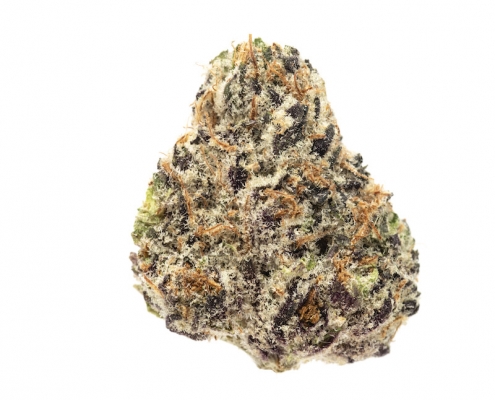 https://essencevegas.com/wp-content/uploads/2019/02/TahoeHydro_CherryDosiDos.jpg
800
800
[email protected]
https://essencevegas.com/wp-content/uploads/2021/02/Essence-Cannabis-Dispensary-Logo.png
[email protected]2019-02-19 10:30:302020-09-08 01:53:42Tahoe Hydro – Cherry Do-Si-Dos
https://essencevegas.com/wp-content/uploads/2019/02/TahoeHydro_CherryDosiDos.jpg
800
800
[email protected]
https://essencevegas.com/wp-content/uploads/2021/02/Essence-Cannabis-Dispensary-Logo.png
[email protected]2019-02-19 10:30:302020-09-08 01:53:42Tahoe Hydro – Cherry Do-Si-Dos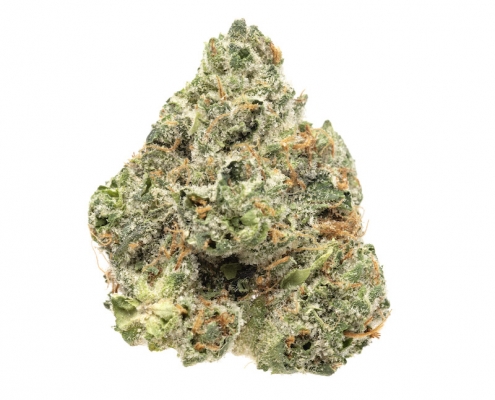 https://essencevegas.com/wp-content/uploads/2019/02/TahoeHydro_Gelato.jpg
800
800
[email protected]
https://essencevegas.com/wp-content/uploads/2021/02/Essence-Cannabis-Dispensary-Logo.png
[email protected]2019-02-19 10:38:472021-03-26 07:04:56Tahoe Hydro – Garanimals
https://essencevegas.com/wp-content/uploads/2019/02/TahoeHydro_Gelato.jpg
800
800
[email protected]
https://essencevegas.com/wp-content/uploads/2021/02/Essence-Cannabis-Dispensary-Logo.png
[email protected]2019-02-19 10:38:472021-03-26 07:04:56Tahoe Hydro – Garanimals https://essencevegas.com/wp-content/uploads/2019/04/Remedy_Bio-Dream.jpg
800
800
[email protected]
https://essencevegas.com/wp-content/uploads/2021/02/Essence-Cannabis-Dispensary-Logo.png
[email protected]2019-04-30 12:07:462021-06-03 07:35:30TerpX – Bio-Jesus Badder
https://essencevegas.com/wp-content/uploads/2019/04/Remedy_Bio-Dream.jpg
800
800
[email protected]
https://essencevegas.com/wp-content/uploads/2021/02/Essence-Cannabis-Dispensary-Logo.png
[email protected]2019-04-30 12:07:462021-06-03 07:35:30TerpX – Bio-Jesus Badder https://essencevegas.com/wp-content/uploads/2019/04/Remedy_SweetBeansLiveResinBudder.jpg
4274
4274
[email protected]
https://essencevegas.com/wp-content/uploads/2021/02/Essence-Cannabis-Dispensary-Logo.png
[email protected]2019-04-30 12:09:342021-06-03 07:39:42TerpX – Sweet Beans Crumble
https://essencevegas.com/wp-content/uploads/2019/04/Remedy_SweetBeansLiveResinBudder.jpg
4274
4274
[email protected]
https://essencevegas.com/wp-content/uploads/2021/02/Essence-Cannabis-Dispensary-Logo.png
[email protected]2019-04-30 12:09:342021-06-03 07:39:42TerpX – Sweet Beans Crumble https://essencevegas.com/wp-content/uploads/2018/12/Tsunami-Face-on-Fire-Live-Resin-Sugar.jpg
800
800
[email protected]
https://essencevegas.com/wp-content/uploads/2021/02/Essence-Cannabis-Dispensary-Logo.png
[email protected]2018-12-28 11:51:072020-09-08 14:34:40Tsunami – Face on Fire Live Resin Sugar
https://essencevegas.com/wp-content/uploads/2018/12/Tsunami-Face-on-Fire-Live-Resin-Sugar.jpg
800
800
[email protected]
https://essencevegas.com/wp-content/uploads/2021/02/Essence-Cannabis-Dispensary-Logo.png
[email protected]2018-12-28 11:51:072020-09-08 14:34:40Tsunami – Face on Fire Live Resin Sugar https://essencevegas.com/wp-content/uploads/2018/10/Tsunami-Hendo-Cream-Live-Resin-Badder.jpg
800
800
[email protected]
https://essencevegas.com/wp-content/uploads/2021/02/Essence-Cannabis-Dispensary-Logo.png
[email protected]2018-10-31 14:43:152020-09-08 06:59:04Tsunami – Hendo Cream Live Resin Badder
https://essencevegas.com/wp-content/uploads/2018/10/Tsunami-Hendo-Cream-Live-Resin-Badder.jpg
800
800
[email protected]
https://essencevegas.com/wp-content/uploads/2021/02/Essence-Cannabis-Dispensary-Logo.png
[email protected]2018-10-31 14:43:152020-09-08 06:59:04Tsunami – Hendo Cream Live Resin Badder https://essencevegas.com/wp-content/uploads/2018/12/Tsunami-Hendo-Cream-Live-Resin-Sauce.jpg
800
800
[email protected]
https://essencevegas.com/wp-content/uploads/2021/02/Essence-Cannabis-Dispensary-Logo.png
[email protected]2018-12-28 11:58:402020-09-08 07:12:31Tsunami – Hendo Cream Live Resin Sauce
https://essencevegas.com/wp-content/uploads/2018/12/Tsunami-Hendo-Cream-Live-Resin-Sauce.jpg
800
800
[email protected]
https://essencevegas.com/wp-content/uploads/2021/02/Essence-Cannabis-Dispensary-Logo.png
[email protected]2018-12-28 11:58:402020-09-08 07:12:31Tsunami – Hendo Cream Live Resin Sauce https://essencevegas.com/wp-content/uploads/2018/12/Tsunami-Space-Glue-Live-Resin-Sugar.jpg
800
800
[email protected]
https://essencevegas.com/wp-content/uploads/2021/02/Essence-Cannabis-Dispensary-Logo.png
[email protected]2018-12-28 12:06:412021-06-03 07:40:28Tsunami – Space Glue Live Resin Sugar
https://essencevegas.com/wp-content/uploads/2018/12/Tsunami-Space-Glue-Live-Resin-Sugar.jpg
800
800
[email protected]
https://essencevegas.com/wp-content/uploads/2021/02/Essence-Cannabis-Dispensary-Logo.png
[email protected]2018-12-28 12:06:412021-06-03 07:40:28Tsunami – Space Glue Live Resin Sugar https://essencevegas.com/wp-content/uploads/2019/05/Tsunami_DayGlow_LiveResin.jpg
800
800
[email protected]
https://essencevegas.com/wp-content/uploads/2021/02/Essence-Cannabis-Dispensary-Logo.png
[email protected]2019-05-02 12:29:312020-09-16 04:54:24Tsunami Dayglow Live Resin
https://essencevegas.com/wp-content/uploads/2019/05/Tsunami_DayGlow_LiveResin.jpg
800
800
[email protected]
https://essencevegas.com/wp-content/uploads/2021/02/Essence-Cannabis-Dispensary-Logo.png
[email protected]2019-05-02 12:29:312020-09-16 04:54:24Tsunami Dayglow Live Resin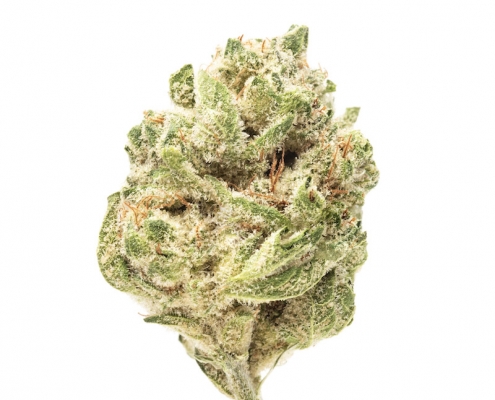 https://essencevegas.com/wp-content/uploads/2019/02/Verano_BananaOG.jpg
800
800
[email protected]
https://essencevegas.com/wp-content/uploads/2021/02/Essence-Cannabis-Dispensary-Logo.png
[email protected]2019-02-19 10:45:022021-05-26 06:19:42Verano – Banana OG
https://essencevegas.com/wp-content/uploads/2019/02/Verano_BananaOG.jpg
800
800
[email protected]
https://essencevegas.com/wp-content/uploads/2021/02/Essence-Cannabis-Dispensary-Logo.png
[email protected]2019-02-19 10:45:022021-05-26 06:19:42Verano – Banana OG https://essencevegas.com/wp-content/uploads/2018/12/Verano-Kong-Sunrock-Shatter.jpg
800
800
[email protected]
https://essencevegas.com/wp-content/uploads/2021/02/Essence-Cannabis-Dispensary-Logo.png
[email protected]2018-12-27 12:05:362020-09-08 03:01:01Verano – Kong Sunrock Shatter
https://essencevegas.com/wp-content/uploads/2018/12/Verano-Kong-Sunrock-Shatter.jpg
800
800
[email protected]
https://essencevegas.com/wp-content/uploads/2021/02/Essence-Cannabis-Dispensary-Logo.png
[email protected]2018-12-27 12:05:362020-09-08 03:01:01Verano – Kong Sunrock Shatter https://essencevegas.com/wp-content/uploads/2018/08/Verano-Kotton-Kandy-Sunrock-Shatter.jpg
800
800
[email protected]
https://essencevegas.com/wp-content/uploads/2021/02/Essence-Cannabis-Dispensary-Logo.png
[email protected]2018-08-03 17:17:262021-06-03 07:41:53Verano – Kotton Kandy Sunrock Shatter
https://essencevegas.com/wp-content/uploads/2018/08/Verano-Kotton-Kandy-Sunrock-Shatter.jpg
800
800
[email protected]
https://essencevegas.com/wp-content/uploads/2021/02/Essence-Cannabis-Dispensary-Logo.png
[email protected]2018-08-03 17:17:262021-06-03 07:41:53Verano – Kotton Kandy Sunrock Shatter https://essencevegas.com/wp-content/uploads/2018/08/Verano-OG-Skunk-Shatter.jpg
800
800
[email protected]
https://essencevegas.com/wp-content/uploads/2021/02/Essence-Cannabis-Dispensary-Logo.png
[email protected]2018-08-06 13:17:202020-09-08 07:00:06Verano – OG Skunk Shatter
https://essencevegas.com/wp-content/uploads/2018/08/Verano-OG-Skunk-Shatter.jpg
800
800
[email protected]
https://essencevegas.com/wp-content/uploads/2021/02/Essence-Cannabis-Dispensary-Logo.png
[email protected]2018-08-06 13:17:202020-09-08 07:00:06Verano – OG Skunk Shatter https://essencevegas.com/wp-content/uploads/2018/08/Verano-Papaya-Wax.jpg
800
800
[email protected]
https://essencevegas.com/wp-content/uploads/2021/02/Essence-Cannabis-Dispensary-Logo.png
[email protected]2018-08-08 13:26:542020-09-08 14:13:35Verano – Papaya Wax
https://essencevegas.com/wp-content/uploads/2018/08/Verano-Papaya-Wax.jpg
800
800
[email protected]
https://essencevegas.com/wp-content/uploads/2021/02/Essence-Cannabis-Dispensary-Logo.png
[email protected]2018-08-08 13:26:542020-09-08 14:13:35Verano – Papaya Wax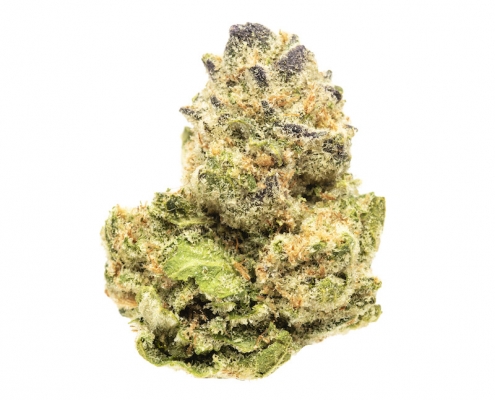 https://essencevegas.com/wp-content/uploads/2019/02/Verano_Strawnana.jpg
800
800
[email protected]
https://essencevegas.com/wp-content/uploads/2021/02/Essence-Cannabis-Dispensary-Logo.png
[email protected]2019-02-19 10:51:262021-03-26 06:54:57Verano – Strawnana
https://essencevegas.com/wp-content/uploads/2019/02/Verano_Strawnana.jpg
800
800
[email protected]
https://essencevegas.com/wp-content/uploads/2021/02/Essence-Cannabis-Dispensary-Logo.png
[email protected]2019-02-19 10:51:262021-03-26 06:54:57Verano – Strawnana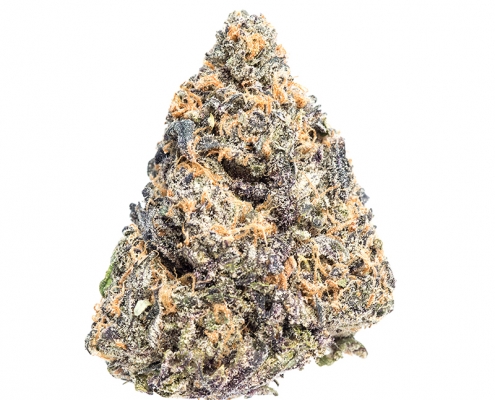 https://essencevegas.com/wp-content/uploads/2018/12/Lone-Mountain-Jamie-Lee.jpg
800
800
[email protected]
https://essencevegas.com/wp-content/uploads/2021/02/Essence-Cannabis-Dispensary-Logo.png
[email protected]2018-12-10 15:02:592021-05-20 07:33:09Verona – Jamie Lee
https://essencevegas.com/wp-content/uploads/2018/12/Lone-Mountain-Jamie-Lee.jpg
800
800
[email protected]
https://essencevegas.com/wp-content/uploads/2021/02/Essence-Cannabis-Dispensary-Logo.png
[email protected]2018-12-10 15:02:592021-05-20 07:33:09Verona – Jamie Lee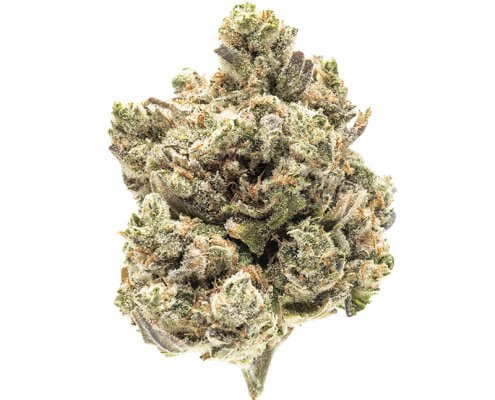 https://essencevegas.com/wp-content/uploads/2018/08/Mojave-Banana-OG.jpg
800
800
[email protected]
https://essencevegas.com/wp-content/uploads/2021/02/Essence-Cannabis-Dispensary-Logo.png
[email protected]2018-08-07 16:45:562021-05-20 07:35:59Verona – Banana OG
https://essencevegas.com/wp-content/uploads/2018/08/Mojave-Banana-OG.jpg
800
800
[email protected]
https://essencevegas.com/wp-content/uploads/2021/02/Essence-Cannabis-Dispensary-Logo.png
[email protected]2018-08-07 16:45:562021-05-20 07:35:59Verona – Banana OG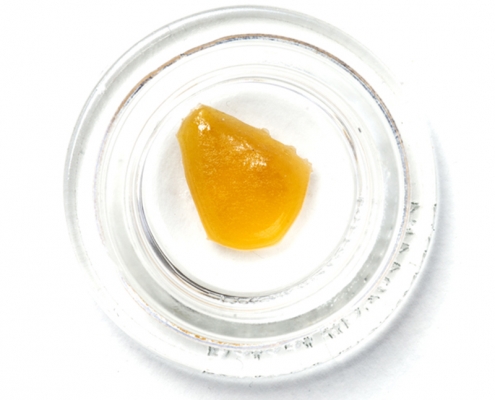 https://essencevegas.com/wp-content/uploads/2018/08/Lone-Mountain-Sunny-D-Wax.jpg
800
800
[email protected]
https://essencevegas.com/wp-content/uploads/2021/02/Essence-Cannabis-Dispensary-Logo.png
[email protected]2018-08-07 17:09:072021-06-01 05:54:51Verona – Sunny D Wax
https://essencevegas.com/wp-content/uploads/2018/08/Lone-Mountain-Sunny-D-Wax.jpg
800
800
[email protected]
https://essencevegas.com/wp-content/uploads/2021/02/Essence-Cannabis-Dispensary-Logo.png
[email protected]2018-08-07 17:09:072021-06-01 05:54:51Verona – Sunny D Wax https://essencevegas.com/wp-content/uploads/2018/12/VT-Pure-Haze.jpg
800
800
[email protected]
https://essencevegas.com/wp-content/uploads/2021/02/Essence-Cannabis-Dispensary-Logo.png
[email protected]2018-12-21 16:33:492021-05-26 06:21:34Virtue – Pure Haze
https://essencevegas.com/wp-content/uploads/2018/12/VT-Pure-Haze.jpg
800
800
[email protected]
https://essencevegas.com/wp-content/uploads/2021/02/Essence-Cannabis-Dispensary-Logo.png
[email protected]2018-12-21 16:33:492021-05-26 06:21:34Virtue – Pure Haze https://essencevegas.com/wp-content/uploads/2018/11/WV-Rug-Burn-OG-Pre-Roll.jpg
800
800
[email protected]
https://essencevegas.com/wp-content/uploads/2021/02/Essence-Cannabis-Dispensary-Logo.png
[email protected]2018-11-22 13:02:402021-06-11 00:59:42Virtue – Rug Burn OG Pre-Roll
https://essencevegas.com/wp-content/uploads/2018/11/WV-Rug-Burn-OG-Pre-Roll.jpg
800
800
[email protected]
https://essencevegas.com/wp-content/uploads/2021/02/Essence-Cannabis-Dispensary-Logo.png
[email protected]2018-11-22 13:02:402021-06-11 00:59:42Virtue – Rug Burn OG Pre-Roll https://essencevegas.com/wp-content/uploads/2018/12/VT-Triple-G-Pre-Roll.jpg
800
800
[email protected]
https://essencevegas.com/wp-content/uploads/2021/02/Essence-Cannabis-Dispensary-Logo.png
[email protected]2018-12-28 15:32:142021-06-11 00:56:23Virtue – Triple G Pre-Roll
https://essencevegas.com/wp-content/uploads/2018/12/VT-Triple-G-Pre-Roll.jpg
800
800
[email protected]
https://essencevegas.com/wp-content/uploads/2021/02/Essence-Cannabis-Dispensary-Logo.png
[email protected]2018-12-28 15:32:142021-06-11 00:56:23Virtue – Triple G Pre-Roll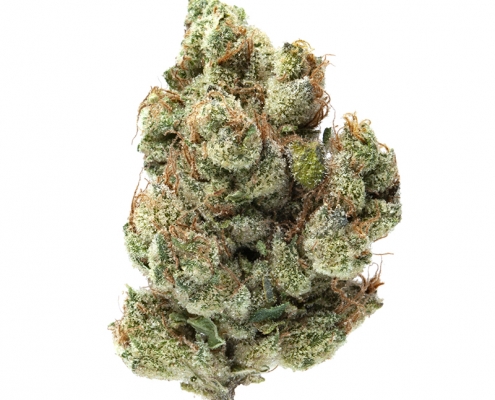 https://essencevegas.com/wp-content/uploads/2019/05/Virtue_Triple-G.jpg
800
800
[email protected]
https://essencevegas.com/wp-content/uploads/2021/02/Essence-Cannabis-Dispensary-Logo.png
[email protected]2019-05-02 12:36:002021-03-26 06:40:21Virtue – Triple G Pre-Roll
https://essencevegas.com/wp-content/uploads/2019/05/Virtue_Triple-G.jpg
800
800
[email protected]
https://essencevegas.com/wp-content/uploads/2021/02/Essence-Cannabis-Dispensary-Logo.png
[email protected]2019-05-02 12:36:002021-03-26 06:40:21Virtue – Triple G Pre-Roll https://essencevegas.com/wp-content/uploads/2019/02/W-Preroll-Sativa.jpg
800
800
[email protected]
https://essencevegas.com/wp-content/uploads/2021/02/Essence-Cannabis-Dispensary-Logo.png
[email protected]2019-02-19 10:57:352021-06-11 00:57:35W Vapes – Lime OG
https://essencevegas.com/wp-content/uploads/2019/02/W-Preroll-Sativa.jpg
800
800
[email protected]
https://essencevegas.com/wp-content/uploads/2021/02/Essence-Cannabis-Dispensary-Logo.png
[email protected]2019-02-19 10:57:352021-06-11 00:57:35W Vapes – Lime OGAcquired Immune Deficiency Syndrome (AIDS)
What It Is: A disease affecting the human immune system in which the body’s white blood cells are destroyed by the HIV virus.
Common Symptoms: Severe nausea, exhaustion, physical weakness, neurological difficulties, appetite loss. High active antiretroviral therapy (HAART) drugs, which are used to combat the effects of HIV/AIDs can cause nausea, vomiting, appetite loss, and weight loss.
How Cannabis Can Help: Cannabis can help reduce nausea, vomiting, and stimulate the appetite as well as provide psychological relief from the disease.
Cancer
What It Is: A category of diseases in which the body’s cells divide without stopping and invade nearby tissues, potentially spreading to other parts of the body.
Common Symptoms: Neuropathy, nausea, and vomiting (from chemotherapy treatments).
How Cannabis Can Help: Cannabis can treat nausea, vomiting, and relieve neuropathy. There are also studies that suggest cannabis has the potential to kill certain cancer cells and prevent new ones from forming, but more research needs to be done in this area.
Glaucoma
What It Is: Condition in which the fluid pressure in the eye reaches unhealthy levels. Can cause loss of vision or blindness if left untreated.
Common Symptoms: Blind spots in your side or central vision, tunnel vision, nausea, vomiting, headaches.
How Cannabis Can Help: Cannabis can temporarily lower a person’s intraocular pressure (IOP).
Post-Traumatic Stress Disorder (PTSD)
What It Is: A mental health condition experienced by people who’ve suffered a traumatic and/or life-threatening event.
Common Symptoms: Flashbacks of the event, nightmares, difficulty sleeping, mood swings, severe anxiety.
How Cannabis Can Help: Can treat anxiety, insomnia, depression.
Cachexia
What It Is: Emaciation and malnutrition of the body, usually as the result of a chronic illness.
Common Symptoms: Weight loss, loss of appetite, decreased functional abilities, swelling.
How Cannabis Can Help: Can stimulate the appetite, leading to increased nutritional/caloric intake and weight gain.
Persistent Muscle Spasms (Including Multiple Sclerosis)
What It Is: A sudden, involuntary contraction of the muscles. Muscle spasms can be a symptom of multiple sclerosis, a progressive disease that affects the nerve cells in the brain and spinal cord.
Common Symptoms (for multiple sclerosis): Muscle spasms, muscle weakness, fatigue, numbness, dizziness, vision problems, chronic pain, gastrointestinal problems.
How Cannabis Can Help: Can reduce chronic pain, inflammation, and the frequency of muscle spasms as well as improve gastrointestinal issues.
Seizures (Including Epilepsy)
What It Is: A sudden surge of electrical activity in the brain which causes physical convulsions, abnormal behavior, or loss of consciousness. Epilepsy is a disease characterized by repeated, involuntary seizures.
Common Symptoms for Epilepsy: Temporary confusion, uncontrollable jerking, loss of consciousness, staring spells, feelings of fear, anxiety, and deja vu.
How Cannabis Can Help: Can help reduce the frequency of seizures
Severe Nausea and Severe Pain
Severe nausea and severe pain are often symptoms of underlying, more complex medical conditions.
Both nausea and pain can be treated using cannabis.
Additional Conditions are Subject to the Approval of the Nevada Division of Public and Behavioral Health
If you suffer from an illness that’s not listed above, you may still qualify for medical cannabis use.
Ask your doctor if it’s possible to treat your medical condition with cannabis. If your doctor approves, your next step is to petition the Nevada Division of Public and Behavioral Health and request that your illness be added to their list of qualifying conditions.


